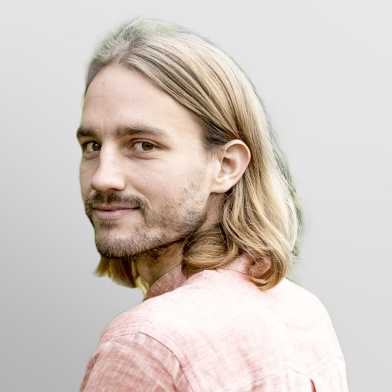ETH News
The year 2024 at ETH Zurich
- News
- Homehero
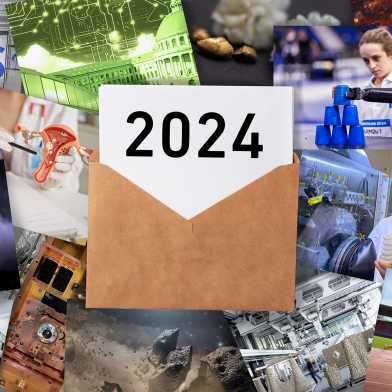
2024 saw ETH Zurich once again confirm its position as a global leader in research and teaching – be it in the field of biology, energy sciences or space research.
Energy from underground
News
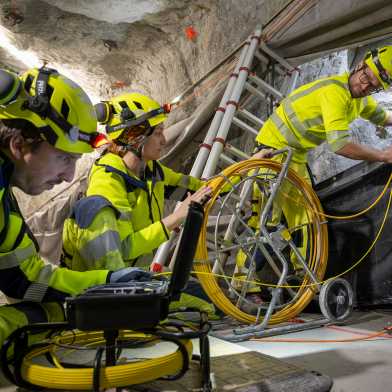
Deep geothermal energy is climate-friendly and base-load capable - but how can this heat be tapped safely? ETH researchers are working on minimizing the earthquake risk and developing completely new systems, for example with closed CO2 cycles.
Nature’s classroom
- News
- Homehero
- Globe magazine
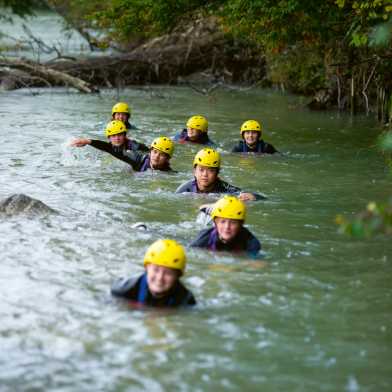
The Teaching Diploma in Sport at ETH Zurich pushes the students to their limits. Blending outdoor education with the romance of camp life, the course sees students brave cold water and river rapids. A glance into a programme one of its kind in Switzerland.
Why we need space exploration
- News
- Globe magazine
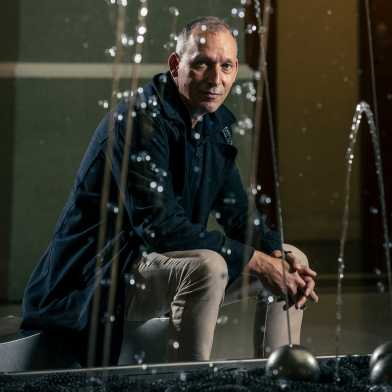
Thomas Zurbuchen, Director of ETH Zurich Space, explains how Switzerland can do a better job of exploring and exploiting space – and how there’s still enormous potential to be tapped.
The quest to explore space
- News
- Homehero
- Globe magazine
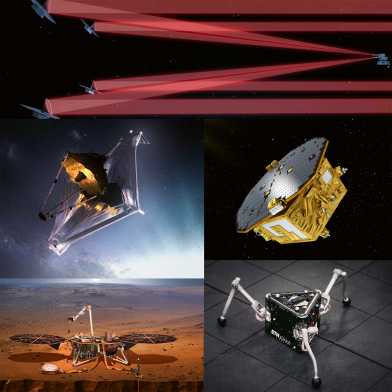
ETH Zurich is involved in a number of space missions – from satellite-based searches for signs of life on exoplanets to the hunt for gravitational waves with the LISA space antenna. These projects rely on strong partnerships with the aerospace industry.
Inspired by space: Getting smart ideas off the ground
- News
- Homehero
- Globe magazine

Space start-ups in Switzerland enjoy the support of ESA BIC Switzerland, a business incubation centre set up by ESA and run by ETH Zurich. The programme helps researchers take their first steps towards commercial success.
Biometrics for artworks
- News
- Homehero
- Globe magazine

The SmartStamp app is used to verify the authenticity of artworks.
From loop jumps to quantum leaps
- News
- Homehero
- Globe magazine
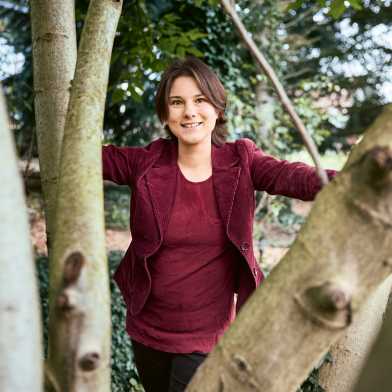
Bettina Heim won the Swiss figure-skating championships before developing an interest in quantum computing. She studied physics at ETH and now develops software for the computers of the future.
“Exercise and social interaction are key stress relievers”
- News
- Homehero
- Globe magazine
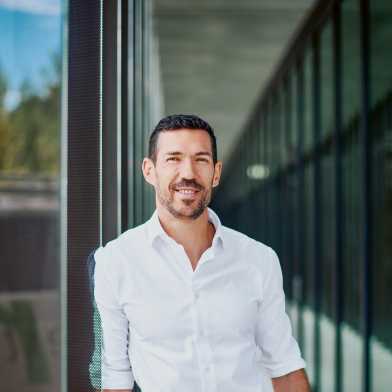
Neuroscientist Johannes Bohacek investigates the molecular basis of stress in the brain. He originally wanted to become a psychotherapist.
Launch of space systems degree programme
- News
- Homehero
- Globe magazine
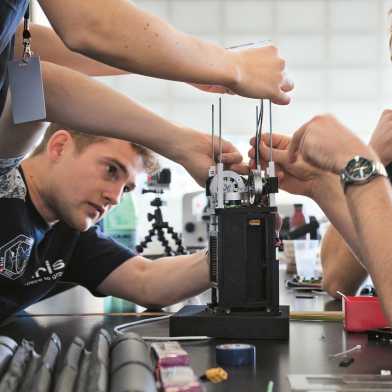
Few courses of study at ETH Zurich have attracted quite as much attention as the new Master in Space Systems. Teachers and students strapped in for the programme’s launch this autumn.
The view from space – and what it tells us
- News
- Homehero
- Globe magazine
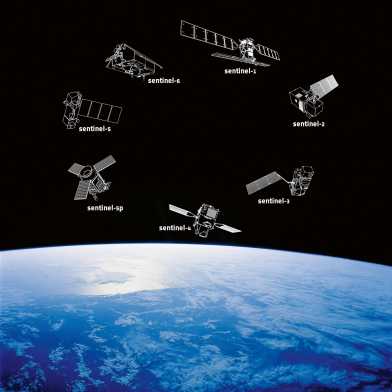
Earth-observation satellites deliver data for a wealth of applications – from monitoring climate change and documenting war crimes to planning disaster relief and assessing snow depth. ETH researchers are also big beneficiaries.
“Big Tech is not the problem”
News
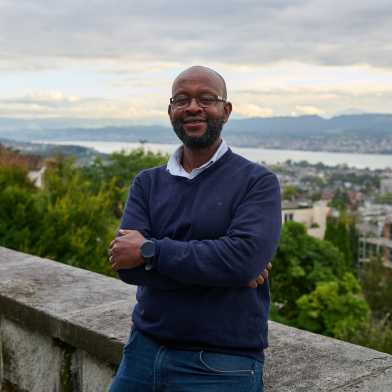
Professor Ciira wa Maina is the Chair of Data Science Africa, a founding member of the International Computation and AI Network (ICAIN), an initiative to democratise artificial intelligence (AI). In an interview with ETH News, he explains how AI can help African farmers and why Europe benefits from cooperation.
“We needed to know how far and how fast the event could travel”
News
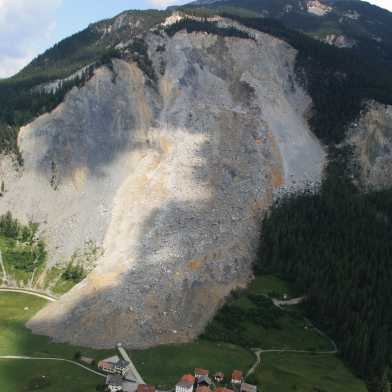
Brienz has just been evacuated for the second time. The decision is based, among other things, on thousands of simulations that ETH professor Jordan Aaron has produced using a computer model he developed. In an interview with ETH News, he explains why this model was used.
Robots help deliver gifts
News
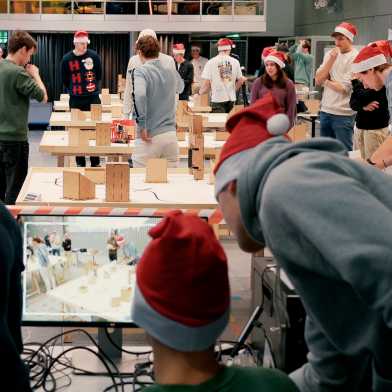
This year’s Innovation Project required ETH students to develop kit-based robots capable of delivering gifts down the chimneys of model-sized houses. The ten best teams will compete against each other in the final on 17 December.
Delivering medicines with microscopic flowers
News
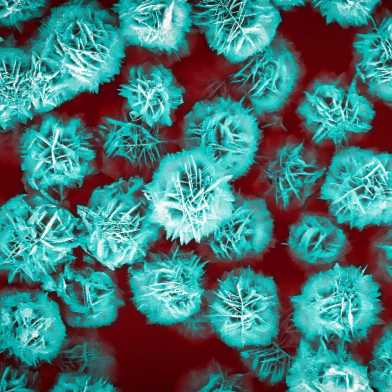
These small particles are reminiscent of paper flowers or desert roses. Physicians can use them to guide medicines to a precise destination within the body. Better yet, the particles can easily be tracked using ultrasound as they scatter sound waves.
A thinner thermal insulation for buildings
News
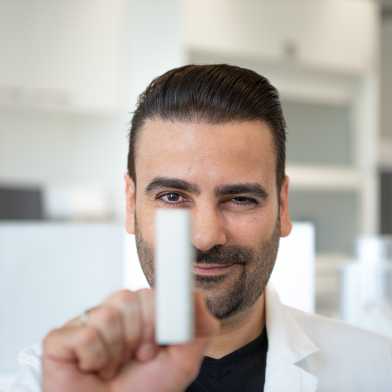
ETH spin-off Aeroskin Tech is developing innovative thermal insulation that uses aerogel technology to insulate buildings more efficiently and more sustainably. This new insulation has an energy-saving effect and is significantly thinner than conventional materials.
Timber, earth and a digital ecosystem for sustainable construction
News
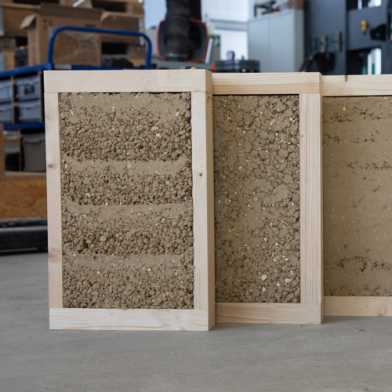
Two flagship projects from Innosuisse have been launched at ETH Zurich with the aim of transforming the Swiss construction industry in a sustainable way: While "Swircular" lays the foundation for a circular construction industry, "Think Earth" enables regenerative construction with timber and earth.
Nine professors appointed
News
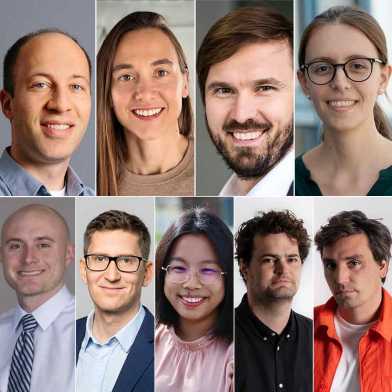
At its meeting on December 5, 2024, the ETH Board appointed nine professors at the request of ETH President Joël Mesot. In addition, the title "Professor" was awarded twice.
How the latest sensors analyse body fluids
News
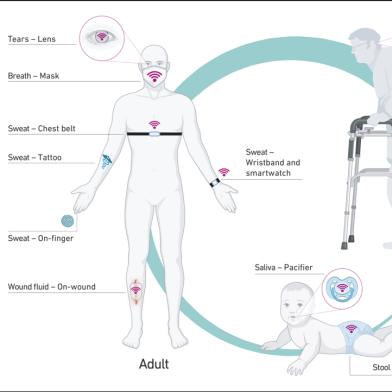
A new generation of wearable sensors will fundamentally change medicine. Researchers at ETH Zurich and international experts have now published an overview showing what is possible with such sensors and what questions their developers should consider to ensure their successful future use.
CRISPR-Cas technology: balancing efficiency and safety
News
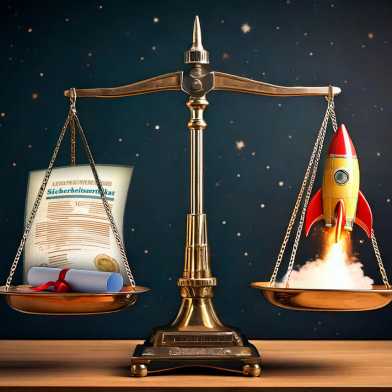
ETH Zurich researchers have uncovered a serious side effect of using the CRISPR-Cas gene scissors. A molecule designed to make the process more efficient destroys parts of the genome.
From weakest link to security factor
- News
- Zukunftsblog
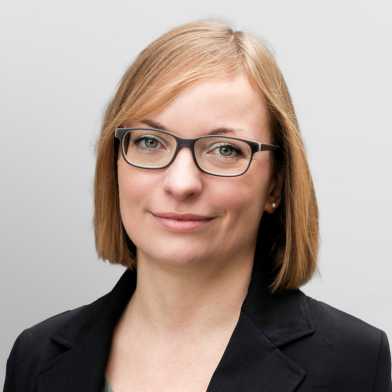
Verena Zimmermann is convinced that it is too simplistic to view people solely as a risk factor in cyber security. Rather, the special abilities of users should be utilised in a targeted way in order to increase cyber security.
Climate change alone does not cause mass migration
- News
- Zukunftsblog
He set the tone for climate
News
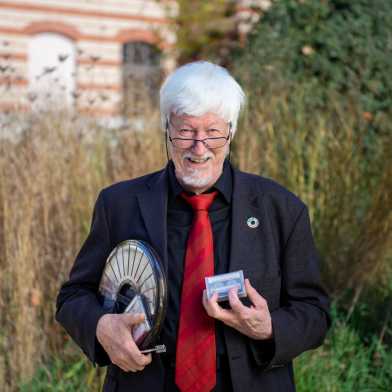
On 2 December, Andreas Fischlin will give his farewell lecture. Time for a profile of the systems ecologist who fought against climate change at the highest political level.
“We should take a more relaxed approach to sleep”
News
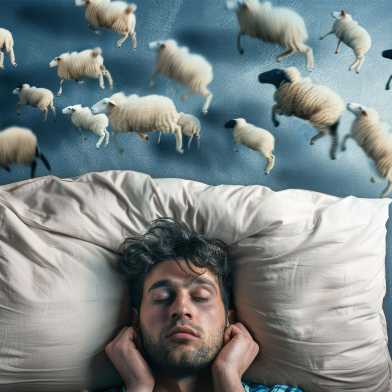
Sleep problems have become a widespread issue. In a new popular science book and in an interview with ETH News, ETH sleep researcher Caroline Lustenberger describes the do’s (and don’ts) for when you can’t get to sleep.
Spark Award 2024: procedure for recycling rare earth metals receives award
News
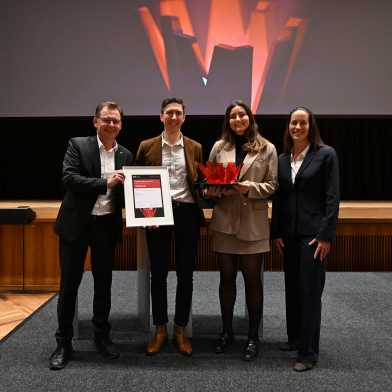
The prize for the most promising invention of the past year goes to Marie Amélie Perrin and Victor Mougel. They have developed a method that enables rare earth elements to be efficiently recovered from electrical waste.
Previously unknown compound in chloraminated drinking water identified
News

Since the 1980s, it’s been known that a mysterious contaminant forms in chloraminated drinking water, but only now has a Swiss-American research team been able to identify the unknown product in US drinking water systems.
Eight SNSF Starting Grants for ETH researchers
News

Four women and four men successfully applied for Starting Grants from the Swiss National Science Foundation via ETH Zurich.
Vice President of Research moving from ETH Zurich to Singapore
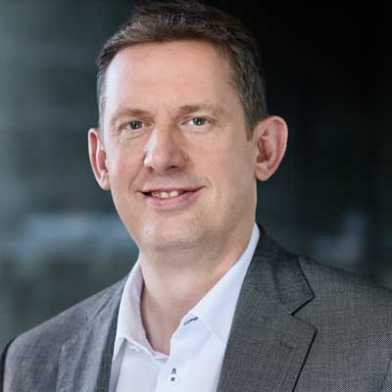
Vice President of Research Christian Wolfrum is leaving ETH as of 1 July 2025 to take up a new academic challenge: he is to become Deputy President and Provost responsible for all academic matters at Nanyang Technological University, Singapore (NTU Singapore).
And it keeps on turning
News
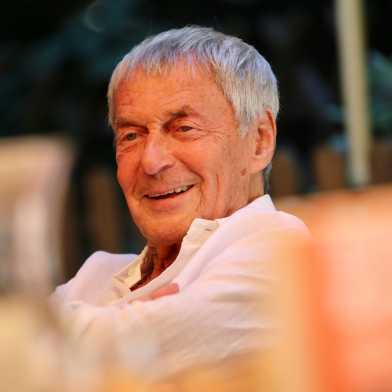
The coloured Cube has been around for 50 years. Its inventor, Ernő Rubik, celebrated his 80th birthday this year. At the invitation of the ETH Department of Mathematics, he spent some time in Zurich to discuss the fascination of the Rubik’s Cube with researchers, students and children.
Cause of the yo-yo effect deciphered
Press release
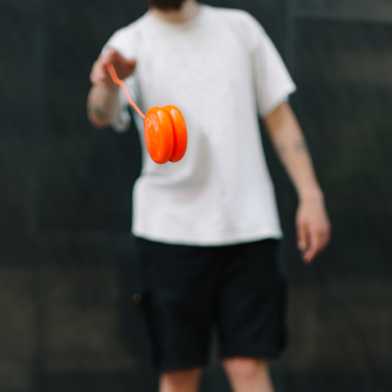
Researchers at ETH Zurich have discovered a mechanism behind the yo-yo effect: fat cells have a memory that is based on epigenetics.
ETH Zurich team takes home a quarter million in biodiversity prize
Homehero
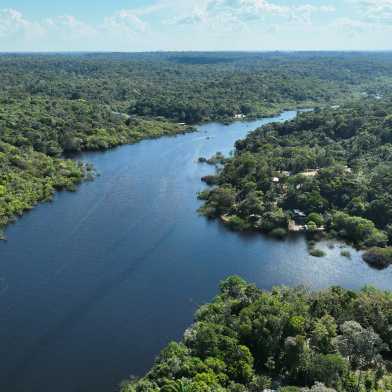
The XPRIZE Rainforest competition acknowledged ETH Zurich-led team for its development and deployment of novel, autonomous technologies that enable near real-time insights about biodiversity.
“We need more time to reflect”
News
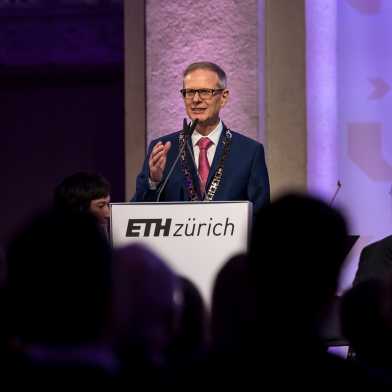
Rector Günther Dissertori explained on the 169th anniversary of ETH Zurich the fundamental objective he was pursuing with a reform package in teaching. President of ETH Zurich Joël Mesot and Federal Councillor Albert Rösti also spoke to the many guests from politics, business and science. The Head of the Federal Department of the Environment, Transport, Energy and Communications and former ETH graduate gave this year’s ceremonial address.
Towards a restless retirement
News
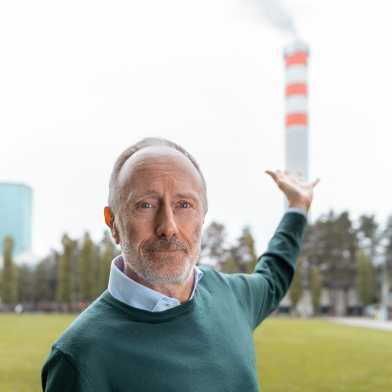
Marco Mazzotti will be conferred emeritus status at the end of January 2025. A good reason for a portrait of this dedicated process engineer, who came to his field of research quite unexpectedly.
Behavioural analysis in mice: more precise results despite fewer animals
- Homehero
- News

Researchers at ETH Zurich are utilising artificial intelligence to analyse the behaviour of laboratory mice more efficiently and reduce the number of animals in experiments.
Everyday routines as the key to logging in
News

Smart homes are intended to make life easier, but logging into individual devices is often still an onerous task. Researchers from ETH Zurich have investigated how everyday routines could be used for secure and user-friendly authentication – with no need for cumbersome passwords.
Using CRISPR to decipher whether gene variants lead to cancer
News
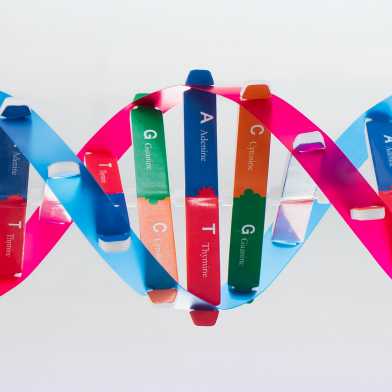
Researchers at ETH Zurich have combined two gene editing methods. This enables them to quickly investigate the significance of many genetic mutations involved in the development and treatment of cancer.
Between crystals, cats and quantum
- News
- Homehero
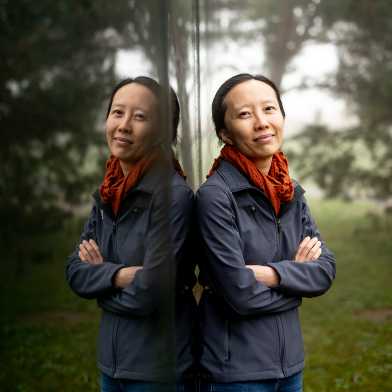
ETH Professor Yiwen Chu is investigating how to apply quantum states to ever larger objects. This should help to gain new insights into physics and develop more efficient technologies. She has now been awarded the ETH Zurich Latsis Prize for her outstanding research.
Researchers are making jet engines fit for the hydrogen age
News
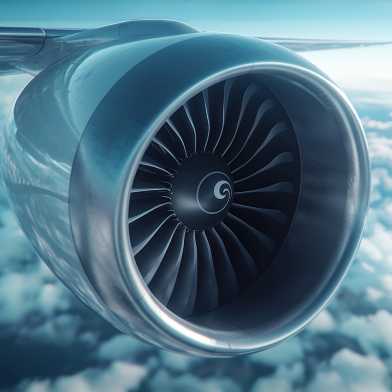
Hydrogen-powered planes are set to take wing around the world in the future. To make this possible, engineers have to develop the jet engines that will power them. Experiments by researchers at ETH Zurich are now providing the necessary basis for making these engines powerful and durable.
Czech President visits ETH Zurich
News
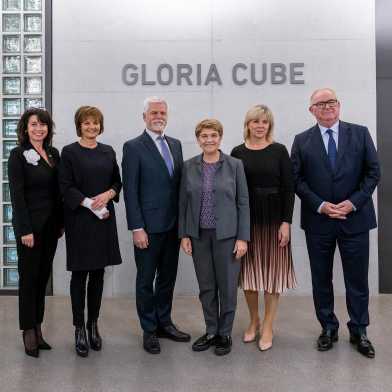
As part of a two-day state visit, President of the Czech Republic Petr Pavel and President of the Swiss Confederation Viola Amherd visited ETH Zurich. The two leaders attended the Swiss-Czech Biotechnology and Pharmaceutical Forum.
ERC Synergy Grant for Sebastian Kozerke
News
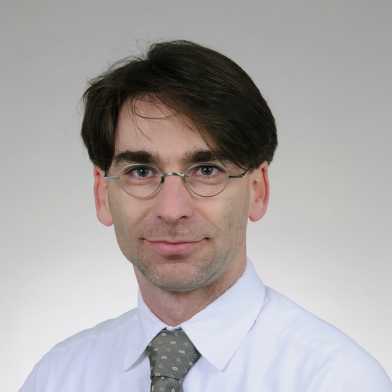
A team of three European researchers will develop an imaging method to non-invasively measure the stiffness of moving organs such as the heart. The researchers will be supported by the European Research Council.
The snake that saves lives
News
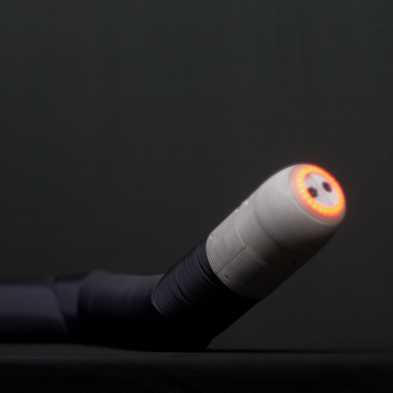
An ETH Zurich team of engineers has developed RoBoa – a snake-like robot with the ability to grow in length and slither into the most inaccessible places.
“The way that our cities, houses and flats are built right now makes us feel dependent.”
- News
- Homehero
- Globe magazine

For many people, architectural norms create barriers to accessibility. How might we re-imagine our built environment to make it more inclusive?
Strengthening the Swiss electricity grid with copper and brains
News

A secure supply of electricity from renewable energies can only succeed if we also modernise the grid infrastructure. At the Energy Science Centre (ESC), ETH researchers are looking for smart ways to make the electricity grid fit for the energy transition without expensive expansion.
His delicate filament scaffolds allow cells to grow perfectly
News
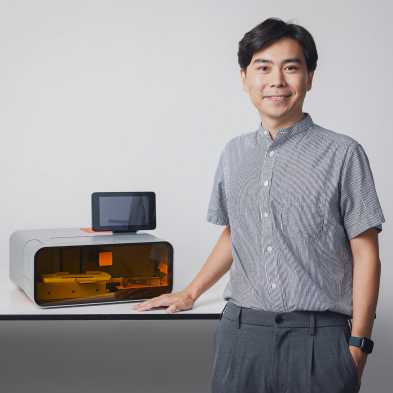
Pioneer Fellow Hao Liu uses lasers to produce microfilament structures to grow biological tissue in the lab for research and medicine – from muscle tissue to cartilage. Now he’s working to ready this technology for the market.
Seeing-eye canes and robotic guide dogs
- News
- Press release
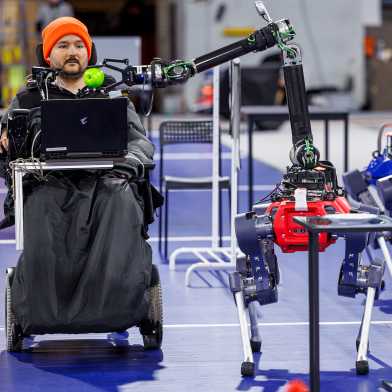
From 25 to 27 October, 67 teams from 24 countries competed in ETH Zurich’s Cybathlon – fighting not only for victory, but also for the advancement of assistance technologies that are more suitable for everyday use. The third edition of the competition for people with disabilities and experimental assistive technologies was a complete success.
“Geoengineering will not solve the problem of climate change”
News

A team led by ETH climate researcher Sandro Vattioni has shown that diamond dust released in the atmosphere could be a good way to cool the climate. However, it is still not a sustainable solution to climate change, says Vattioni in an interview with ETH News.
The road to Net Zero is rocky, but feasible
- News
- Zukunftsblog
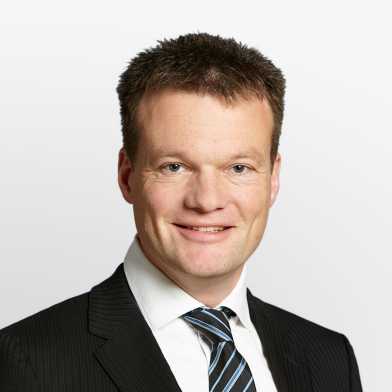
A sustainable transition to a climate-friendly and biodiversity-rich Switzerland is only possible if we tackle the energy transition, climate change mitigation and biodiversity loss together. This will not be easy, but it is worthwhile and ultimately indispensable, says Reto Knutti.
Sit back and move forward with ease
News

Steering and navigating manual wheelchairs on pavements costs wheelchair users a lot of energy and places a strain on their joints. Two ETH employees have discovered a brilliant and simple solution that they are now developing further to bring to market.
The best ETH invention: presenting the Spark Award finalists for 2024
News

The prize for the best invention at ETH Zurich 2024 will be awarded on 21 November. An overview, complete with videos, of the five technologies that made it to the final.
How law-abiding is AI? ETH researchers put it to the test
News

The EU AI Act is designed to ensure that AI is transparent and trustworthy. For the first time, ETH computer scientists have translated the Act into measurable technical requirements for AI. In doing so, they have shown how well today's AI models already comply with the legal requirements.
Team RSL at Cybathlon: when four legs are another pair of hands
News
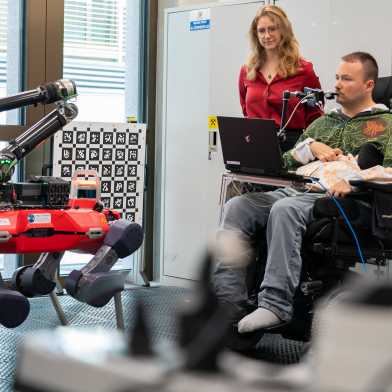
Taking place for the first time at Cybathlon 2024 is the Assistance Robot Race, with ETH represented by Team RSL. When paraplegic pilot Sammy Kunz navigates the course, a four-legged robot will be at his side.
Catching prey with grappling hooks and cannons
News
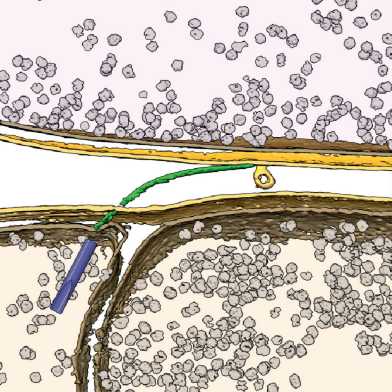
Researchers at ETH Zurich have analysed down to the smallest detail the unusual arsenal of weapons that a predatory marine bacterium has at its disposal. Perhaps one day these weapons could also be put to use in medicine.
Biofabrication should be sustainable
- News
- Zukunftsblog
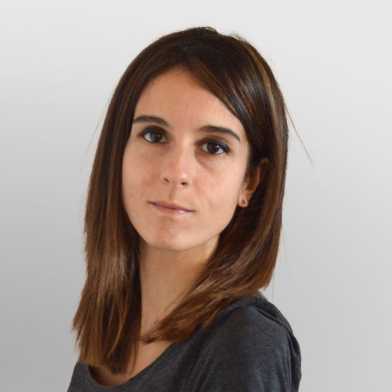
While living matter can advance technology and render human activities more efficient and eco-friendly, the way in which we currently fabricate materials containing living cells is far from sustainable. Miriam Filippi calls us to rethink our biofabrication practices.
Protein interactions: who is partying with whom and who is ruining the party?
News
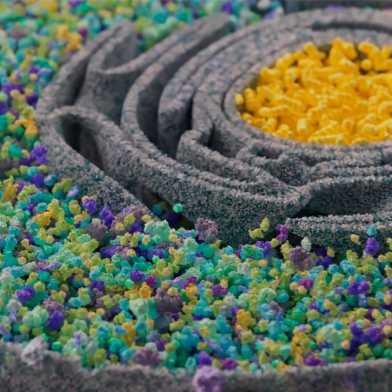
Using a new method, researchers at ETH Zurich can measure alterations in the social network of proteins in cells. This work lays the foundation for the development of new drugs to treat diseases such as cancer and Alzheimer’s.
Cancer researcher Andrea Alimonti honoured
News
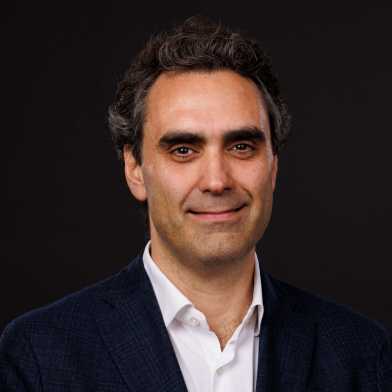
He studies cancer cells and their cellular environment in order to new therapies. Now, ETH Zurich Professor Andrea Alimonti is being awarded the Cloëtta Prize.
University funding: a national debate is needed
- News
- Zukunftsblog
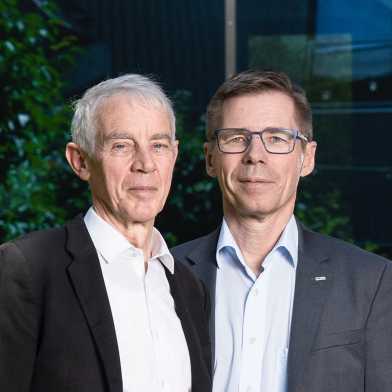
EPFL and ETH Zurich Presidents Martin Vetterli and Joël Mesot consider high tuition fees as in the English-speaking world to be the wrong approach to improving the financial situation of the two universities. Students should be seen as success factors for our country and not as cash cows.
“You can ask a chatbot things you might not dare to ask in a lecture”
News
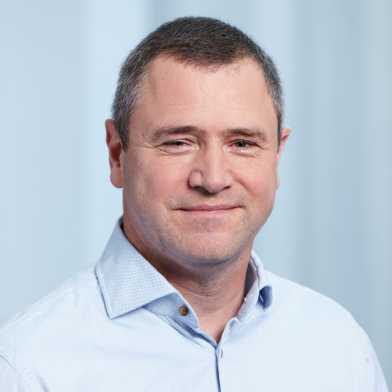
Where is generative AI already proving its worth in teaching and what are its limits? Will avatars soon replace lecturers? In this interview, Jan Vermant, Vice Rector for Curriculum Development, talks about trends at ETH and his own experiences.
Ottobock.X3: Smart leg prosthesis at the Cybathlon
- Homehero
- News
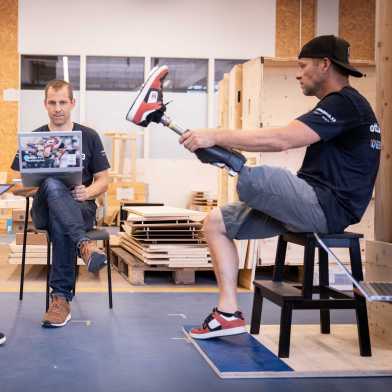
For those with a conventional leg prosthesis, climbing stairs and negotiating uneven terrain are almost insurmountable obstacles. But drawing on ETH expertise, Team Ottobock.X3 has now designed an intelligent prosthesis that helps its wearer move about more freely.
Record-breaking laser pulses
News
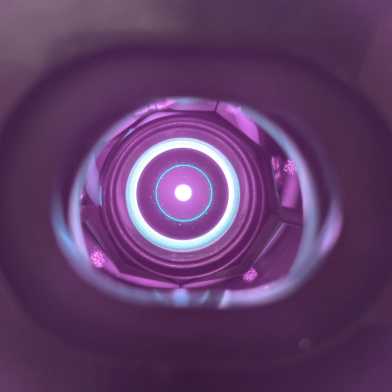
Researchers at ETH Zurich have developed a laser that produces the strongest ultra-short laser pulses to date. In the future, such high power pulses could be used for precision measurements or materials processing.
A stiff material that stops vibrations and noise
News
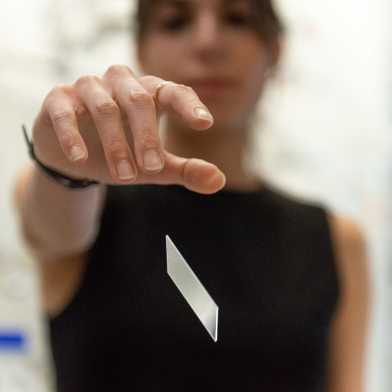
Materials researchers have created a new composite material that combines two incompatible properties: stiff yet with a high damping capacity.
ETH Zurich remains in top place in THE Rankings
News
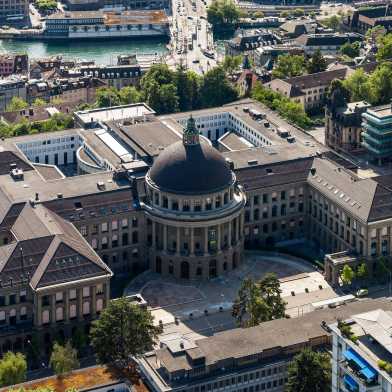
ETH Zurich has once again been recognised as one of the world’s top universities in the latest Times Higher Education (THE) Rankings. The rankings also identify areas where the university has potential for further development.
Overcoming modernism’s blinkered view
Category

Mariam Issoufou is one of Africa’s most sought-after architects. She has held the position of Professor of Architecture Heritage and Sustainability at ETH Zurich since 2022.
ETH continuing education course addresses ethics in AI
News
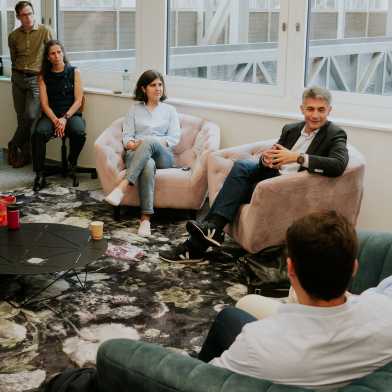
The first edition of the CAS ETH Machine Learning in Finance and Insurance course is coming to an end. Participants particularly value the programme’s combination of technology, ethics and practice with a view to making responsible use of artificial intelligence at their companies.
How four-legged robots and smart belts help people overcome everyday barriers
- News
- Homehero
- Globe magazine
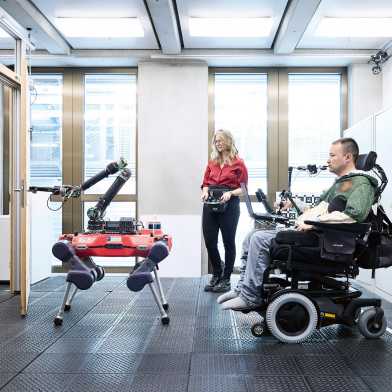
In the international Cybathlon competition, people with physical disabilities undertake routine tasks with the aid of assistive technology that can be seamlessly integrated into everyday life. Below, we present three ETH teams that will be putting their innovative solutions to the test at this October’s event.
ETH Zurich and EPFL enhance collaboration to boost AI in Switzerland
News

ETH Zurich and EPF Lausanne (EPFL) are intensifying their collaboration in artificial intelligence (AI). They have founded the Swiss National AI Institute (SNAI) with the aim of addressing challenges in AI by leveraging their broad scientific expertise. Funding for the related research programs has been secured.
How a bacterium becomes a permanent resident in a fungus
- News
- Homehero
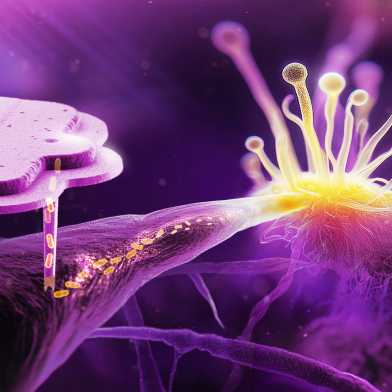
An organism as a tenant in another - in biology, this often works quite well. ETH researchers have now shed light on how such a partnership of a cell in a cell can establish.
"Don’t become complacent about the things you already know."
News
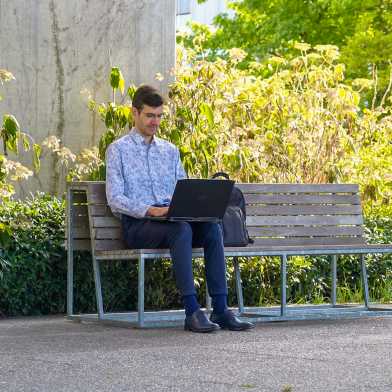
When Kiril Vasilev started his Master's in Data Science at ETH Zurich, he was taken aback by the intensity of the workload. In the latest episode of the "Student Stories" series, he shares how he adapted to this demanding new routine.
SightGuide: smart vision assistance at the Cybathlon
News
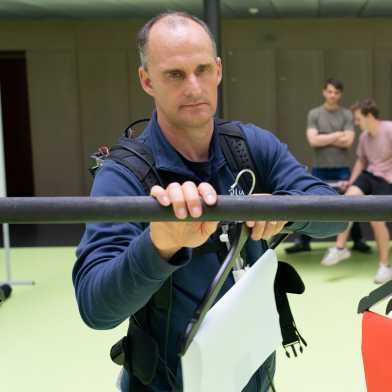
This year’s Cybathlon introduces a new discipline, the Vision Assistance Race. Lining up to go is Team SightGuide – a joint venture between UZH, ZHAW and ETH.
Crop forecasting from space
News

ETH spin-off Terensis is able to forecast the harvest yield and climate risks such as droughts and frost with the help of satellites. This not only helps farmers to plan. Authorities and insurance companies can also predict damage more efficiently.
The importance of work increases with age
- Press release
- News

The thirteenth edition of the Swiss HR Barometer focusses on the topic of ‘Sense and nonsense at work’. The majority of the 2032 respondents in Switzerland feel that their work is important and meaningful, with this becoming increasingly important from the age of 55. However, almost half feel alienated to some extent, and the perceived boredom has increased slightly compared to 10 years ago.
From cell partitions to dams: These barriers are being investigated by ETH researchers
- Globe magazine
- Homehero
- News

Research areas at ETH Zurich span barriers in a wide variety of fields, including cell biology, drug delivery and spatial planning. Below, we look at examples from six different disciplines.
What are the key requirements of an education system that ensures that everybody has the same opportunities?
- News
- Globe magazine
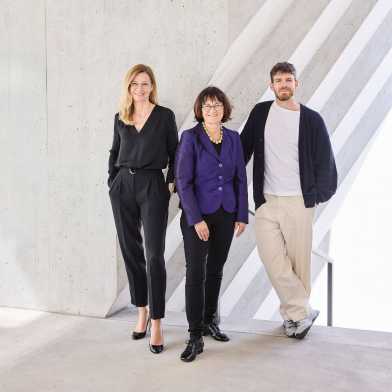
ETH doctoral student Rolf Imseng comes from a working class family. Together with ETH Vice-President Julia Dannath and ETH Professor Ursula Renold, he talks about the hurdles that his background brings with it. A conversation about social mobility in Switzerland.
Is there a perfect diet for a long life?
- News
- Homehero
- Globe magazine
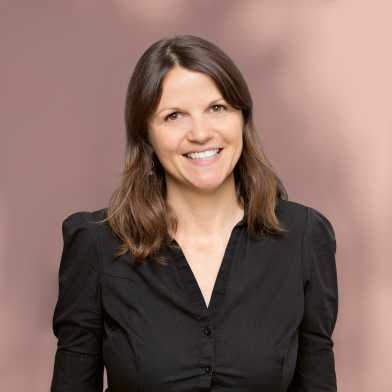
Nina Cabezas Wallscheid, Professor of Stem Cell Biology and Ageing, is researching the impact of nutrition on the human blood system. Her research team aims to identify the ideal diet for a long and healthy life.
How an ETH alumnus ended up growing coffee in Zambia
- News
- Homehero
- Globe magazine
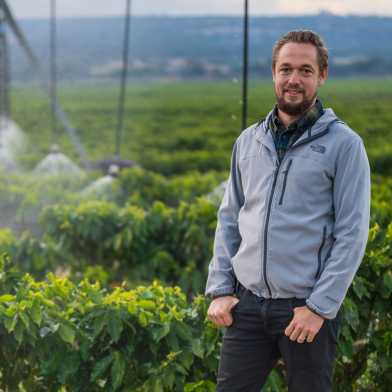
ETH agronomist Fridolin Stocker worked on Swiss farms before discovering his fascination for Africa. Today he manages a coffee farm in Zambia.
Running without limits: When air creates no resistance
- Homehero
- News
- Globe magazine
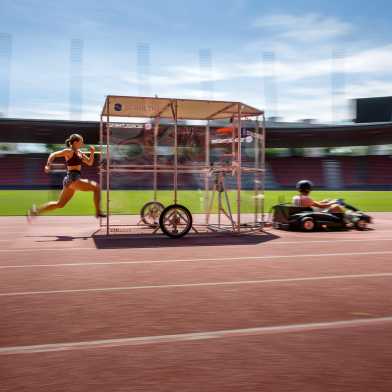
ETH student and top sprinter Géraldine Frey is preparing for her races with an innovative piece of equipment. Developed at ETH Zurich, the Airshield reduces aerodynamic drag, enabling athletes to train at speeds above their normal pace.
“Discipline is an important factor”
News
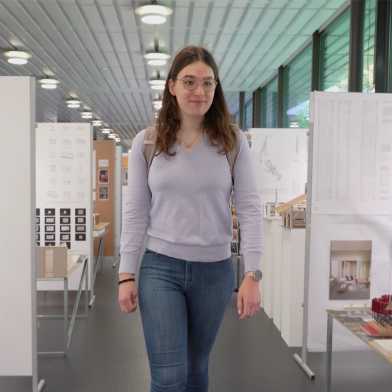
Michelle Halbheer started her studies at ETH feeling uncertain. In a video from the "Student Stories" series, she shares how she overcame her initial doubts and reflects on what she would change if she could start over.
Embracing failure
- News
- Homehero
- Globe magazine
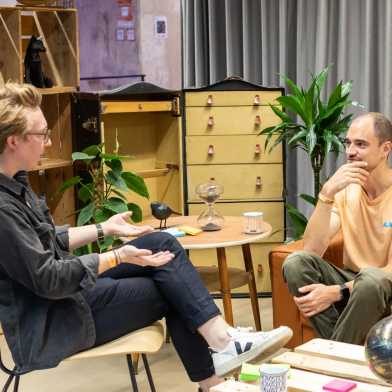
Challenges and setbacks can strengthen students’ resilience and are an important aspect of learning. This is why the Student Project House adopts the “fail-forward” approach. An essay by Moritz Mussgnug about mistakes and failure.
Exploring the fascinating science behind cooking
News
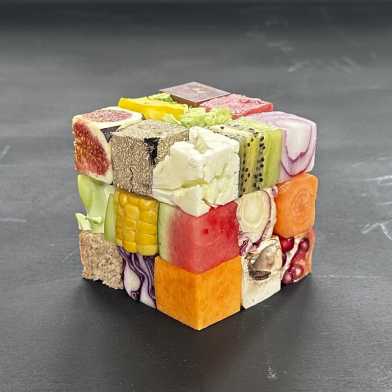
Thomas Michaels, ETH Zurich Professor of Soft and Living Matter Physics, launches the ETH show series "Cook the Science". Together with well-known chefs and food producers, he will present the fascinating science behind cooking, from the basic physical and chemical properties of food to how these change during cooking.
Antidepressant shows promise for treating brain tumours
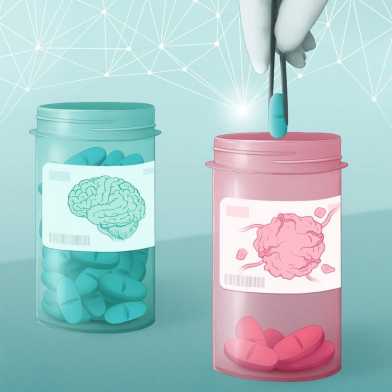
Researchers at ETH Zurich have used a drug screening platform they developed to show that an antidepressant, currently on the market, kills tumour cells in the dreaded glioblastoma – at least in the cell-culture dish.
Fifteen professors appointed
News
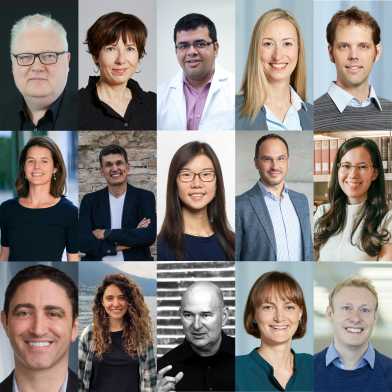
At its meeting of 18 and 19 September 2024 and upon application of Joël Mesot, President of ETH Zurich, the ETH Board appointed fifteen professors. The Board also awarded the title of "Professor of Practice" once.
How Ukraine can rebuild its energy system
News

Researchers at ETH Zurich have been working with researchers from Ukraine and Germany to investigate how to rebuild Ukraine’s destroyed energy infrastructure based on renewable energy. They have determined that solar and wind energy would quickly deliver a distributed power supply system and prevent corruption.
"I’m glad I didn’t give up."
News
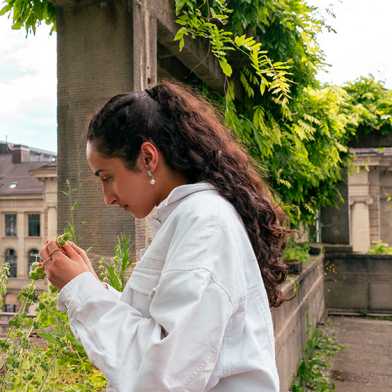
Fatima Ali Ebrahim struggled during her first year at ETH Zurich, finding lectures difficult and knowing hardly anyone. She even considered dropping out. In the video series "Student Stories," she shares what helped her turn things around and why she now loves studying at ETH.
For UN Agenda: data gaps detected in 193 countries
News
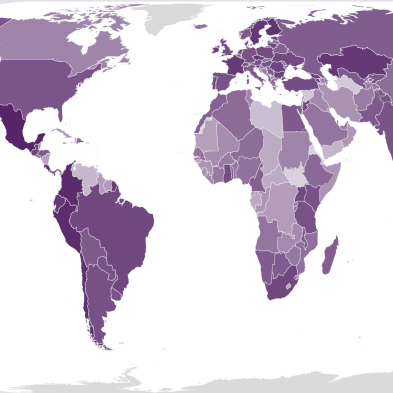
To make informed decisions, governments and international organisations need data. The United Nations has been analysing the global availability of such data together with ETH Zurich. This has brought to light some surprising insights.
New research infrastructure: 'Alps' supercomputer inaugurated
Press release
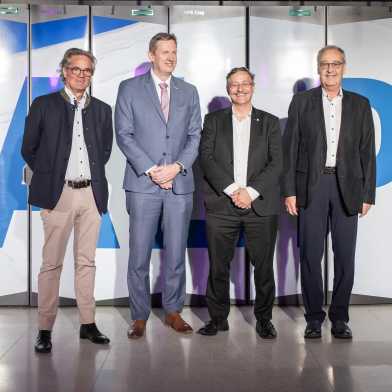
On 14 September, ETH Zurich officially inaugurated the new 'Alps' supercomputer at the Swiss National Supercomputing Centre (CSCS) in Lugano. The celebrations in Lugano were attended by Federal Councillor Guy Parmelin and well-known personalities from the worlds of science and politics.
New method in the fight against forever chemicals
News
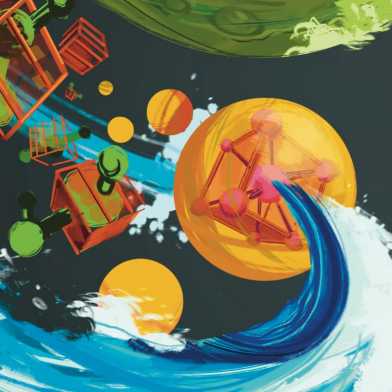
Researchers at ETH Zurich have developed a new way to break down a dangerous subgroup of PFAS known as PFOS. With the help of nanoparticles and ultrasound, piezocatalysis could offer an effective alternative to existing processes in the future.
ETH Zurich is growing faster than in previous years
Press release
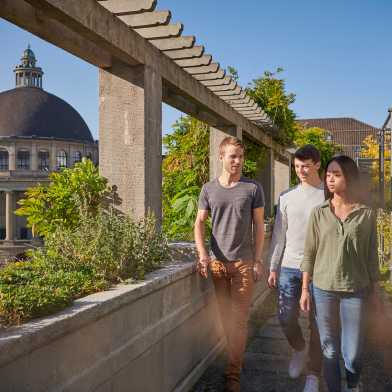
On 16 September, ETH Zurich will welcome about 27,000 students for the Autumn Semester, according to provisional figures. The growth in student numbers continues apace.
ETH Industry Day 2024 with more on offer and for the first time in the heart of Zurich
News
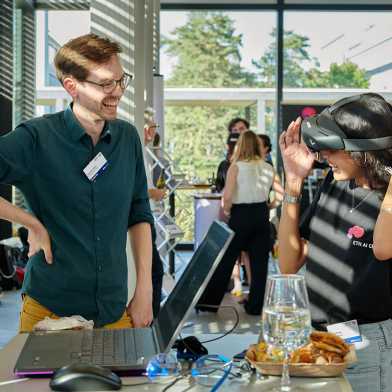
For the first time in its 12-year history, ETH Industry Day, which aims to bring together Swiss business with the university’s researchers and start-ups, is taking place in the heart of the City of Zurich. It is becoming part of Open-i, the event succeeding the Swiss Innovation Forum.
Printing with earth-based materials
News
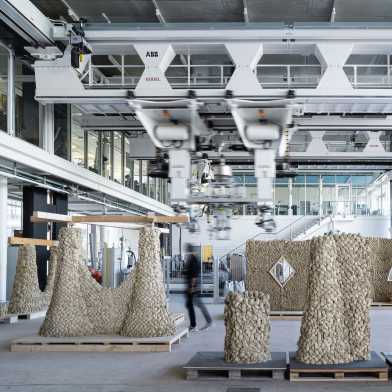
ETH Zurich researchers have developed a fast, robot-assisted printing process for earth materials that does not require cement.
Artificial muscles propel a robotic leg to walk and jump
News
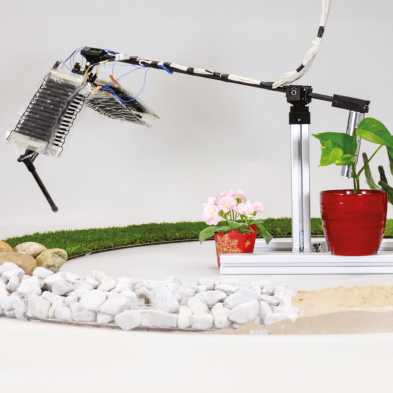
Researchers at ETH Zurich and the Max Planck Institute for Intelligent Systems have developed a robotic leg with artificial muscles. Inspired by living creatures, it jumps across different terrains in an agile and energy-efficient manner.
One-way street for sound waves
News
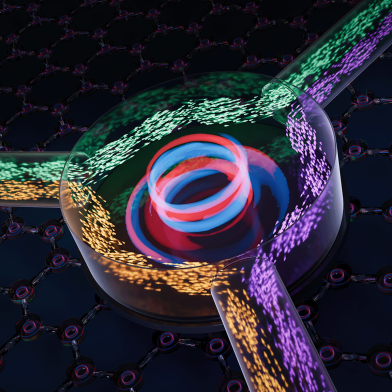
Researchers at ETH Zurich have managed to make sound waves travel only in one direction. In the future, this method could also be used in technical applications with electromagnetic waves.
Flexible tentacle electrodes precisely record brain activity
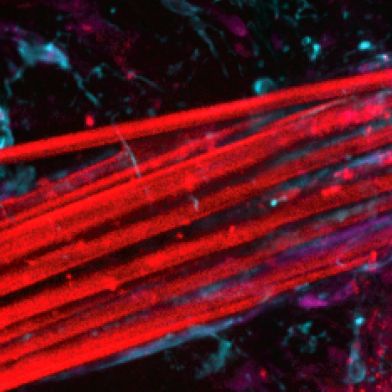
Researchers at ETH Zurich have developed ultra-flexible brain probes that accurately record brain activity without causing tissue damage. This opens up new avenues for the treatment of a range of neurological and neuropsychiatric disorders.
AMZ Racing: Electric student speedster with an historic season
News
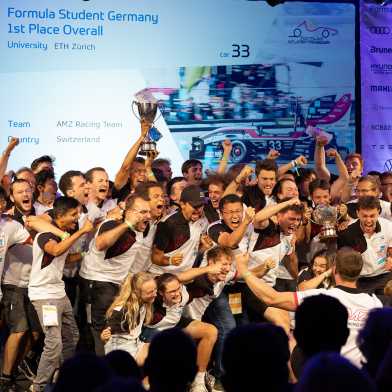
Just last year, the Academic Motorsports Club Zurich AMZ reclaimed a world record title. Now, the student team has wrapped up their Formula Student racing season this year with an unmatched performance that exceeds that of all other student race teams in the circuit.
New pharmaceutically active substances from billions of newly combined molecules
News
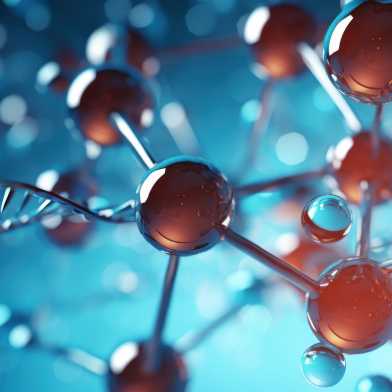
Pharmaceutical researchers often find new pharmaceutically active substances only by sifting through large collections of chemical compounds. Chemists at ETH Zurich have now made critical progress on a specific process for generating and searching these collections.
The state of biodiversity is not a matter of opinion
- News
- Zukunftsblog
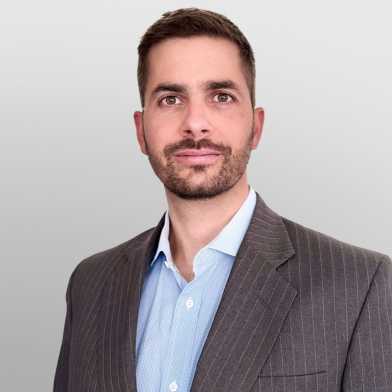
Ahead of the vote on the biodiversity initiative, basic insights on the state of biodiversity and habitats in Switzerland are being discussed controversially. Loïc Pellissier counters by holding up the scientific consensus.
Taking a closer look
- News
- Homehero
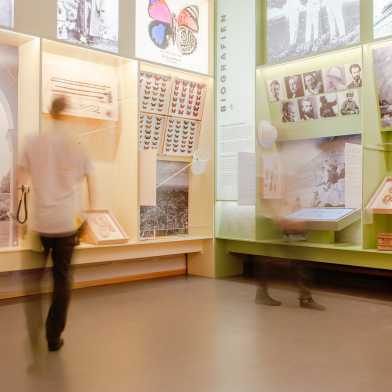
The exhibition “Colonial Traces – Collections in Context” opens today in the extract exhibition space. It explores the past of objects from the ETH Zurich collections and sheds light on the connection between the natural sciences and colonialism.
Iron as an inexpensive storage medium for hydrogen
News
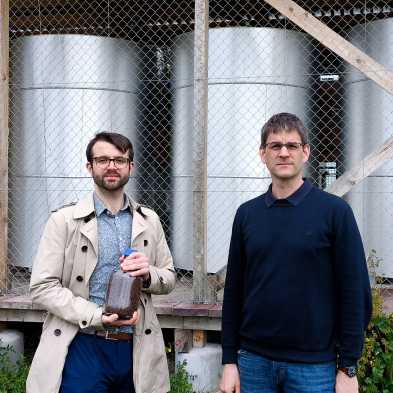
Researchers at ETH Zurich are using iron to store hydrogen safely and for long periods. In the future, this technology could be used for seasonal energy storage.
Chemical plastics recycling is ready to go
News

Scientists around the world can now go full throttle in their research into chemical plastics recycling. Researchers at ETH Zurich have laid important foundations for this by showing that it’s all about the stirring.
For a world without barriers
- Press release
- Homehero
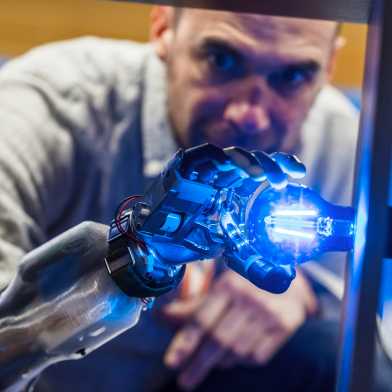
From 25 to 27 October, the third Cybathlon will take place in the Swiss Arena in Kloten, Switzerland. This is the world’s largest competition in which people with disabilities master everyday tasks with the help of newly developed assistive technologies. For this Cybathlon, the six existing disciplines were further developed, and two new ones added: a race with intelligent vision assistive technologies and one with assistant robots.
Operating from 9,300km away
Press release
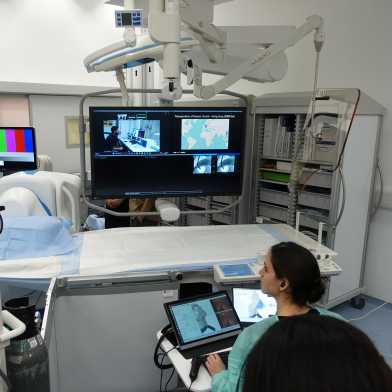
Researchers at ETH Zurich and The Chinese University of Hong Kong have succeeded for the first time in using remote control to perform a magnetic endoscopy on a live pig. The researchers controlled the probe from Zurich while the animal was on the operating table in Hong Kong.
ETH researchers receive SNSF grants
News

Four researchers from ETH Zurich have successfully applied for Consolidator Grants funded by the Swiss National Science Foundation.
Separating the physical and psychosocial causes of pain
- News
- Homehero

Not all pain is the same. Depending on the cause, it requires different therapies. A team led by ETH Zurich has now developed a method that enables physicians to better distinguish between physical and psychosocial pain.
Planets contain more water than thought
News

Most of a planet’s water is generally not on its surface but hidden deep in its interior. This affects the potential habitability of distant worlds, as shown by model calculations of researchers at ETH Zurich and Princeton University.
Preparing Leaders for the Digital Future and AI
News
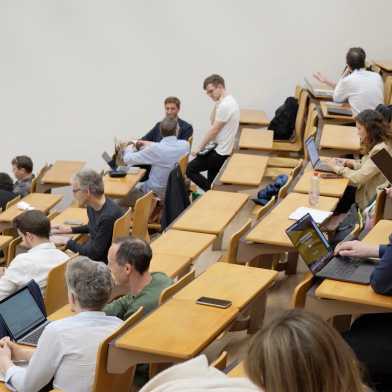
Machine learning, AI and new technologies are rapidly changing industry. The CAS ETH in AI and Software Development is aimed at managers who want to make better informed decisions for their companies. It is part of the new MAS in AI and Digital Technology.
Beige fat cells with a “Sisyphus mechanism”
News

A new class of fat cells makes people healthier. The cells consume energy and produce heat through seemingly pointless biochemical reactions.
ETH research supply support to the Swiss state
Globe magazine
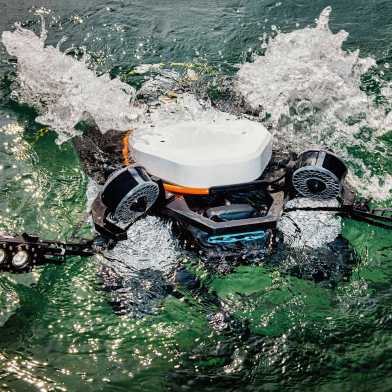
From devising forecasting models for the Federal Finance Administration and describing the latest trends in civil protection, ETH researchers routinely supply vital support to the Swiss state and help drive innovation.
Millions of years for plants to recover from global warming
News
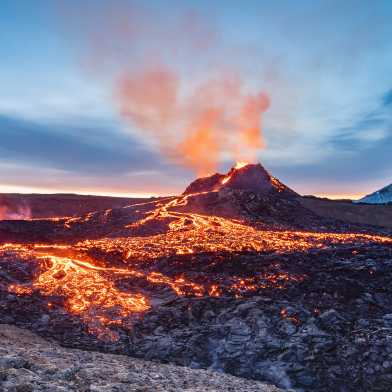
Catastrophic volcanic eruptions that warmed the planet millions of years ago shed new light on how plants evolve and regulate climate. Researchers reveal the long-term climate effects of disturbed natural ecosystems - its implications both in geological history and for today.
Sport or snack? How our brain decides
News

The brain chemical orexin is crucial when we choose between sport and the tasty temptations that beckon everywhere we turn. This research finding could also help people who find it difficult to motivate themselves to exercise.
From Earth to distant worlds: ETH department is now called Earth and Planetary Sciences
News

The Department of Earth Sciences at ETH Zurich has been renamed the Department of Earth and Planetary Sciences, abbreviated to D-EAPS, effective 1 August. Head of Department Johan Robertsson explains why the renaming was both logical and necessary.
How researchers turn bacteria into cellulose-producing mini-factories
News
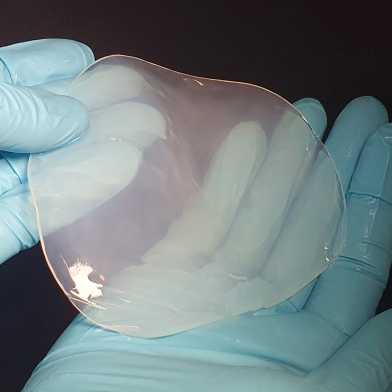
ETH researchers have modified certain bacteria with UV light so that they produce more cellulose. The basis for this is a new approach with which the researchers generate thousands of bacterial variants and select those that have developed into the most productive.
These ETH students are competing in the Olympics
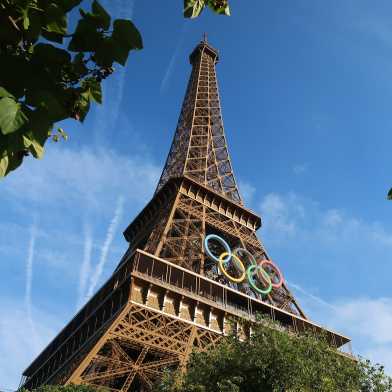
Tartan track instead of therapeutics. Rowing technique instead of control technology. Three students from ETH Zurich are taking part in the 2024 Olympic Games in Paris. Get to know them in these short portraits.
How we can cool our cities
- Zukunftsblog
- News
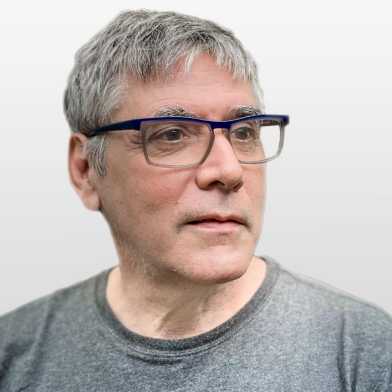
Southern Europe is currently battling a heat wave. Jan Carmeliet explains how cities can tackle the summer heat. It is a balancing act that calls for finely tuned measures.
Preventing cancer cells from colonising the liver
News
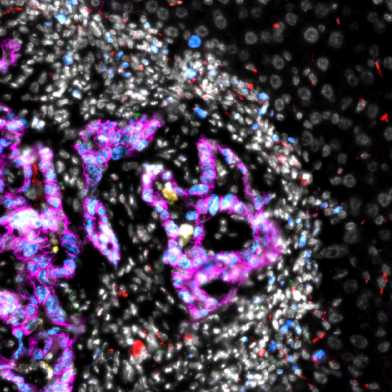
Researchers at ETH Zurich have uncovered how colorectal cancer cells colonise the liver. Their findings could open up new ways to suppress this process in the future.
How satellite images help to protect forests
News

Earth seen from space: ETH spin-off askEarth facilitates access to satellite images for environmental and climate monitoring. It supports businesses in combatting deforestation.
We should not underestimate the increasingly warm summer temperatures
- News
- Zukunftsblog
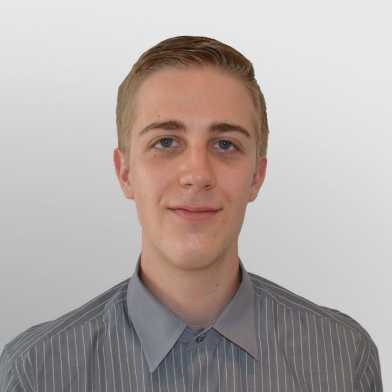
Despite a wet and grey June, summers in Switzerland are getting hotter than expected. The increased summer temperatures harbour risks that we are not well prepared for, says Dominik Schumacher.
A hydrogel implant to treat endometriosis
News
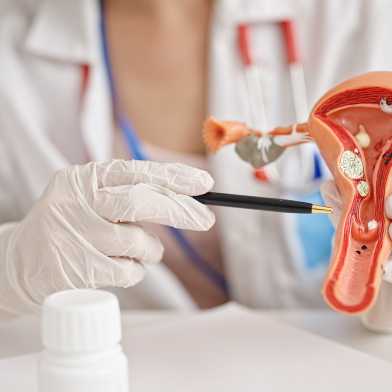
Researchers from ETH Zurich and Empa have developed a hydrogel implant that can help prevent endometriosis, a condition that affects a great many women. This innovation also acts as a contraceptive.
How climate change is altering the Earth’s rotation
News
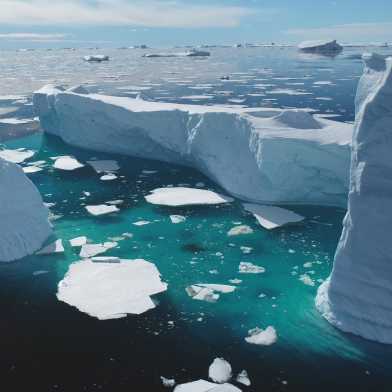
When the Earth’s ice masses melt, the way the planet rotates also changes. Researchers at ETH Zurich have now been able to show how climate change is altering the Earth’s axis of rotation and the length of the day. The speed of rotation, which was hitherto mainly influenced by the moon, will now also depend much more on the climate.
Six professors appointed
News
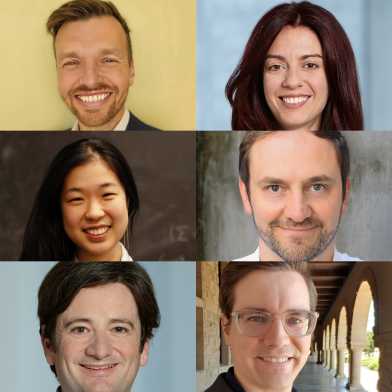
At its meeting of 11 and 12 July 2024 and upon application of Joël Mesot, President of ETH Zurich, the ETH Board appointed six professors. The Board also awarded the title of "Professor" two times and the title of "Professor of Practice" once.
Running without air resistance
News
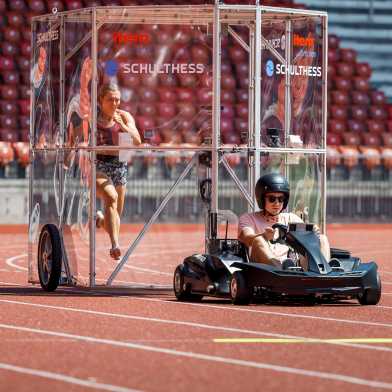
A newly developed airshield supports track and field athletes such as Mujinga Kambundji with overspeed training.
Waging a war for land and soil
- News
- Zukunftsblog
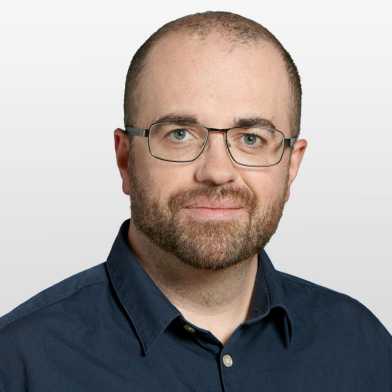
The war in Ukraine is also a war for soil. Sebastian Dötterl, Professor for Soil Resources at ETH Zurich explains what makes Ukrainian soil so valuable and why it will become even more geopolitically significant.
Mining rare earth metals from electronic waste
News
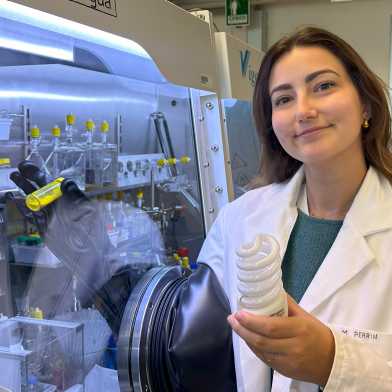
ETH researchers are developing a process inspired by nature that efficiently recovers europium from old fluorescent lamps. The approach could lead to the long-awaited recycling of rare earth metals.
Training for the transport of the future
- News
- Homehero
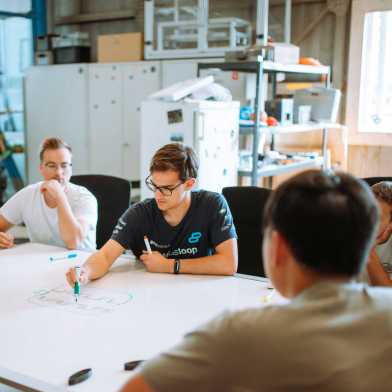
This year’s European Hyperloop Week is being held in Zurich. Student engineering teams will present their prototypes to a jury and compete against each other in different categories. ETH Zurich is represented with the Swissloop project.
Innovative battery design: more energy and less environmental impact
News
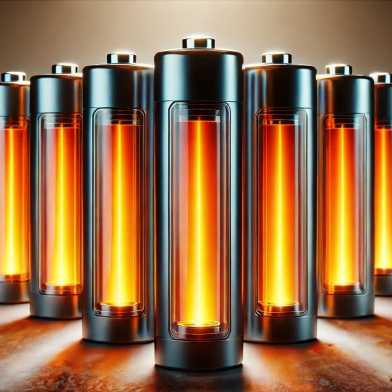
A new electrolyte design for lithium metal batteries could significantly boost the range of electric vehicles. Researchers at ETH Zurich have radically reduced the amount of environmentally harmful fluorine required to stabilise these batteries.
The President of the ETH Alumni Association on new networking programmes and untapped potential
- Globe magazine
- News
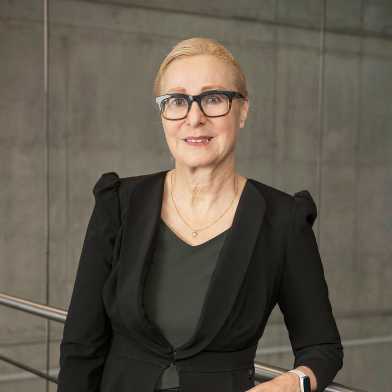
Job platform, knowledge network, mentoring and cross-generational exchange: President of the ETH Alumni Association Jeannine Pilloud talks in an interview about the upcoming transformation of her organisation.
Light green hydrogen will do

Whether sustainably produced hydrogen needs to be 100 percent green is currently under debate. Using the production of ammonia and artificial fertiliser as examples, researchers have calculated that "nearly sustainable" hydrogen would be better in the end.
New class of Mars quakes reveals daily meteorite strikes
News
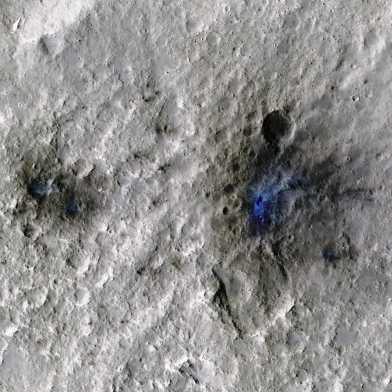
An international team of researchers combine orbital imagery with seismological data from NASA’s Mars InSight lander to derive a new impact rate for meteorite strikes on Mars. Seismology also offers a new tool for determining the density of Mars’ craters and the age of different regions of a planet.
Researchers at ETH Zurich develop the fastest possible flow algorithm
- Homehero
- News

Rasmus Kyng has written the near-perfect algorithm. It computes the maximum transport flow at minimum cost for any kind of network – be it rail, road or electricity – at a speed that is, mathematically speaking, impossible to beat.
AI reality lags the hype in Swiss tech industries
News

Everyone talks about Artificial Intelligence but its current adoption rates are low in the Swiss tech industry, especially in manufacturing-related applications. This is one conclusion of a survey conducted by ETH Zurich in collaboration with Swissmem and Next Industries. Professor Torbjørn Netland, responsible for the report, explains why Swiss tech companies are still faring well in an international comparison and how they can release the potential.
Why people resort to lynching
News

Why do civilians take the law into their own hands? Using Mexico as an example, ETH researcher Enzo Nussio shows how it’s a combination of a weak state and strong local communities.
"Anyone who wants to do research in Singapore should get in touch now!"
News
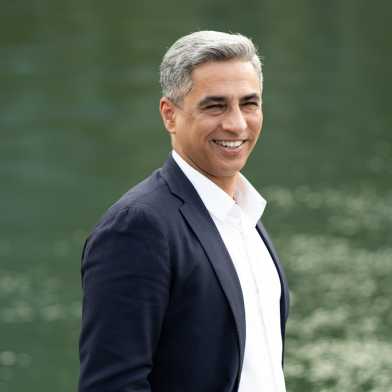
Manu Kapur has been Director of the Singapore ETH Centre (SEC) since the beginning of the year. In this interview, he talks about which research programmes will be continued in Singapore, which new programmes will be created, and how researchers from across the ETH Domain can get involved in the SEC.
Gold membrane coaxes secrets out of surfaces
News
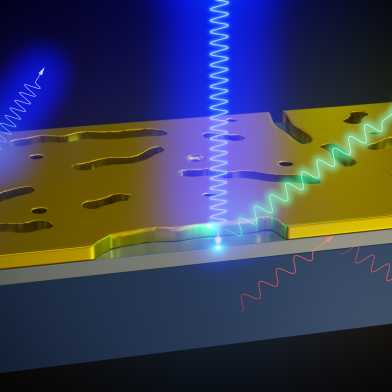
Using a special wafer-thin gold membrane, ETH researchers have made it significantly easier to study surfaces. The membrane makes it possible to measure properties of surfaces that are inaccessible to conventional methods.
This researcher reads rivers
- News
- Homehero
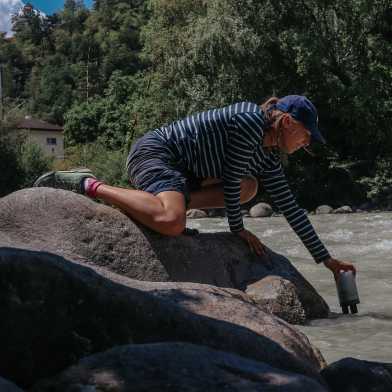
Jessica Droujko’s start-up, Riverkin, measures the water quality of freshwater ecosystems and helps quantify and respond to risks such as floods and pollution. Thanks to an ETH Pioneer Fellowship, her work is now picking up speed.
At the intersection of robotics and machine learning
- Homehero
- News
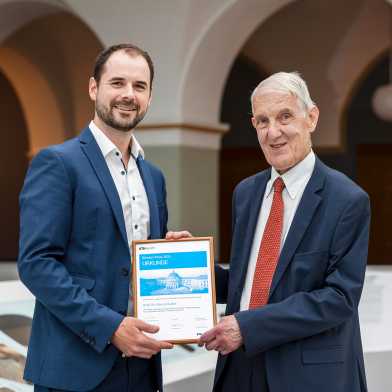
Marco Hutter, a pioneer in mobile robotics, has been awarded this year’s Rössler Prize, the most highly endowed research award at ETH Zurich.
An alternative way to manipulate quantum states
News
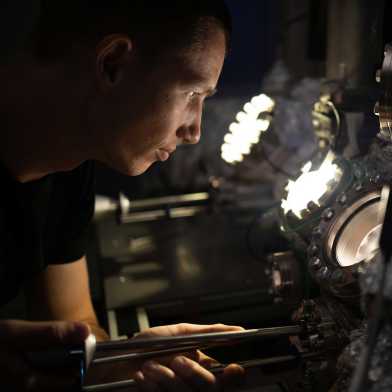
Researchers at ETH Zurich have shown that quantum states of single electron spins can be controlled by currents of electrons whose spins are evenly aligned. In the future, this method could be used in electronic circuit elements.
How SMEs benefit from ETH Zurich
Globe magazine
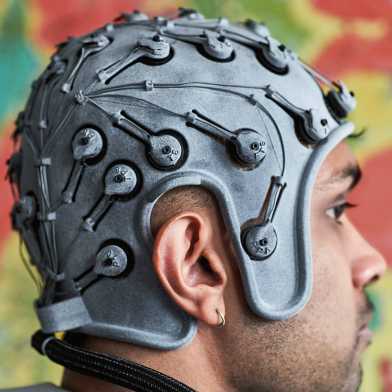
ETH professor Mirko Meboldt helps Swiss SMEs find the right technology to tackle the challenges they face. His early prototypes give companies a solid basis for decision-making – and the confidence to take things further.
CLIMADA scoops first prize at Venture Awards
News
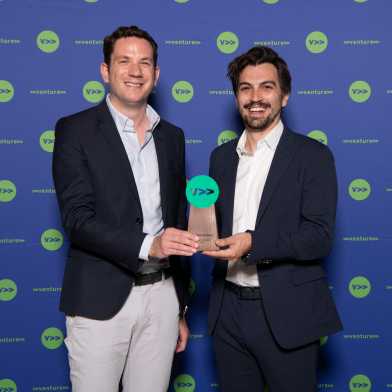
Eighteen start-ups were awarded prizes at this year’s Venture Awards, including five ETH Zurich spin-offs. CLIMADA won first prize in the Finance & Insurance category.
Using radar to study glaciers
- Globe magazine
- Homehero
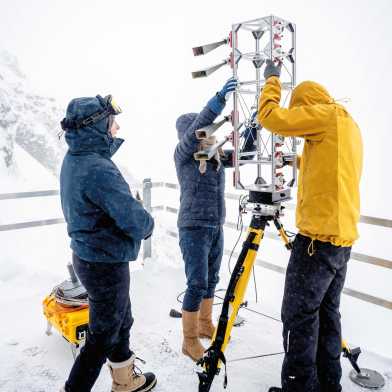
ETH researchers are using radar to scan the snow and ice on the Jungfraujoch. Sometimes, scaling an icy peak is the only way for scientists to fully understand satellite data.
How the ETH start-up ecosystem works
- Globe magazine
- Homehero

In 2023, a record-breaking 43 spin-offs were founded at ETH Zurich. Why are ETH spin-offs so successful? Tracing the typical path of a start-up.
How top-flight researchers draw global companies to Switzerland
Globe magazine
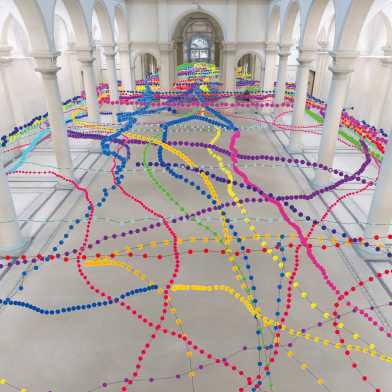
ETH’s outstanding reputation attracts top-flight researchers from all over the world. This pool of talent makes Zurich a major draw for global companies such as Microsoft.
From solar fuel and anti-fog glasses to manufacturing innovation
- Globe magazine
- Homehero
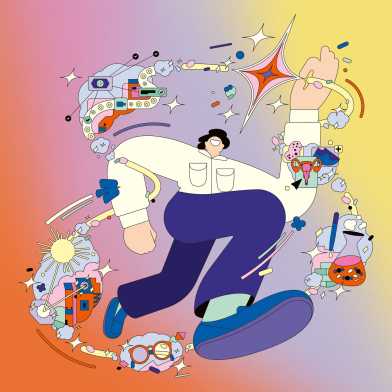
The numerous spin-offs and patents generated at ETH Zurich are the driving force behind innovation in the Swiss economy. We present five of them.
From student project to personalised sandals from a 3D printer
- Globe magazine
- Homehero
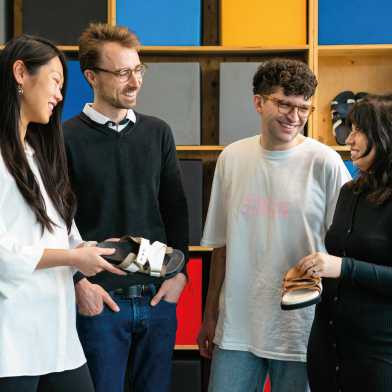
Start-up URBNC 3 produces sustainable and personalised sandals with the aid of digital technology. The start-up took its first steps at the Student Project House of ETH Zurich.
Interview with a materials scientist: “Robots could biodegrade at the end of their life cycle”
- Globe magazine
- Homehero
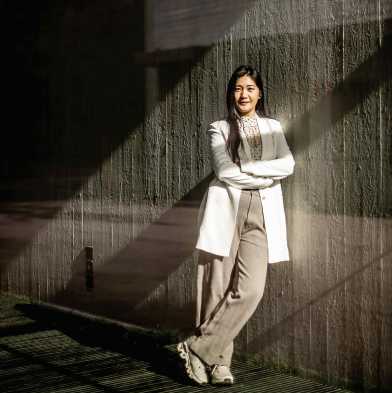
Hedan Bai thinks robots should help people and be compostable. She is working on creating robots made of soft materials that can do both.
ETH alumni as drivers of innovation
- Globe magazine
- Homehero
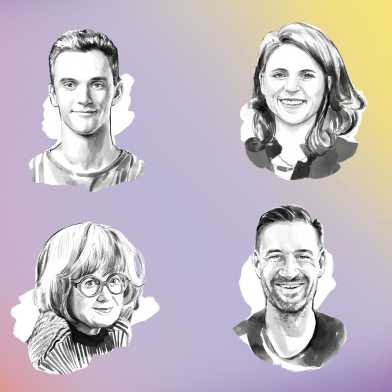
When it comes to innovation, Switzerland’s greatest capital is its highly qualified workforce. But what makes an innovation successful? And what makes an idea innovative in the first place? Twelve ETH Zurich alumni share their thoughts and experiences.
“It is quite clear that our commitment is gradually bearing fruit”
News
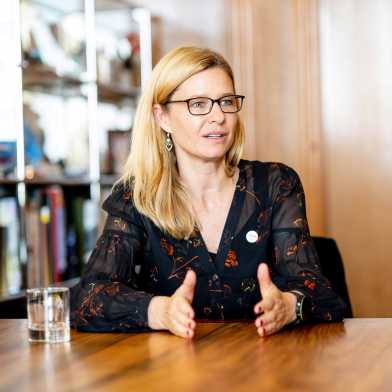
Since 1991, 14 June has in Switzerland traditionally stood under the banner of feminist campaigns and causes. Julia Dannath, Vice President for Personnel Development and Leadership, explains in an interview why commitment to equal opportunities and gender equality is still needed three decades later – including at ETH Zurich.
Gaining a better understanding of brittle bone disease – without animal experiments
News
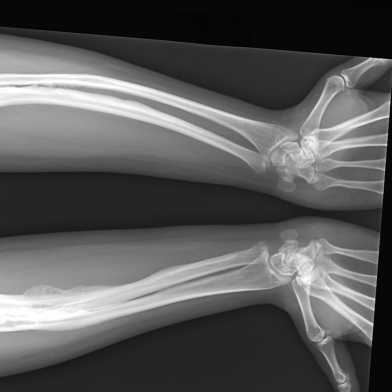
Researchers at ETH Zurich have developed a cell-based bone model to help investigate the cause of this genetic condition.
Electrifying industry with flexible heat pumps
- News
- Homehero
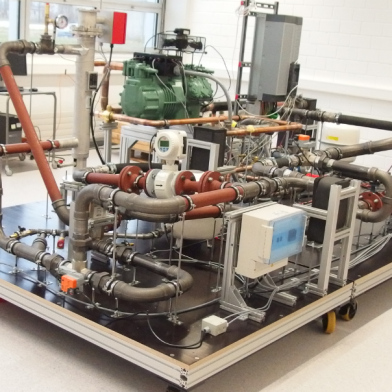
Researchers from ETH Zurich and the Eastern Switzerland University of Applied Sciences have developed a novel solution for heat pumps. Using this new approach, companies can generate carbon-free process heat at temperatures of up to 200 degrees Celsius while also drastically reducing the number of different heat pumps required.
Medicine has yet to tap the potential of digitalisation
Zukunftsblog
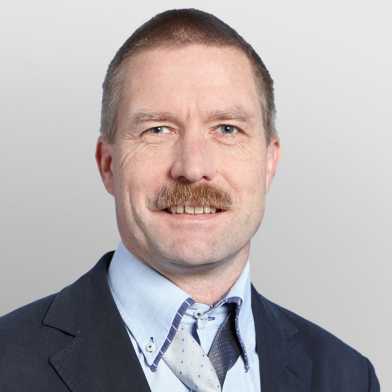
Despite digitalisation being a mainstay in many areas of life, the healthcare sector is lagging behind. Jörg Goldhahn explains what the medical field can learn from banks and travel companies.
The future of medicine begins in the Gloria Cube
News
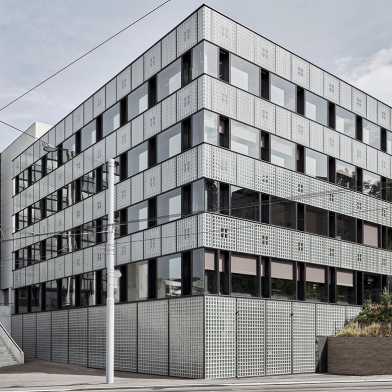
The Gloria Cube is ETH Zurich’s newest building in the Zurich City university district. Teaching, research and translation are all carried out in the service of health and medicine here. At the end of last week, ETH Zurich celebrated the laboratory and research building’s inauguration.
How can we tax electric cars without slowing down the electromobility transition?
- Zukunftsblog
- News

The federal government has plans to tax electric vehicles to secure funding for road infrastructure. However, a new levy could delay the switch to electromobility. Alessio Levis explains how this dilemma could be resolved.
Researchers identify key differences in inner workings of immune cells
News
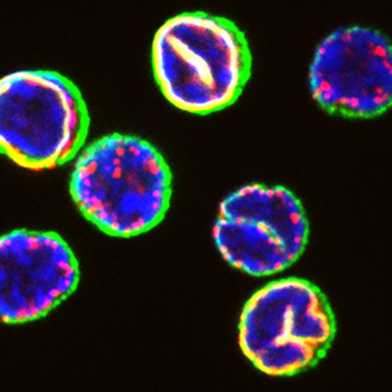
Using machine-learning methods, researchers at ETH Zurich have shown that more than half of all killer T cells exhibit nuclear invaginations, or folds in the cell’s nuclear envelope. Thanks to this particular cellular architecture, such cells are able to mount a faster and stronger response to pathogens.
The mystery of cathodic corrosion protection clarified
News

Cathodic corrosion protection is a widely used technique for protecting steel-based infrastructure from corrosion. ETH researchers have now clarified the detailed mechanisms involved, thereby resolving a controversial issue that had preoccupied the engineering community for decades.
ETH Zurich again in seventh place
News
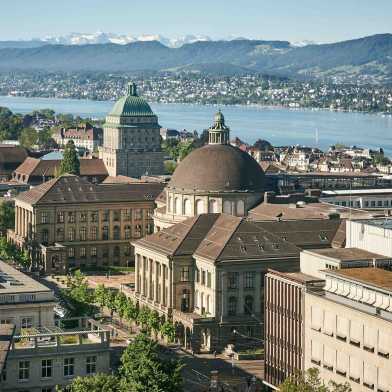
ETH Zurich maintains its excellent ranking from the previous year in the QS rankings just published. Alongside top scores for its academic reputation and international outlook, the university’s efforts in the area of sustainability have also helped it to retain seventh place. The faculty-student ratio remains the indicator in which the university scores lowest.
When stones start rolling
- Homehero
- News
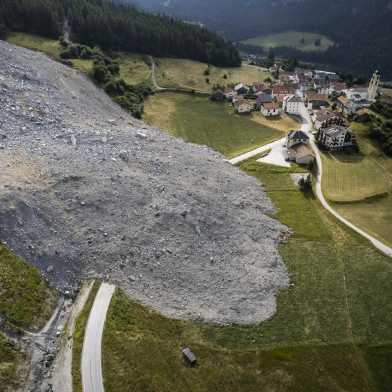
The landslide in Brienz (GR) in 2023 kept Switzerland on tenterhooks for weeks. Researchers from ETH Zurich, WSL and SLF used a model to provide a highly accurate blind prediction of where the sliding mass would come to rest. ETH Professor Johan Gaume explains how the model works and where its limitations lie.
"AI helps us to grasp more and more complex facts"
News
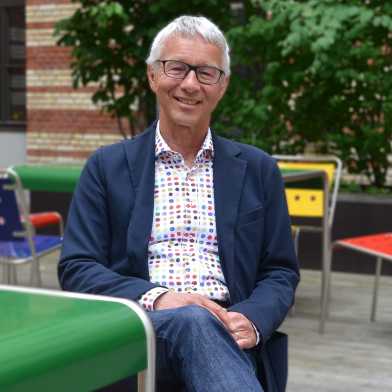
Since 2003, when Joachim Buhmann became an ETH professor, he has helped shape the explosive development of machine learning. It is not technical progress that worries him, but how society deals with it. Shortly before his retirement, he looks back on his academic career.
ETH Zurich sets course for Net Zero
News
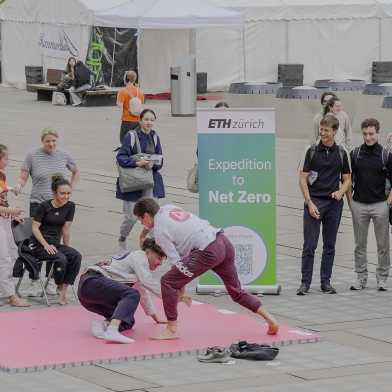
ETH Zurich announces its expedition towards climate neutrality today with pop-up events by students and the first Net Zero Day. The "ETH Net Zero" programme supports the reduction of emissions by 2030 and offers people plenty of ways to get involved.
Innovative materials and remarkable people
News
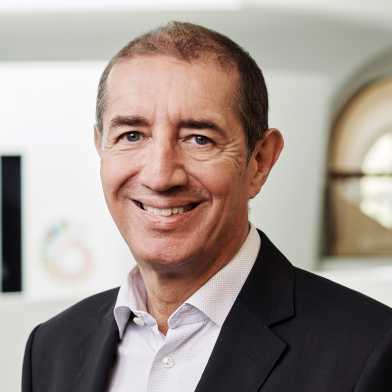
Paolo Ermanni researched novel composite materials at ETH for over a quarter of a century. His enthusiasm for materials was rivalled only by his passion for teaching. He will also go down in ETH history as the first Vice Rector for Continuing Education. To mark his retirement, we take a look back at his storied career.
Twelve professors appointed
News
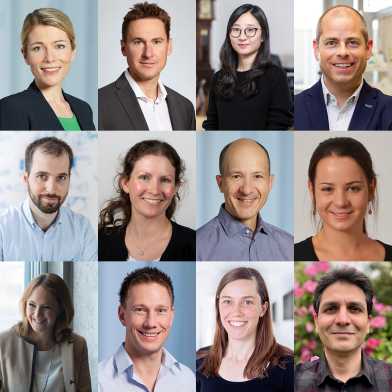
At its meeting of 22 and 23 May 2024 and upon application of Joël Mesot, President of ETH Zurich, the ETH Board appointed twelve professors. The Board also awarded the title of "Professor" four times and the title of "Professor of Practice" three times.
Former Swiss Federal Chancellor Thurnherr appointed ETH Professor
News
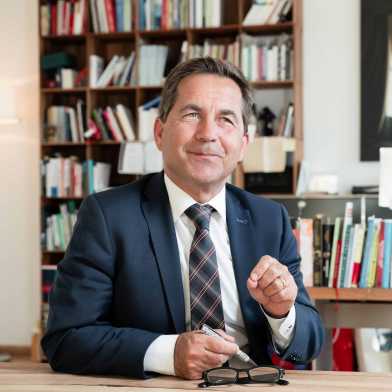
Walter Thurnherr was Chancellor and Chief of Staff of the Swiss Federal Council for eight years. With effect from October 2024, he will be a professor at ETH Zurich, where he will support the establishment of a School of Public Policy and contribute to a better understanding between academia and politics.
ETH students develop drones, robots and vehicles
- News
- Homehero
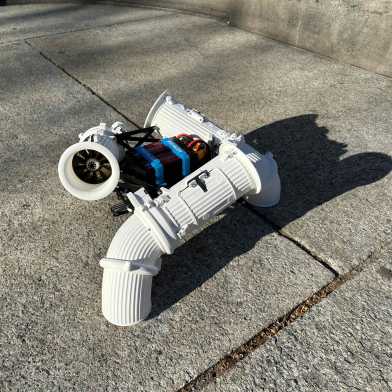
Racing cars, robots, aircraft: Bachelor’s students in the Department of Mechanical and Process Engineering spend two semesters working on a project in teams. They will be presenting their results on 28 May 2024.
Chocolate that harnesses the full potential of the cocoa fruit
News
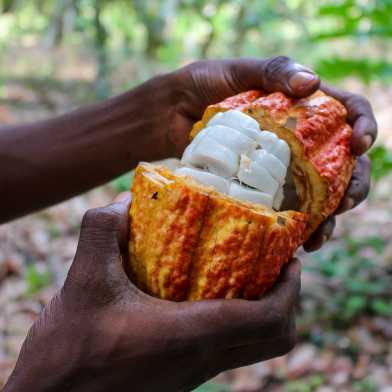
Researchers at ETH Zurich have teamed up with the food industry to produce a whole-fruit variety of chocolate. This helps increase the value creation of cocoa farming – and is healthier.
Thinking climate action, biodiversity and energy supply together
- Zukunftsblog
- News

Renewable energies are not the main driver of biodiversity loss. It is rather the other way round: renewables can limit climate change in order to preserve biodiversity. Cyril Brunner contextualises the trade-offs from a scientific perspective.
An architectural gem and cutting-edge research facility in Basel
Press release
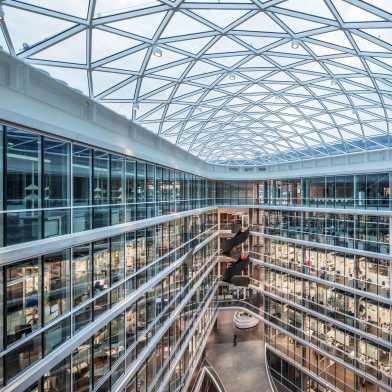
ETH Zurich’s new BSS teaching and research building on the Schällemätteli life science campus in Basel will officially open its doors today. The building will host ETH researchers from the fields of experimental biology, bioinformatics, and bioengineering as they work together with outside partners on innovative medical solutions.
Medical Engineering block course wins prize for innovative teaching
News
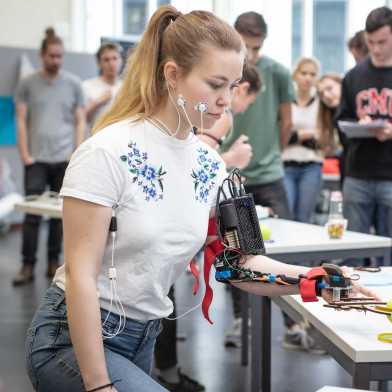
Medical students at ETH Zurich build a gripper hand for elbow exoskeletons in a crash course lasting just one week. This course has now been honoured with the 2024 Kite Award, the ETH prize for particularly innovative teaching.
Using solar energy to generate heat at high temperatures
News
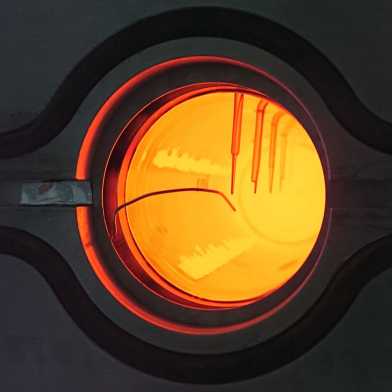
Instead of burning coal or oil to produce cement or steel, in the future solar energy could be used for this purpose. Researchers at ETH Zurich have developed a thermal trap that can absorb concentrated sunlight and deliver heat at over thousand degrees Celsius.
Researchers outsmarted EasyRide function on Swiss travel app
News

Experiments by ETH Zurich computer security researchers showed that smartphones can be manipulated to allow the owner to ride Swiss trains for free. The researchers also highlighted ways of curbing such misuse.
Mosaic grassland landscapes are the most beneficial
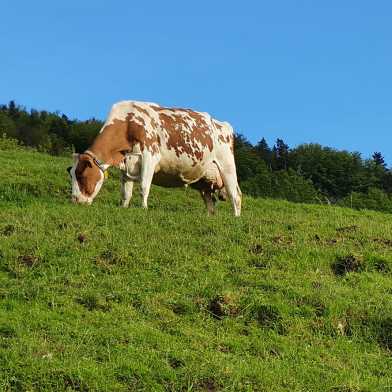
Like forests, grassland provides numerous ecological, economic and social benefits. Researchers have investigated ways to maintain and improve these benefits in the Swiss canton of Solothurn.
New gel breaks down alcohol in the body
Press release

Researchers at ETH Zurich have developed a protein-based gel that breaks down alcohol in the gastrointestinal tract without harming the body. In the future, people who take the gel could reduce the harmful and intoxicating effects of alcohol.
Electron vortices in graphene detected
News
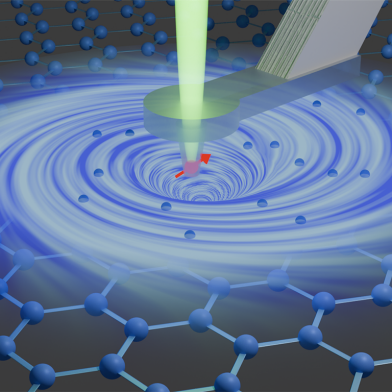
Researchers at ETH Zurich have, for the first time, made visible how electrons form vortices in a material at room temperature. Their experiment used a quantum sensing microscope with an extremely high resolution.
Solving physics puzzles with coloured dots
News

By analysing images made of coloured dots created by quantum simulators, ETH researchers have studied a special kind of magnetism. In the future this method could also be used to solve other physics puzzles, for instance in superconductivity.
Demonstration at ETH Zurich dissolved
News

This morning at 11.30 a.m. around 100 people from pro-Palestinian, Marxist groups set up a protest in the main hall in the main building of ETH Zurich. After repeated requests to leave the building, which the demonstrators did not comply with, the demonstration was broken up by the police at the request of ETH Zurich.
Digi, Nano, Bio, Neuro – or why we should care more about converging technologies
- Zukunftsblog
- News
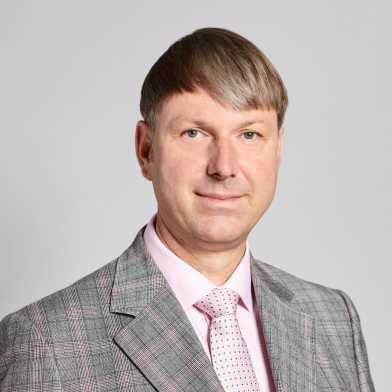
Dirk Helbing expects future digital technologies to penetrate the human body even more in the future. However, he believes that society is not prepared for the risks involved. He puts forward a new legal framework to protect our most intimate data from misuse.
Blood diagnostics modelled on leeches
News
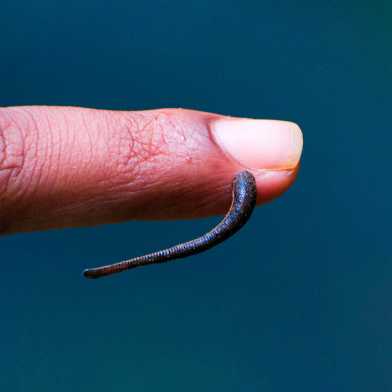
Researchers at ETH Zurich have developed a safe and inexpensive device for reliable blood measurements. It works using a suction cup and could also be employed to diagnose the tropical disease malaria – even by non-medical personnel.
How the plant world shapes the climate cycle
News

In order to understand the Earth's resilience, researchers at ETH Zurich are modelling climate changes from times long past. And they show: Plants are not simply victims of circumstances, but have helped to shape climate conditions on Earth.
ETH Zurich spin-offs develop high performance batteries
- News
- Homepage
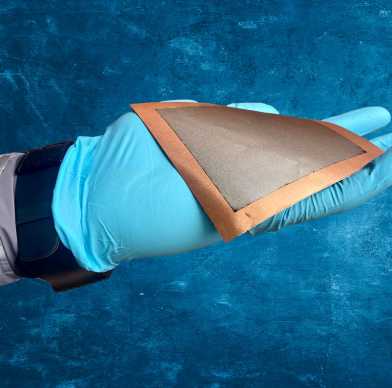
The electrification of many areas of life is leading to an increased demand for high-performance batteries. Two ETH spin-offs are making waves in this field: while BTRY develops high-performance solid-state batteries, 8inks is working on a new standard for production.
A new direction for cancer research
Globe magazine
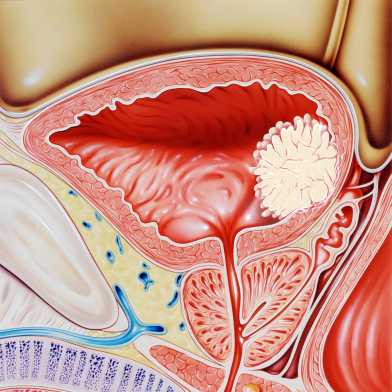
In collaboration with University Hospital Basel, researchers from ETH are investigating the early stages of bladder cancer. Their findings show that future research should also focus on mechanical changes in tumour tissue.
AI designs new drugs based on protein structures
News

A new computer process developed by chemists at ETH Zurich makes it possible to generate active pharmaceutical ingredients quickly and easily based on a protein’s three-dimensional surface. The new process could revolutionise drug research.
Bacteria for climate-neutral chemicals of the future
News
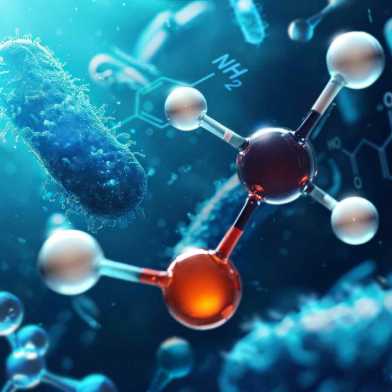
Researchers at ETH Zurich have engineered bacteria in the laboratory to efficiently use methanol. The metabolism of these bacteria can now be tapped into to produce valuable products currently made by the chemical industry from fossil fuels.
Surprising reversal in quantum systems
News
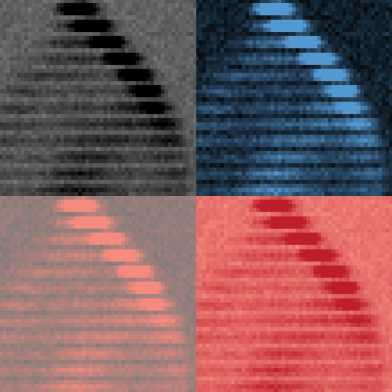
Researchers at ETH Zurich have studied topological effects in an artificial solid, making surprising observations. The new insights into topological pumping could be used for quantum technologies in the future.
Financial uncertainty threatens ETH Zurich’s top position
Press release
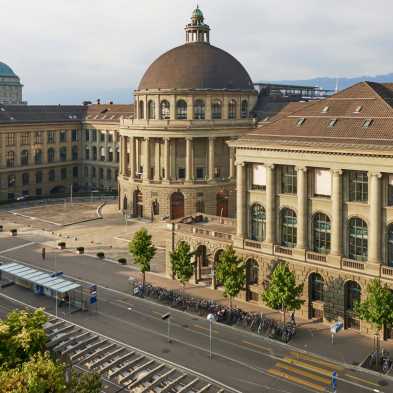
In its annual report 2023 published today, ETH Zurich looks back on a successful year. For some years, however, the budget has not kept pace with the growth in student numbers. The growth rates projected by the Federal Council in the 2025-2028 ERI Dispatch are therefore forcing the university to consider drastic measures in research and teaching.
Antisemitism in the history of Raiffeisen?
News

On behalf of Raiffeisen Switzerland Cooperative, ETH Zurich researchers examined the beginnings of the Raiffeisen movement in Switzerland. Their focus was on antisemitism as well as Raiffeisen during National Socialism.
How data provided by fitness trackers and smartphones can help people with MS
News
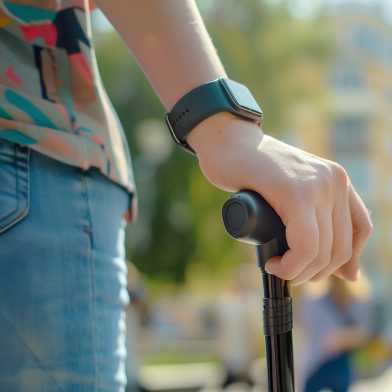
Monitoring and treating a case of multiple sclerosis requires reliable and long-term data on how the disease is progressing in the person in question. Fitness trackers and smartphones can supply this data, as a research team led by ETH Zurich has now shown.
Twisted pollen tubes induce infertility
News
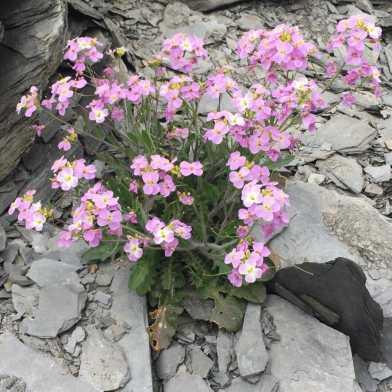
Plants with multiple sets of chromosomes have advantages over their relatives with a double set. But why they often start out infertile was only partially understood. Biologists at ETH Zurich have now discovered a new reason for the initial difficulties.
Tropical forests can't recover naturally without fruit eating birds
News

Natural forest regeneration is hailed as a cost-effective way to restore biodiversity and sequester carbon. However, the fragmentation of tropical forests has restricted the movement of large birds limiting their capacity to disperse seeds and restore healthy forests.
Artificial augmented creativity: A new era of art
- News
- Zukunftsblog
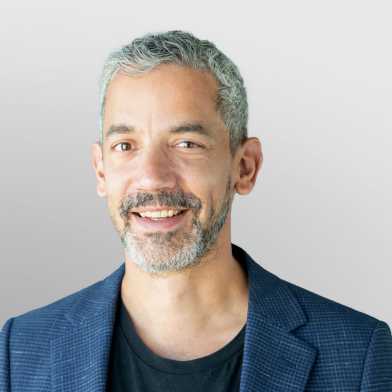
Artificial intelligence is transforming the way in which art is created and experienced. Are we at the beginning of a new artistic revolution? Or at the end of creativity as we know it? Adrian Christopher Notz puts things in perspective.
Using a hopping robot for asteroid exploration
News
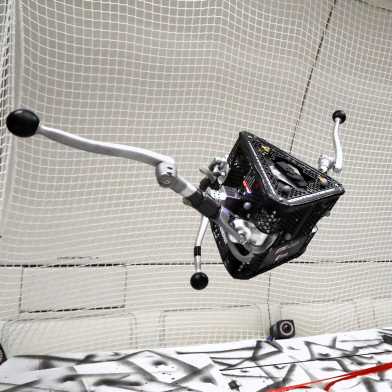
As part of the SpaceHopper project, ETH Zurich students are developing a robot that can navigate very low gravity environments using a jumping-like mode of locomotion.
ETH Zurich ranks first in the world for 3 subjects, according to QS
News
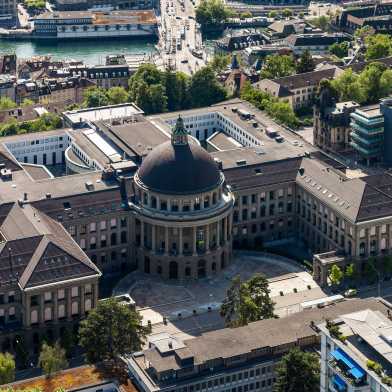
QS (Quacquarelli Symonds) unveiled its 2024 World University Rankings by Subject. ETH Zurich landed with 3 subjects in the top spot. A further 14 placed within the top ten in the world.
What can cities do to promote acceptance of densification?
News
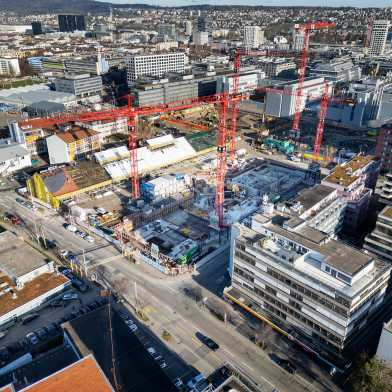
Swiss cities are more likely to accept densification when densification projects provide affordable housing and green spaces compared to densification that is implemented through reduced regulations for housing construction. By prioritizing a socio-ecological densification, extensive planning procedures and delays might be minimized.
Computer science made accessible to over 10,000 children
News
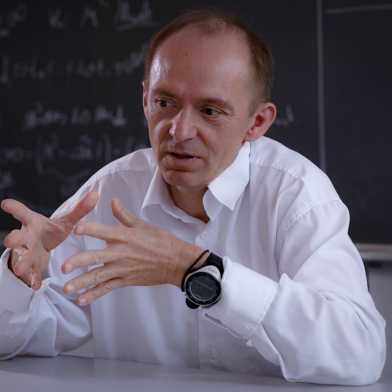
Juraj Hromkovic has been Professor of Information Technology at ETH Zurich for the past 20 years. During this time, he has been a leading advocate of teaching computer science in schools. He’s now giving his farewell lecture.
Protecting art and passwords with biochemistry
News
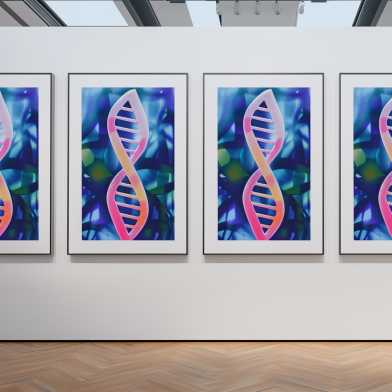
A new molecular test method helps to prove the authenticity of works of art. The new method could also help to make passwords secure against quantum computers.
Let Bachelor’s degree holders work first!
- News
- Zukunftsblog
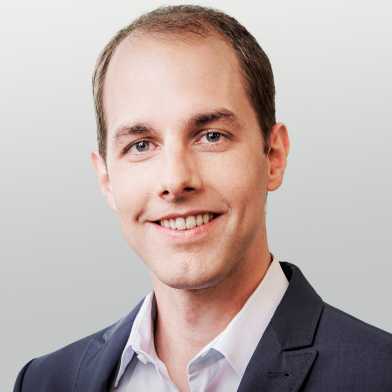
Have you done any further professional training in the last five years? If not, then one reason is probably the education system and its rigid qualifications, says Lukas Sigrist.
Knocking cloud security off its game
News

Public cloud services employ special security technologies. Computer scientists at ETH Zurich have now discovered a gap in the latest security mechanisms used by AMD and Intel chips. This affects major cloud providers.
Mini-organs with big potential
Globe magazine
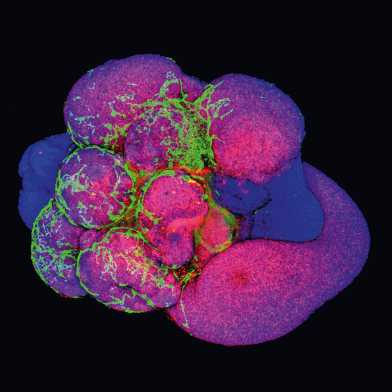
Organoids grown from human stem cells can help provide answers to important medical questions. In a partnership that looks set to profit both sides, ETH professor Barbara Treutlein has teamed up with pharma giant Roche to advance research in this area.
Strengthening Swiss hydropower with science
News
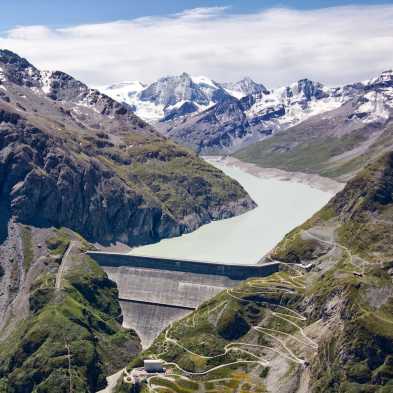
Researchers at ETH Zurich led by Robert Boes are developing specific solutions to optimise electricity production from Swiss hydropower plants. This will ensure that hydropower remains the backbone of Switzerland’s electricity supply in the future.
Funding shows effect
News
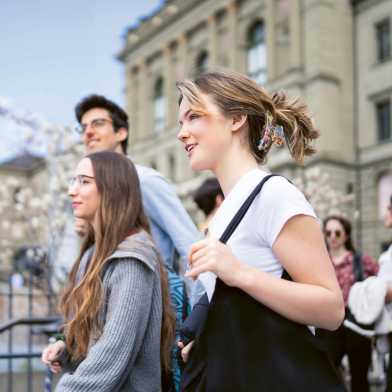
Helping to shape the digital transformation, empowering brilliant young talent and more research for the health of children and adolescents: the ETH Foundation's annual report shows what the commitment of more than 2700 donors and partners has achieved for a wide range of topics in 2023.
New app unmasks forged documents
News

Researchers at ETH Zurich have developed a smartphone app that can be used to check the authenticity of documents and other items. Extracts from the debt enforcement register of the City of Zurich are being made forgery-proof as part of a pilot project.
How micro- and nanoplastics are infiltrating the Arctic ice
News
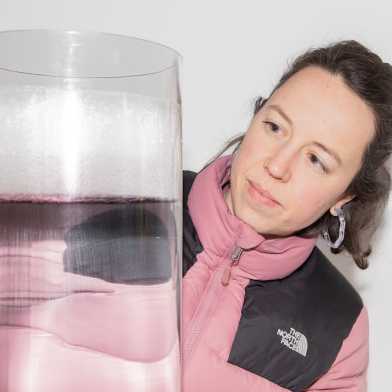
Environmental scientist Alice Pradel cultivates ice cores in the lab to investigate the transport and accumulation of micro- and nanoplastics. Her aim in doing so is to better understand material flows in the Arctic ice.
Climate-friendly renovations using straw and hemp
- News
- Homehero
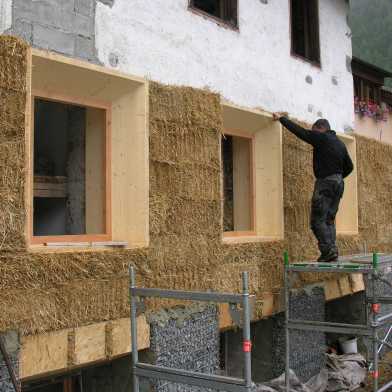
Renovating buildings to improve their energy efficiency is a crucial step towards Switzerland achieving its climate targets. ETH Zurich researchers can now reveal the most effective renovation strategies for reducing greenhouse gas emissions: replace fossil-fuel heating systems and harness the potential of bio-based building materials like straw and hemp.
Detecting storms thanks to GPS
News

Researchers at ETH Zurich have succeeded in detecting heavy precipitation events directly with GPS data. The results of their study could significantly improve meteorological monitoring and forecasting.
Faster diagnosis of endometriosis with AI
News
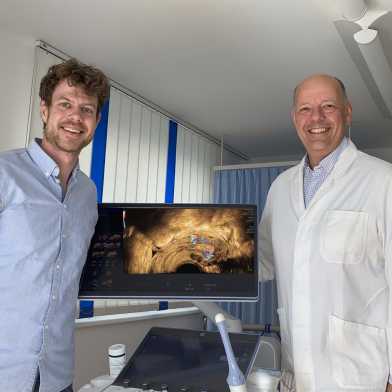
ETH spin-off Scanvio is developing an algorithm that can be used to analyse ultrasound images of the womb on an automated basis. This should enable doctors to diagnose endometriosis more quickly in the future.
Pesticide-free as a new pathway for agriculture
- News
- Zukunftsblog
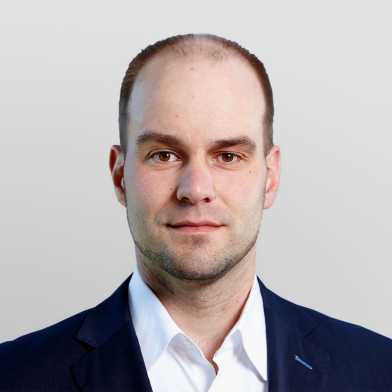
We can transition to pesticide-free agriculture without converting to organic farming. Robert Finger outlines the advantages and challenges involved.
Combatting infant malnutrition
Globe magazine
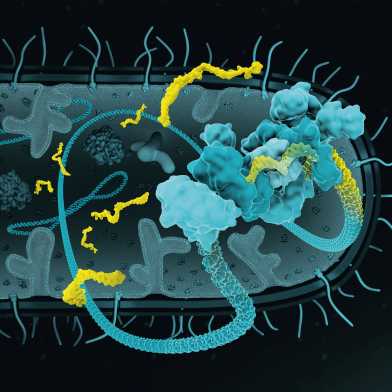
Bioengineer Randall Platt engineers bacteria that can assess the state of our guts. It is hoped this non-invasive technique could eventually be used to develop more effective interventions against malnutrition among children in the Global South.
ANYmal can do parkour and walk across rubble
News
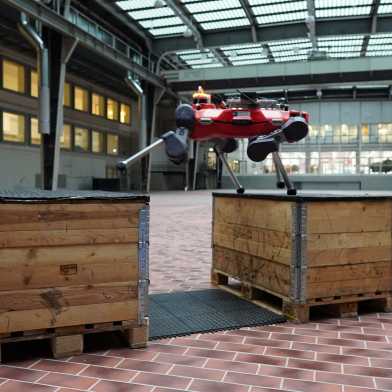
The quadrupedal robot ANYmal went back to school and has learned a lot. ETH Zurich researchers used machine learning to teach it new skills: the robot can now climb over obstacles and successfully negotiate pitfalls.
A new ion trap for larger quantum computers
News
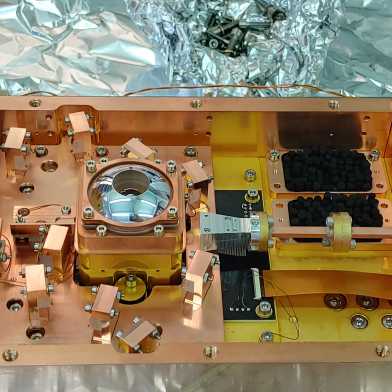
Researchers at ETH have managed to trap ions using static electric and magnetic fields and to perform quantum operations on them. In the future such traps could be used to realize quantum computers with far more quantum bits than have been possible up to now.
Artificial intelligence detects heart defects in newborns
- Press release
- News
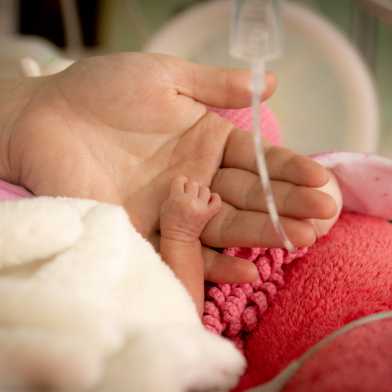
Researchers from ETH Zurich and KUNO Klinik St. Hedwig in Regensburg have developed an algorithm that provides an automatic and reliable method of detecting a certain heart defect in newborns.
A thirst for adventure
- Globe magazine
- Homehero
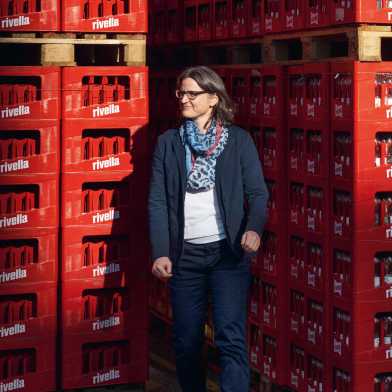
Sport and an interest in healthy eating took Martina Pfeiffer first to ETH Zurich and then to Swiss beverage producer Rivella. Her active lifestyle has always kept her at the top of her game.
“My aim is to give students a sense of how multifaceted the world is”
- Globe magazine
- Homehero
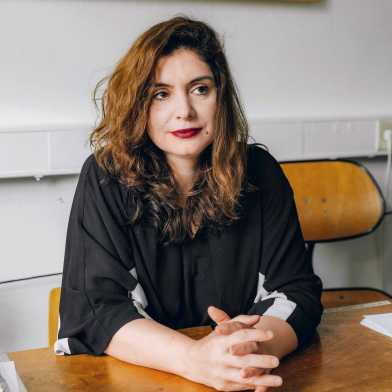
Artist Rosa Barba is constantly seeking new perspectives. At ETH, she works to bring art together with architecture, science and engineering.
Allies from the deep
- Globe magazine
- Homehero
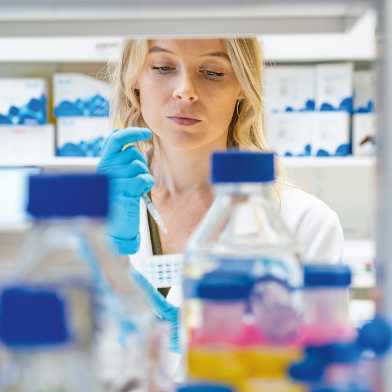
Estelle Clerc searches remote waters such as the deep ocean for bacteria that can degrade specific pollutants such as microplastics, pharmaceuticals and pesticides.
Designed for bold visions
Globe magazine
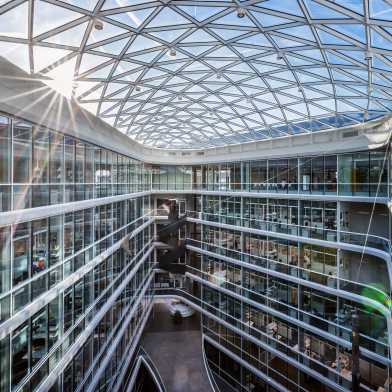
The idea of ETH Zurich establishing a Department of Biosystems in Basel once seemed unachievable. Today, the department occupies a new building where the dividing lines between biology, computer science and engineering are blurred – and researchers increasingly focus on medical applications
Cutting-edge research from Basel
- Globe magazine
- Homehero
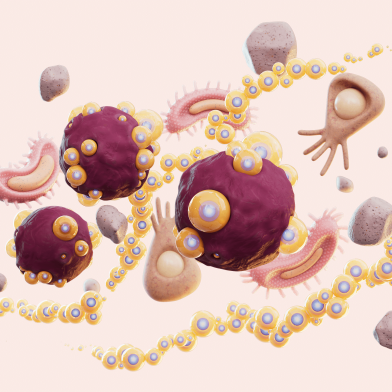
From new tests and therapies to the fundamental principles of biology: five compelling examples of the benefits of new bioengineering technologies.
Bridging the Gap with Policy Fellow Regina Witter
- Globe magazine
- Homehero
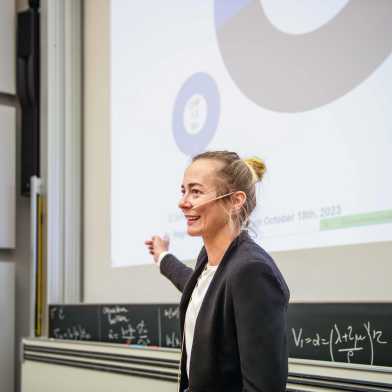
The new ETH Policy Fellowship aims to foster greater understanding between government and the academic world. Regina Witter from the Federal Office for Spatial Development was among the first cohort to take part.
How to fail productively
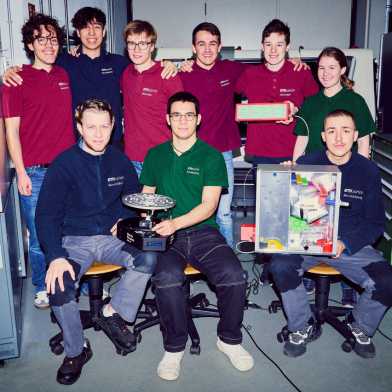
In a pilot project, apprentices from four different professions in the Department of Physics had to work together to build an interactive exhibition object. They learnt a lot about team building, interdisciplinary work and how to fail productively. "Physics4mation" is now an integral part of the apprenticeship programme.
Triathlon medallist and ETH student: “A non-productive day is not the end of the world.”
- News
- Homehero

Studying at ETH Zurich is demanding, and all students have their own personal hurdles to overcome. This video series portrays ETH students.
Recycling plastic is not a quick fix
- News
- Zukunftsblog
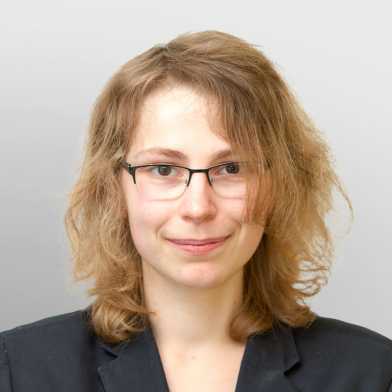
Recycling is an accepted formula for sustainable resource use, but in the case of plastic it can have serious side effects, says Helene Wiesinger – and uses the example of plastic flooring in Switzerland to illustrate the dilemma.
New appointments at ETH Zurich
News
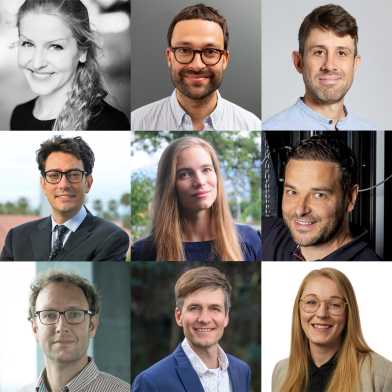
At its meeting of 6 and 7 March 2024 and upon application of Joël Mesot, President of ETH Zurich, the ETH Board appointed nine professors. The Board also awarded the title of "Professor" three times and the title of "Professor of Practice" once.
The man for freak events
News
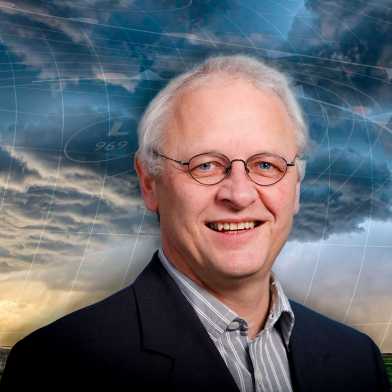
Christoph Schär is one of the Swiss climate scientists who have shaped high-resolution climate modelling. He is now retiring after more than 35 years at ETH Zurich. In this portrait, he explains why he himself never tires of researching climate change.
Strengthening Switzerland’s start-up ecosystem
News
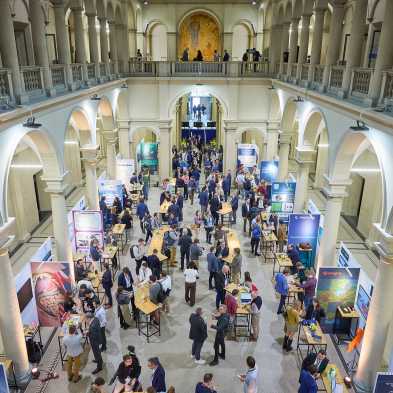
ETH Zurich and UBS held an initial joint deeptech investor summit for start-ups at the start of March. This enabled the university’s spin-offs to talk to potential investors and present their business ideas and technologies.
ETH students accelerate private sector innovation
News
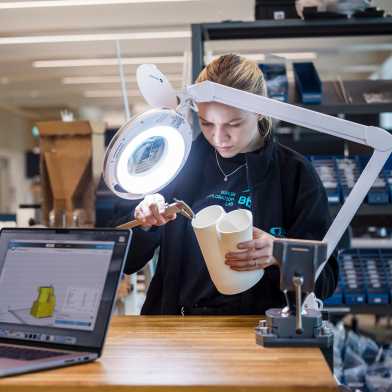
Students at ETH Zurich are working together with engineers from the technology firm Bühler to accelerate innovation and minimise the attendant risks. It's a fruitful collaboration that other companies are also poised to benefit from.
Cost of direct air carbon capture to remain higher than hoped
News
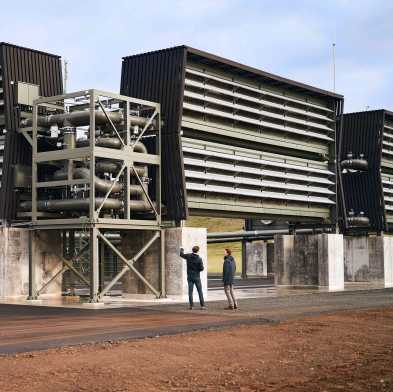
The cost of removing large quantities of CO2 from the air will fall in the medium term, but not as much as previously hoped. This is the conclusion reached by ETH researchers on the basis of new calculations. Efforts to reduce carbon emissions should therefore continue at pace, says the research team.
Turning waste into gold
News

ETH Zurich researchers have recovered the precious metal from electronic waste. Their highly sustainable new method is based on a protein fibril sponge, which the scientists derive from whey, a food industry byproduct.
For equitable access to urban green spaces
- News
- Zukunftsblog
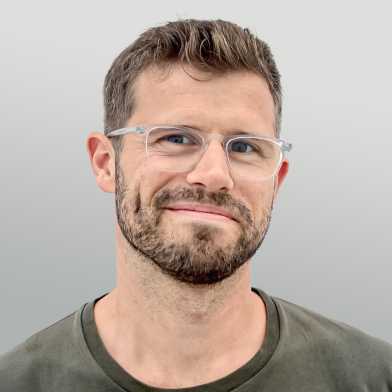
Vacant land, community gardens and public parks are key resources for liveable cities. Fritz Kleinschroth calls on urban planners to focus on giving nature more space and on granting equitable access to green spaces.
Do we have cosmic dust to thank for life on Earth?
News

It might be that what set prebiotic chemistry in motion and kept it going in the early days of the Earth was dust from outer space accumulating in holes melted into ice sheets. Researchers at ETH Zurich and the University of Cambridge have used a computer model to test this scenario.
Finding and blocking infection routes in hospitals
News
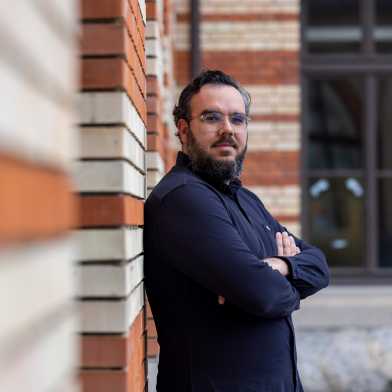
During the COVID-19 pandemic, hospitals often became hubs of infection. Researchers from ETH Zurich, EPFL and the ISI Foundation are developing a wearable tracking system for healthcare facilities that can identify the risks of infections. Initial tests in Switzerland and Africa show its potential.
Earth as a test object
News

Physicists at ETH Zurich and the University of Zurich wanted to know whether the planned LIFE space mission could really detect traces of life on other planets. Yes, it can. The researchers reached this conclusion with the help of observations of our own planet.
“Challenges offer opportunities for personal development”
News

Studying at ETH Zurich is demanding, and all students have their own personal hurdles to overcome. This video series portrays ETH students.
Former ETH President Heinrich Ursprung deceased
News
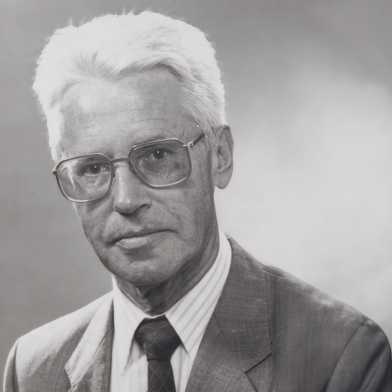
Heinrich Ursprung was President of ETH Zurich from 1973 to 1987. He led the bilateral negotiations between Switzerland and the EU in the field of research in his capacity as State Secretary in the 1990s. This influential figure in the Swiss higher education landscape passed away shortly before his 92nd birthday.
Bio-inspired neuroprosthetics: sending signals the brain can understand
News
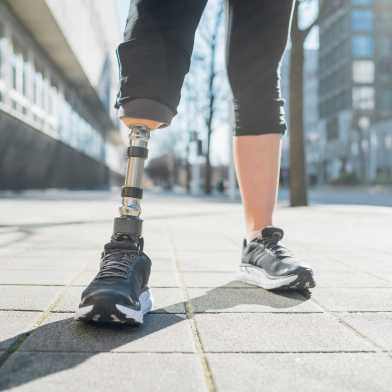
Prostheses that connect to the nervous system have been available for several years. Now, researchers at ETH Zurich have found evidence that neuroprosthetics work better when they use signals that are inspired by nature.
A sustainable fuel and chemical from the robotic lab
News
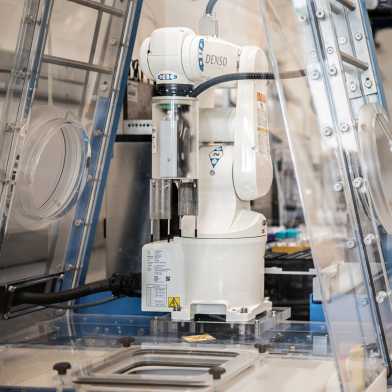
Artificial intelligence and automated laboratory infrastructure are massively accelerating the development of new chemical catalysts. With these tools, researchers at ETH Zurich are developing catalysts for efficiently and cost-effectively synthesising the energy source methanol from CO2.
“It’s okay to take your time”
News
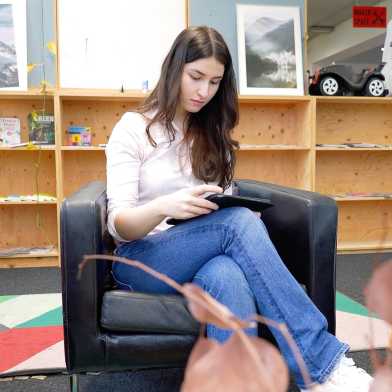
Studying at ETH Zurich is demanding, and all students have their own personal hurdles to overcome. This video series portrays ETH students.
Switzerland needs to do a better job of exploiting its innovation potential
- News
- Zukunftsblog
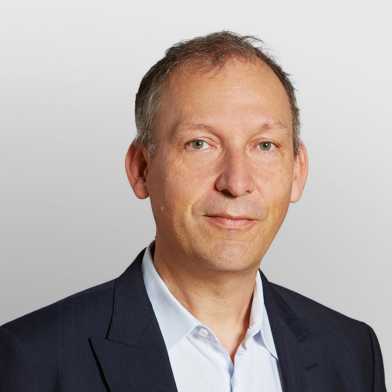
Switzerland offers tremendous opportunities for technological and entrepreneurial innovation. Thomas Zurbuchen asks, “How can we generate the momentum needed to maintain an edge in the face of international competition – especially when times get tough?”
What can bulls tell us about men?
News
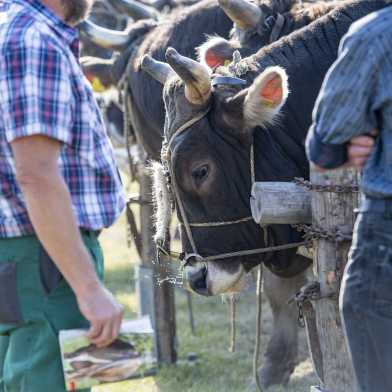
Researchers have found genes in the reproductive organs of bulls that influence fertility. The findings can be transferred to humans, as these genes are also present in men.
Crash course for new parliamentarians
News
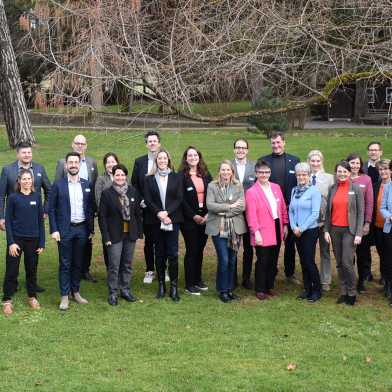
Newly elected members of the Swiss National Council are often confronted with a bewildering array of complex issues. ETH Zurich organised a special two-day seminar to equip them with scientific expertise in key policy areas.
Pain relief without dependence
Globe magazine

ETH researchers have teamed up with Kantonsspital Baden to find ways of preventing patients from becoming dependent on opioid painkillers.
ETH Zurich logistics tool saves ICRC millions
News
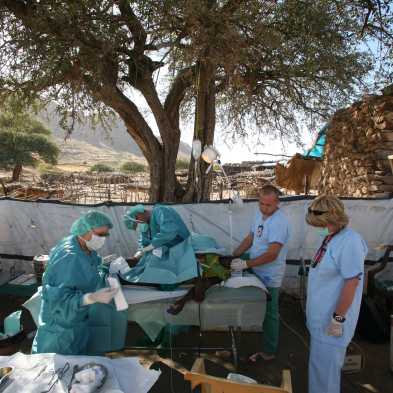
The International Committee of the Red Cross (ICRC) provides medical supplies to people in need. A planning tool developed by researchers at ETH Zurich will make this complex task more efficient in future and save the ICRC millions.
Mario Kart in a wheelchair
News
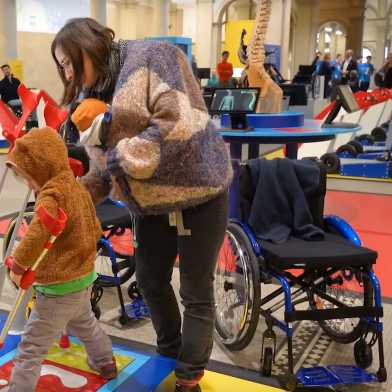
The new “Mobility and Inclusion” exhibition at ETH Zurich lets people find out first-hand the obstacles faced by people with impairments along with the technical aids available. From 2025, it will be on display as a permanent exhibition at the Swiss Museum of Transport in Lucerne.
A new solution for energy transfer to heart pumps
News
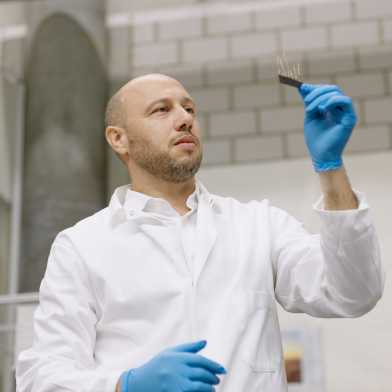
Roughly one in two wearers of ventricular assist devices are diagnosed with an infection. The reason for this is the thick cable for the power supply. ETH Zurich researchers have now developed a solution to mitigate this problem.
A medical degree programme for those who ask why
News
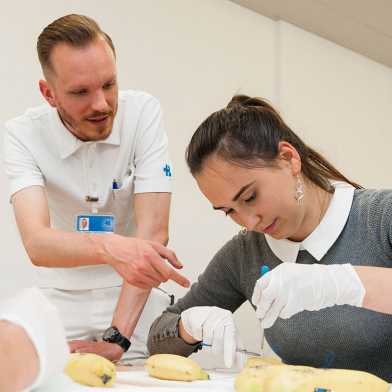
What began as a venture quickly proved its worth: The ETH Bachelor in Human Medicine is well received by graduates and has helped to establish ETH Zurich in the Swiss medical education landscape. In a video, five graduates talk about what makes studying medicine at ETH so special.
Innovative coating prevents limescale formation
News
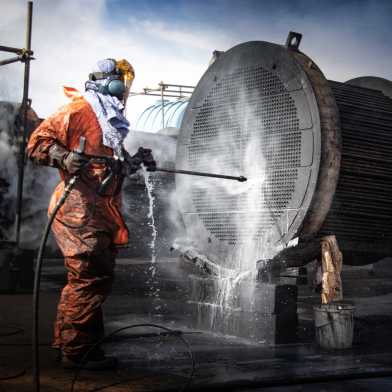
Wherever hot water flows, limescale is never far away. In households, this is a nuisance; in thermal power stations, it’s an expensive problem. Now researchers at ETH Zurich have found an answer.
Why olivine and diamonds are best friends
News
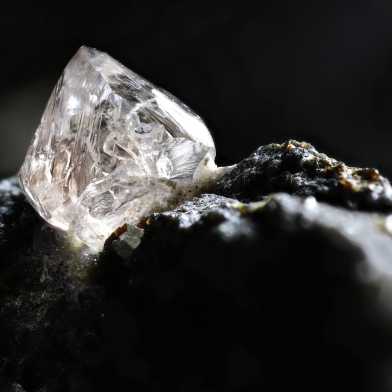
Hardly any gemstone is more difficult to find than diamonds. Geologists from ETH Zurich and the University of Melbourne have now established a link between their occurrence and the mineral olivine. This could make the search for diamonds easier in the future.
New Master’s in Space Systems to be launched in September
News

A new Master’s degree programme in Space Systems will be launched at ETH Zurich in autumn 2024. Interested parties can start applying in April.
Maintaining the “Swiss way” of promoting innovation
- News
- Zukunftsblog
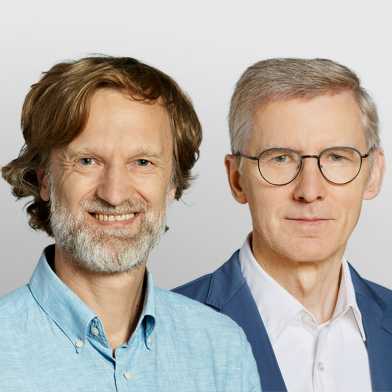
Hans Gersbach and Martin Wörter explain why Switzerland should not join the emerging international subsidy race. Sticking with the proven “Swiss way” is much more promising.
Visualising multiple sclerosis with a new MRI procedure
News
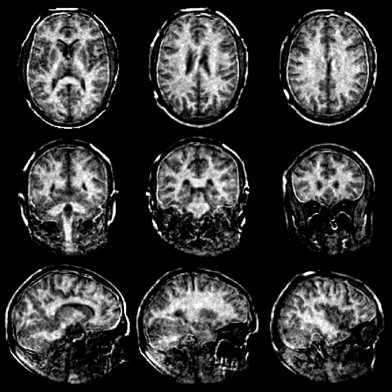
The loss of myelin sheaths in the brain is a hallmark of multiple sclerosis. Researchers at ETH Zurich have now developed an MRI method that maps the condition of this nerve insulation layer more accurately than before.
A “cultivation battle” for legumes
- Zukunftsblog
- News
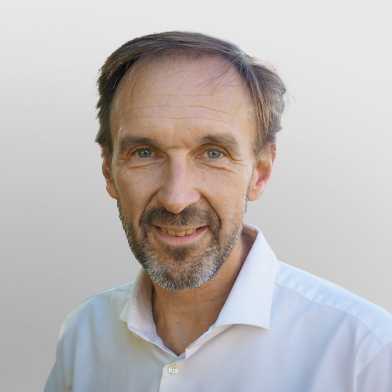
Achim Walter believes increased cultivation of legumes would bring major benefits. But how to persuade farmers in Switzerland to make the switch?
Scientists successfully simulate protein complex that initiates fertilisation
News
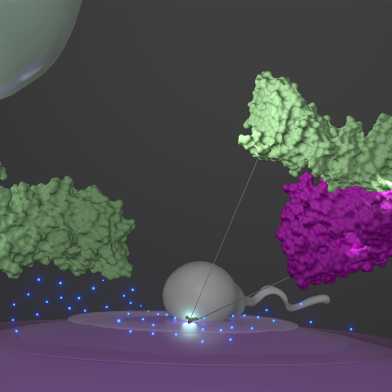
Researchers at ETH Zurich recently developed highly realistic simulations of the proteins on sperm and egg cells coupling together before they fuse. These findings enabled the research team to solve several mysteries of fertilisation at once, which could help to accelerate development of more targeted infertility treatments.
Midday sun at the touch of a button
News
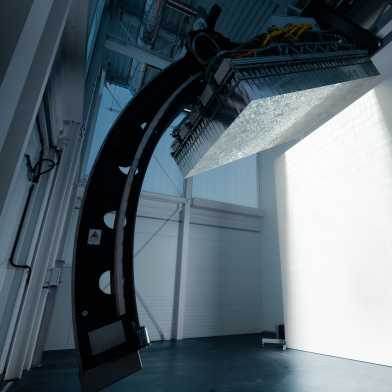
At ETH Zurich, there is a room where the sun shines at the touch of a button; one hour it’s noon in the Sahara, the next it’s January in Berlin. Researchers use it to test newly developed building systems, components and materials.
How to make bright quantum dots even brighter
News

Researchers at Empa and ETH Zurich have developed methods for making perovskite quantum dots faster and more efficient emitters, thereby significantly improving their brightness. This is relevant for applications in displays as well as in quantum technologies.
Artificial muscles – lighter, safer, more robust
News
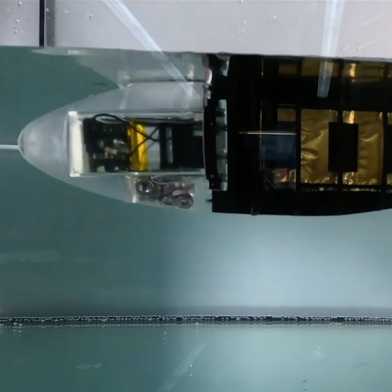
Researchers at ETH Zurich have recently developed artificial muscles for robot motion. Their solution offers several advantages over previous technologies: it can be used wherever robots need to be soft rather than rigid or where they need more sensitivity when interacting with their environment.
Sound-powered sensors stand to save millions of batteries
News
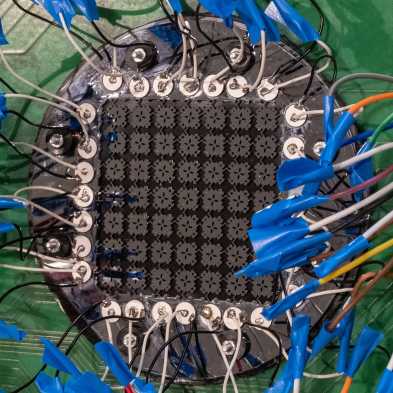
Researchers at ETH Zurich have developed a sensor that utilises energy from sound waves to control electronic devices. This could one day save millions of batteries.
How ETH knowledge and local expertise are helping the reconstruction of Ukraine
Homehero
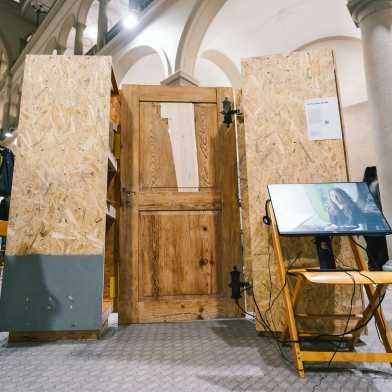
Two years ago, Russia launched its war of aggression against Ukraine. One direct consequence of the conflict is the destruction of buildings and infrastructure. Now an exhibition in the ETH Main Building entitled “ETH with Ukraine” is showing how buildings, facilities and the environment in Ukraine can be protected or restored.
Green Light for LISA
News
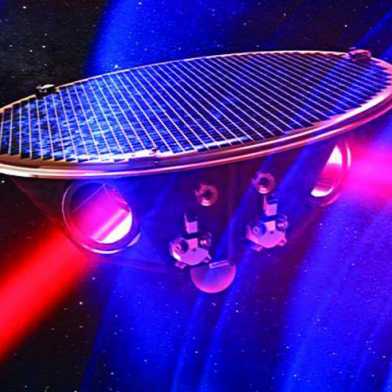
The European Space Agency’s most expensive and complex mission, the LISA space antenna, has reached a major milestone: it has passed the stage of intensive testing by experts in the Mission Adoption Review process - a significant step for the LISA consortium.
Groundwater levels are sinking ever faster around the world
News

A global study shows that the world’s groundwater resources are dwindling: levels are falling sharply worldwide, and the decline has accelerated in the 21st century. Nevertheless, there is still reason for hope.
Hydrogen: handle with care
- News
- Zukunftsblog
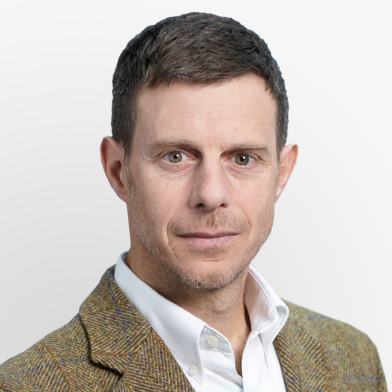
For Anthony Patt, Europe’s ambitious plans for a hydrogen economy may be too ambitious, tipping the scales towards the interests of the fossil fuel industry, rather than energy consumers and the climate. Switzerland should be careful before jumping fully on board, he argues.
New agent blocks stress response
News

If the body’s natural stress response gets knocked off balance, it can result in physical and mental health disorders. Researchers at ETH Zurich have developed an agent capable of selectively inhibiting this response.
Clarifying the cause of Guillain-Barré Syndrome
News
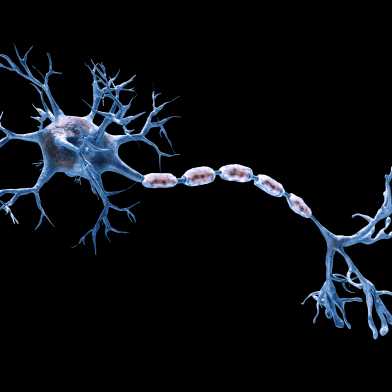
Guillain-Barré Syndrome is a rare condition in which a person’s immune system attacks the peripheral nerves. People affected suffer from muscle weakness and paralysis. A research team led by ETH Zurich has now clarified the mechanism of this autoimmune disease.
A virus that kills sleepers
News
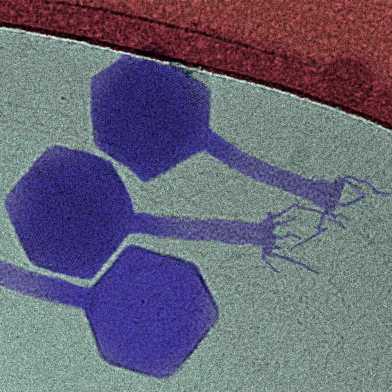
ETH Zurich researchers have found a virus that kills dormant bacteria. This rare discovery could help to combat germs that can’t be treated with antibiotics alone.
A navigation system to combat bottlenecks in medication supply
News
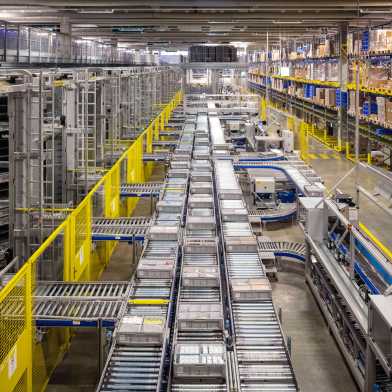
A new model designed by ETH Zurich researchers measures how flexible medication distribution systems are in real time. It shows that supply shortages can be eased if pharmaceutical wholesalers coordinate their inventories and reroute scarce products as flexibly as possible along existing supply chains.
World’s most powerful supercomputers support UN SDGs and global sustainability
- Press release
- Homehero
- News

The Federal Department of Foreign Affairs (FDFA) and ETH Zurich, in collaboration with their international partners, are launching the International Computation and AI Network (ICAIN) at the World Economic Forum (WEF) 2024 in Davos. Its mission is to develop AI technologies that benefit society as a whole, as well as being accessible to all and sustainable, thereby helping to reduce global inequality.
Brumadinho dam collapse: The danger emerged after the decommissioning
News

In 2019, the tailings dam at a Brazilian iron ore mine failed. The mudslide caused a catastrophe for people and the environment. A team of researchers at ETH Zurich has now uncovered the physical mechanism that may have triggered the accident.
How wounds heal – and cancers grow
Globe magazine

There are some striking parallels between how skin wounds heal and how malignant tumours grow. Cell culture can help us understand the mechanisms involved – but animal testing still has a role to play.
Capturing greenhouse gases with the help of light
News

Researchers at ETH Zurich are developing a new method to remove CO2 from the atmosphere. It involves molecules that become acidic when exposed to light. Their new process requires much less energy than conventional technologies.
Watt d’Or for efficient and sustainable power supply with photovoltaics
- News
- Homehero

ETH Zurich researchers from the Automatic Control Laboratory and the electricity supplier AEW Energie AG have won the 2024 Watt d’Or award in the Energy Technologies category. Their algorithm, which was implemented at AEW Energie, makes it possible to optimise electricity grid operations.
Three strategies to boost green electricity in Switzerland
News
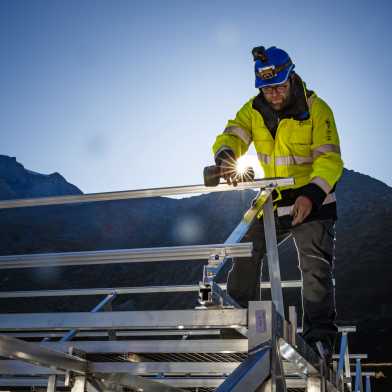
Climate neutrality and nuclear phase-out: Switzerland's ambitious green electricity targets are realistic if the electricity supply is profoundly and rapidly transformed, as a study by the SWEET EDGE consortium shows. The researchers developed three strategies for expanding renewable energies.
“The days of à la carte cooperation are over”
News

Oliver Thränert was head of the think tank of the Center for Security Studies (CSS) at ETH Zurich for almost twelve years. On the occasion of his retirement, we spoke to him about the future challenges of Swiss security and defence policy.
Why we need to know more about individual carbon footprints
- News
- Zukunftsblog
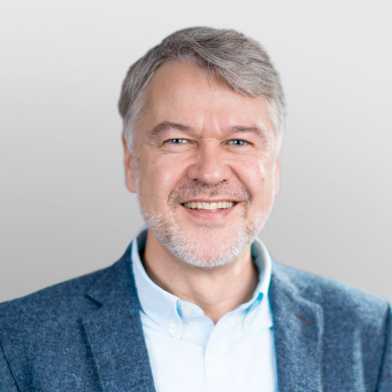
As Thomas Bernauer sees it, information on the impact that different segments of the population have on the climate is an essential ingredient in making climate policy measures fair and acceptable to the majority.
ETH spin-offs – an annual record set in 2023
- Press release
- News
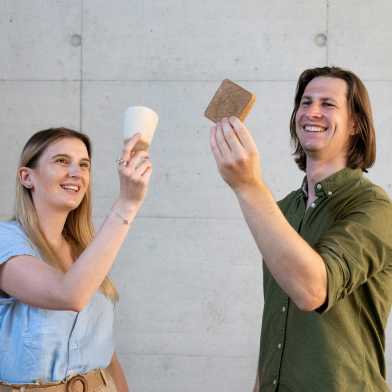
A total of 43 new spin-offs were founded at ETH Zurich over the past year, a new record. A particularly large number of young companies were created in the areas of artificial intelligence and biotechnology. In addition, an increasing number of ETH spin-offs are being set up by women.
Improving patient safety
Globe magazine
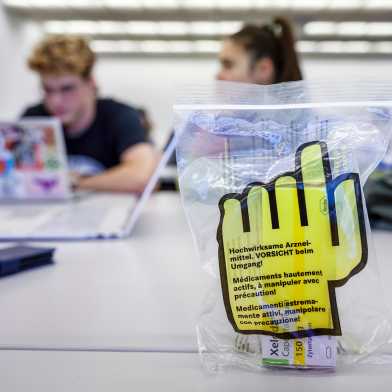
On the road to recovery, patients come into contact with clinicians from a whole range of disciplines. The importance of targeted collaboration between these disciplines is something medical students learn early on at ETH Zurich.
Computer pioneer Niklaus Wirth has died
News
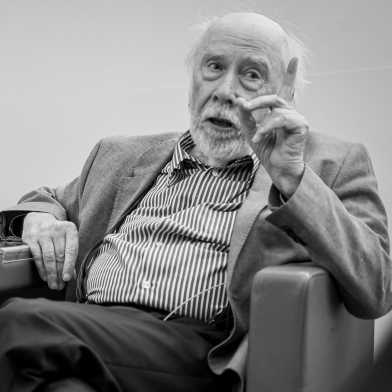
Computer pioneer Niklaus Wirth died on 1 January 2024, just weeks before his 90th birthday. The long-serving ETH Professor of Computer Science achieved world fame by developing the Pascal programming language in the 1970s. In 1984, he became the only German-speaking computer scientist yet to have received the Turing Award, which is regarded as the Nobel Prize for computer science.
Let’s talk about solutions
- News
- Zukunftsblog

More and more people are afraid of climate change. For Cyril Brunner, this also has to do with how we talk about climate. We should focus less on problems and instead spend more time discussing solutions, suggests the climate researcher at the start of the year.
The rocky road to the beginning
News
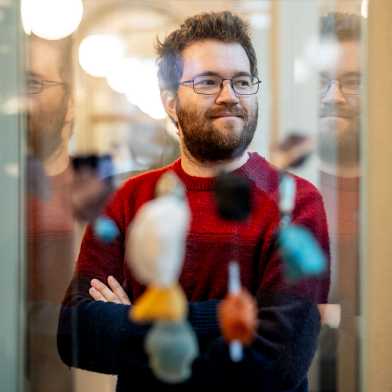
Craig Walton is the first NOMIS Fellow at the Centre for Origin and Prevalence of Life at ETH Zurich. With an unconventional idea, he wants to find out the conditions under which life originated on Earth.
From high-speed electric cars to ETH in space
News
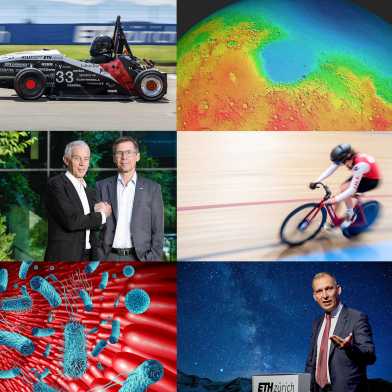
With its highly qualified graduates, cutting-edge research and knowledge transfer, ETH Zurich exists to serve Swiss society. The university demonstrated this once again in 2023. ETH News looks back at an eventful year.
A picking robot for the greenhouse
News
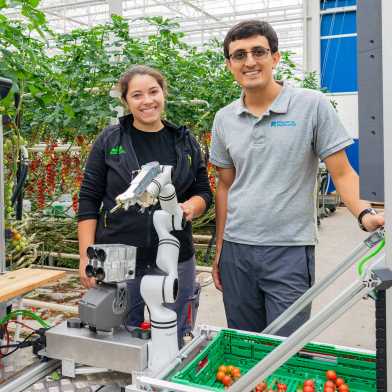
Working in a greenhouse is both strenuous and time-consuming. The picking robot from ETH spin-off Floating Robotics takes on particularly repetitive tasks, thereby alleviating the strain on human pickers. It is currently undergoing testing at Beerstecher AG in Hinwil.
The magnificence of objectivity and a couple of solid proofs
News
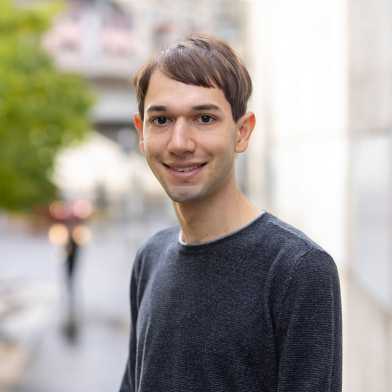
Raphael Steiner received his doctorate in mathematics at the age of 21. Now the Swiss National Science Foundation is funding his research at ETH Zurich in the field of graph theory. Among other things, this involves proving a conjecture that is over 80 years old.
Accurate snow measurement thanks to AI and satellites
News
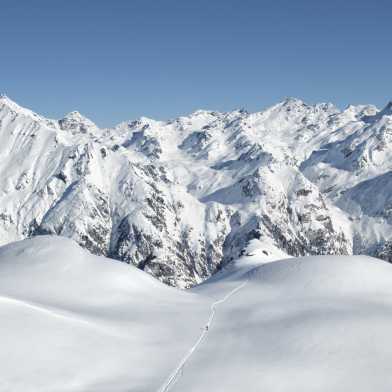
Snow measurement has never been so fast and accurate: ETH Zurich researchers have developed an artificial intelligence capable of determining snow depth across Switzerland using satellite images.
Artificial intelligence for safer bike helmets and better shoe soles
News
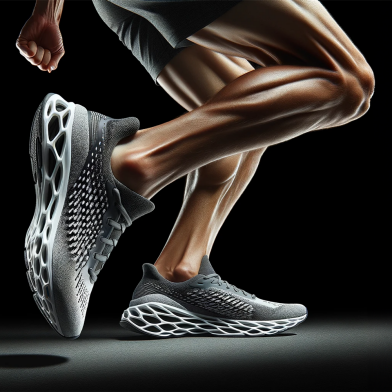
Researchers have trained an artificial intelligence to design the structure of so-called metamaterials with desired mechanical properties for a wide range of applications.
A big step in joint research
Globe magazine
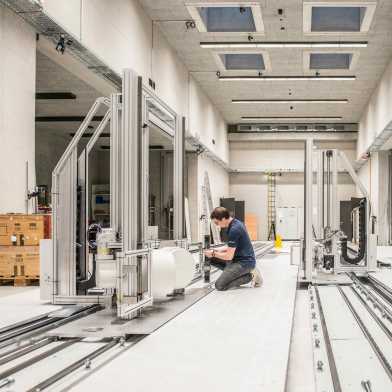
Surprisingly little is actually known about how the knee works. ETH professor Bill Taylor plans to change this with a unique technology and a new 22-metre-long experimental facility.
ETH Zurich receives major donation and plans teaching and research centre in Germany
Press release
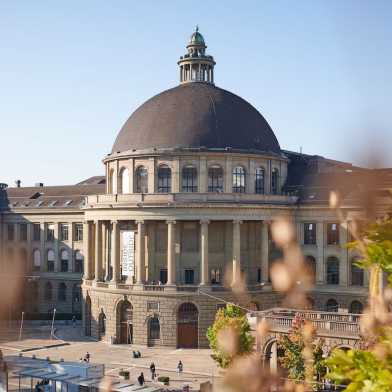
ETH Zurich and the Dieter Schwarz Foundation have signed a far-reaching letter of intent to establish a new teaching and research centre for responsible digital transformation with a global reach. Thanks to the foundation’s donations, around 20 new professorships are to be created over the next 30 years in Zurich and on the foundation’s teaching campus in Heilbronn.
Twelve professors appointed
News
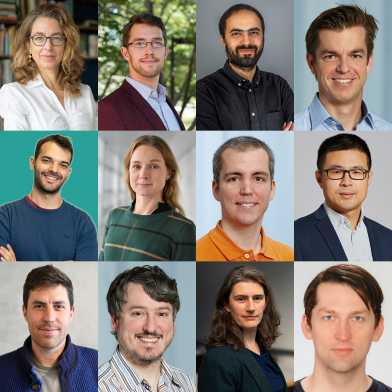
At its meeting of 6 and 7 December 2023 and upon application of Joël Mesot, President of ETH Zurich, the ETH Board appointed twelve professors and awarded the title "Professor of Practice" once.
Riding sound waves in the brain
News
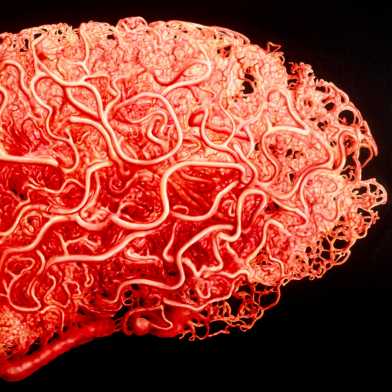
ETH Zurich researchers have shown for the first time that microvehicles can be steered through blood vessels in the brains of mice using ultrasound. They hope that this will eventually lead to treatments capable of delivering drugs with pinpoint precision.
What should be done with all the carbon dioxide?
Press release
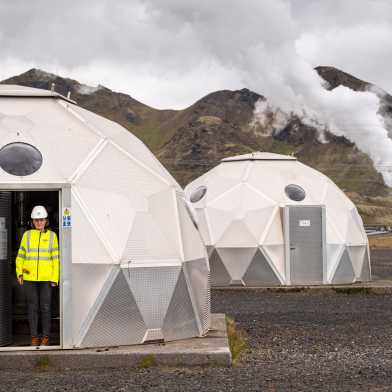
Capturing carbon dioxide (CO2) from the atmosphere and storing it either in recycled concrete aggregate or in geological reservoirs in Iceland is not only technically feasible, but also has a positive carbon footprint. These are the findings of a pilot project lead by ETH Zurich and commissioned by the Swiss confederation.
A forensic look at biodiversity
- Globe magazine
- Homehero
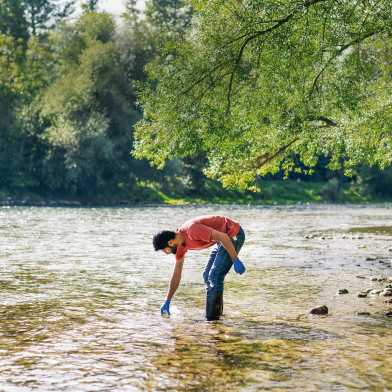
From the giant blue whale to minuscule microbes, all creatures on this earth continuously shed traces of their DNA. These clues help researchers to determine the degree of biological diversity.
In pursuit of sweat
- Globe magazine
- Homehero
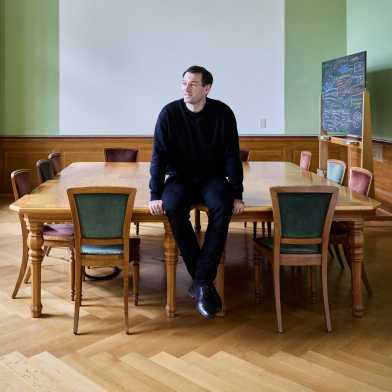
Noé Brasier is fascinated by the emerging field of sweat analysis. He plans to measure the effect of heat stress directly on people’s skin – and help them protect themselves from health risks.
Entrepreneur for women’s health
- Globe magazine
- Homehero
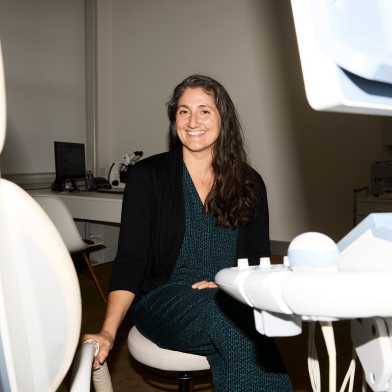
For her doctoral project at ETH Zurich, Sabrina Badir developed a device that determines the risk of premature birth. Today she is the CEO of spin-off Pregnolia, and her certified measuring device is being used in more than 20 clinics and medical practices.
Dipping into the treasure trove
- Globe magazine
- Homehero
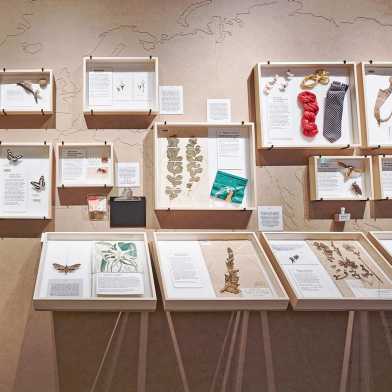
ETH Zurich’s collections and archives include plenty of hidden treasures. Some of these are now on display in the new “extract” exhibition space in the Main Building.
Teaming up for better health
Globe magazine
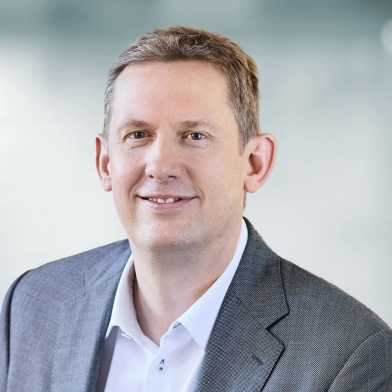
What’s the best way to translate research findings into clinical practice? A discussion with Monika Jänicke, CEO of the University Hospital Zurich, Rahel Kubik, head of radiology at Kantonsspital Baden, and Christian Wolfrum, VP for Research at ETH Zurich.
Therapeutic success thanks to determination and robots
- Globe magazine
- Homehero
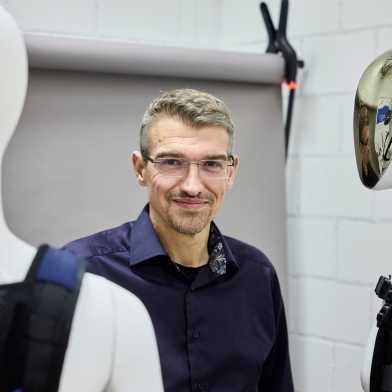
After suffering a severe case of Covid-19, Roger Gassert discovered for himself how important a role rehabilitation plays in recovery. The ETH Professor of Rehabilitation Engineering now plans to waste no time ensuring that patients profit from his developments.
From registered nurse to biomedical engineer
- Globe magazine
- Homehero
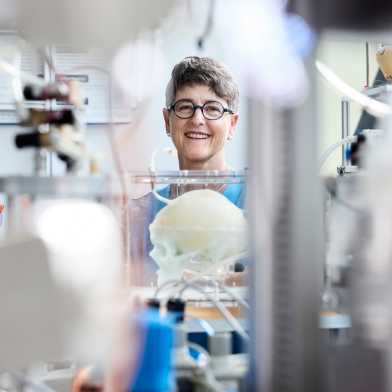
Marianne Schmid Daners was already fascinated by the human-technology interface when she worked as a registered nurse. Since graduating with a degree in mechanical engineering and a doctorate in biomedical engineering, she has been developing biomedical devices for the treatment of heart failure and hydrocephalus.
Vision: To be a doctor without borders
- Globe magazine
- Homehero
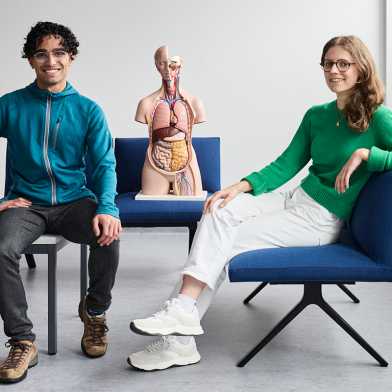
Mohammed Said is in his third semester of the Bachelor of Human Medicine at ETH Zurich. He plans to work abroad as a doctor and researcher one day and put his knowledge into practice in countries where people are not as fortunate as in Switzerland.
Applying what you have studied in hospital
- Globe magazine
- Homehero
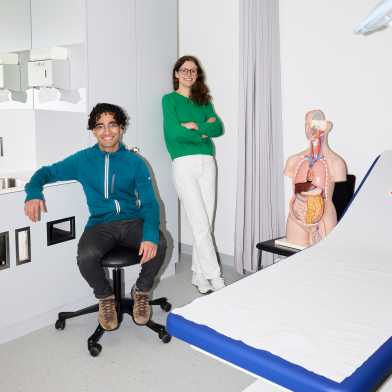
Clara Ehrenzeller studied human medicine at ETH Zurich. Aspects of her course that she will never forget were her six-week research internship at a children’s hospital in Canada and her deployment at the Kantonsspital Baden. She is currently pursuing a Master’s degree in Ticino.
Modern adventurer
- Globe magazine
- Homehero
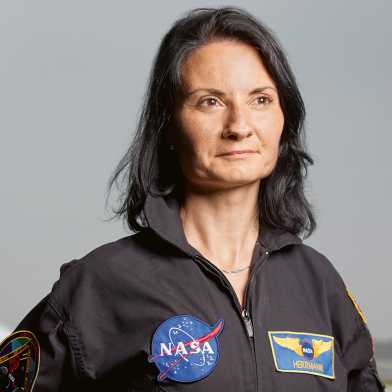
Whether on research vessels or testing her limits as an analog astronaut and pilot, alumna Sandra Herrmann has an irrepressible appetite for adventure, fuelled in part by her experiences at ETH Zurich.
"I’m fascinated by how modern technologies can help us reveal the inner workings of our planet."
- Globe magazine
- Homehero
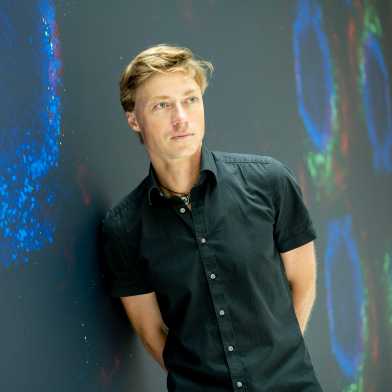
Seismologist Andreas Fichtner uses the newest technologies to explore the interior of the Earth. His research with seismic waves has also found applicability in the field of medicine.
Music and design in harmony
- Globe magazine
- Homehero
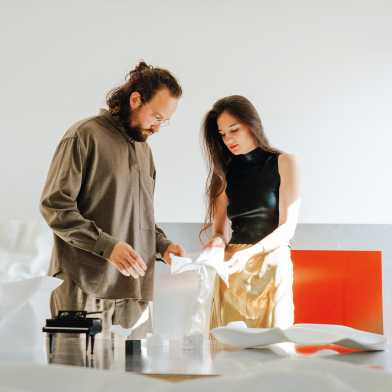
Irma Radončić and Stefan Liniger are developing resource-friendly fabrication methods, which the two architects aim to employ in the creation of better and better concert spaces.
Joint initiative for trustworthy AI
Press release

ETH Zurich and EPFL are launching the “Swiss AI Initiative”, whose purpose is to position Switzerland as a leading global hub for the development and implementation of transparent and reliable artificial intelligence (AI). The new Alps supercomputer based at the Swiss National Supercomputing Centre (CSCS) provides the supporting world-class infrastructure.
In search of life
- News
- Zukunftsblog
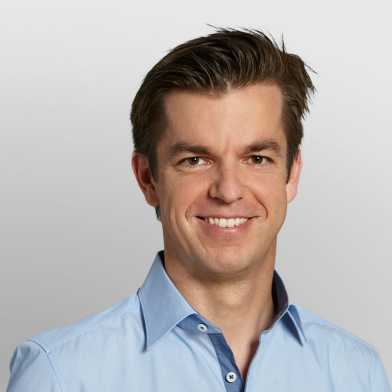
Sascha Quanz searches for traces of life on extrasolar planets orbiting alien stars. The astrophysicist believes that gaining an understanding of life and its origin on Earth is an important stepping stone.
Watching electrons at work
News
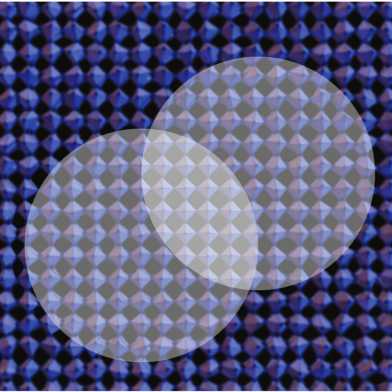
Researchers from ETH Zurich, Empa - Swiss Federal Laboratory for Materials Science and Technology, and Stanford have taken snapshots of the crystal structure of perovskite nanocrystals as it was deformed by excited electrons. To their surprise, the deformation straightened out the skewed crystal structure rather than making it more disordered.
Replicating the structure of bird feathers
News

Modelled on nature: researchers have developed a new material that replicates the structure responsible for the blue feathers of the North American song bird, among many other birds. It also has other striking advantages.
How Zurich has to change its roads to have more e-bikes than cars
News
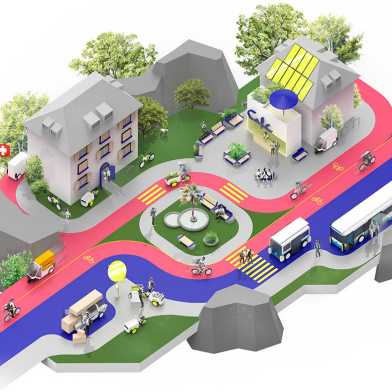
What happens when cities gear their road space primarily to the needs of cyclists and e-bikers? On a new popular-science website, ETH researchers use examples from the city of Zurich to show what such an “E-Bike City” could one day look like.
Lightweight insulating building elements from a 3D printer
News
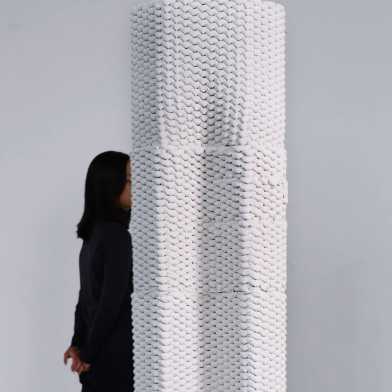
A doctoral researcher studying architecture at ETH Zurich is using 3D printing to produce lightweight insulation building components from cement-free mineral foams derived from recycled industrial waste. These could cut heating and cooling costs for buildings, and encourage more efficient use of construction materials.
Digital emblem for humanitarian law in cyberspace
News

Warfare is increasingly spreading to the realm of cyberspace. In response, the International Committee of the Red Cross (ICRC) wants to protect its digital infrastructure and that of humanitarian organisations with a digital emblem. The Information Security Group at ETH Zurich has developed a standard for this along with initial pilots.
New handlebars for the world champion
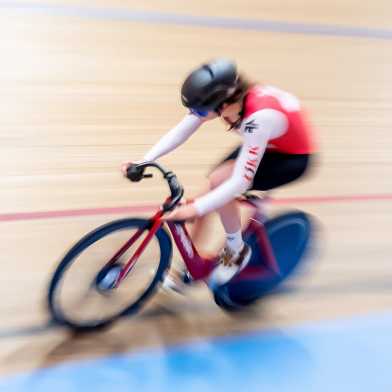
ETH student Luca Hasler has developed a new set of handlebars for parathlete Flurina Rigling. After clinching two world championship titles, she now aims to qualify for the 2024 Paralympics in Paris.
Molecular cooperation at the threshold of life
News
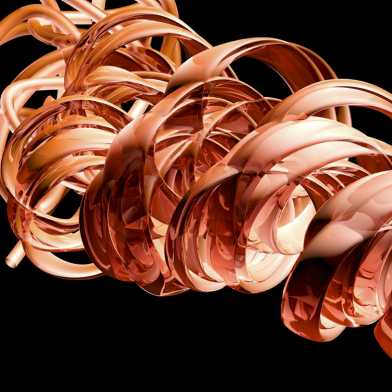
Protein-like aggregates known as amyloids can bind to molecules of genetic material. It is possible that these two types of molecules stabilised each other during the development of life – and that this might even have paved the way for the genetic code.
Artificial intelligence finds ways to develop new drugs
News

A new AI model developed by chemists at ETH Zurich can not only predict where a pharmaceutically active molecule can be chemically modified, but also how best to do it. This makes it possible to identify new pharmaceutical ingredients more quickly and improve existing ones in a targeted manner.
Measuring earthquakes and tsunamis with fibre-optic networks
News

Geophysicists at ETH Zurich have shown that every single wave of a magnitude 3.9 earthquake registers in the noise suppression system of fibre-optic networks. This method can be used to set up close-meshed earthquake and tsunami early warning systems at low cost.
Autonomous excavator constructs a six-metre-high dry-stone wall
News
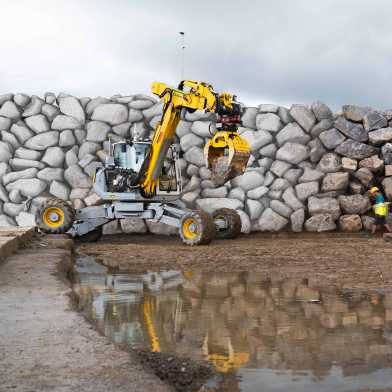
ETH Zurich researchers taught an autonomous excavator to construct dry stone walls itself using boulders weighing several tonnes and demolition debris.
Halting a malformation of the heart
News
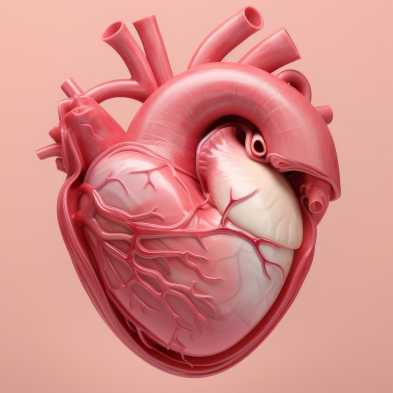
Researchers at ETH Zurich have now shown that a previously unknown protein plays a key role in a congenital malformation of the heart. Their findings point the way towards new treatment options.
A CAS in the repairability of buildings and products
News
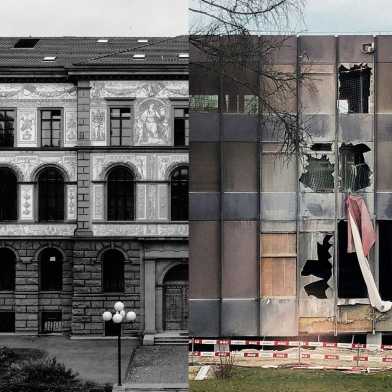
ETH is offering a new continuing education programme in the serviceability and repairability of buildings and products. The CAS is backed by an architect, a product developer and a production technologist.
These researchers have received Starting Grants
News

Of the 13 scientists receiving an SNSF Starting Grant for projects at ETH Zurich this year, 11 are women.
Pioneers of medical materials innovation
News
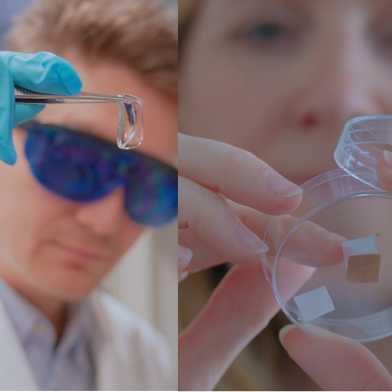
The ETH Zurich Latsis Prize goes to Professor Inge Herrmann, and the Lopez-Loreta Prize to researcher Alexandre Anthis. The two scientists have been working together for five years to develop new materials and applications for medicine.
Greater insights rather than more knowledge
News
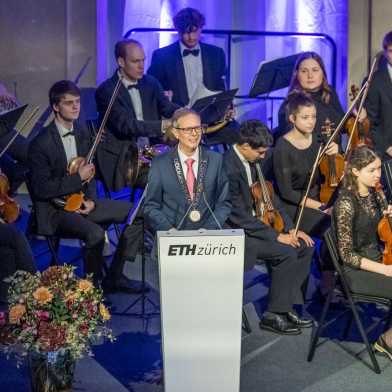
On the 168th anniversary of ETH Zurich, Rector Günther Dissertori set out his vision for further improvements in teaching. ETH President Joël Mesot and SNB Chair Thomas Jordan spoke about how ETH contributes to a strong Switzerland and what it needs to continue its mission in the future.
ETH Zurich boosts networking with Europe’s top universities
News
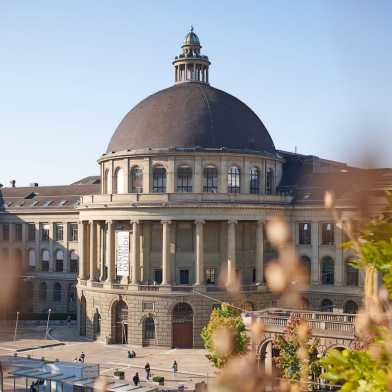
ETH Zurich will join the League of European Research Universities (LERU) on 1 January 2024. This will boost its networking with the European university landscape.
When growth becomes a weakness
News
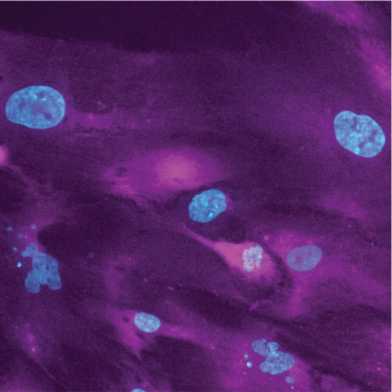
ETH Zurich researchers are illuminating what can happen when cells exceed their normal size and become senescent. Their new findings could help to optimise cancer treatments.
A new kind of magnetism
News

ETH Zurich researchers have detected a new type of magnetism in an artificially produced material. The material becomes ferromagnetic through minimization of the kinetic energy of its electrons.
Printed robots with bones, ligaments, and tendons
- Homehero
- News
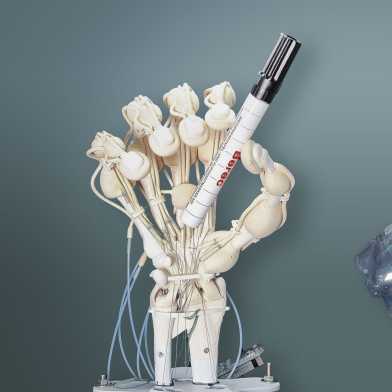
For the first time, researchers have succeeded in printing a robotic hand with bones, ligaments and tendons made of different polymers using a new laser scanning technique.
Natural coasts protect against tropical cyclones
News

People living on the in low-lying coastal areas will be at even greater risk from cyclones in the future. Natural ecosystems offer protection, but this protection has decreased in recent years and is expected to continue to decline. This is a finding of a model study by an international team of researchers led by ETH Zurich.
An advocate of public space
News
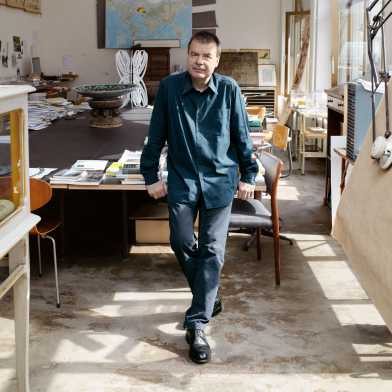
Günther Vogt is one of the most sought-after landscape architects of our time. He has opened the eyes of an entire generation of architects to public space. After 18 years as an ETH professor, he is now retiring.
Diverse forests hold huge carbon potential, as long as we cut emissions
- Press release
- News

New study estimates that natural forest recovery could capture approximately 226 Gigatonnes (Gt) of carbon, but only if we also reduce greenhouse gas emissions. Achieving these results requires community-driven efforts to conserve and restore biodiversity.
Green change in a grey industry
- News
- Homehero
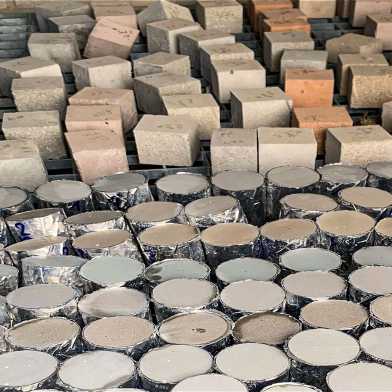
ETH researchers are developing a low-carbon cement with a significantly lower embodied CO2 content than traditional cement. The Ultra Green Concrete project aims to make low-carbon, high-performance concrete widely accessible.
Masterful knowledge generator and visionary innovator
News
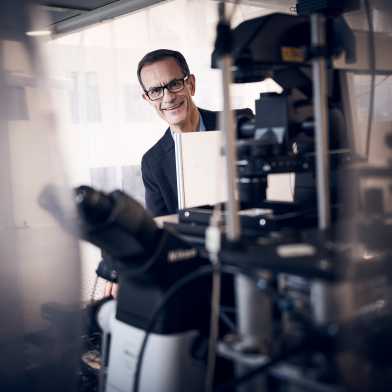
Dimos Poulikakos is retiring in January 2024. The ETH Professor of Thermodynamics has developed many practical applications. His lectures on the fundamentals of thermodynamics have delighted more than 8,000 students; now he passes on a piece of advice for aspiring researchers.
An excellent pavilion for circular construction
News
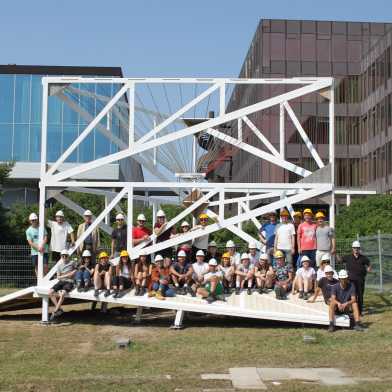
In a practical teaching project, ETH students used materials from the demolished Huber Pavilions to construct a building in the spirit of the circular economy. The Re-Use Pavilion on the ETH Hönggerberg campus has now been honoured with an Arc Award.
Why business should embrace digital responsibility
- News
- Zukunftsblog

As society increasingly expects the responsible use of digital technologies, firms with better practices will have a distinct advantage, says Tomoko Yokoi. Digital responsibility should not only be seen as a duty to comply with regulations but also as an activity that generates value.
Humans are far superior to robots
News
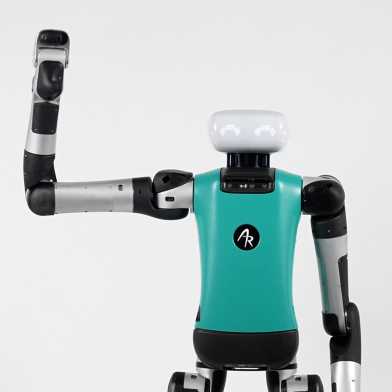
A new ETH study compares 27 humanoid robots with humans and comes to the conclusion that while robots have better components, they are still not capable of achieving as much. However, according to the authors of the study, the machines are catching up.
The future of work: 3/2, 2/3, or 0/4?
- News
- Zukunftsblog
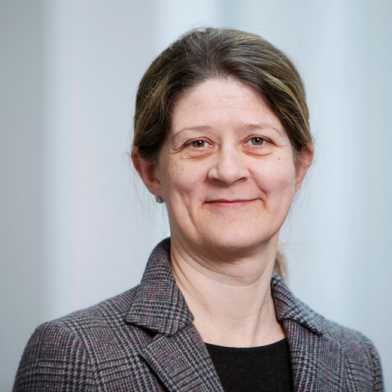
How productive are we when we work from home? It’s an increasingly common question. But Gudela Grote believes it’s the wrong question, because it says more about our conceptions of human nature than about effective ways of working.
Two projects launched to connect error-corrected qubits
News
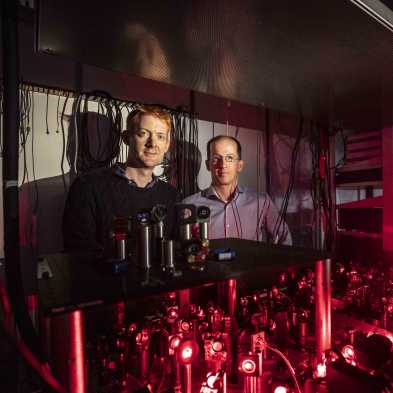
ETH Zurich is participating in two quantum computing projects that are being financed by IARPA, the US research funding agency, with up to 40 million dollars. Both projects aim to connect two error-corrected qubits with one another and thus lay the foundation for future quantum computers.
Reducing anxiety and stress with pupil feedback
News
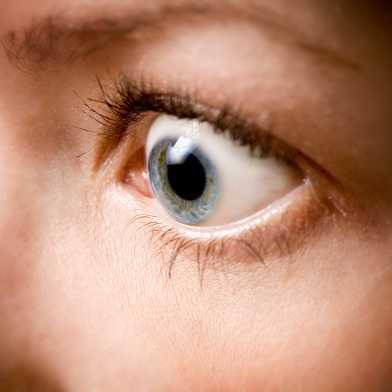
The brain’s state of arousal is the key to many stress- and anxiety-related disorders. Researchers at ETH Zurich have now found a way to influence it with a new biofeedback method.
Two ERC Synergy Grants for ETH Zurich researchers
News
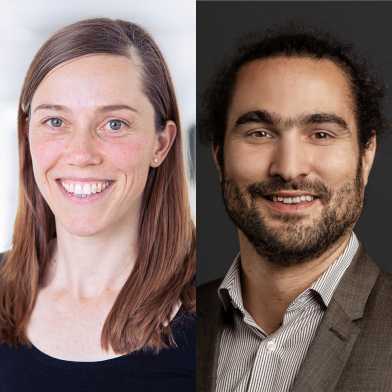
ERC Synergy Grants have been awarded to Barbara Treutlein from the Department of Biosystems Science and Engineering and Nicolas Noiray from the Department of Mechanical and Process Engineering, together with their European partners.
Timothy Richmond honoured with highly endowed WLA prize

The Chinese World Laureates Association (WLA) has awarded highly endowed science prizes for the second time. The prize for Life Science or Medicine goes to ETH professor emeritus Timothy Richmond, among others.
3D printed reactor core makes solar fuel production more efficient
News
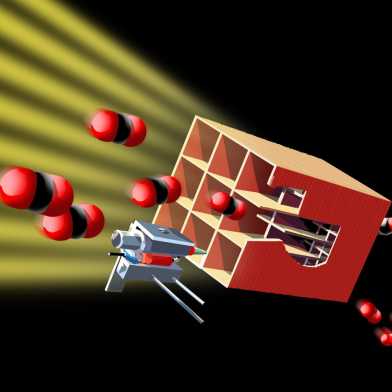
Using a new 3D printing technique, researchers at ETH Zurich have developed special ceramic structures for a solar reactor. Initial experimental testing show that these structures can boost the production yield of solar fuels.
This bottle makes sparkling water on the go
News

Sparkling water on the go at the touch of a button and entirely plastic-free. The new water bottle by ETH spin-off bottleplus makes this possible.
Mystery of the Martian core solved
News
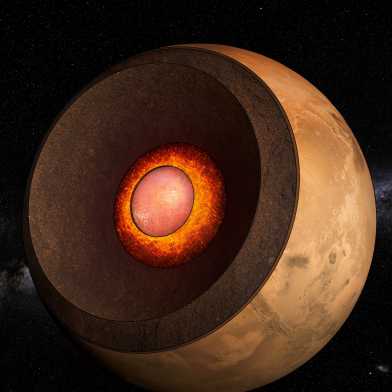
Mars’s liquid iron core is smaller and denser than previously thought. Not only is it smaller, but it is also surrounded by a layer of molten rock. This is what ETH Zurich researchers conclude on the basis of seismic data from the InSight lander.
Tackling water stress in the Swiss Alps
- News
- Zukunftsblog
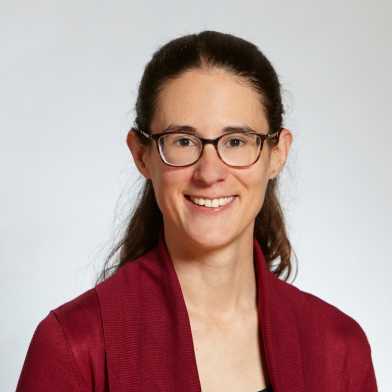
The Alps are being increasingly affected by floods and droughts. According to Manuela Brunner, we can do something about this problem: use water more sparingly and think about hazard protection in broader terms.
Better cancer diagnosis thanks to digital 3D images
News
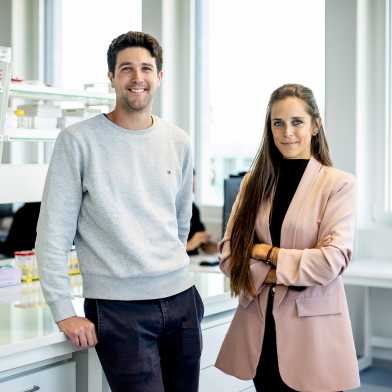
How to bring a diagnostic process that has endured for 100 years into the digital age? Two researchers from ETH Zurich and the University of Zurich are developing a robotic platform that enables a more accurate diagnosis of cancer cells by rapidly quantifying tissue samples in their entirety.
Moldovan President visits ETH Zurich
News
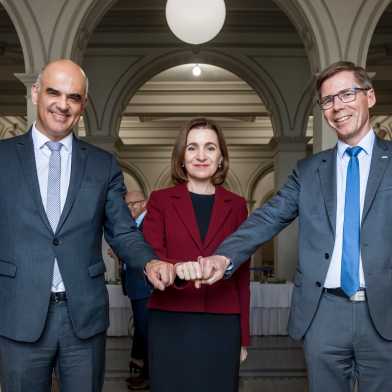
Nothing less than the future of the democratic world was the topic of the visit of Moldovan President Maia Sandu to ETH Zurich. Together with Alain Berset, President of the Swiss Confederation, she took part in a panel discussion in the Audi Max yesterday.
Generating clean electricity with chicken feathers
News

Turning unused waste from food production into clean energy: Researchers at ETH Zurich and Nanyang Technological University Singapore are using chicken feathers to make fuel cells more cost-effective and sustainable.
ETH Zurich researchers study one of the world’s darkest rivers
News

They set out to study the Congo Basin’s carbon cycle and in the process have become aware of one of the world’s darkest blackwater rivers: the Ruki. In the first study on this major jungle river, an international research team led by ETH Zurich explains how this blackness comes about and what it says about the river system’s carbon balance.
Research that provides sustainable and nutritional benefits
News
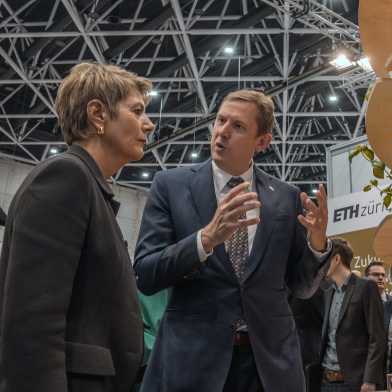
ETH Zurich is present at the Olma trade fair in St Gallen. Using spin-offs and games, the ETH booth illustrates how research can contribute to making Swiss food and agriculture sustainable.
Closer partnership between ETH Zurich and the United Nations
Press release
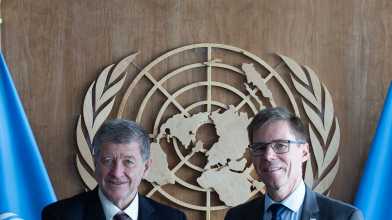
ETH Zurich and the United Nations have confirmed their desire to work together more closely by signing a memorandum of understanding. The partnership is intended to support the development of technology-based social innovations for addressing global challenges.
Through the Australian outback in a self-built solar car
News
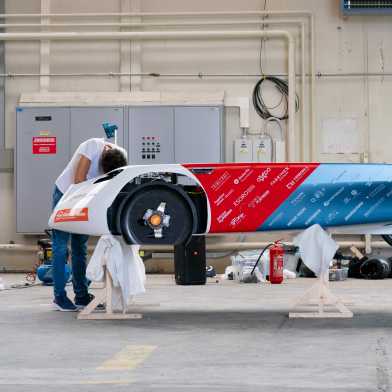
For the first time, a team of students from ETH Zurich is taking part in the renowned World Solar Challenge. Will they be able to keep up with the world’s best?
Heavy trucks likely not zero-emission in the near future
News

Without political measures for zero-emission technologies, a significant proportion of heavy goods vehicles will still run on diesel in 2035. This result is shown in a new ETH Zurich study on the decarbonisation of truck traffic.
“We’re living in yesterday’s future scenarios”
News
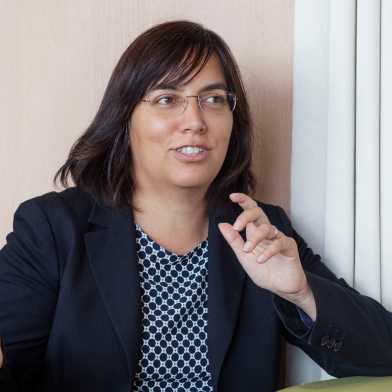
ETH Professor Sonia Seneviratne has been elected as Vice-Chair of the Working Group I of the Bureau of the Intergovernmental Panel on Climate Change (IPCC). In order to take on this new responsibility, she is stepping down as Associate Vice President for Sustainability at ETH Zurich. In this interview she talks about her old and new positions.
Increased deep sleep benefits your heart
News
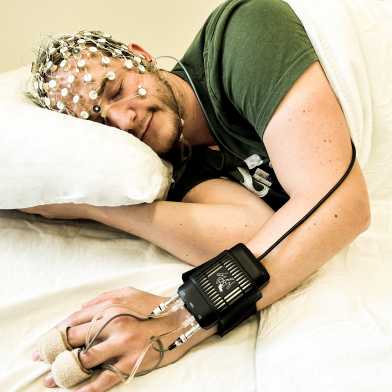
Stimulating the brain with gentle sounds during deep sleep significantly enhances cardiac function, according to a new study. This discovery could have implications not only for cardiovascular diseases but also for competitive sports, among other areas.
Predictions of the effect of drugs on individual cells are now possible
News
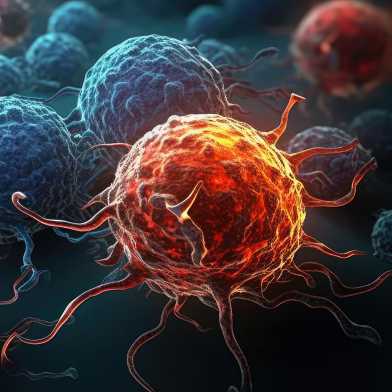
Experts from ETH Zurich, the University of Zurich, and the University Hospital Zurich have used machine learning to jointly create an innovative method. This new approach can predict how individual cells react to specific treatments, offering hope for more accurate diagnoses and therapeutics.
Reflecting on one’s values increases success in job search
News

ETH Zurich researchers show in a new study that a short reflection exercise to boost self confidence increases job search success. This holds true even for the long-term unemployed and people over 50.
“I learned to appreciate teamwork.”
- News
- Homehero

Studying at ETH Zurich is challenging, and all students have their personal hurdles to overcome. This video series shows personal portraits of ETH students.
A hygiene program for chromosomes
News
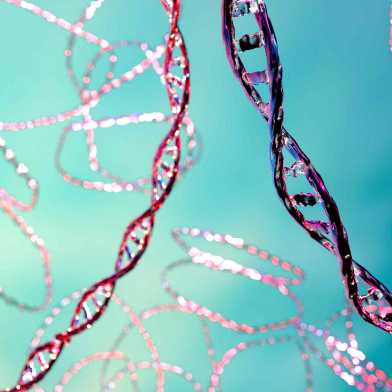
Cell biologists at ETH Zurich describe a new organelle present in mammalian cells that is made of rings of DNA. This container could potentially play a role in autoimmune diseases, and it could help researchers to understand how cell nuclei evolved.
Cloëtta Jubilee prize awarded to two ETH professors in Basel
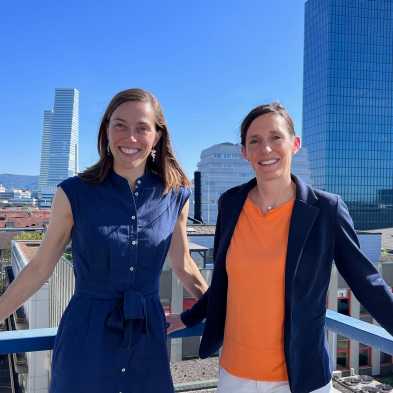
Professors Tanja Stadler and Barbara Treutlein awarded the Cloëtta Jubilee Prize for their outstanding achievements in biomedical and developmental biology research.
How a suction cup delivers medications to the bloodstream
News
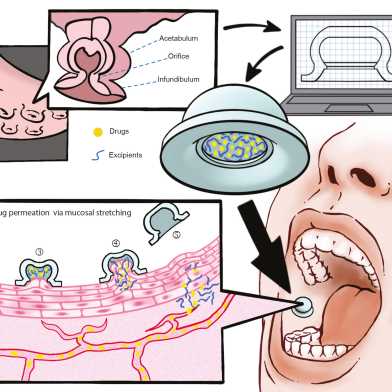
Researchers at ETH Zurich have developed a suction cup that allows medications to be absorbed through the mucosal lining of the cheeks. This new approach could spare millions of patients the pain and fear associated with injections.
ETH Zurich again in 11th place in the newest world ranking
News
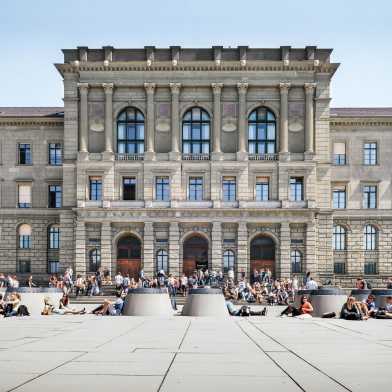
ETH Zurich maintains its top ranking in 11th place on the Times Higher Education World University Rankings for 2024.
“I try not to sacrifice my private life”
News
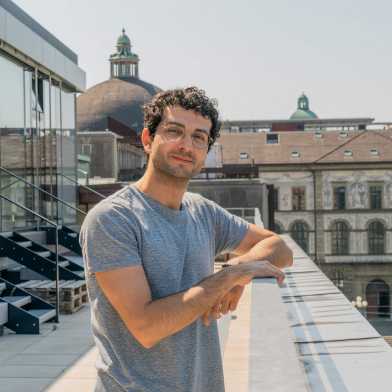
Studying at ETH Zurich is challenging, and all students have their personal hurdles to overcome. This video series shows personal portraits of ETH students.
The seas are in extremis
- News
- Zukunftsblog

An extraordinary heat wave is assailing the world’s oceans with an intensity that is surprising climate researchers. Environmental physicist Nicolas Gruber provides some context.
Five professors appointed
News
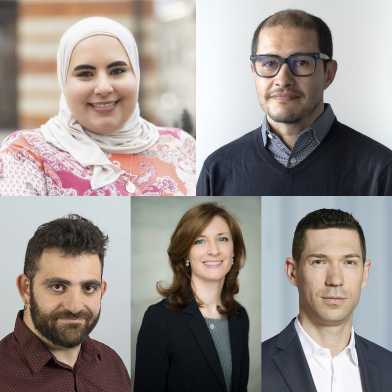
At its meeting of 20 and 21 September 2023 and upon application of Joël Mesot, President of ETH Zurich, the ETH Board appointed five professors and awarded the title of professor three times.
Genetically modifying individual cells in animals
News
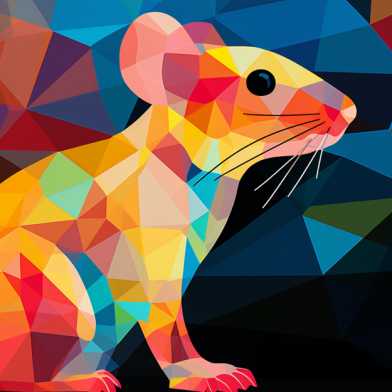
Researchers at ETH Zurich have developed a method that lets them genetically modify each cell differently in animals. This allows them to study in a single experiment what used to require many animal experiments. Using the new method, the researchers have discovered genes that are relevant for a severe rare genetic disorder.
"It's important to believe in yourself"
News

Studying at ETH Zurich is challenging, and all students have their personal hurdles to overcome. This video series shows personal portraits of ETH students.
ETH continues to grow
Press release
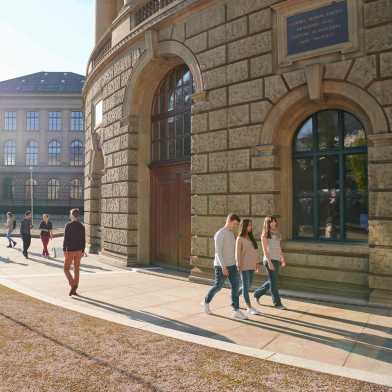
On 18 September, ETH Zurich will welcome more than 25,000 students for the Autumn Semester, according to provisional figures. Enrolment at the Bachelor’s level has risen for the first time since the pandemic.
How Europe’s forests regenerate – without any human interference
News

Forests renew themselves naturally. There has been very little research into how exactly this happens – until now. Researchers at ETH Zurich and WSL have set themselves the task of solving this puzzle.
A human model for autism
News
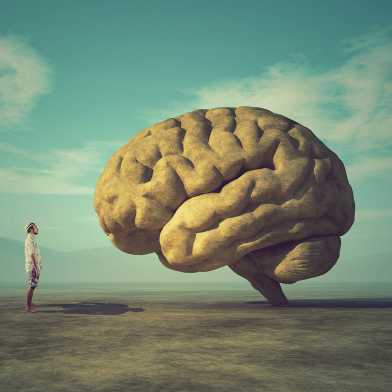
The CRISPR-Cas gene scissors enable researchers to study the genetic and cellular causes of autism in the lab – directly on human tissue.
From zero to one hundred in 0.956 seconds
Press release
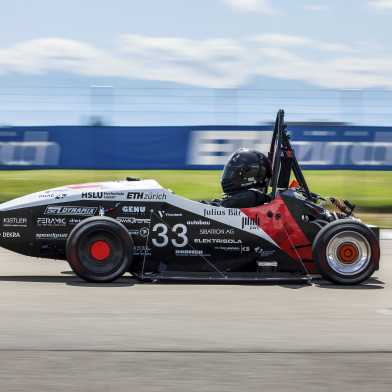
Students from ETH Zurich and Lucerne University of Applied Sciences and Arts have broken the previous world record for acceleration with their hand-built electric racing car, mythen. The vehicle accelerated from zero to 100 km/h in 0.956 seconds over a distance of 12.3 metres.
Ocean acidification in coloured stripes
News

Our oceans are acidifying rapidly. Climate researchers from ETH Zurich are now illustrating these chemical changes with colour-coded stripes. Global observations of ocean acidification over the last four decades serve as the basis.
Mathematician without too many plans
News
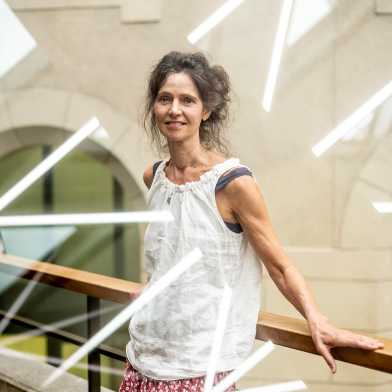
The first woman mathematics professor at ETH Zurich, Sara van de Geer, is retiring after 18 years at the university. For the moment, not a lot will change for the Dutch researcher – and she is fine with that.
ETH has brought the original telescope from its fabled observatory back home
News
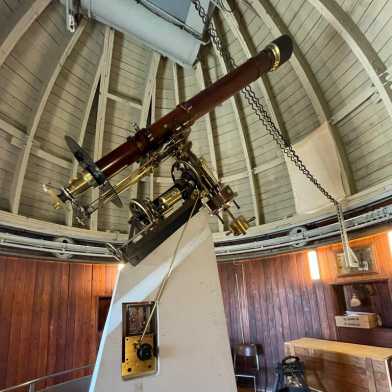
With the return of the original telescope from 1864, the year the observatory was founded, ETH is taking a further step towards collecting, documenting and preserving its architectural and scientific heritage.
Cacao “fingerprints” for better chocolate
News

Using a new analytical method, ETH Zurich doctoral student Julie Lestang aims to determine the chemical profile of cacao beans reliably and quickly. This forms the basis for controlled fermentation – and high-quality chocolate.
“We need two-way communication with our industry partners”
News
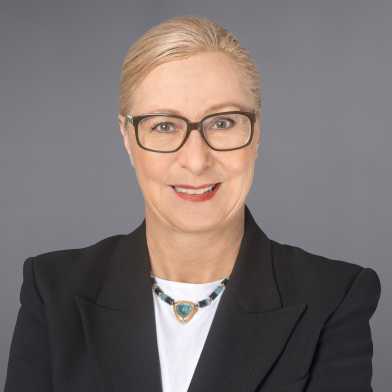
Vanessa Wood, Vice President for Knowledge Transfer and Corporate Relations, wants to expand research collaborations with industry, governmental agencies and non-profit organisations. She has recruited Jeannine Pilloud, who brings a wealth of industry experience, to help her with this task.
Is Switzerland spending its climate funds wisely?
- Zukunftsblog
- News
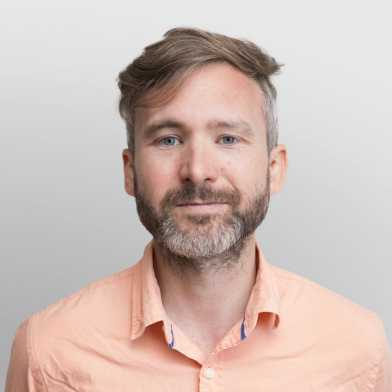
Through a new bilateral carbon trading pact, Switzerland is poised to fund thousands of household biogas reactors in Malawi. Marc Kalina has worked with biogas projects across Southern Africa and explains why they often fail to make their promised impact.
ETH Zurich employs computers as supplementary maths tutors
News
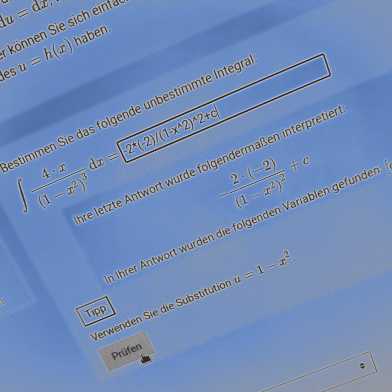
Every year at ETH Zurich, hundreds of students learn the fundamentals of mathematics through lectures and exercises. Now, their lecturers are also setting them practise sequences on the computer. This interview highlights the potential of a new method.
In the great outdoors
- Globe magazine
- Homehero
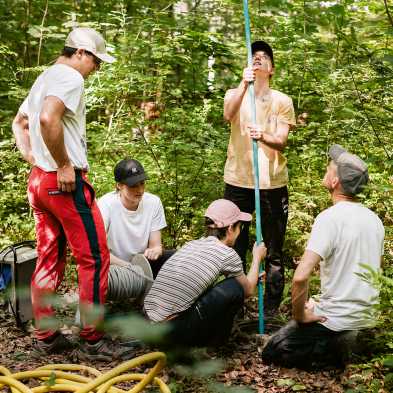
ETH students are mapping the groundwater in an area of forest near Bern. This fieldwork will give them the skills they need for a career in environmental engineering.
Science inspires tens of thousands
Press release
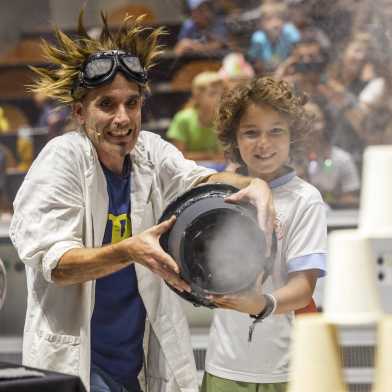
At Scientifica, Switzerland's largest science festival, 20,000 to 30,000 visitors experienced science up close this weekend. They exchanged ideas with around 1000 researchers from ETH and the University of Zurich, who presented their work at exhibition booths, in short lectures, workshops or on laboratory tours.
A contradiction at the heart of physics
Globe magazine
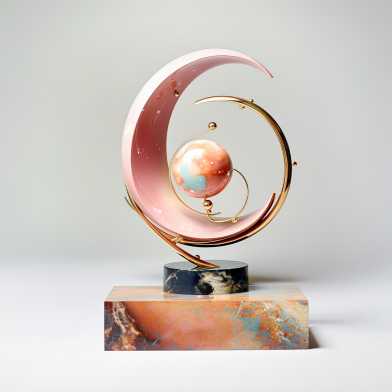
Quantum mechanics describes the forces that hold the world together on the smallest scale. The theory of relativity explains the world at the cosmic level. The two seem incompatible – and a unifying theory is nowhere in sight.
Autonomous robot dogs, drones and racing cars
News
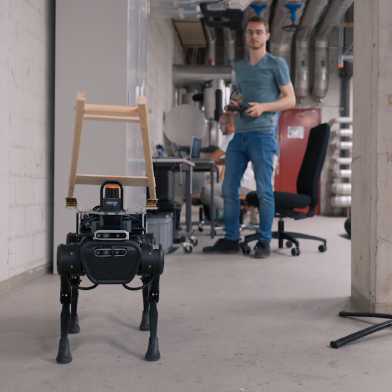
At the D-ITET Centre for Project-based Learning, students combine their technical knowledge with practical experience to work on energy-efficient smart sensors and embedded systems that are used, for example, in machines, household appliances or medical instruments.
ETH Zurich welcomes industry leaders
News
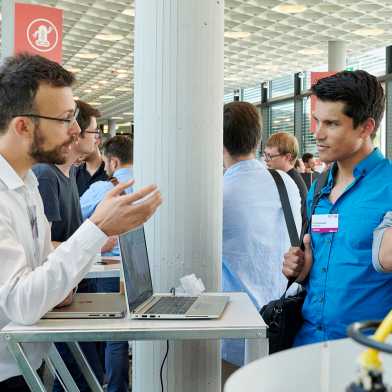
At the ETH Industry Day on 6 September, companies can get first-hand information on current projects, partnerships, and entrepreneurial activities at ETH Zurich.
More respect for people who think differently
Globe magazine
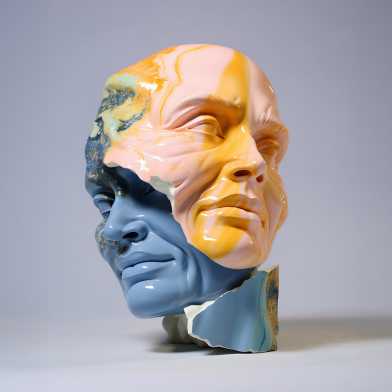
Polarisation seems to have increased in recent years, whether between right and left, urban and rural, or the supporters and opponents of vaccination. We talked to two experts about the cracks in society – and the glue that binds us together.
An investment in more research to benefit children and adolescents
Press release
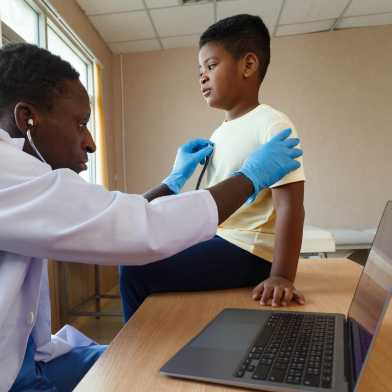
Fondation Botnar is donating an additional CHF 50 million to the University of Basel and ETH Zurich to expand the activities of the joint Botnar Research Centre for Child Health (BRCCH). This support will allow to create six new professorships with a research focus on paediatric digital health.
A change of perspective
Globe magazine

Strategy games developed by ETH ecologists bring different stakeholders to the table. By shifting people’s perspectives, they create a win-win situation for environmental protection.
Heatwaves are becoming more frequent and more deadly
News
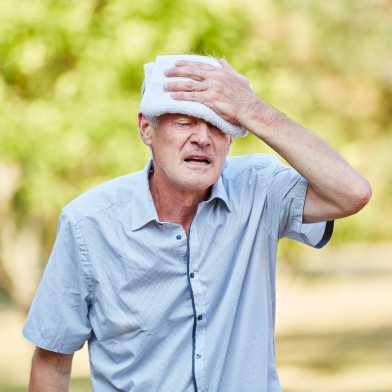
The risk of fatal heatwaves has risen sharply over the past 20 years. In the future, such extreme weather will become more frequent and heat-related excess mortality will increase. Europe will be particularly affected, as ETH Zurich researchers show.
The strength of nature's weakest force
- Globe magazine
- Homehero

Gravity keeps our feet firmly on the ground and Earth in its orbit around the Sun. Meanwhile, satellites in space measure the acceleration caused by the Earth’s gravitational pull.
Being human
Globe magazine
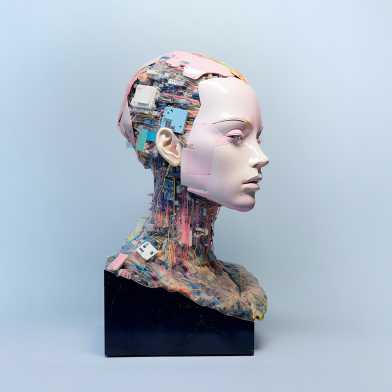
With its ability to write text and generate images, artificial intelligence is making inroads into many areas of life. Perceived as threatening, enriching or just plain gimmicky, AI also raises a fundamental question: what is it that makes us human?
Comedian with a head for business
- Globe magazine
- Homehero
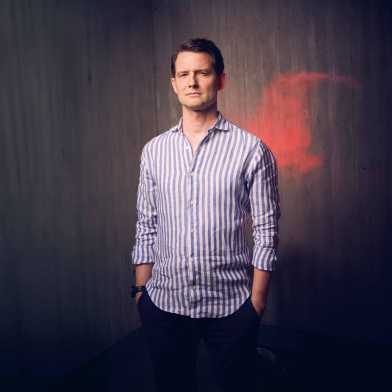
ETH alumnus Fabian Unteregger is one of Switzerland’s most successful cabaret artists. But bringing people together and coming up with solutions is where his passion lies.
"Power is not intrinsically good or bad"
- Globe magazine
- Homehero
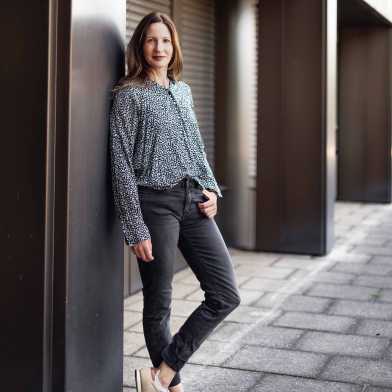
Work psychologist Petra Schmid studies the effects of social power. She favours an interdisciplinary approach that includes both lab experiments and surveys.
Made from waste instead of trees
- Homehero
- News
- Globe magazine
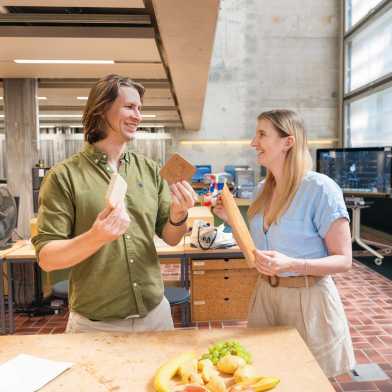
The start-up Treeless Pack produces cellulose with microorganisms - entirely without wood. The cellulose can be used to produce paper, packaging material or composites for the construction industry in a resource-saving way.
Unique proximity to Ticino
News

Over the coming months, ETH Zurich will be taking a particularly close look at Ticino. The University’s Graphische Sammlung is not only presenting a new exhibition on artistic activity in and around the canton of Ticino but also opening a unique exhibition at MASI in Lugano.
Biodiversity protects against invasions of non-native tree species
News

For the first time, researchers combined human and ecological factors to analyse the global scale of non-native tree species invasions. Human activity in hotspots of global trade, such as maritime ports, is linked to an increased likelihood of non-native tree species invasions. However, a high diversity of native tree species can help to curb the intensity of such invasions.
Cells with an ear for music release insulin
News
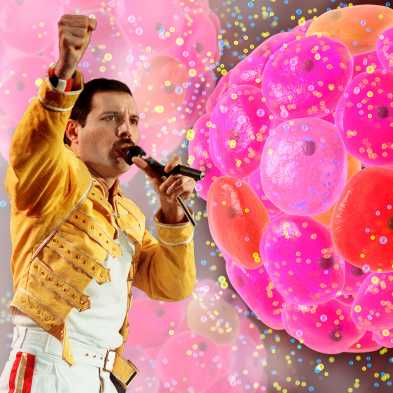
"We will rock you": ETH Zurich researchers are developing a gene switch that triggers insulin release in designer cells by playing certain rock and pop songs.
Valuable raw materials from olive waste
News

ETH spin-off Gaia Tech transforms waste from olive oil production into high-quality antioxidants for use in cosmetics or food. This turns waste into valuable raw materials.
How Salmonella grow together in the gut and exchange antibiotic resistance
News
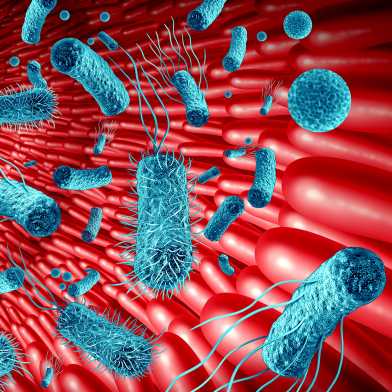
The ability to utilize a mere single alternative food source is all it takes for diarrhoea causing Salmonella bacteria to bloom when a gut is already colonized by a closely related strain, according to researchers from ETH Zurich. This coexistence enables the exchange of antibiotic resistance.
Ueli W. Suter (1944 - 2023)
News
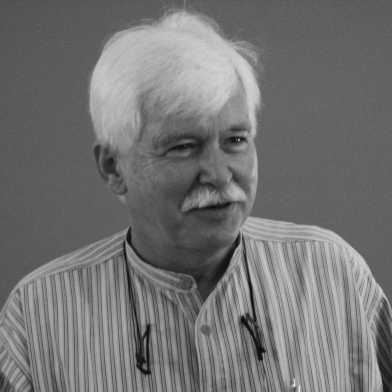
ETH Zurich mourns the death of materials scientist Ueli W. Suter, ETH Professor Emeritus and former Vice President Research. A personal obituary by his long-time colleague Nicholas Spencer, Professor Emeritus of Surface Science and Technology.
Collecting clean water from fog
News
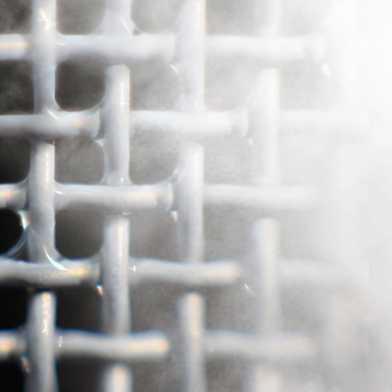
Researchers at ETH Zurich have demonstrated the use of a specially coated metal mesh to harvest water from fog and simultaneously remove pollutants. People living in dry but foggy areas should benefit from this technology.
Advanced Grants for systems biologist and computer scientist
News
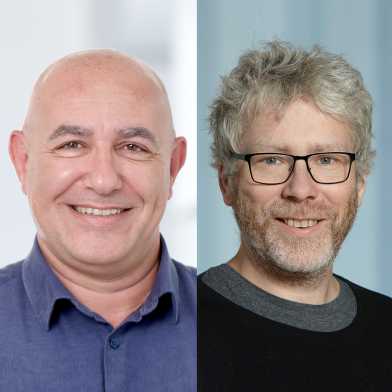
ETH Zurich professors Mustafa Khammash and Marc Pollefeys are each recipients of a prestigious Advanced Grant currently awarded by the Swiss National Science Foundation, rather than the European Research Council.
Building muscle in the lab
- Homehero
- News
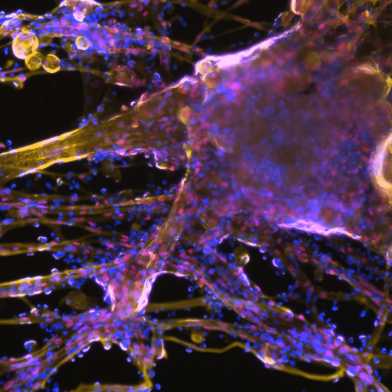
A new method allows large quantities of muscle stem cells to be safely obtained in cell culture. This provides a potential for treating patients with muscle diseases – and for those who would like to eat meat, but don’t want to kill animals.
Scientifica 23: What holds the world together
News
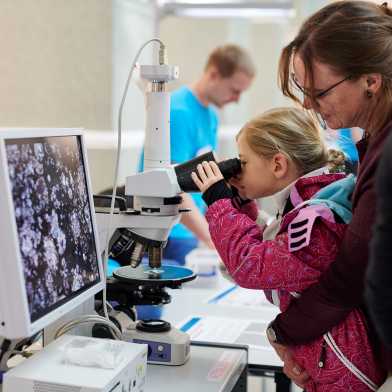
On the weekend of 2-3 September, visitors can experience science up close and personal at interactive exhibition stands, shows and workshops and exchange ideas with researchers. Scientifica, Switzerland's largest science festival starts on 26 August with events in the city of Zurich. Free tickets are available now.
Bear-human coexistence rethought
News
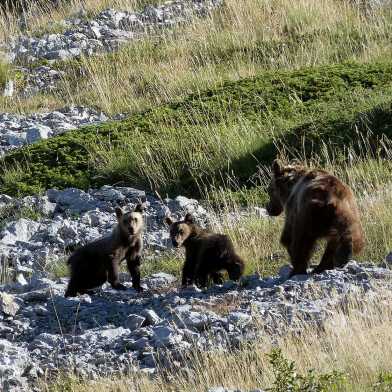
The media uproar over wolf attacks on livestock in Switzerland and a bear attack in Italy show how charged the issue of large carnivores and humans coexisting in Europe is. ETH Zurich researcher Paula Mayer has now created a participatory model to help facilitate human-bear coexistence using the example of the Apennine brown bear.
ETH historic building renovated to current-day standards
News
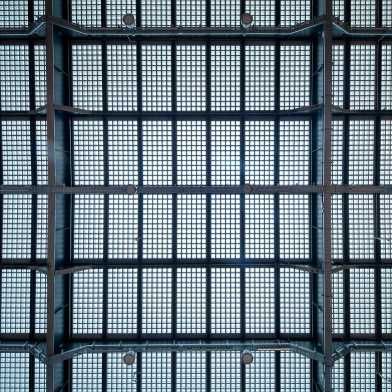
An ETH Zurich architectural centrepiece – the machine laboratory– has been renovated. The historically significant machine hall has been extensively restored to its original condition. The renovation provides ETH with additional space for research and teaching.
Favoured asylum seekers are young, female and fleeing war
Press release

An international research group with ETH professor Dominik Hangartner has found that solidarity with refugees in Europe has remained stable, despite repeated refugee crises. While there is a tendency to view refugees from Ukraine more positively, this does not come at the expense of other groups.
Planting ideas in a computer’s head
News
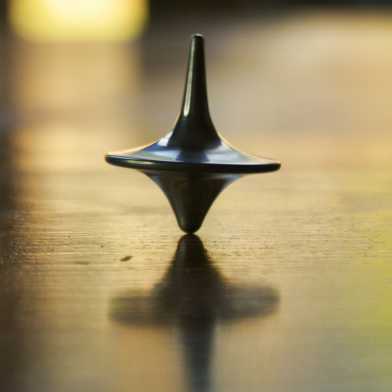
Researchers at ETH Zurich have found a new attack on AMD computer chips in which the attacker plants an “idea” in the computer without it noticing. Using that attack, it was possible to leak data from anywhere in the computer’s memory.
Treating anaemia with gene scissors
- News
- Homehero
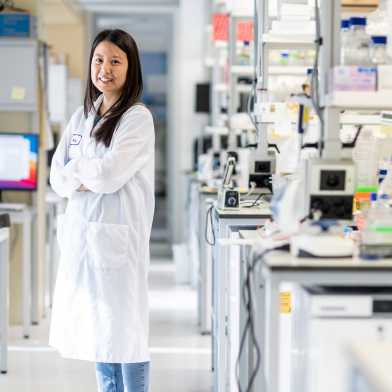
ETH Zurich molecular biologist Mandy Boontanrart is researching gene therapies that could be used to cure two of the most common types of inherited anaemia. She has now developed a promising approach for so-called beta-hemoglobinopathies.
Voluntary carbon offsets often fail to deliver what they promise
Zukunftsblog
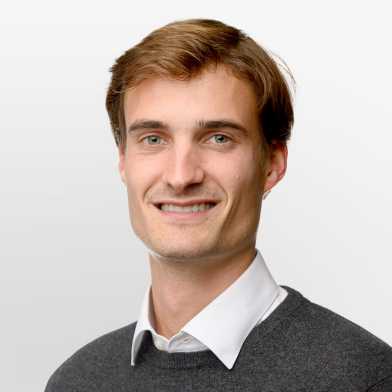
Malte Toetzke calls for more ambitious standards in the voluntary carbon offset market. While this would lead to fewer projects getting funded, the benefit for the climate would be greater overall.
More than just winning medals
- Press release
- Homehero
- News
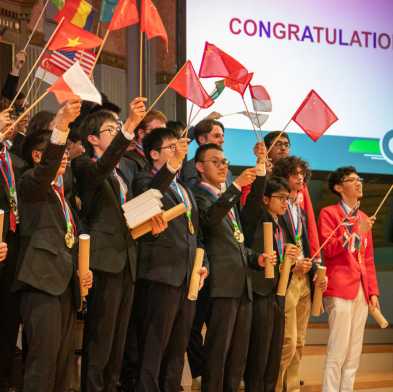
The 55th International Chemistry Olympiad ended with a closing ceremony on Monday afternoon, 24 July. Out of 348 participants, 217 were awarded gold, sil-ver, or bronze medals. The Swiss team took home an "honourable mention."
Using drones to monitor rainforest biodiversity
News
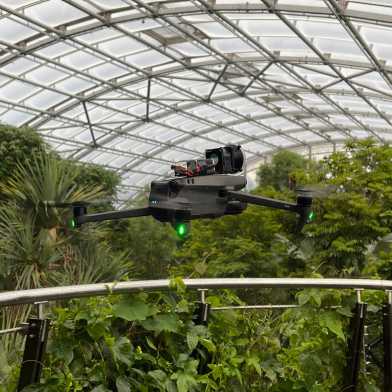
A team led by researchers from ETH Zurich and the Swiss Federal Institute for Forest, Snow and Landscape Research (WSL) advances to the finals of the competition "XPRIZE Rainforest". The international competition aims to promote the development of autonomous technologies for collecting data on biodiversity.
“Research with embryo models needs legal clarity”
News
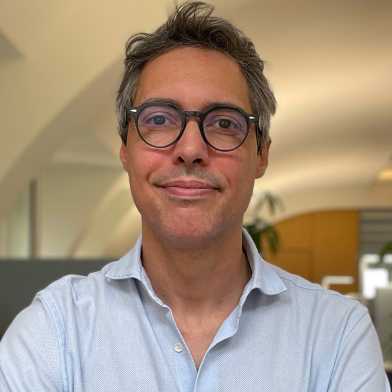
Science often runs ahead of legislation – and this is now also true for research on embryo-like cell aggregates from human stem cells. Bioethicist Alessandro Blasimme of ETH Zurich explains why this controversial topic calls for legal clarity.
Treating bladder infections with viruses
News
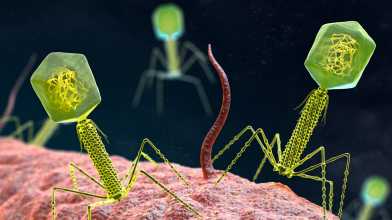
The pathogens that cause urinary tract infections are becoming increasingly resistant to antibiotics. ETH Zurich researchers have now developed a rapid test and a new therapeutic approach using bacteria-infecting viruses known as phages.
Detecting breast cancer earlier with 3D X-rays
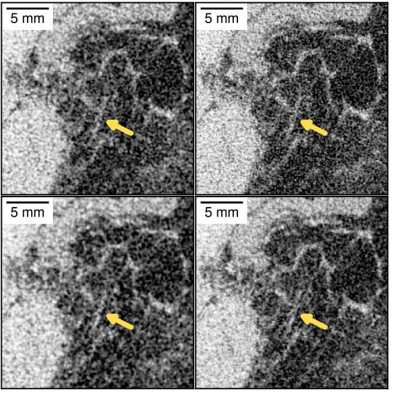
A research team from ETH Zurich and the Paul Scherrer Institute PSI together with the Baden Cantonal Hospital and the University Hospital Zurich wants to improve a method for diagnosing breast cancer.
How AI models teach themselves to learn new things
News

Large language models such as GPT-3 are able to learn new concepts by interacting with their users. Researchers at ETH and Google may now have uncovered a key mechanism behind this capability.
Ten professors appointed
News
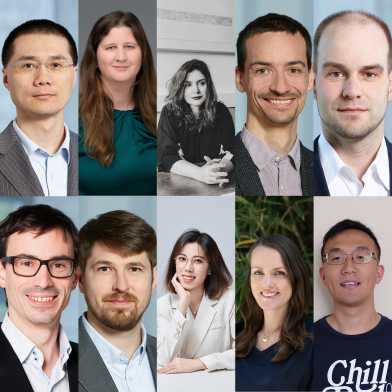
At its meeting of 12 and 13 July 2023 and upon application of Joël Mesot, President of ETH Zurich, the ETH Board appointed ten professors.
First time in Switzerland: the 55th Chemistry Olympiad
News
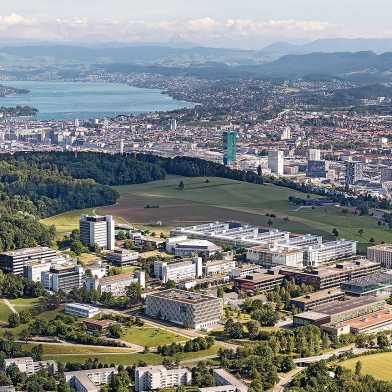
ETH Zurich will host the International Chemistry Olympiad (IChO) between 16 and 25 July. More than 300 young scientists from some 90 countries are expected to participate. This is the first time that Switzerland is hosting the event.
Robot team on lunar exploration tour
News
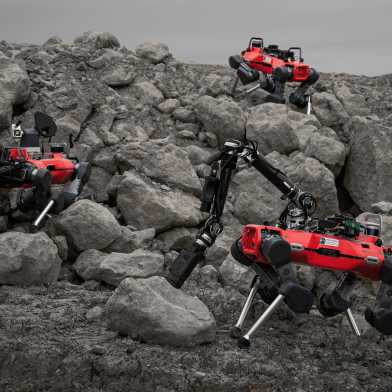
Swiss engineers are training legged robots for future lunar missions that will search for minerals and raw materials. To ensure that the robots can continue to work even if one of them malfunctions, the researchers are teaching them teamwork.
Orexin influences pupil size
News
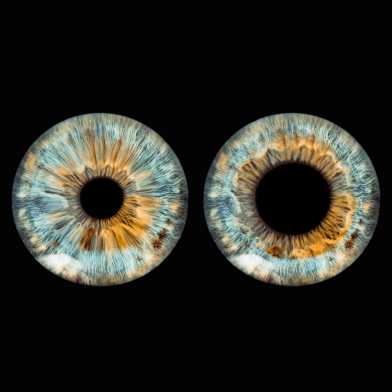
The way the brain regulates pupil size is different from previously thought: fundamentally responsible is the neurotransmitter orexin, as researchers at ETH Zurich have now shown. This discovery could well alter our understanding of consciousness and illnesses such as narcolepsy and Alzheimer’s.
Why there are no kangaroos in Bali (and no tigers in Australia)
News

Researchers are using a new model to clarify why millions of years ago more animal species from Asia made the leap to the Australian continent than vice versa. The climate in which the species evolved played an important role.
Building models to predict interactions in plant microbiomes
News
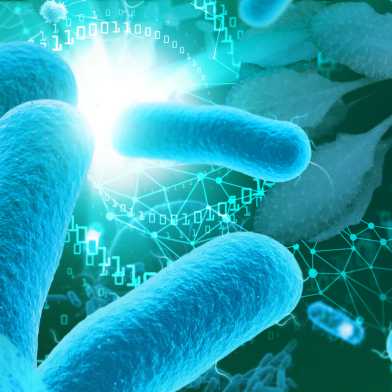
Microbiologists at ETH Zurich have developed computational models that use nutrients and metabolism of plant-associated bacteria to predict how the microbes interact on the surface of leaves and ultimately form the microbiome.
Working together to train and empower the next generation of biomedical researchers
News
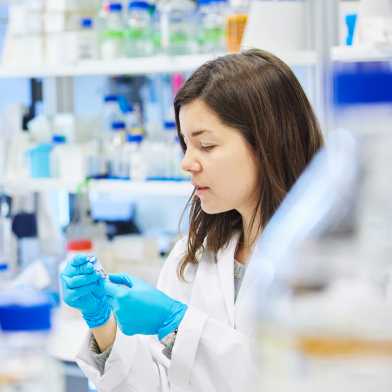
ETH Zurich and Roche are joining forces in Basel to advance the development of new methods that facilitate the search for medicines. Together, they will train specialists for the biomedical challenges of our time.
A new space for clinical research
- Press release
- News
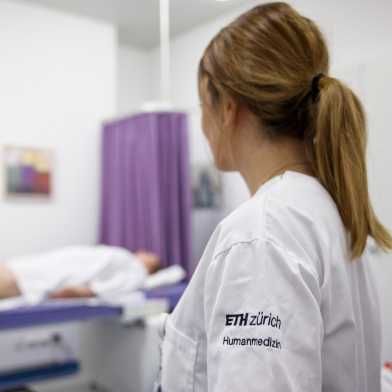
Kantonsspital Baden (KSB) and ETH Zurich have been working together since 2017, mainly in teaching initially, but increasingly in clinical research. Now three ETH professors are moving into new premises on the hospital’s healthcare campus. Together, they want to make findings from basic research available for the benefit of patients.
An unexpected antenna for nanoscale light sources
News
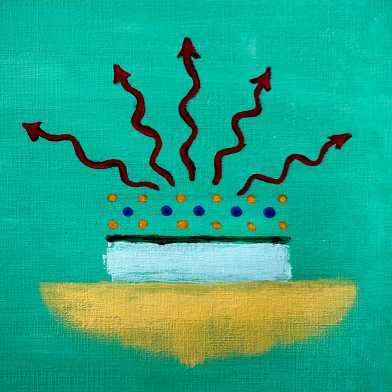
Researchers at ETH have created an antenna for light sources on a chip using an unusual placement of a semiconductor material. In the future, efficient nanoscale LEDs and lasers could be produced in this way.
Rethinking wastewater management
- Globe magazine
- News

Sewer systems and centralised treatment plants are not a sustainable solution for managing the world’s wastewater. Environmental engineers at ETH Zurich and Eawag have been helping to develop decentralised, closed-loop modular systems.
A good solution’s secret
- Homehero
- News
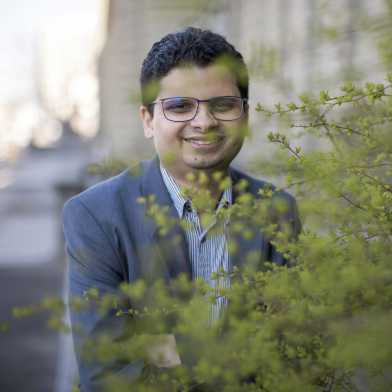
Mathematician Siddhartha Mishra has been awarded this year's Rössler Prize for his research on solutions for highly complex flow and wave phenomena. He is being recognised for his contributions to faster and more accurate predictions of weather, climate and tsunamis, and for the computer simulations that enable them.
Why urea may have been the gateway to life
News
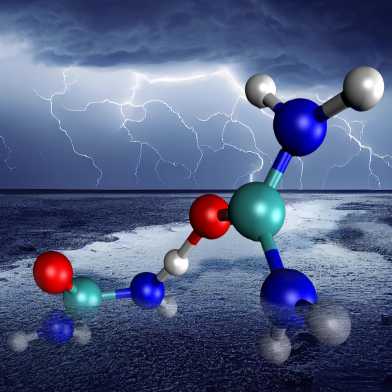
Urea reacts extremely quickly under the conditions that existed when our planet was newly formed. This new insight furthers our understanding of how life on Earth might have begun.
QS Rankings: ETH Zurich takes a top spot thanks to long-term investments in research and teaching
News
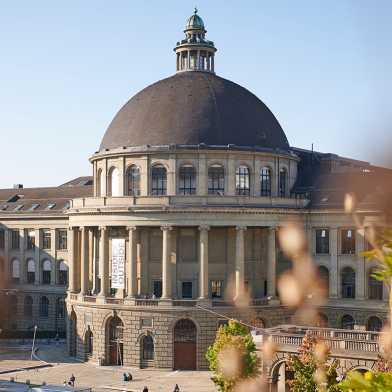
ETH Zurich has moved up two positions to take seventh place in the current QS Rankings. This confirms its top position in continental Europe due in large part to its citations per faculty and academic reputation. For the first time, the rankings took into account the metrics graduates’ employment outcomes, sustainability and international research network.
An AI future worthy of humanity
- Zukunftsblog
- News

Ethicist Peter G. Kirchschlaeger highlights how artificial intelligence can be regulated worldwide – and is pleased to have the support of leading international figures.
Safe intubation thanks to artificial intelligence and robotics
News
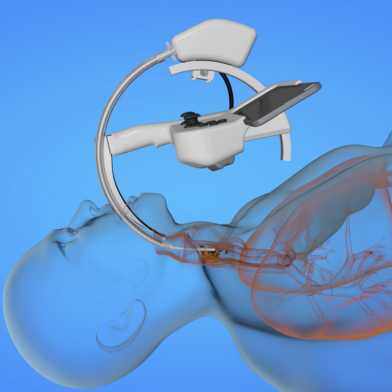
The ETH spin-off aiEndoscopic has developed a device that should make intubation easier and safer in the future. It combines artificial intelligence and robotics.
A change of perspective caused a sensation
News
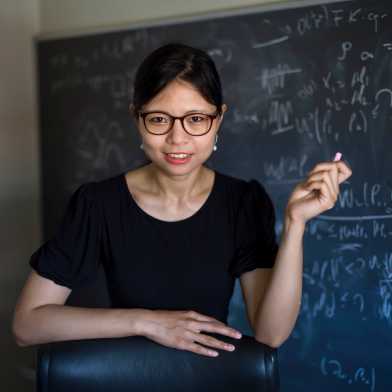
Using applied mathematics, Yunan Yang finds solutions to the inverse problems that arise in seismology, weather forecasts, and machine learning. The key to her success is something called optimal transport.
How an ocean-fertilising bacterium forms aggregates
News

Trichodesmium, a common and ecologically important bacterium, fertilises nutrient-poor regions of the oceans and thereby enables higher life. Crucial to its success is its ability to form aggregates in order to react quickly to changes in its environment. ETH Zurich researchers have shown how the microbes organise themselves in this process.
How AI technology from ETH animates the fire creatures in the latest Pixar movie
News
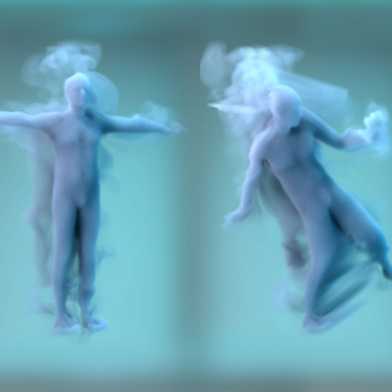
Today, the latest animated film Elemental from Walt Disney Studios and Pixar Animation Studio is released in Swiss cinemas. The film revolves around the fiery Ember, who lives in Element City – a place where fire, water, earth and air beings live. The film is not only made in Hollywood, but also enabled by ETH technology.
Global warming accelerates CO2 emissions from soil microbes
News
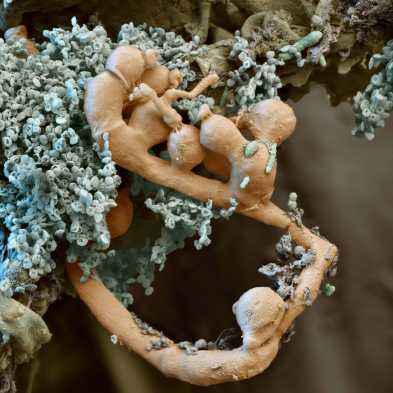
When microorganisms break down organic material in the soil, they actively release CO2 into the atmosphere. This process is called heterotrophic respiration. A novel model shows that these emissions could surge by up to 40 percent by the end of the century – most significantly in the polar regions.
Lasers enable internet backbone via satellite
News
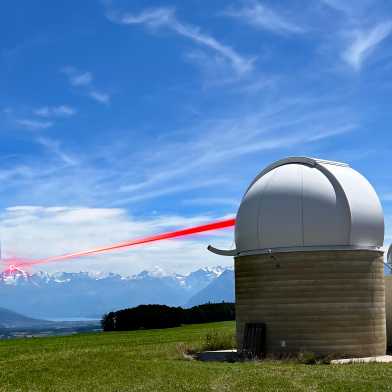
Optical data communications lasers can transmit several tens of terabits per second, despite a huge amount of disruptive air turbulence. ETH Zurich scientists and their European partners demonstrated this capacity with lasers between the mountain peak, Jungfraujoch, and the city of Bern in Switzerland. This will soon eliminate the necessity of expensive deep-sea cables.
To achieve climate neutrality in the chemical industry, we must also cut demand
- Zukunftsblog
- News
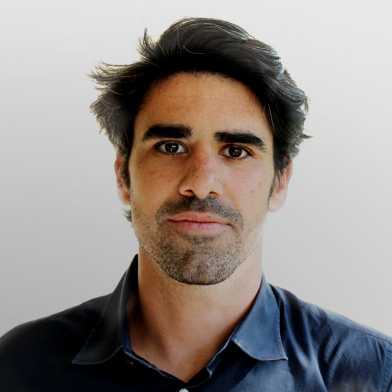
Innovative production technologies are crucial to the chemical industry’s net-zero endeavour – but they’re not always enough, says Paolo Gabrielli.
Traces in the water
- Globe magazine
- News
- Homehero
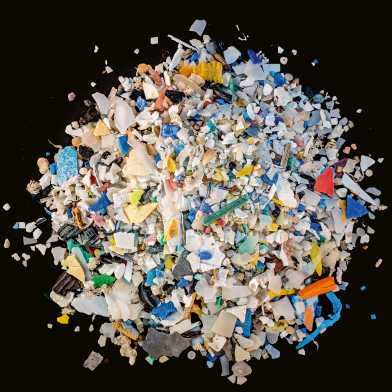
How we are contaminating our waters with microplastics and a multitude of chemicals.
A spy in the belly
News
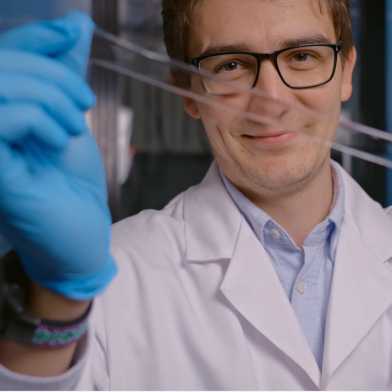
Researchers at ETH Zurich and Empa have developed a patch with a sensor function. It can be used to seal wounds in the abdomen after surgery. The polymer patch warns before the occurrence of dangerous leaks on sutures in the gastrointestinal tract.
A world in flux
- Globe magazine
- News

Heavier rain, longer droughts, melting glaciers: climate change has a dramatic impact on the global water cycle.
Our visual perception is more rational than we think
News
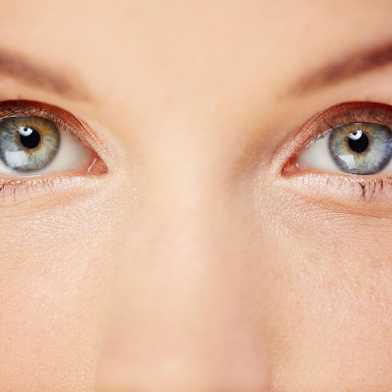
Our visual perception depends more strongly on the utility of information than previously thought. This has been demonstrated in a series of experiments conducted by researchers at ETH Zurich and the University of Zurich. Cognitive biases can begin at the retina.
ETH Zurich and EPFL launch a green energy coalition
- Press release
- Homehero
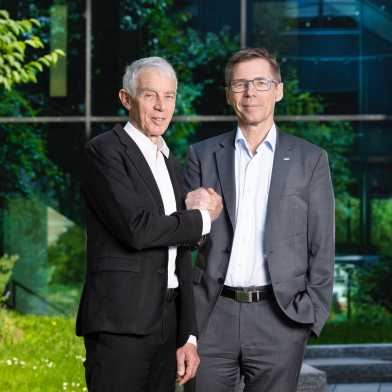
ETH Zurich and EPFL want to work with partners from politics, science and industry to push innovative storage and transport solutions for renewable energy carriers. The overall goal is to create a climate-neutral and flexible energy system for Switzerland. Around 20 partners and industrial companies have already voiced their interest in a collaboration.
A furnace for safe timber buildings
Press release
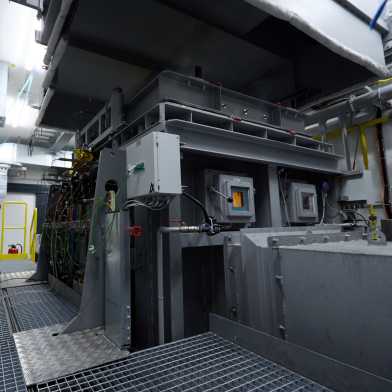
Timber construction is undergoing a renaissance in Switzerland. ETH researchers at the Hönggerberg campus are using a fire simulator to test timber components for the construction of buildings of all sizes. The custom-built oven permits simulations of realistic fire scenarios.
Data Alchemy: New exhibition on AI
- Homehero
- News
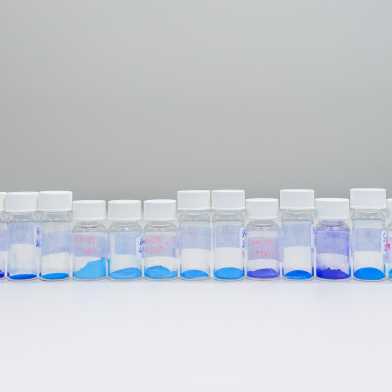
The Collegium Helveticum opens an exhibition this weekend that is all about data, patterns and artificial intelligence.
Can Switzerland transition to a secure renewables-based energy system? Absolutely!
- Zukunftsblog
- News

Gabriela Hug – an expert in power transmission networks – argues that securing an affordable energy supply from renewable sources is not a utopian ideal for Switzerland, but rather a practical and feasible necessity.
A contested resource
- Globe magazine
- News
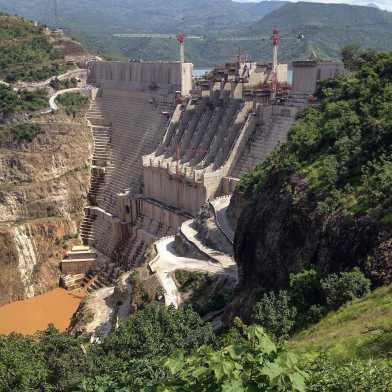
The expansion of hydropower generation often leads to conflicts of interest, both in Switzerland and beyond. Researchers from ETH Zurich are trying to find a basis for compromise that serves the public interest.
“The future remains exciting!”
- Globe magazine
- News
- Homehero
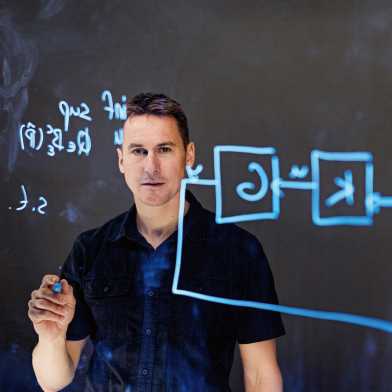
For Florian Dörfler, control engineering is the cornerstone of all automation. When away from work, however, he prefers to experience nature without feedback loops.
Innovative flow batteries
- Globe magazine
- Homehero
- News
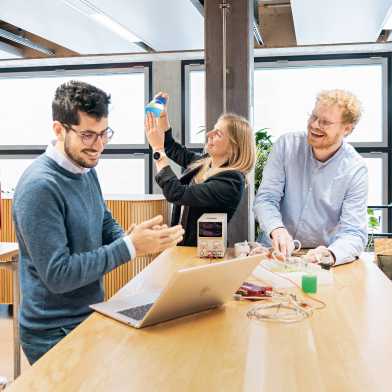
The start-up Unbound Potential has developed a new battery technology for long-duration energy storage – and received a grant of one million euros for it.
Take a deep breath
- Globe magazine
- News
- Homehero
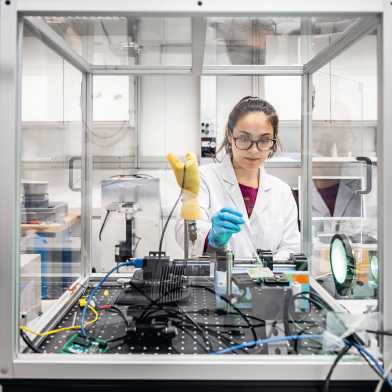
Pulmonary surfactant is a special fluid released by cells in the lungs. For premature babies and COVID-19 patients in intensive care, it can mean the difference between life and death. An ETH materials scientist hopes to shed some light on this complex substance.
New power for the energy market
- Globe magazine
- News
- Homehero
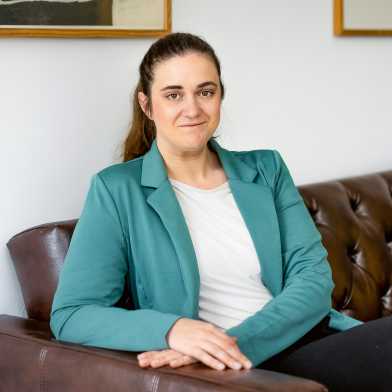
During her doctoral studies, Liliane Ableitner developed a trading and billing tool for energy communities. Three years on, she is CEO of a flourishing start-up with 20 employees.
The great clean-up
- Globe magazine
- Homehero
- News
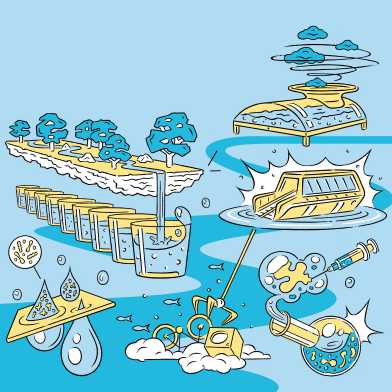
From tackling micropollutants in wastewater to removing plastic waste from rivers, here are five solutions based on ETH expertise.
Slow electrons for more efficient reactions
News
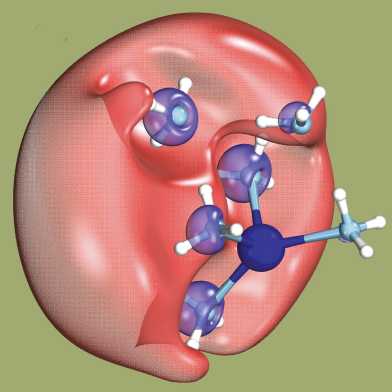
Researchers have managed to produce slow electrons in a solution. In the future, such electrons could help make certain chemical reactions more efficient.
"Morph Tales" - a new ETH game invites you to get to know AI research
- Homehero
- News

The Morphs are here! The smart, eager-to-learn creatures are now waiting in the ETH main building for players to train them. "Morph Tales - Exploring Artificial Intelligence" is a new game from ETH Zurich that is fun to play and shows how humans and AI master tasks together.
“His mathematical intelligence was unparalleled”
News
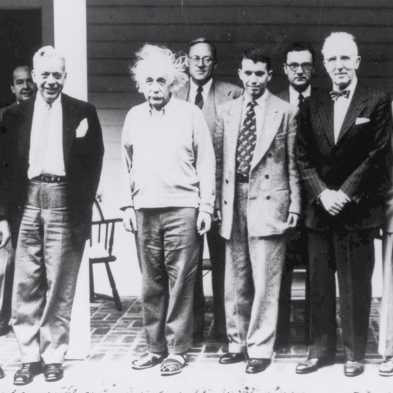
John von Neumann was one of the most important mathematicians and computer pioneers of the 20th century – and an ETH alumnus. He began his studies in chemistry here one hundred years ago. ETH Professor Benjamin Sudakov pays tribute to a mathematical legacy at a symposium.
Droughts increasingly reduce CO2 uptake in the tropics
- News
- Homehero

ETH Zurich researchers have found that droughts and land water variability have had an increasing effect on the carbon cycle in the tropics over the last sixty years. Most climate models fail to capture this observation. This could mean that terrestrial ecosystems could absorb less CO2 than expected in their role as carbon sinks in the future.
Diving robot for dangerous operations
News
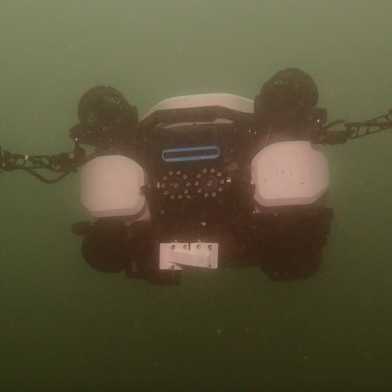
Divers are often put at considerable risk when searching for people or objects underwater. The ETH spin-off Tethys has developed an underwater robot that can be used in situations that are too dangerous for human divers.
Mindful meditation helps us make better decisions
News

People who meditate every day are less likely to avoid negative information. This is a finding in a new study by a research team including researchers from ETH Zurich.
“For very small problem sizes a classical computer is faster”
News
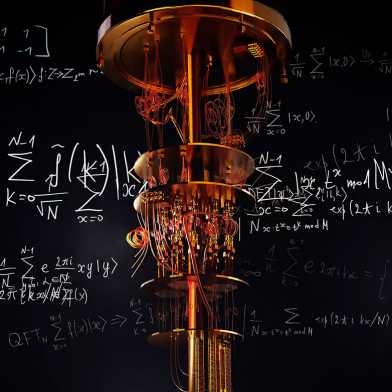
In theory, quantum computers vastly outperform classical computers in terms of computing speed. For them to do so in practice, it is necessary to design more and novel high-speed algorithms, says ETH supercomputing specialist Torsten Hoefler.
Nine professors appointed
News
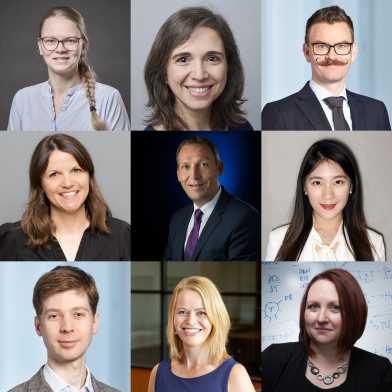
At its meeting of 24 and 25 May 2023 and upon application of Joël Mesot, President of ETH Zurich, the ETH Board appointed nine professors and awarded the title of professor twice. At the same time, the Board also bid farewell to nine professors and thanked them for their service.
Former NASA Science Director is joining ETH Zurich
- News
- Homehero
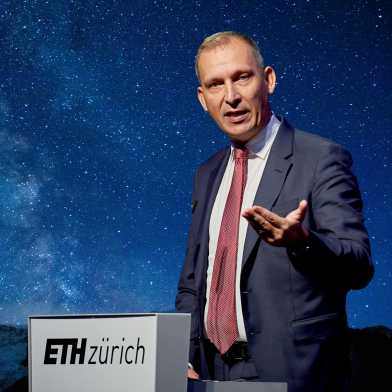
From 2016 to 2022, Thomas Zurbuchen was responsible for research at NASA, the US space agency. From August this year, he will become director of ETH Zurich Space. This initiative aims to promote space research and teaching at ETH and to expand and strengthen cooperation with the space industry.
Energy security in a climate-neutral Switzerland is possible
- News
- Homepage

Security of energy supply in a fossil-free Switzerland is feasible and affordable according to a new white paper from an expert group at the Energy Science Center. It will require increased production of renewables and efficient energy trading with neighbouring countries.
From robotic fish to artificial muscles
News
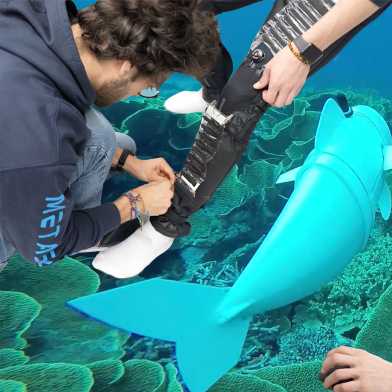
Bachelor’s students at ETH Zurich were given a year to turn their original ideas into finished products. ETH News presents videos of two of these projects.
“We’re turning two neighbours into an exhibition”
- News
- Homepage
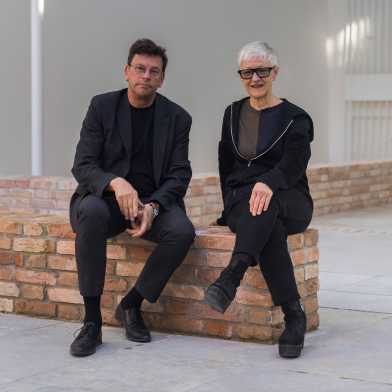
Karin Sander, ETH Zurich Professor of Architecture and Art, and Philip Ursprung, ETH Zurich Professor of the History of Art and Architecture, are curating the Swiss pavilion at this year’s Venice Biennale. Their exhibition is called “Neighbours” and it explores the Swiss pavilion’s architectural relationship with the Venezuelan pavilion next door.
The smart cane for the blind and visually impaired
- News
- Homepage
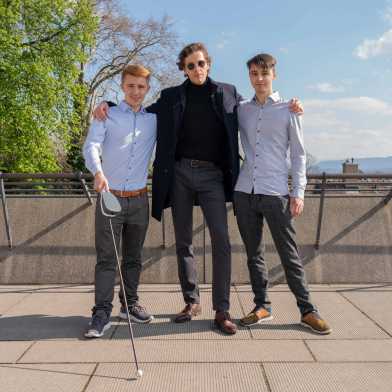
ETH students have developed a smart cane featuring an integrated camera that detects its surroundings and a tactile pointer that helps blind and visually impaired individuals navigate their way safely.
Why the Swiss are shipping CO2 to Iceland
News
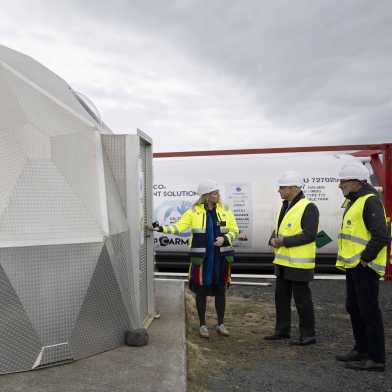
Yesterday, Swiss President Alain Berset toured the Carbfix plant in Iceland and visited the facilities where the pilot project "DemoUpCARMA" is implemented. The project aims at injecting and storing CO2 in the Icelandic underground. Marco Mazzotti, project coordinator and ETH Zurich professor, explains why Swiss CO2 is being shipped all the way to Iceland.
Countries would be well advised to assist each other with regard to gas
News
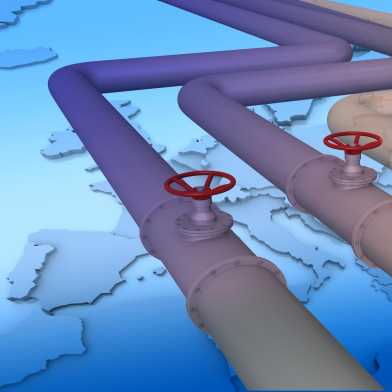
If European countries collaborate, they can avoid severe energy scarcity due to a gas shortage. This is the finding of a new study by ETH Zurich researchers.
“It’s fun but not a game”
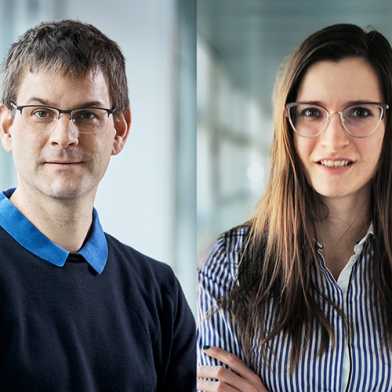
Professor Wendelin Stark and Nevena Paunović were both chemistry Olympians. In 2023, they will return to the Olympiad in new roles. In this interview, they reveal how the Olympiad has influenced their lives and careers, and what participants can expect from the host country and the competition.
Martian crust like heavy armour
News
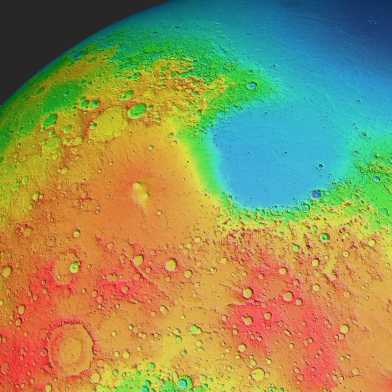
A strong quake in the last year of the NASA Mars InSight mission, enabled researchers at ETH Zurich to determine the global thickness and density of the planet's crust. On average, the Martian crust is much thicker than the Earth’s or the Moon’s crust, and the planet’s main source of heat is radioactive.
Why we need electricity trade
- News
- Zukunftsblog
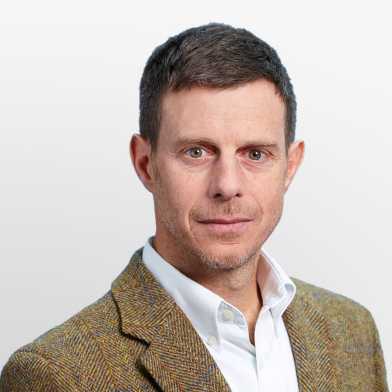
To decarbonize our economy, electricity will replace oil and natural gas as the primary energy carrier. Where should that power come from? Many people argue that all of it should be produced domestically. Careful analysis suggests some share of it should be imported, says Anthony Patt.
“Women researchers and students are highly ambitious and committed”
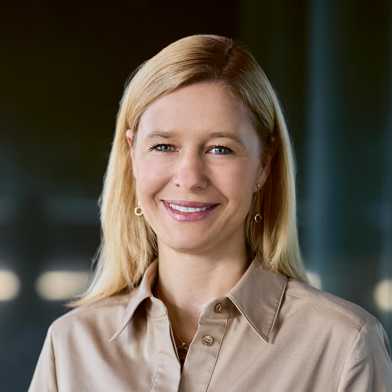
A newspaper article about a study conducted by the University of Zurich claims that women students are less ambitious than their male counterparts and not interested in pursuing a career. Julia Dannath, Vice President for Personnel Development and Leadership, comments on why this conclusion has alienated her.
A survey of genetic diversity among native Swiss living organisms
- News
- Homehero

Switzerland is monitoring its biological diversity as part of a global effort to understand its changes and prevent further biodiversity loss. Researchers from ETH Zurich are working on a pioneering pilot study that includes the analysis of genetic diversity of native species.
Entangled quantum circuits
News
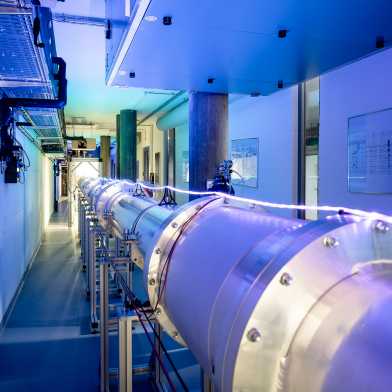
ETH Zurich researchers have succeeded in demonstrating that quantum mechanical objects that are far apart can be much more strongly correlated with each other than is possible in conventional systems. For this experiment, they used superconducting circuits for the first time.
Detailed image of the human retina
News
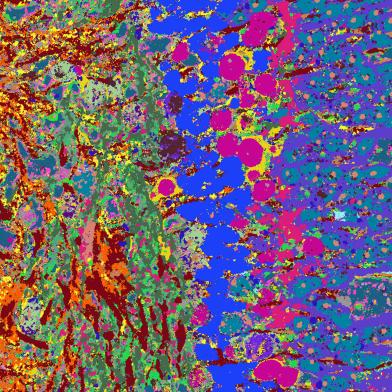
Researchers from Basel and Zurich are creating a high-resolution atlas that depicts the development of the human retina. One technique they use is a new method that allows them to visualise more than 50 proteins simultaneously.
How should AI be used in the justice system?
- Zukunftsblog
- News

Artificial intelligence promises to support judges in their decision-making. In fact, it renders their decisions and tasks more complex, argues Ayisha Piotti.
Learn a language by chatting with an AI tutor
- News
- Homepage

Quazel*, a spin-off from ETH Zurich, has launched a language learning app that uses artificial intelligence (AI) to engage users in conversations. The AI tutor adapts to the users' language skills and corrects their mistakes.
How cells are influenced by their environment as tissues grow
- News
- Homehero
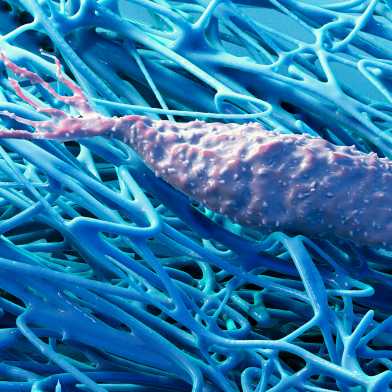
The cells of our body interact with their immediate environment. Researchers have now studied this interaction in detail. In time, they hope to use these findings for improved diagnosis and treatment of wound-healing disorders and cancer.
How an apprentice uses “made-up” electrons to save researchers time
News
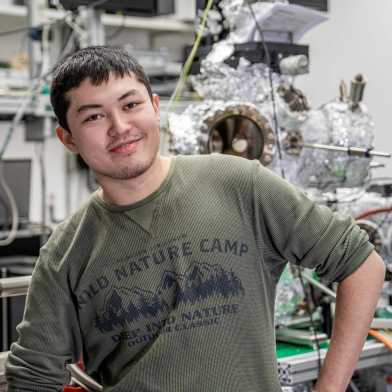
This doesn’t happen often: For his final project, an electronics apprentice at ETH Zurich produced a test device that will save physicists a lot of time in developing a novel microscope. His work has been published in a scientific journal.
“Europe needs to become more independent of China”
- News
- Homepage
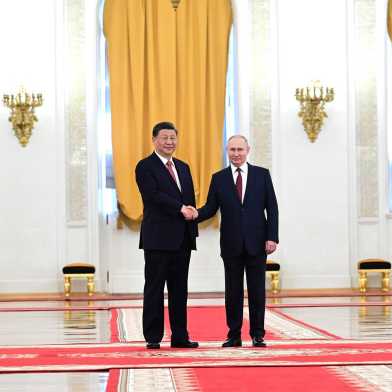
Each year, the Center for Security Studies (CSS) at ETH Zurich analyses key geopolitical trends. Oliver Thränert, head of the think tank at the CSS, explains which new developments will impact global affairs. A conversation on European security and China as a challenge to the transatlantic alliance.
How can we fight blood cancer more effectively?
- News
- Homepage
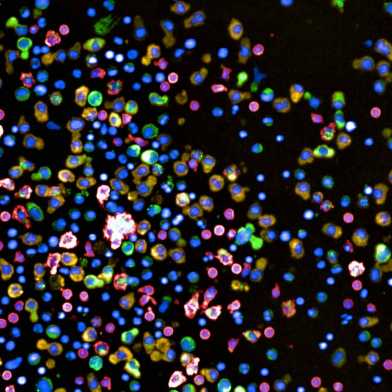
Despite approved treatments being available, multiple myeloma remains incurable. But researchers at ETH Zurich and University Hospital Zurich set out to improve treatment outcomes by testing hundreds of existing therapeutics outside the body to predict their effectiveness.
A new form of human-computer interaction
- News
- Homehero

Researchers from ETH Zurich created a new open-source platform and programming language called LMQL. This programming language makes it easier, cheaper, and safer to interact with large language models like ChatGPT.
Artificial intelligence is not a pandemic
- Zukunftsblog
- News
- Homepage
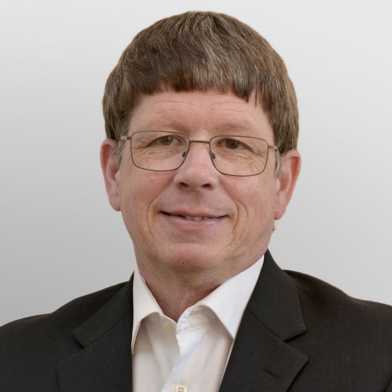
There are concerns that ChatGPT could undermine the educational system, and growing demands for rules governing its use. Gerd Kortemeyer argues that anything but the most common sense regulations could end up being counterproductive.
Progress in alternative battery technology
- News
- Homepage
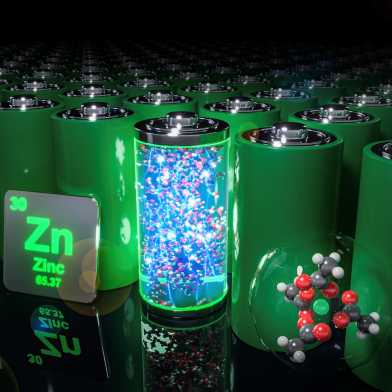
It is not easy to make batteries cheap, efficient, durable, safe and environmentally friendly at the same time. Researchers at ETH Zurich have now succeeded in uniting all of these characteristics in zinc metal batteries.
What previous bird flu outbreaks teach us
News
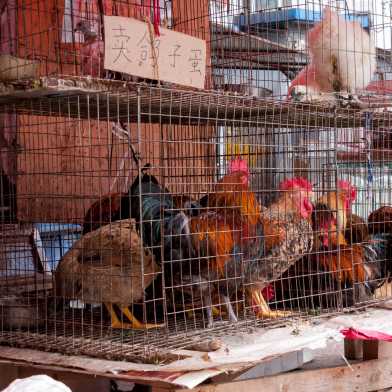
Researchers at ETH Zurich have analysed the bird flu epidemic caused by the H7N9 strain that affected China from 2013 to 2017. New phylogenetic trees will help to improve monitoring of future bird flu epidemics.
Fat quantum cats
News
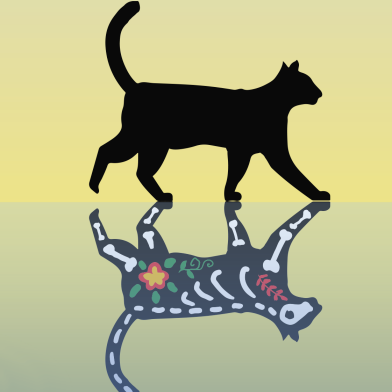
Researchers at ETH Zurich have created the heaviest Schrödinger cat to date by putting a crystal in a superposition of two oscillation states. Their results could lead to more robust quantum bits and help to explain why quantum superpositions are not observed in everyday life.
Tracing a digital shadow
- Globe magazine
- Homepage
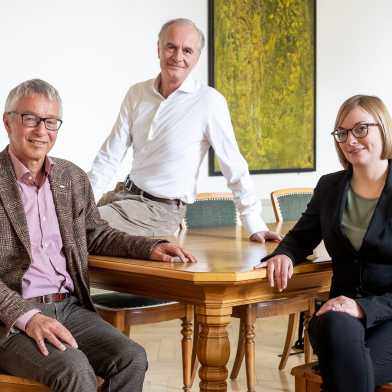
Psychologist Verena Zimmermann joins computer scientists Joachim Buhmann and Elgar Fleisch to discuss whether our feelings can be measured, what role they play in human-machine interactions, and the use of smart technologies.
Earpiece that speeds up recovery after a stroke
- News
- Homepage
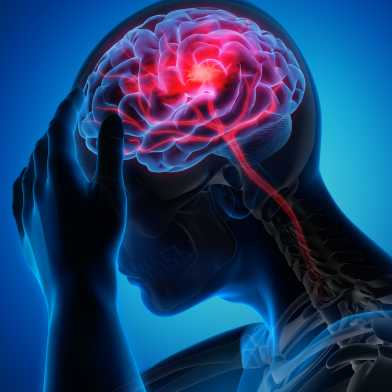
ETH Zurich researchers have developed a smart earpiece that helps people relearn physical actions faster and more easily after a stroke. By stimulating the brain, the earpiece helps it rewire neural circuits.
Why we are taking a stand on the Swiss Climate Protection Law
- Zukunftsblog
- News
- Homepage
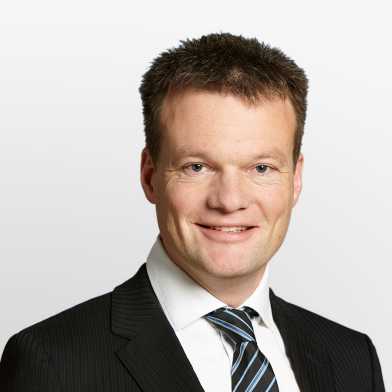
Political debate is vital for a functioning democracy. And when it comes to complex issues such as climate change, scientists should be able to share their expertise and help shape opinion, says Reto Knutti.
A key experiment for the LIFE space mission
- News
- Homepage
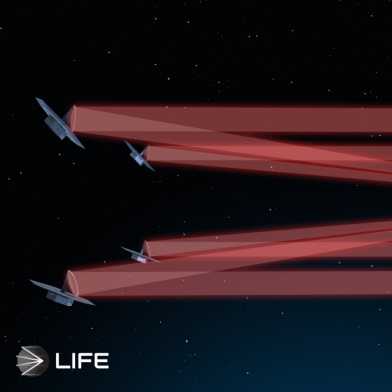
With a constellation of five satellites, the international LIFE initiative led by ETH Zurich hopes to one day detect traces of life on exoplanets. A laboratory experiment in the Department of Physics is now set to demonstrate the planned measurement method.
Stefan Wiemer on earthquakes
- News
- Homepage

In the video series "Ask the Expert", experts from ETH Zurich answer questions from the community. In this edition, Stefan Wiemer provides information on the topic of earthquakes.
How drugs get into the blood
- News
- Homepage
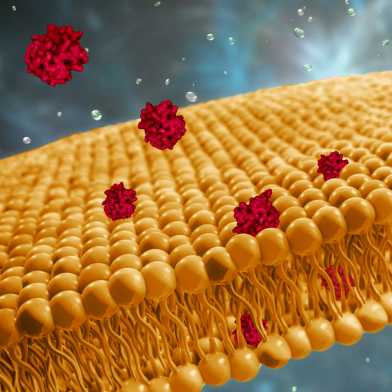
Computer simulations have helped researchers understand in detail how pharmaceutically active substances cross cell membranes. These findings can now be used to discover new drug candidates more efficiently.
How to make self-folding surgical tools
News
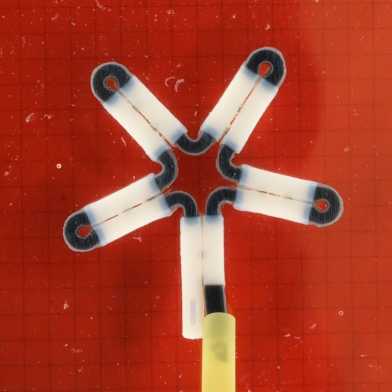
For minimally invasive surgery, the instruments used must be small. ETH Zurich researchers have now developed a method to transport large devices through a narrow catheter. This expands the possibilities for designing minimally invasive surgical tools.
Detecting stress in the office from how people type and click
- News
- Homepage

Researchers at ETH Zurich have developed a model that detects workplace stress just by how people type and move their computer mouse. This might enable employees to prevent chronic stress early on.
Turbulent affairs: Scientists enhance the simulation of strong flow phenomena
- News
- Homepage

It doesn’t have to be a hurricane or a tsunami — even a simple running water tap induces a shock wave upon impact with the sink. Now, with the help of the Swiss National Supercomputing Centre's (CSCS) supercomputer “Piz Daint”, mathematician Siddhartha Mishra of ETH Zurich is working to overcome current barriers to simulating and comprehending highly turbulent flows.
ETH Zurich boosts medical research with new site in Schlieren
- News
- Homepage
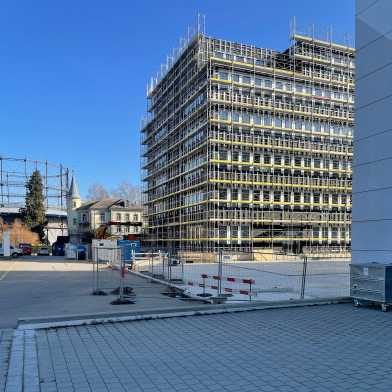
ETH Zurich is boosting its medical research and establishing a new site in Schlieren. It is leasing a new building (SSA) right next to the Bio-Technopark in Schlieren; the site is currently being set up as a laboratory building for medical research.
This robot is a security guard
- News
- Homepage
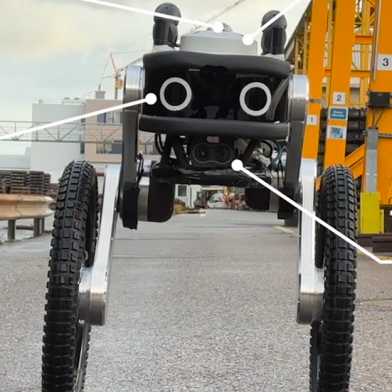
Robots that can perform guarding tasks and overcome obstacles have already been seen in films such as the Pixar animation "Wall-E ". This film is set 800 years in the future. But similar robots are now becoming reality.
Student-made sensor facilitates climate-conscious design of public squares
- News
- Homepage
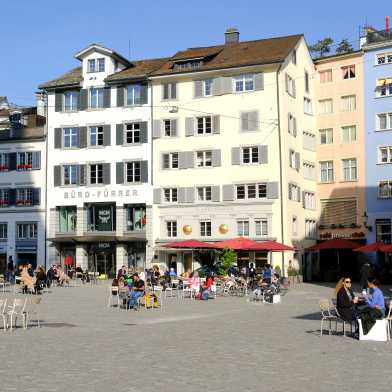
ETH students have developed sensors that can indicate how people use urban spaces. They anonymously measure how people use objects such as chairs in a public square. The sensors have proven useful in the test run and could be used in future to plan public spaces based on needs.
“Money and finance are not an end in themselves but an enabling factor”
- News
- Homepage
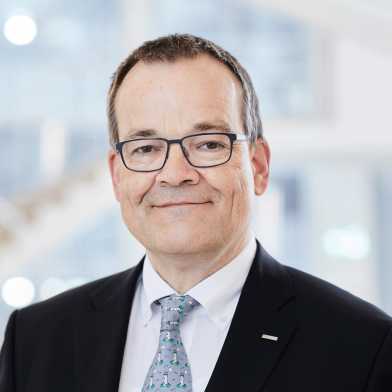
On Friday, an era came to an end. For 20 years, Robert Perich helped to shape the development of ETH Zurich as Chief Financial Officer (CFO), restructured Finance & Controlling and developed it into an instrument of university management. It was important to him that the professorships and departments manage their funds autonomously and that ETH pursue a sustainable financial policy.
“A development freeze would jeopardise transparency”
- News
- Homepage
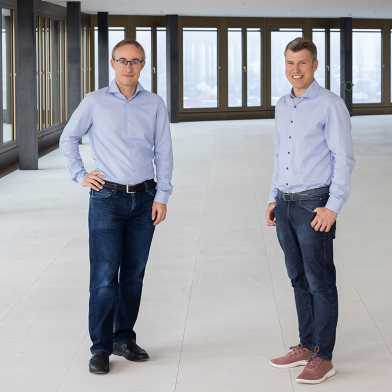
In an open letter, tech luminaries from the worlds of science and industry are calling for a freeze on training new AI models that are more powerful than GPT-4. ETH AI experts Andreas Krause and Alexander Ilic from the ETH Zurich AI Center consider this to be difficult to enforce and associated with risks.
Why are forests turning brown in summer?
- News
- Homepage
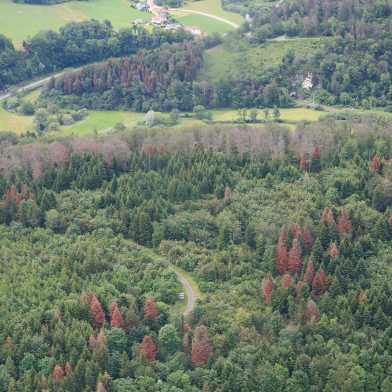
Increasing summer heat and drought are affecting European forests – some years, trees brown prematurely and some even start to die back. Researchers from ETH Zurich and the WSL are showing how exceptional weather conditions over several years are turning forests brown.
"Earthquake in Turkey was an earthquake doublet"
- News
- Homepage

ETH Zurich researcher Luca Dal Zilio offers an insightful summary of the recent earthquakes in Turkey and Syria, shedding light on the complex nature of this event. He discusses the lessons that can be drawn from it to better understand and prepare for future seismic occurrences in the region.
Digital and interactive: ETH Zurich’s Annual Report 2022 is now available!
- News
- Homepage

As of today, the ETH Zurich annual report for 2022 is available online. This is the first time it has been published in digital form. It provides an interactive tour through the different areas of the university, as well as describing how ETH functions and the contribution it makes to Swiss society.
Spark Award for new corrosion protection
- News
- Homepage
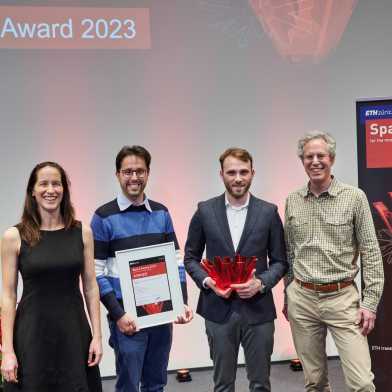
More effective, reusable and self-repairing: a new kind of corrosion protection developed by the ETH researchers Marco D'Elia, Walter Caseri und Markus Niederberger has been honoured with ETH Zurich’s Spark Award 2023. The innovation offers excellent market potential and could significantly slow down the deterioration of buildings and vehicles.
Generating power with blood sugar
- Press release
- News
- Homepage
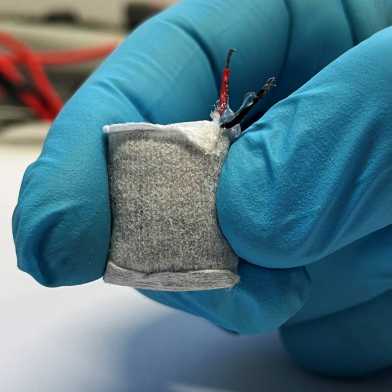
A fuel cell under the skin that converts blood sugar from the body into electrical energy sounds like science fiction. Yet it works perfectly, as an ETH Zurich research team led by Martin Fussenegger, Professor of Biotechnology and Bioengineering, has shown.
Strong commitment to innovation and talent
- News
- Homepage
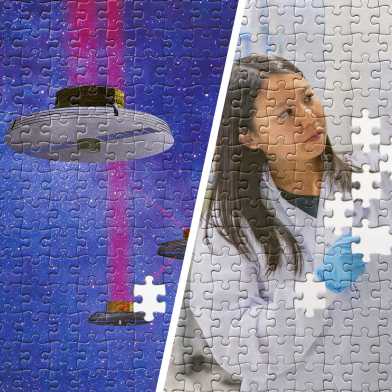
Researching the origins of life, supporting outstanding students and providing a boost for the new meeting place for students and the entrepreneurial community: the current Annual Report of the ETH Foundation provides an insight into what the great commitment of over 2,900 donors and partners made possible at ETH Zurich last year.
Accurate rapid tests made from smart graphene paper
- News
- Homepage

A team led by ETH Zurich chemical engineers Chih-Jen Shih and Andrew deMello have developed a rapid test system made of smart graphene paper. It only costs a few cents per test strip, is easy to use but is as accurate as lab measurements. The approach will impact more than just disease monitoring.
Detecting exhaustion with smart sportswear
- News
- Homepage

Researchers at ETH Zurich have developed an electronic yarn capable of precisely measuring how a person’s body moves. Integrated directly into sportswear or work clothing, the textile sensor predicts the wearer’s exhaustion level during physical exertion.
A single day is not enough
- News
- Homepage
- Zukunftsblog
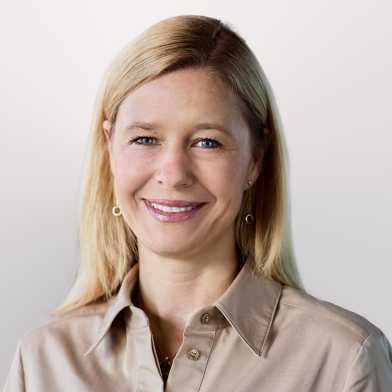
To mark Sexual Harassment Awareness Day at Swiss universities, Vice President Julia Dannath analyses the situation at ETH Zurich, explains what anonymous reports can and cannot achieve, and presents what she believes is most needed to effectively combat sexual harassment.
QS World University Rankings: ETH top in 16 subjects
- News
- Homepage
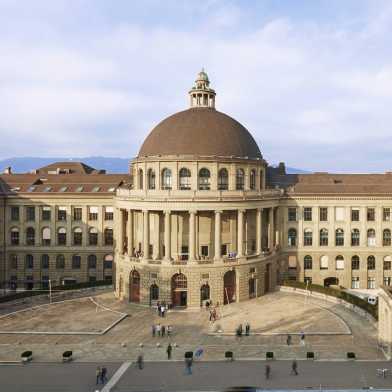
In the latest QS rankings by subject, ETH ranks among the top ten in 16 disciplines. In the earth sciences, it comes in first place.
New housing developments displace vulnerable persons
- Zukunftsblog
- News
- Homepage
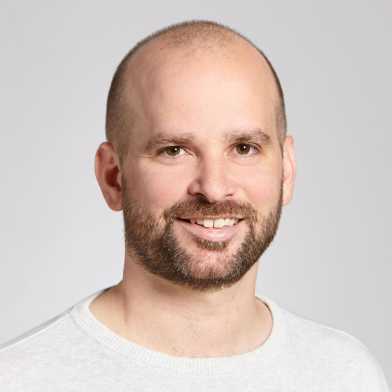
Focusing exclusively on new housing developments to counter the housing crisis is not sustainable, says David Kaufmann. His research group has been able to show that vulnerable persons are displaced to a much greater extent than previously thought in the Swiss canton of Zürich.
Following the water cycle in the forest
News
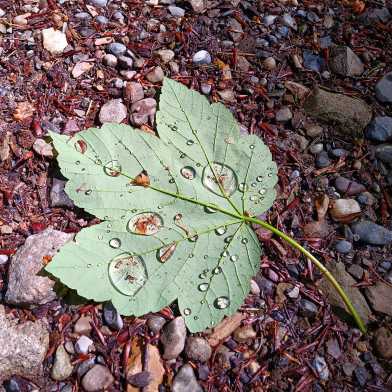
In the Forest Laboratory "Waldlabor" on Hönggerberg, ETH Zurich researchers investigate the storage and transport processes of water in the forest. Recently they showed that forest-floor litter and deadwood have a far larger influence on the forest water balance than expected.
Where should wind turbines be constructed in Switzerland?
News

A study by researchers at ETH Zurich shows for the first time how a relaxation of Swiss spatial planning policy would affect the locations of wind turbines. If the aim is to have as few wind turbines as possible in the Alps and in Switzerland in general, it would be worth considering using windy agricultural areas on the western Swiss Plateau.
Quantum research network
- Homepage
- Globe magazine
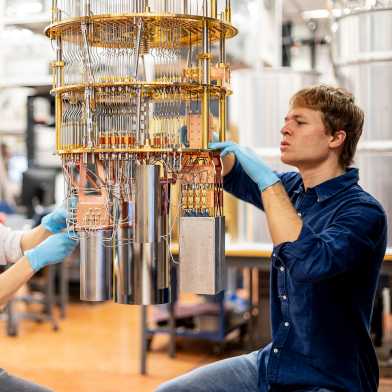
Around the world, the race is on to achieve a decisive breakthrough in quantum research. ETH Zurich is spearheading its own challenge.
How tumours transform blood vessels
- News
- Homepage
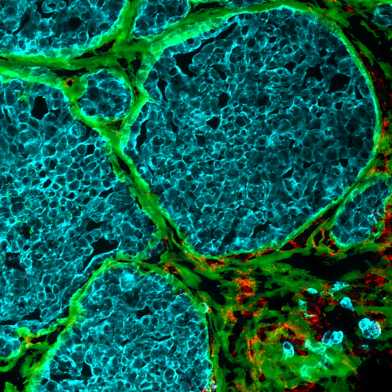
Increasingly dense cell clusters in growing tumours convert blood vessels into fibre-filled channels. This makes immune cells less effective, as findings by researchers from ETH Zurich and the University of Strasbourg suggest.
Immune-cell booster for cancer patients
- News
- Homepage
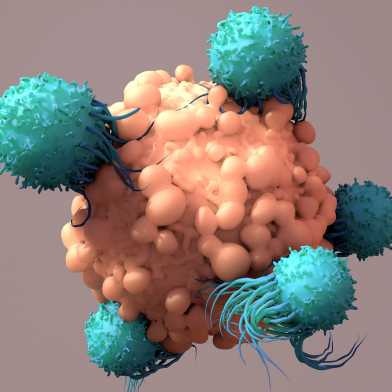
Cancer patients might one day benefit from being administered immune cells from healthy donors. But as things stand, receiving donor cells can cause severe or even fatal immune reactions. A researcher at ETH Zurich has now developed a technology that avoids these.
Maren Brehme on geothermal energy
- News
- Homepage
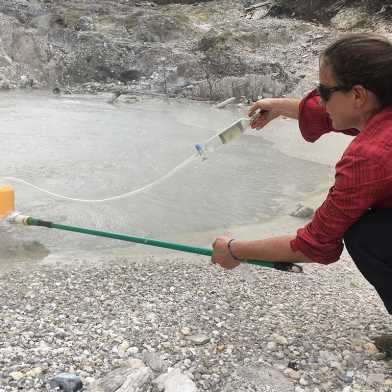
In the video series "Ask the Expert", ETH Zurich experts answer questions from the community. In this edition, Maren Brehme provides information on the topic of geothermal energy.
3D-printed insoles measure sole pressure directly in the shoe
- News
- Homepage
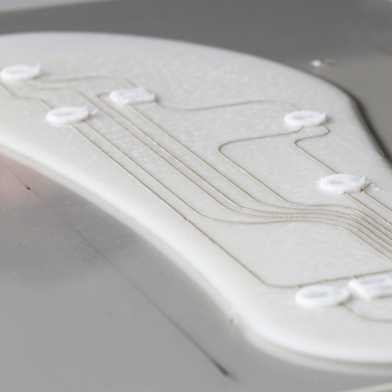
Researchers at ETH Zurich, Empa and EPFL are developing a 3D-printed insole with integrated sensors that allows the pressure of the sole to be measured in the shoe and thus during any activity. This helps athletes or patients to determine performance and therapy progress.
New handlebars raise Paralympic hopes
- News
- Globe magazine
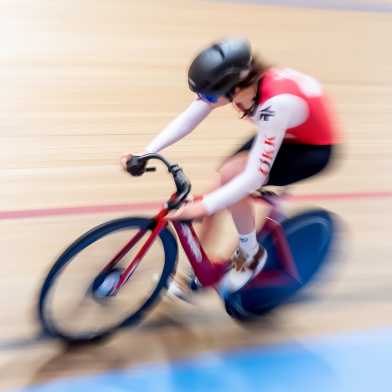
ETH student Luca Hasler developed a new set of handlebars for para-athlete Flurina Rigling. The cyclist hopes these will boost her chances of qualifying for future events – including the 2024 Paralympics in Paris.
At night
- News
- Globe magazine
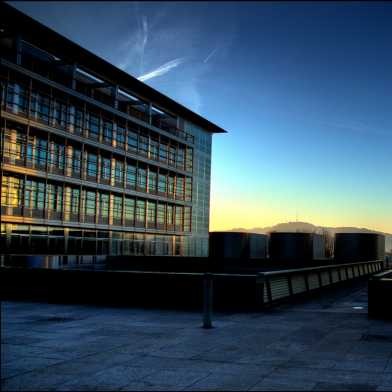
Why researchers should not only draw on reason but also on their emotions. An essay by Michael Hagner.
The power of habit
- Globe magazine
- News
- Homepage

Life is a constant stream of decisions that pit sober reflection against powerful emotions, conscious deliberation against gut instincts. Using complex models and sophisticated experiments, ETH researchers study how we combine these different decision-making strategies.
Getting to the bottom of bacteria
- News
- Globe magazine
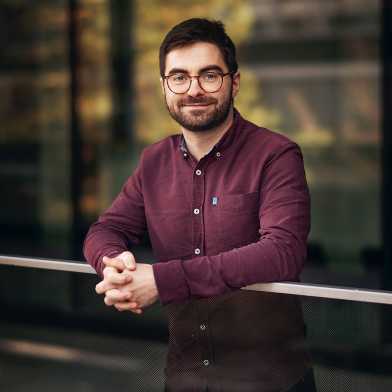
Gregor Weiss is fascinated by the inner workings of our cells and is driven by the hope of finding a non-antibiotic therapy for urinary tract infections.
A life in development aid
- News
- Globe magazine
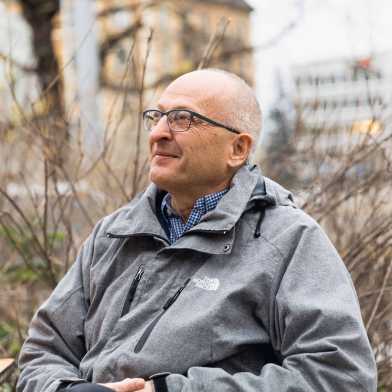
Peter Schmidt has been working in development aid for over 30 years, constantly seeking ways to help people help themselves. His first visit to India left him in shock for three days – but ended up shaping the rest of his life.
The legacy of trauma
Globe magazine

Emotional trauma can have far-reaching ripple effects and may even reverberate across generations. Professors Isabelle Mansuy and Katharina Gapp study how the effects of trauma can be inherited through epigenetic mechanisms.
Detecting hidden brain states
Globe magazine
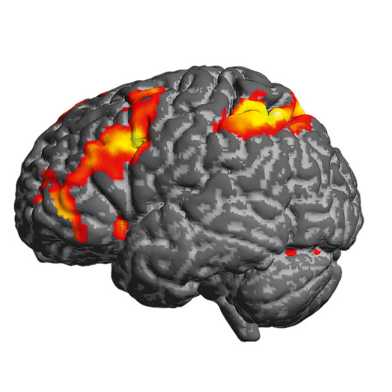
Mental health disorders can only be diagnosed on the basis of symptoms – and individual outcomes cannot be accurately predicted. An ETH scientist hopes to change that with the help of mathematical models.
New Vice President for Finance and Controlling
- News
- Homepage
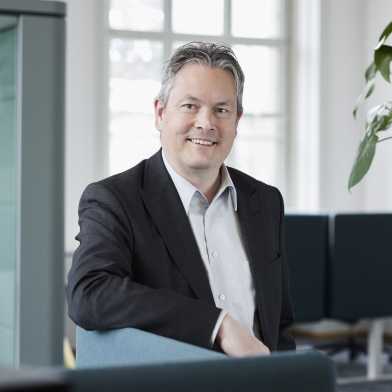
Stefan Spiegel will head up Finance and Controlling at ETH Zurich starting on 1 April 2023. The 52-year-old Swiss manager and finance expert boasts extensive leadership experience in state-affiliated firms and stock-listed companies.
14 professors appointed
- Homepage
- News
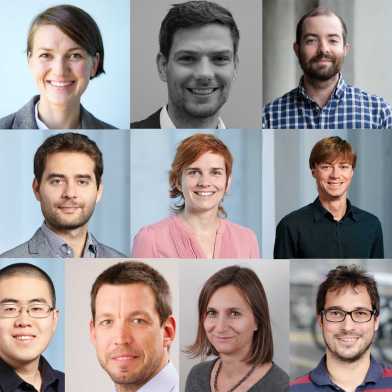
At its meeting of 8 and 9 March and upon application of Joël Mesot, President of ETH Zurich, the ETH Board appointed 14 professors and awarded the title of professor five times. At the same time, the Board also bid farewell to three professors and thanked them for their service.
Shape memory for nano-sized objects
- News
- Homepage
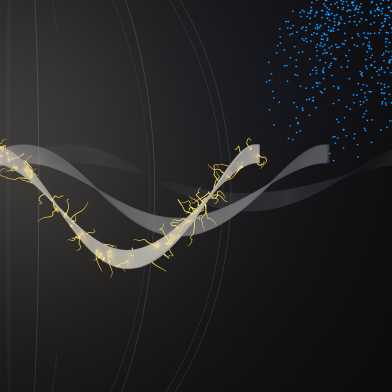
Researchers at ETH Zurich achieved a shape memory effect for the first time with objects that are only a few nanometers in size. This can be used to manufacture tiny machinery and robotic devices on the nanoscale.
Hungry for computer science
- News
- Homepage
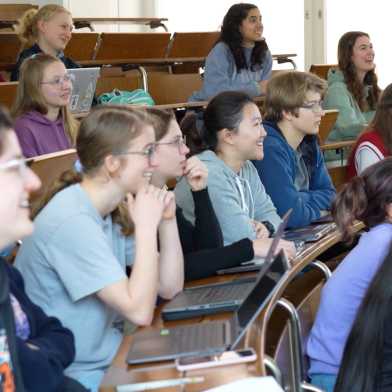
What is it like to study computer science at ETH? 33 female high school students attended a one-week taster course in February to find out.
Five voices for women's day
- News
- Homepage
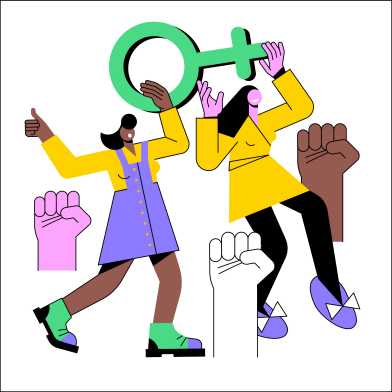
What is the status of equality at ETH? What challenges do our female students face? Young women provide information on International Women's Day.
Knowing where earthquakes will cause damage
- News
- Homepage

The Swiss Seismological Service at ETH Zurich has just introduced the first seismic risk model for Switzerland. It shows the potential impact of earthquakes on people and buildings in the country.
A wholly sustainable plastics economy is feasible
- News
- Homepage
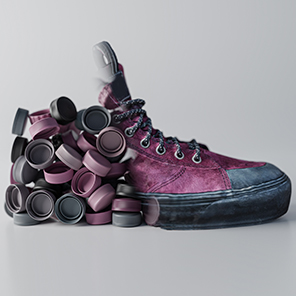
A new study shows what it will take for the plastics industry to become completely sustainable: lots of recycling combined with the use of CO2 from the air and biomass. It is also the image of plastics that need to change.
"In 2023, no one will be able to avoid AI progress any longer"
Homepage
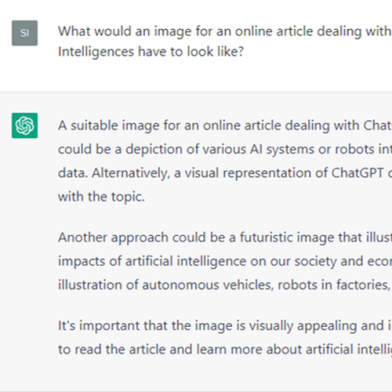
Artificial intelligence seems to be on the rise – and not just in the headlines. Florian von Wangenheim from ETH Zurich’s Chair of Technology Marketing and researcher at the ETH AI Center explains this trend in a short interview.
The One-Wheel Cubli balances with only a single reaction wheel
News
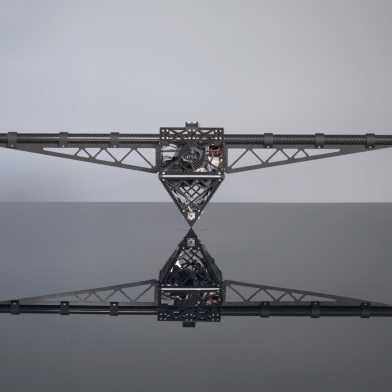
Robotics specialists from a group led by ETH professor Raffaello D’Andrea have created a new, cube-shaped robot that can balance on its pivot and compensate for external disturbances. What makes the One-Wheel Cubli unique? Unlike its predecessors, it only requires a single reaction wheel.
3D-snapshots of nanoparticles
- News
- Homepage
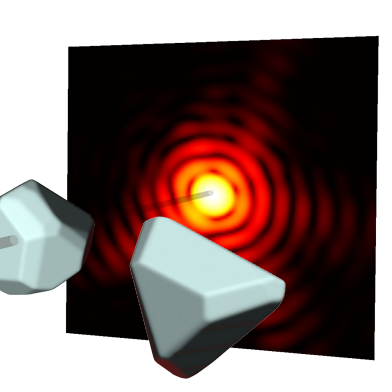
ETH researchers have managed to take three-dimensional pictures of single nanoparticles using extremely short and strong X-ray pulses. In the future this technique could even be used to make 3D-movies of dynamical processes at the nanoscale.
Switzerland wants a circular economy – but not to share products
- News
- Homepage
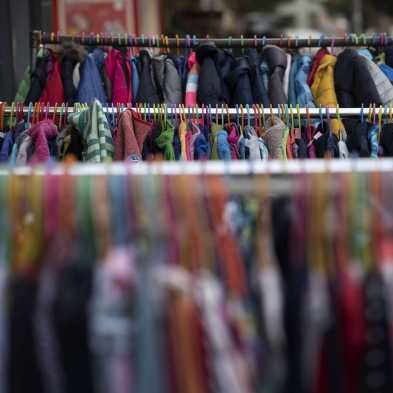
ETH Zurich political science researchers reveal that Swiss people are in favour of the circular economy and support measures to promote it. However, their personal willingness to contribute is low.
“I speak to you as one of you”
- News
- Homepage
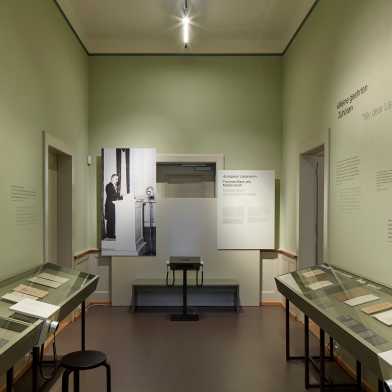
The Thomas Mann Archive in the ETH Main Building provides insights into the author’s lifelong interests, works and personal effects. A ceremony to celebrate the reopening of the famous archive will be held this evening.
Stop Hate Speech: alliance F and ETH Zurich set up Switzerland’s first foundation for online public discourse
- Press release
- Homepage

alliance F and ETH Zurich are launching the Public Discourse Foundation (PDF), which will take an in-depth look at hate speech and its impact on democracy. The aim is to explore and promote public discourse on the internet. The foundation’s first project will support media companies with comment moderation and empower civil society to effectively deal with hate speech through an interactive knowledge centre.
No climate neutrality without critical raw materials
- News
- Homepage
- Zukunftsblog

Europe’s energy transition will not succeed without access to essential metals like rare earths, says security researcher Julian Kamasa. Responsible mining and recycling of critical raw materials could help Europe reduce dependence on imports and meet its climate targets.
Where do toxins from tobacco attack DNA?
- News
- Homepage
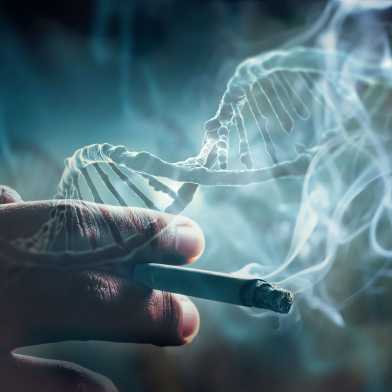
It is known that toxins in tobacco smoke can change our DNA – but where exactly in the genome they do this has been a mystery. A new approach developed by researchers at ETH Zurich now brings light into the darkness. In the future, this could make it easier than ever to determine the safety of many chemical substances.
New corrosion protection that repairs itself
- News
- Homepage
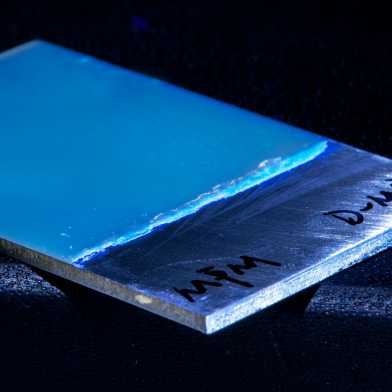
ETH Zurich researchers have developed an extraordinary protection against corrosion after a chance discovery. It glows in places where it is not damaged, repairs itself – and can be reused multiple times.
The complex interplay behind great heat
- News
- Homepage
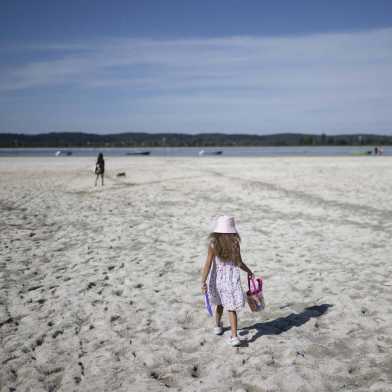
Many regions have suffered from heatwaves in recent years. But exactly how these form is still a matter of debate. Two researchers at ETH Zurich have now found a nuanced answer.
Achieving a better understanding of how the blood-brain barrier works
- News
- Homepage
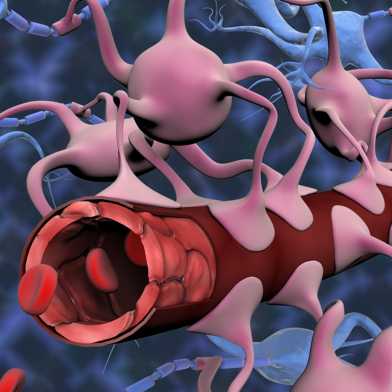
Up to now, the use of models to research the barrier that separates the circulatory from the nervous system has proven to be either limited or extremely complicated. Researchers at ETH Zurich have developed a more realistic model that can also be used to better explore new treatments for brain tumours.
Unlocking the data treasure chest
- News
- Homepage
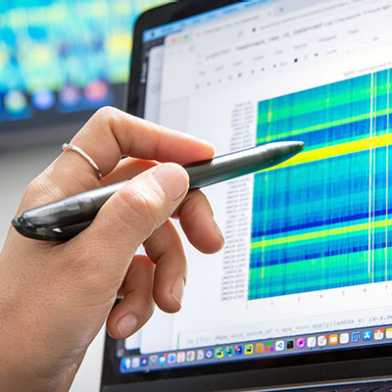
The LOOP Zurich research centre is creating a central platform for the exchange of health data between the University of Zurich, ETH Zurich and the four university hospitals. This will allow data to be utilised quickly and easily to the benefit of patients.
An atmospheric researcher with his feet firmly on the ground
- News
- Homepage
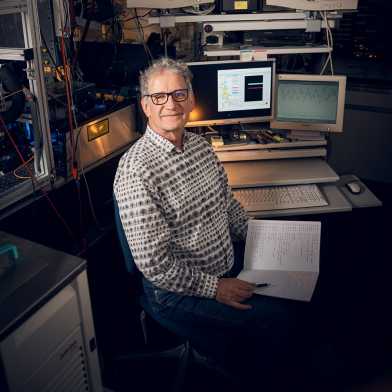
Atmospheric chemist Thomas Peter retired at the end of January. A profile of a man who taught us about the properties and processes of suspended particles and helped shape the second-largest department at ETH Zurich.
Women and Girls in Science
News
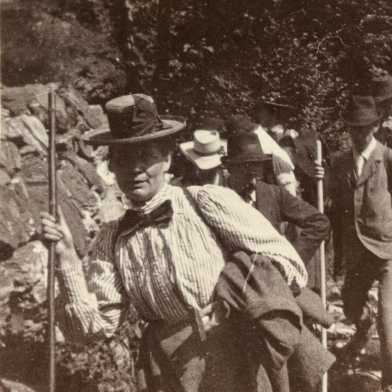
The International Day of Women and Girls in Science takes place each year on 11 February. To mark the occasion, we take a look back at the history of women at ETH Zurich.
“I keep track of what my lecturers are saying thanks to subtitles on my tablet”
- News
- Homepage
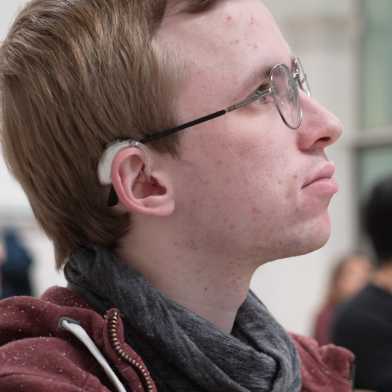
In the latest episode of the “Student Stories” series, Jan Blum talks about his everyday life as a hard-of-hearing Bachelor’s student, the difficulties he faced when he started studying computer science and what helped him combat the feeling of being the odd one out.
Rachel Grange awarded SNSF Consolidator Grant
- News
- Homepage
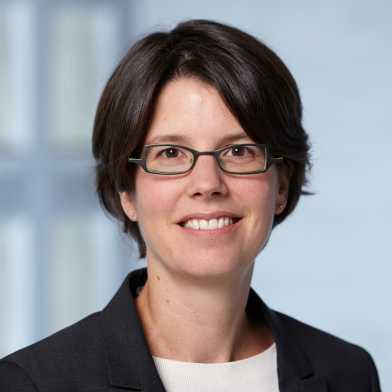
The ETH physicist has received an SNSF Consolidator Grant worth CHF 1.75 million.
Parity Group wins Prix Meret Oppenheim
- News
- Homepage
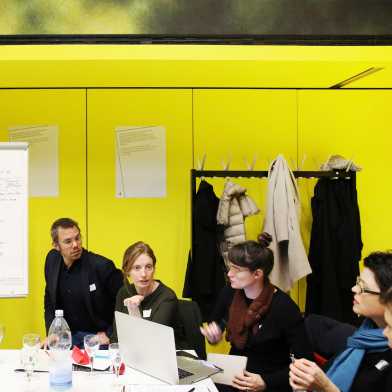
The grass-roots movement founded by architectural students and scientific staff has been awarded the Prix Meret Oppenheim in recognition of its engagement in driving fundamental change in the Department of Architecture of ETH Zurich.
Patchwork of issues limits solar expansion
- Press release
- Homepage

Whether rooftop solar panels are worth the cost is largely dependent in Switzerland on local compensation rates for solar power and on electricity prices in general – these are the findings of a study by researchers at ETH Zurich and the University of Bern. Many power grid operators pay too little, thereby limiting the expansion of solar power.
“We should spend more time exploring other disciplines”
News
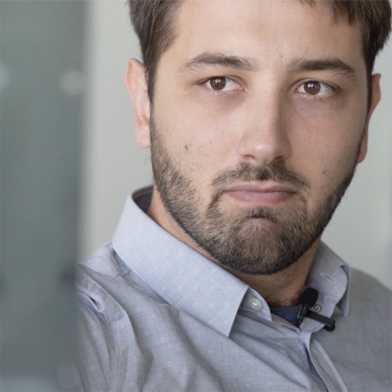
When doctoral student Panagiotis Martakis started studying civil engineering, he soon realised that he wasn’t happy with his choice of subject. In the latest episode of the “Student Stories” series, he explains why you should spend more time exploring other disciplines.
How microbial communities shape the ocean’s ecology
- News
- Homepage
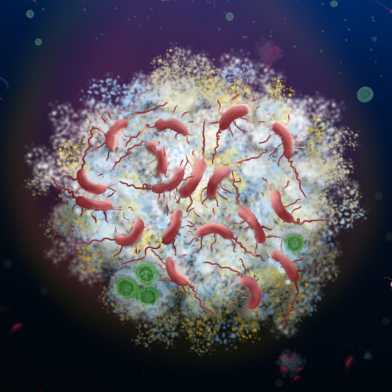
A research collaboration led by ETH Zurich and MIT will receive a further USD 15 million from the New York-based Simons Foundation to investigate the behaviour of marine bacteria and microalgae. The research will focus on microbial communities that impact the ocean’s carbon cycle.
Restoring nature equitably
- News
- Homepage
- Zukunftsblog
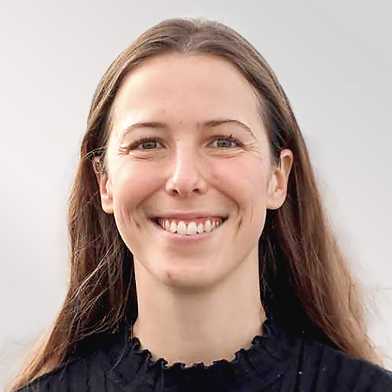
Efforts to restore degraded ecosystems have so far fallen short of meeting global targets. Sound restoration must better incorporate social processes promoting equity in order to effectively benefit people, climate and biodiversity, says Sara Löfqvist.
Researching, learning and adapting
- News
- Homepage
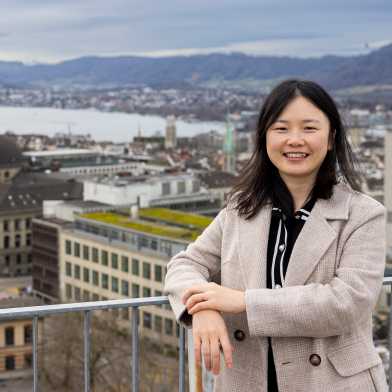
One of the greatest unknowns in climate change is the question of how particulate matter affects clouds. Yu Wang is using machine learning and satellite data to investigate the surprising role of these tiny particles in the atmosphere.
Alien plant species are spreading rapidly in mountainous areas
- News
- Homepage
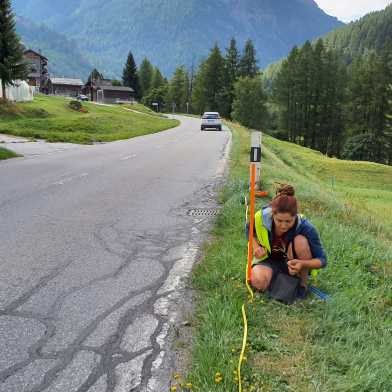
Until now, mountain regions have been largely spared from biological invasions. But a new monitoring study shows that alien plants are spreading rapidly to higher altitudes along transport routes worldwide.
Hope for patients with a severe rare disease
- News
- Homepage
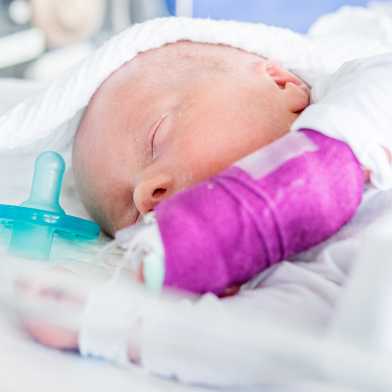
New research offers potential benefits for those affected by the hereditary metabolic disease methylmalonic aciduria. By combining the results of multiple molecular analyses, scientists can better diagnose this rare and severe disease. In the future, an improved understanding of the disease might also improve treatment options.
"This was the first time I failed so terribly"
News

After failing a physics exam, Master's student Agon Besimi had one more chance to stay at ETH. The support of his family was his biggest source of inspiration to persevere.
The man who thinks big
- News
- Homepage
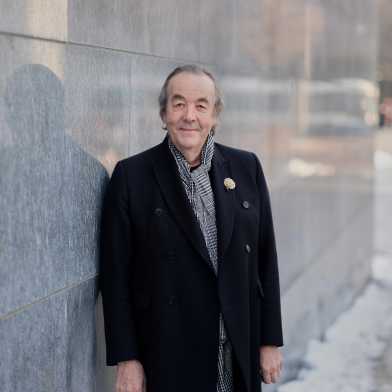
Christophe Girot brought landscape architecture into the digital world and taught a generation of architects how to think on a larger scale. After more than 20 years as an ETH Professor, he is now retiring.
Visit of the President of the Republic of Korea to ETH Zurich
News
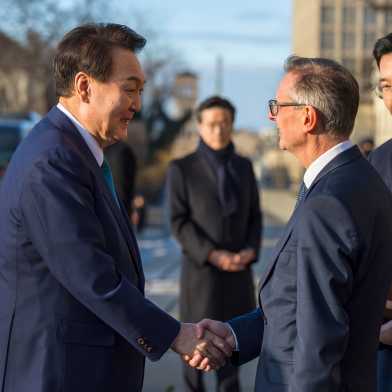
The 19 January visit of Yoon Suk Yeol, President of the Republic of Korea, to ETH Zurich focused on Quantum Science.
Special drone collects environmental DNA from trees
News
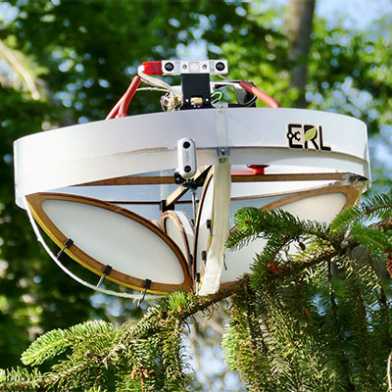
Researchers at ETH Zurich and the Swiss Federal research institute WSL have developed a flying device that can land on tree branches to take samples. This opens up a new dimension for scientists previously reserved for biodiversity researchers.
From molecules to organisms
Globe magazine
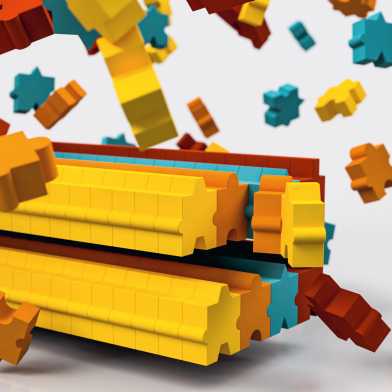
How did life on Earth first emerge? And how was it able to prosper and evolve? ETH researchers are involved in the quest to find answers to these fundamental questions.
"Step out of your comfort zone"
News
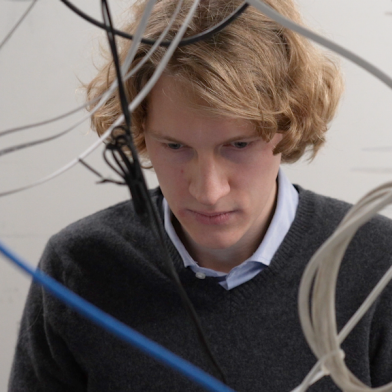
In the latest episode of the “Student Stories” series, doctoral student in physics Lorenzo Graziotto talks about the biggest difference between studying and researching, and why he thinks it’s his duty to step out of his comfort zone.
A precision arm for miniature robots
News

Until now, microscopic robotic systems have had to make do without arms. Now researchers at ETH Zurich have developed an ultrasonically actuated glass needle that can be attached to a robotic arm. This lets them pump and mix minuscule amounts of liquid and trap particles.
Smart solar façade wins the Watt d’Or Energy Prize
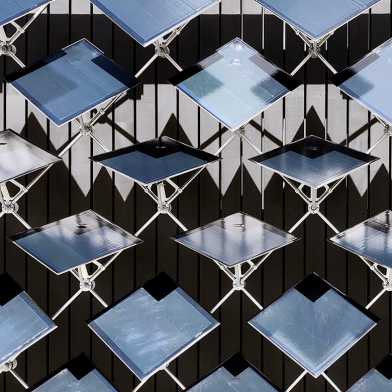
Solar façade panels developed by the group working under ETH Professor Arno Schlüter follow the sun’s position in the sky and in this way harvest more energy. The technology has now been awarded the Watt D’Or Energy Prize.
The dawn of trustworthy and cooperative artificial intelligence
News
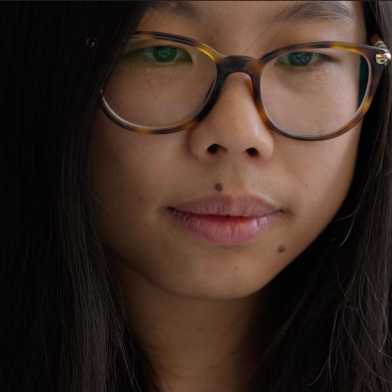
Are we witnessing the rise of a different, adaptive artificial intelligence (AI) that works with humans and supports them with smart decisions? Computer scientist Niao He is investigating how this kind of AI can be theoretically underpinned so that it really does provide benefits.
How grasses avoid inbreeding
News

ETH Zurich researchers have been able to show which genes inhibit self-fertilisation in grasses. Plant scientists can now use this mechanism in a more targeted way to breed new varieties of forage grasses as well as rice or barley.
A habitable planet
Globe magazine
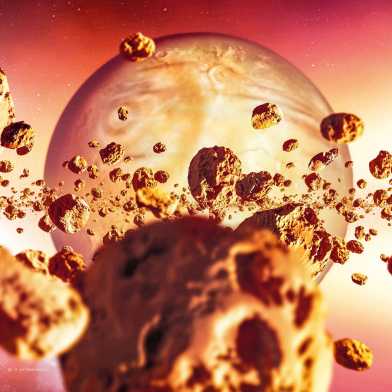
Life has existed on Earth for billions of years. Stabilising mechanisms have helped our planet remain habitable to this day.
A snow-free Switzerland?
- News
- Zukunftsblog
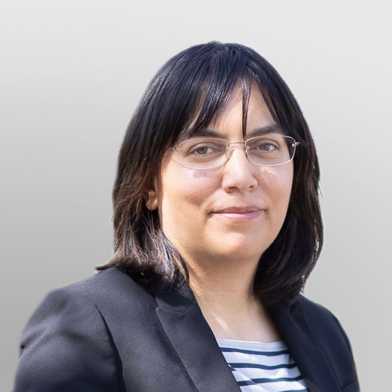
There has been a great deal of media focus on the near-total lack of snow in Swiss ski resorts at the beginning of the year. Sonia Seneviratne explains why we will have to get used to this scenario and what needs to be done about it.
Digital twins, new cancer treatments and three unicorns
Press release
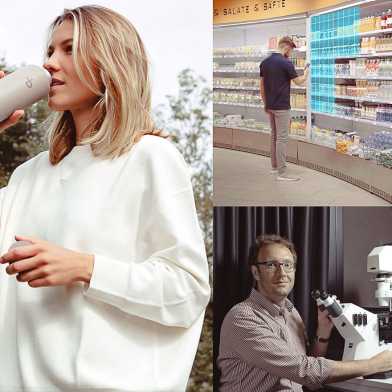
A grand total of 26 spin-offs were founded at ETH Zurich in 2022. Their businesses range from new cancer drugs and sustainable water bottles to digital mapping of urban traffic flows. The ETH spin-off family also welcomed three new unicorns and raised 1.2 billion Swiss francs in fresh capital.
Immediate uptick in investment needed to reach net zero
News

A new study by ETH Zurich researchers reveals that if Europe fails to immediately invest 302 billion euros in climate-relevant infrastructure, it will not reach its target of net-zero greenhouse gas emissions by 2050.
For the love of physics
News
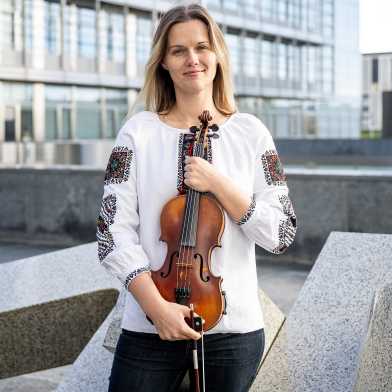
Vira Bondar is fascinated by the fundamental questions of physics. She conducts research with ultracold neutrons and is working to make exercise sessions at ETH Zurich even more exciting.
Entire colour palette of inexpensive fluorescent dyes
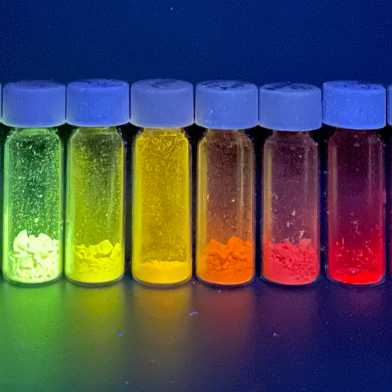
ETH researchers have developed a modular system for the simple and inexpensive production of security inks. It is based on polymers and could also be used in solar power plants and screens in the future.
Life on alien worlds
Globe magazine
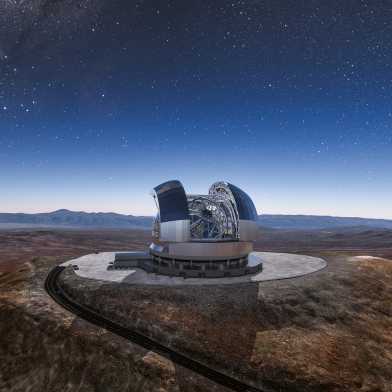
Does life exist elsewhere in the universe? There’s a good chance it does – though it might look very different to life on Earth. Scientists may soon be able to offer a definitive answer.
Of cancer therapy research and Mars volcanism
News
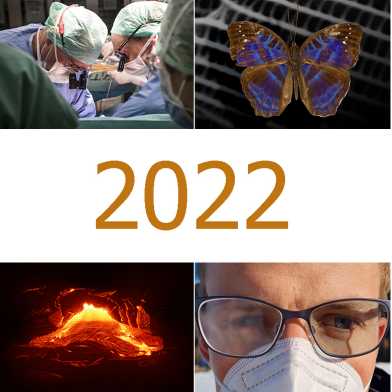
A special year is soon coming to an end. In 2022, much has been researched, developed and invented at ETH Zurich. ETH News looks back on an eventful past year.
“Switzerland could play a key role in quantum technology”
News
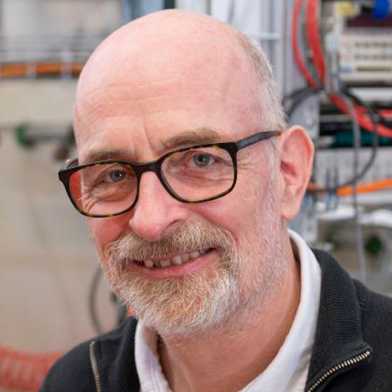
ETH Professor Klaus Ensslin spent 12 years at the helm of the National Centre of Competence in Research “Quantum Science and Technology”. As the programme prepares to wind down at the end of this year, we spoke to him about scientific breakthroughs and Switzerland’s role in quantum research.
Looking back - How ETH has shaped my life
Podcast
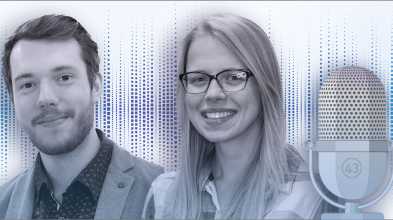
In the ETH podcast two former students look back on how their time at ETH shaped them. Looking back, the impossible is somehow possible, you just have to take one step at a time.
NASA’s InSight Lander has retired
News
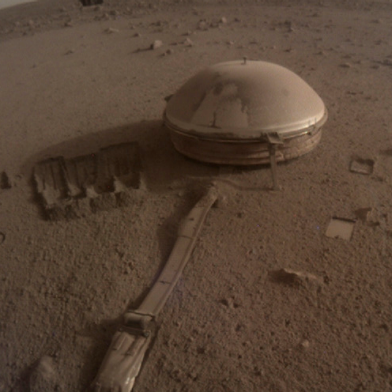
The lander’s team has tried to contact the spacecraft twice without response, leading them to conclude it has run out of energy.
Acids help against airborne viruses
News
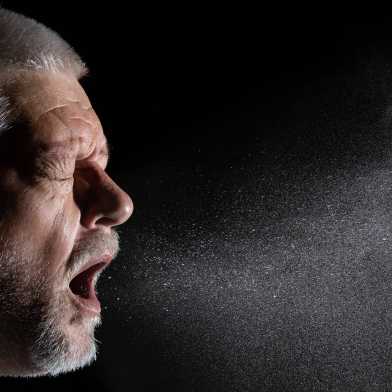
A new study by various Swiss universities shows that aerosols in indoor air can vary in acidity. This acidity determines how long viruses remain infectious in the air – with profound implications for virus transmission and strategies to contain it.
An eye on reconstruction in Ukraine
News
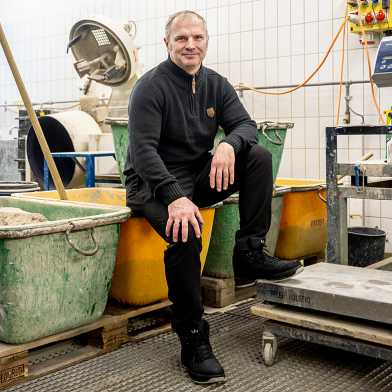
Ukrainian building materials professor Viacheslav Troian left his homeland with his family because of the war. At ETH Zurich, he is researching the role that recycled concrete might play in future reconstruction.
The clever glue keeping the cell's moving parts connected
News
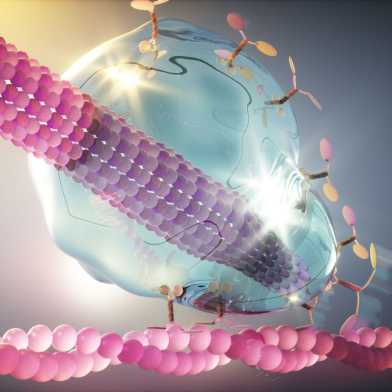
Researchers from Paul Scherrer Institute PSI and ETH Zurich have discovered how proteins in the cell can form tiny liquid droplets that act as a smart molecular glue. Clinging to the ends of filaments called microtubules, the glue they discovered ensures the nucleus is correctly positioned for cell division.
Producing fertiliser without carbon emissions
News

Researchers at ETH Zurich and the Carnegie Institution for Science have shown how nitrogen fertiliser could be produced more sustainably. This is necessary not only to protect the climate, but also to reduce dependence on imported natural gas and to increase food security.
Ecology as the guiding discipline of the future
- News
- Zukunftsblog
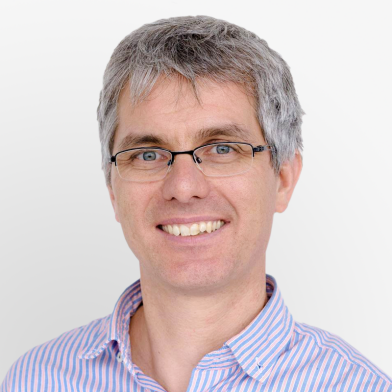
A nature-based economy that regenerates ecosystems and stops species extinction? Christoph Küffer believes this is possible if we strengthen ecology in research and education and make ecological expertise a basic skill for society.
New approaches to waste management
Globe magazine
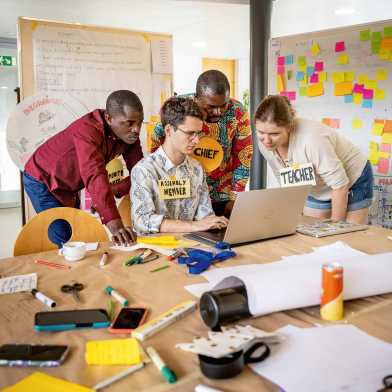
Students from ETH and the Ghanaian university KNUST came up with some creative solutions for sustainable waste management at the Rethinking Waste summer school, where knowledge sharing and intercultural exchange topped the agenda.
In search of the intelligent machine
News
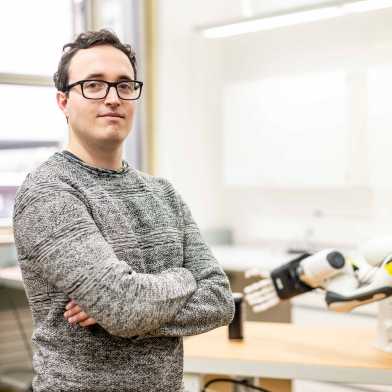
Elvis Nava teaches robots to carry out oral and written commands. To this end, he sends them to “training camps” where they learn to combine image, text and motion data.
Into the lion’s den
Globe magazine
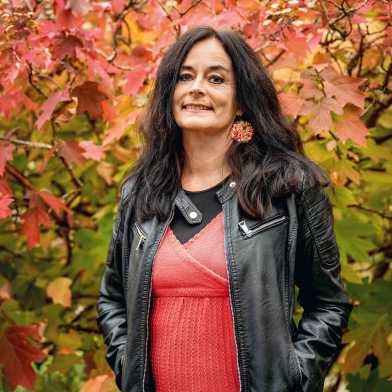
Karin Iten knows there are limits to human knowledge – and limits to what we can accomplish. But that hasn’t stopped this ETH environmental scientist and agnostic from taking on the seemingly impossible task of bringing about a culture change in the Catholic Church.
For a more sustainable and fairer world
Globe magazine
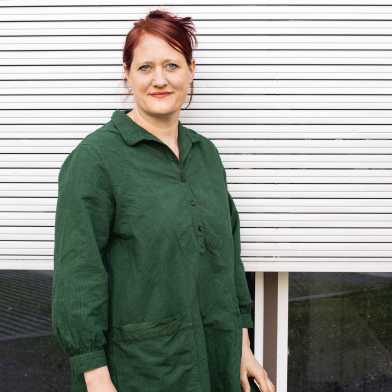
Maria Conen advocates the conservation and reuse of existing buildings – and not just for reasons of sustainability.
What is life?
Globe magazine
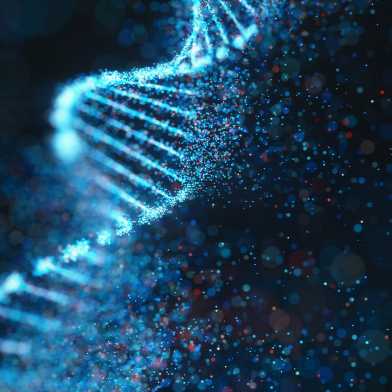
We posed this question to ETH Zurich researchers. In return, we got five intriguing answers from the perspectives of biomedicine, computer science, biology, robotics and philosophy.
Playgrounds in the universe
Globe magazine
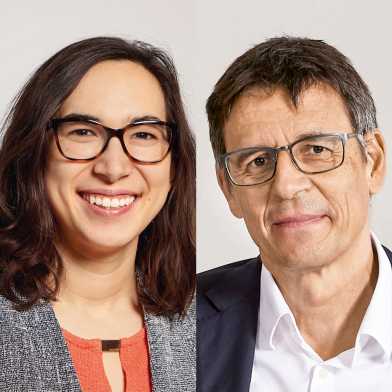
Nobel laureate and astrophysicist Didier Queloz and earth scientist Cara Magnabosco on the origin of life on Earth, complex life beyond our planet, and the inevitable end of every life.
Dedicated coach with a passion for research
- Globe magazine
- News

Detlef Günther is stepping down from his role as Vice President for Research to devote more time to his own research work. A look back over eight successful years.
Security robotics for Switzerland
News
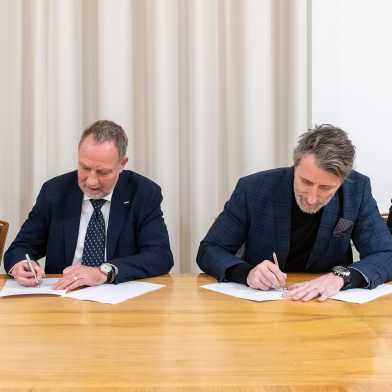
ETH Zurich and armasuisse Science and Technology are launching a joint security robotics programme. Over the course of five years, armasuisse will be investing 2.5 million Swiss francs in selected research projects.
More Precise Treatment
News
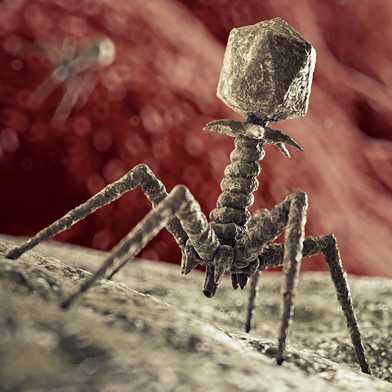
The LOOP Zurich research center combines expertise from ETH Zurich, the University of Zurich and the four university hospitals in Zurich with the aim of developing more personalized therapies. Two new projects supported by The LOOP Zurich target urinary tract infections and obesity respectively.
Gold-based passive heating for eyewear
News
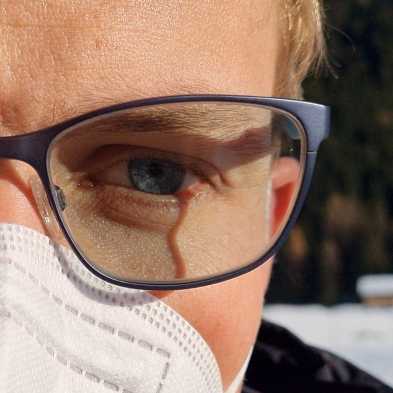
Researchers from ETH Zurich have developed a new transparent gold nanocoating that harnesses sunlight to heat the lenses of glasses, thereby preventing them from fogging in humid conditions. This coating could potentially also be applied to car windshields.
Four professors appointed
News
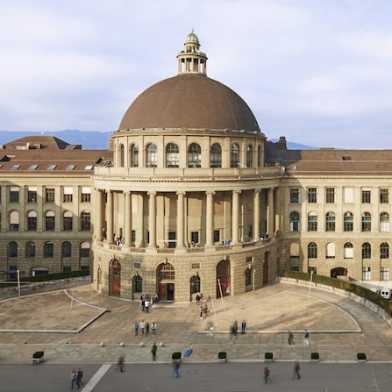
At its meeting of 7 and 8 December 2022 and upon application of Joël Mesot, President of ETH Zurich, the ETH Board appointed four professors and awarded the title of professor once. At the same time, the Board also bid farewell to eight professors and thanked them for their service.
Biomedical scientist named ETH’s new Vice President for Research
News
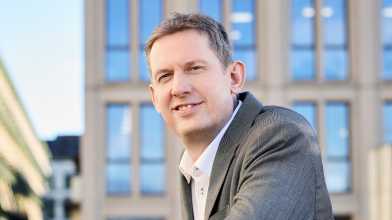
The ETH Board has appointed Christian Wolfrum as Vice President for Research at ETH Zurich effective 1 January 2023. In his roles as Professor of Translational Nutritional Biology, Director of Studies and Associate Vice President for Medicine, Wolfrum has actively shaped medical teaching and research at the university.
A space telescope, please – but a sustainable one, if possible
- News
- Zukunftsblog
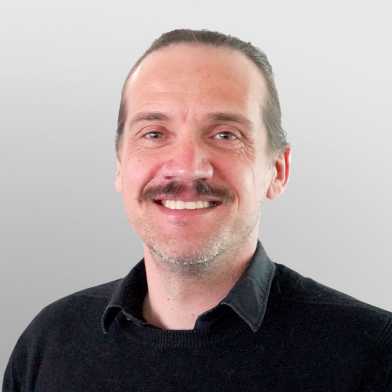
Daniel Angerhausen believes that fundamental research is essential, especially in the current crisis. Still, he wonders if we shouldn’t extend the idea of sustainability into the infinite reaches of outer space.
Sergio Mattarella al Politecnico
News
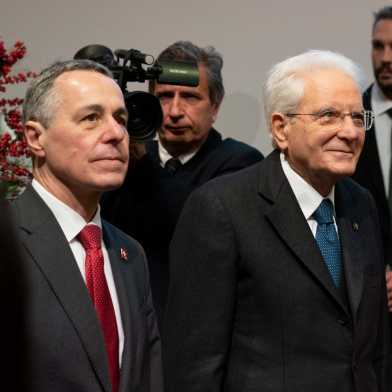
As part of a two-day state visit to Switzerland, the Italian President stopped off at ETH Zurich on Wednesday (30 November) in the company of President of the Swiss Confederation Ignazio Cassis. After a welcome by ETH President Joël Mesot and some words of greeting from the two guests, researchers and students of the university provided an insight into their work.
Art created by computers
News

Four students at ETH Zurich’s Student Project House have launched “Generai”, a platform that uses artificial intelligence to create works of art.
The quest for infinite paths
News
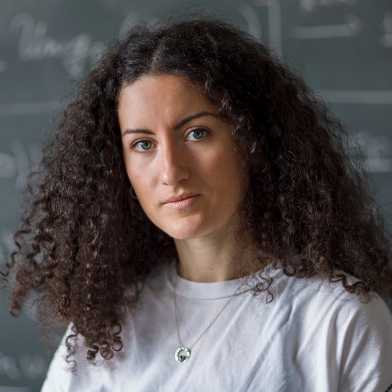
How does water seep through porous rock? Investigating this question with a mathematical model was the starting point for Barbara Dembin’s research. The mathematician is generating new insights in what is known as percolation theory.
The seeds have germinated
News

For the first time, farmers in the Philippines have cultivated Golden Rice on a larger scale and harvested almost 70 tonnes of grains this October.This nearly never-ending story began at ETH Zurich.
These researchers have received Starting Grants
News

Nine scientists are receiving SNSF Starting Grants for projects they plan to carry out at ETH Zurich starting next year.
ETH Zurich joins alliance of European universities
News
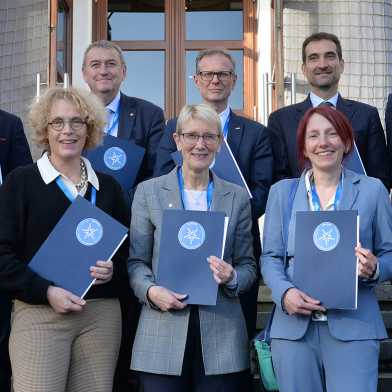
The new Enhance Alliance of ten European technical universities aims to make it easier to study abroad. ETH Zurich officially joined the alliance today.
Diagnosing diseases with a puff of breath
News

A needle and some blood are usually needed for medical diagnostics.
Protein shapes indicate Parkinson’s disease
News
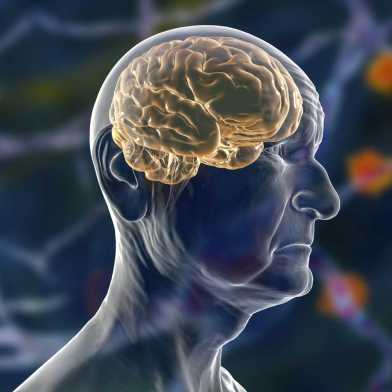
ETH Zurich researchers have found that a set of proteins have different shapes in the spinal fluid of healthy individuals and Parkinson’s patients. These could be used in the future as a new type of biomarker for this disease.
Climate action: Methane is our most powerful lever
- News
- Zukunftsblog

While the insufficient measures increasingly argue against reaching the 1.5-degree target, we could still achieve it with a rapid reduction in methane emissions, writes Cyril Brunner.
Food security thanks to faeces and waste
News
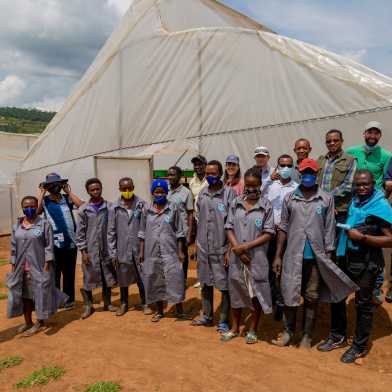
Together with partners in Ethiopia, Rwanda, the Democratic Republic of the Congo and South Africa, ETH Zurich researchers are creating circular economies that use processed organic waste and human excreta as fertilizer or animal feed, resulting in higher crop yields and new jobs.
Lopez-Loreta Prize for Gregor Weiss
News
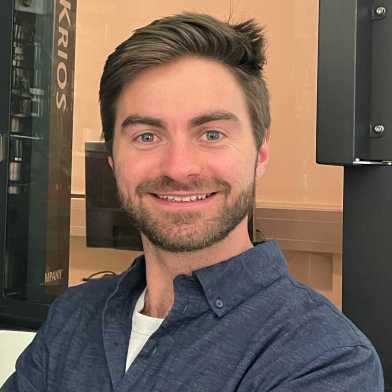
Gregor Weiss used state-of-the-art microscopy to show how the body prevents bladder infections. He now wants to make this method from basic research usable for the analysis of patient samples – and has received the Lopez-Loreta Prize for it.
A twin pack of cooled nanoparticles
News
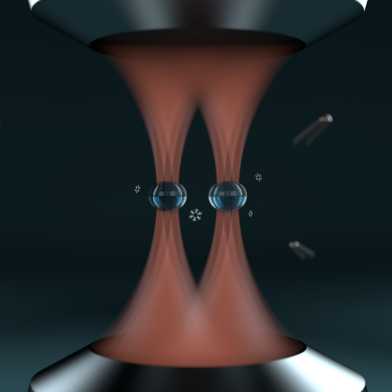
Researchers at ETH have developed a technique to cool several nanoparticles simultaneously to temperatures of just a few thousandths of a degree above absolute zero. This new method can be used to study quantum effects of several nanoparticles and to build highly sensitive sensors.
The nuclear reality is unsettling
- News
- Zukunftsblog
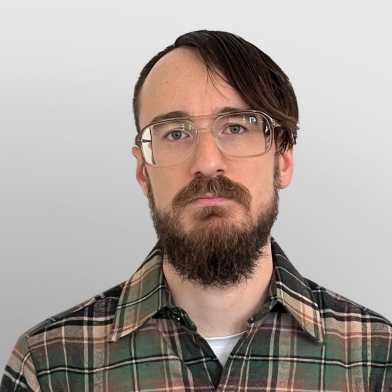
Stephen Herzog is researching how nuclear weapons could be better controlled and eventually eliminated. For him, Putin's threats are a reason to fundamentally question the nuclear “balance of terror."
“Putting all our energy into education"
News
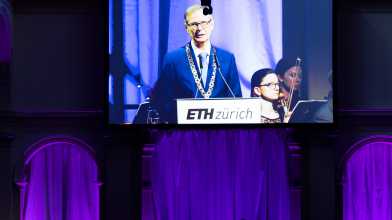
On the 167th anniversary of ETH Zurich, Rector Günther Dissertori spoke about the areas of teaching where he would like to see change. Against the backdrop of the current crises, ETH President Joël Mesot and Federal Councillor Alain Berset discussed the role of science in general and that of ETH in particular.
Watching the metabolism at work
News
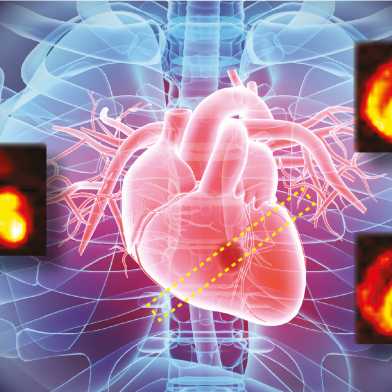
Researchers from ETH Zurich and the University of Zurich are taking magnetic resonance imaging a step further. With their new method, they can visualise metabolic processes in the body. Their objective is to improve the future diagnosis and treatment of heart disease.
Alessandro Carlotto receives Latsis Prize
News
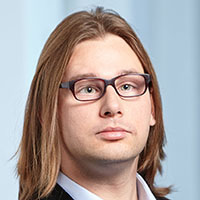
He investigates the mysteries of shapes and curvature in higher dimensions: mathematician Alessandro Carlotto will receive the 2022 ETH Zurich Latsis Prize for his original research at the frontier of mathematics and physics.
These are the ETH Zurich researchers cited most often
News
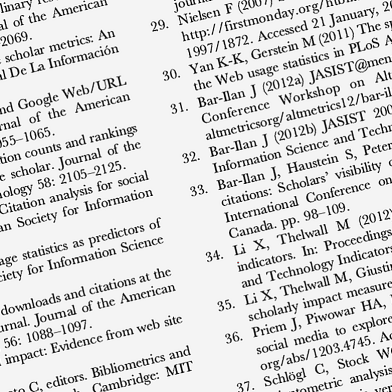
On the current list of Highly Cited Researchers, 21 have a connection to ETH Zurich. Four of these appear on the list for the first time.
Contagious AHA experiences
News
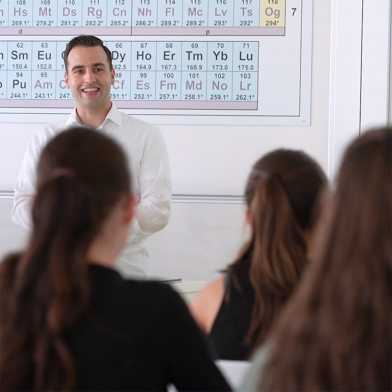
ETH Zurich offers interested students from the seventh grade onwards courses in which they can deepen their knowledge of mathematical and scientific subjects. Since spring 2021, more than 2,000 students have taken part in the ETH Youth Academy courses.
At CSCS, energy efficiency is a key priority, even at high performance
News
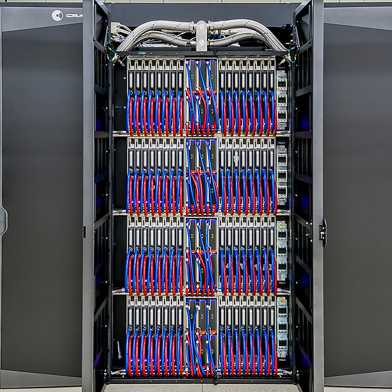
The term "high-performance computer" already implies a high energy demand. Energy efficiency is therefore a central consideration in the procurement and use of supercomputers at the Swiss National Supercomputing Centre (CSCS) — just as it was during the planning of the new building in Lugano more than a decade ago.
Sustainable scents from the mountain of the gods
News

ETH Zurich chemist Freideriki Michailidou is developing novel processes for the sustainable production of fragrance ingredients. As a first step, she studied the scents of rare aromatic plants that grow only on Mount Olympus in Greece.
COP27: Climate finance needs more transparency
- News
- Zukunftsblog
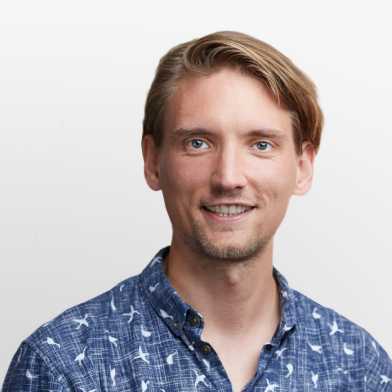
The promise of industrialised countries to financially support emerging and developing countries in climate measures remains unfulfilled at the beginning of the climate conference in Egypt. Florian Egli explains what the states are negotiating at COP27 and what could help to alleviate the loss of trust.
Why conflict parties cease fighting
News

The path to peace usually leads through a ceasefire. In an international project, ETH Zurich researchers have shown the conditions under which parties to civil wars are willing to stop fighting – and why they decide to do so.
A new quantum component made from graphene
News
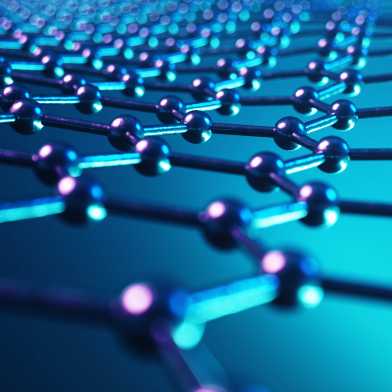
For the first time, ETH Zurich researchers have been able to make a superconducting component from graphene that is quantum coherent and sensitive to magnetic fields. This step opens up interesting prospects for fundamental research.
A comprehensive view of the world food system
- News
- Zukunftsblog
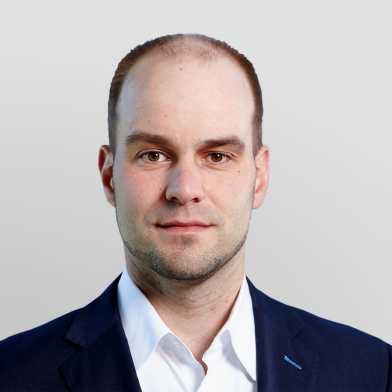
Agriculture practices that preserve resources? Enough food to make sure that everyone can enjoy a healthy and balanced diet? We still are a long way from that, finds Robert Finger – and outlines the most important fields of action to make the food system more sustainable.
Sustainable clean drinking water solution
News

ETH postdoc Olivier Gröninger is improving the drinking water supply for people in rural areas of South America with his Openversum project. This benefits not only the families but also the local economy and the climate
Brazil on the wrong track
News
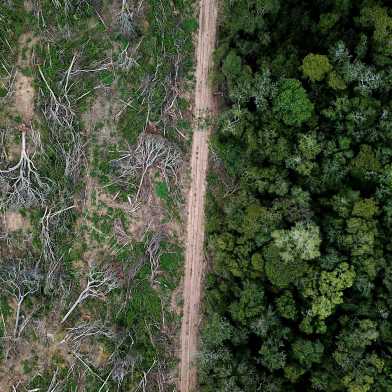
To protect tropical forests in Brazil, commodities traders have made voluntary commitments to avoid buying soybeans grown in areas that have recently been deforested. Two new studies reveal just how inadequate these guidelines are in protecting Brazil from deforestation and assess the potential effect of implementing the commitments on a much larger scale.
What seismic waves reveal about the Martian crust
News

Following two large meteorite impacts on Mars, researchers have observed, for the first time, seismic waves propagating along the surface of a planet other than Earth. The data from the marsquakes was recorded by NASA’s InSight lander and analysed at ETH Zurich in collaboration with the InSight Science Team. It provides new insights into the structure of the Martian crust.
Magma on Mars likely
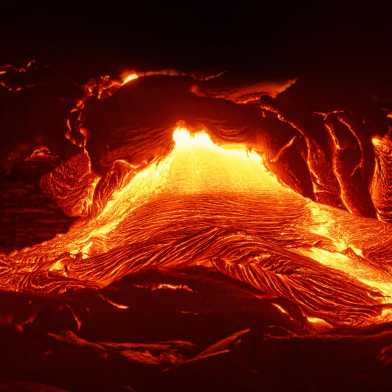
Until now, Mars has been generally considered a geologically dead planet. An international team of researchers led by ETH Zurich now reports that seismic signals indicate vulcanism still plays an active role in shaping the Martian surface.
Fighting tumours with magnetic bacteria
News
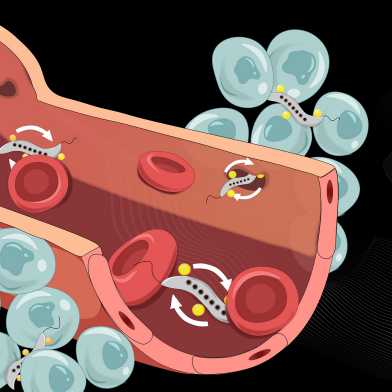
Researchers at ETH Zurich are planning to use magnetic bacteria to fight cancerous tumours. They have now found a way for these microorganisms to effectively cross blood vessel walls and subsequently colonise a tumour.
Climate protection benefits the economy
- News
- Zukunftsblog
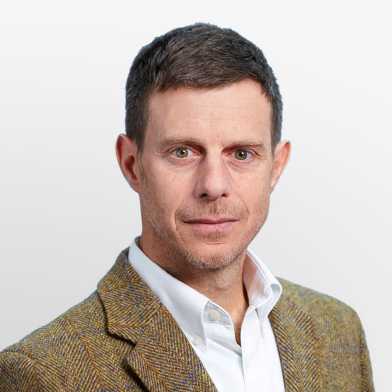
While the economic impacts of climate policy are generally perceived as costs, Anthony Patt proposes the opposite perspective. For Switzerland, converting the energy system and reaching the net-zero target may net benefit the economy, he finds.
Stable in all kinds of shapes
News
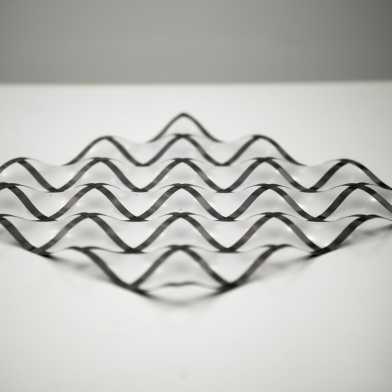
ETH Zurich researchers have developed a structure that can switch between stable shapes as needed while being remarkably simple to produce. The key lies in a clever combination of base materials.
Dürer goes digital
News
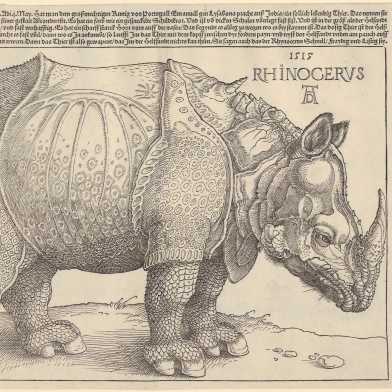
The Graphische Sammlung ETH Zürich has digitised over 50,000 artworks and made them freely accessible. Linda Schädler, Head of the Graphische Sammlung, explains in an interview why she hopes to do the same with the remaining 110,000.
Discover how landscapes sound
News

The creaking of the shimmering Morteratsch Glacier, the rumbling of ash-coloured dams and the steady sloshing of water in grey-blue Zurich reservoirs... In the “Serendipity” seminar series of Chair of Landscape Architecture Christophe Girot, researchers and students leave the seminar room to explore how places sound and how they can be explored by ear. They do this using no more than a microphone and an analogue camera.
Trying on clothes virtually
News

Being able to try on an outfit virtually to see if it fits would result in fewer returns. Two ETH students are working on making this possible.
Annette Oxenius receives the Cloëtta Prize
News
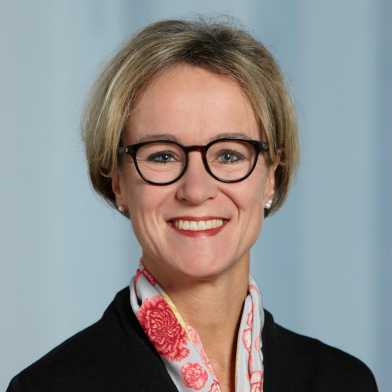
Together with her group, Annette Oxenius conducts research on the fundamental mechanisms of the body’s own immune cells as they react to viral infections. The immunologist has now been honoured with the Cloëtta Prize
Budding ideas for food and agriculture
News
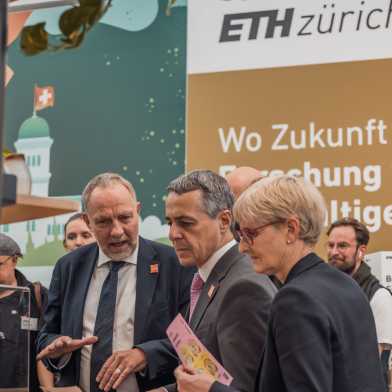
ETH Zurich is at the Olma trade fair in St. Gallen until 23 October. Its exhibition “Where the future begins – research for sustainable agriculture” presents exciting ETH spin-offs and provides playful insights into modern agricultural sciences.
Yet another high position in the third global rankings of this year
News
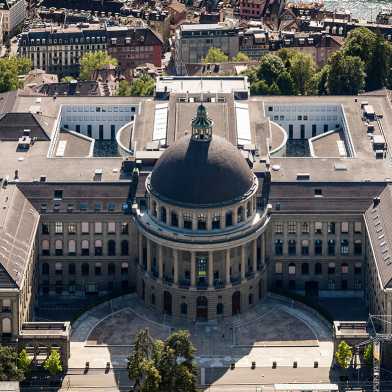
ETH Zurich ranks 11th in the Times Higher Education University Rankings published today – an improvement of four places.
Accurately tracking how plastic biodegrades
News

Researchers at ETH Zurich have developed an approach to accurately record and fully track the biodegradation of plastics in soils.
A dry wake-up call
- Zukunftsblog
- News
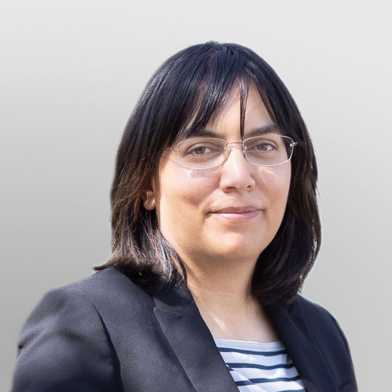
The 2022 summer has shown us again how climate is becoming more extreme year by year. Sticking to business-as-usual and counting on adaptation alone will not work. Only a rapid phase out of fossil fuels will prevent the worst, says Sonia Seneviratne.
How genetics influences our body weight beyond the genes
News
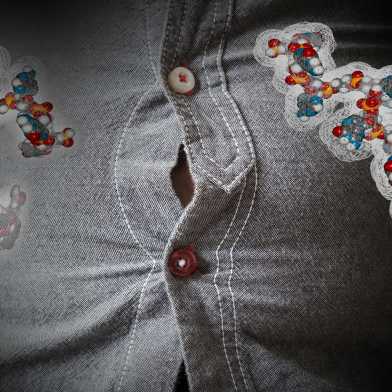
It is not only classical genes that determine our predisposition to obesity. Researchers at ETH Zurich have now shown that microRNA molecules play a central role in the regulation of body weight.
Mapping human brain development
News
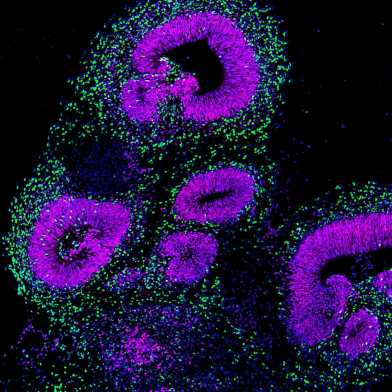
Researchers at ETH Zurich are growing human brain-like tissue from stem cells and are then mapping the cell types that occur in different brain regions and the genes that regulate their development.
Climate change made the 2022 summer droughts more likely

High temperatures, fuelled by climate change, dried out soils across Europe and the Northern Hemisphere this summer, finds a team of climate scientists led by ETH Zurich in the name of the World Weather Attribution group.
Researchers deliver science for humanitarian action
News
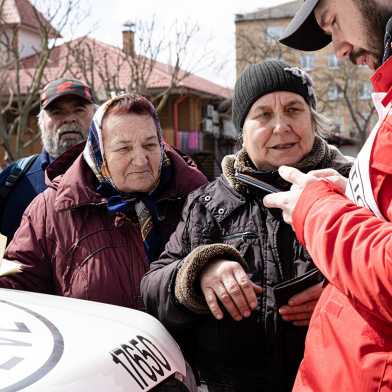
Using innovative technologies and scientific expertise to help people in need is the goal of the Engineering for Humanitarian Action initiative launched by the ICRC, ETH Zurich and EPFL in 2020. Six of the projects are already offering results for tangible improvements for the ICRC.
Constructive approach to error-making boosts innovation
Press release

This year’s Swiss HR Barometer focuses on working conditions that promote innovative behaviours amongst employees. Approaching errors in an open manner, a practice prevalent in Switzerland, has a positive effect on innovative behaviour as well as attitudes to work. Scope for improvement is found in areas such as support for new ideas, personnel development and compensation.
Quiz: Energy Facts and Figures
Globe magazine

How much electricity is generated from hydropower? How many batteries are recycled? And what has been the increase in electric car registrations? Put your knowledge to the test by taking our energy quiz* about facts and figures from Switzerland.
Torsten Hoefler receives the Sidney Fernbach Award
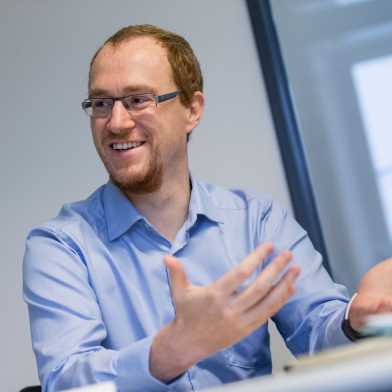
IEEE Computer Society honours ETH Zurich professor, Torsten Hoefler with the Sidney Fernbach Memorial Award for his pioneering contributions to large-scale parallel processing systems and supercomputers. The ideas and software professor Hoefler and his group developed are actively used by tens of thousands of scientists today to power large-scale scientific simulations and artificial intelligence systems.
ETH Zurich researchers want to make salt printing marketable
News
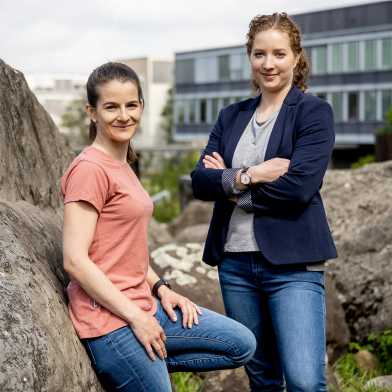
Materials scientists Nicole Kleger and Simona Fehlmann have developed a 3D printing process for creating salt templates that they can fill with other materials. One area of application is the creation of highly porous lightweight metal components. The two Pioneer Fellows are now trying to transfer this process to industry.
The e-Sling electric aircraft takes off
News
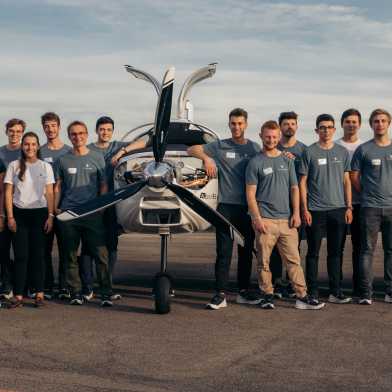
The four-seater electric aircraft “e-Sling”, which was developed by ETH students, has taken flight for the first time. The student project has taken two years and a lot of dedication.
Electricity and heat on demand
- News
- Globe magazine

If the transition to renewables is to succeed, we will need a viable means of storing surplus heat and electricity. Globe spoke to experts from ETH Zurich about the promising technologies that could help us reach net zero.
Flexible leadership for the Swiss Armed Forces
News
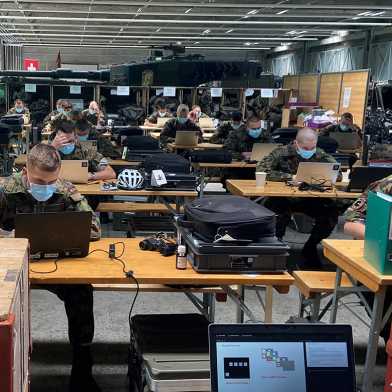
Cognitive flexibility improves leadership, according to numerous studies conducted by ETH Zurich researchers. The Swiss Armed Forces are planning to employ this knowledge in the training of officers to better prepare them for future crises.
“You have to manage your time well”
News
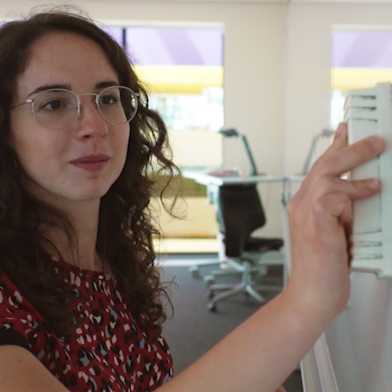
Studying at ETH Zurich is challenging, and all students have their own personal hurdles to overcome. This short video series gives a somewhat different insight into everyday life as a student. It provides an account of students, their setbacks and how they dealt with them.
Alpine plants respond to climate change
- News
- Globe magazine
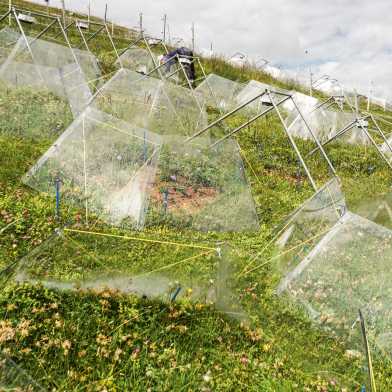
Researchers from ETH Zurich are studying how alpine vegetation is responding to a warming climate – and how some plant communities are continuing to stand firm against newcomers from lower elevations.
We must face the ethical challenges of engineering life
- News
- Zukunftsblog
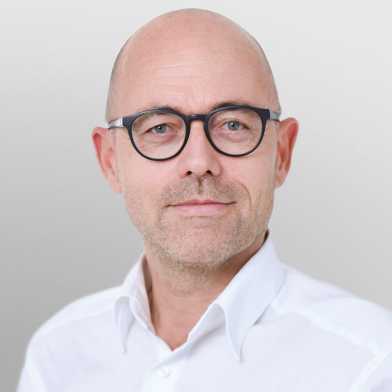
Scientists have a duty to initiate a dialogue with the public on cellular engineering, says Daniel Müller. The discussion must be held now – before complex engineered cellular systems are ready for widespread use in humans.
Breathing life into video pixels
News
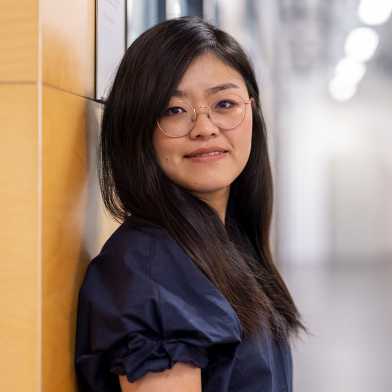
Autonomous virtual humans that move and behave naturally are Siyu Tang’s vision. One area from which the computer scientist draws inspiration are our behavioural patterns. Collaboration with architects and surgeons provides further input – and it also reveals the enormous potential of virtual people.
Four professors appointed
News
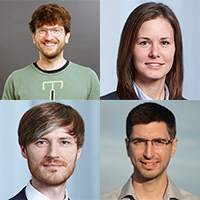
At its meeting of 21 and 22 September 2022 and upon application of Joël Mesot, President of ETH Zurich, the ETH Board appointed four professors and awarded the title of “Professor of Practice” once.
Solving problems better together
News
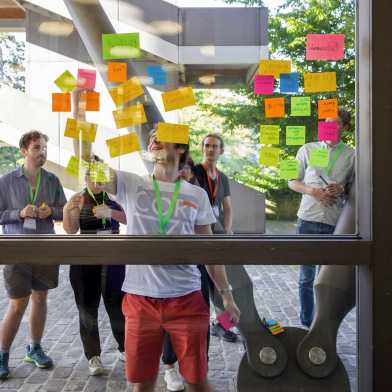
At ETH Week, more than 130 students devoted last week to looking into the subject of Urban Futures. In the video, they share their experience.
Protein scissors for more effective cancer treatment
News
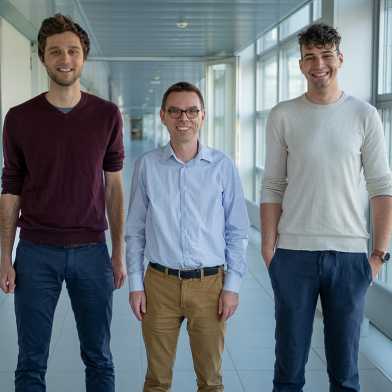
ETH Zurich biologist Daniel Richter has developed a method that enables proteins to be linked to a drug molecule or biomarker with a high level of stability. He plans to use this method in the future to identify tumour cells and open the door to more effective cancer drugs.
On environmental issues, the city-country divide is smaller than often assumed
- News
- Zukunftsblog
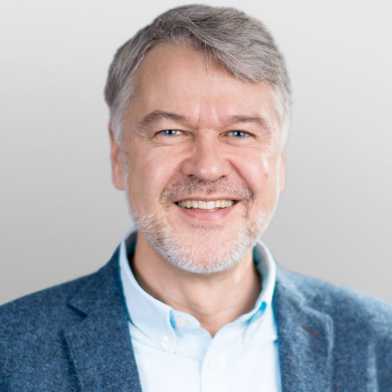
We like to perpetuate the idea of a divide in the attitudes of city dwellers and country people as part of debates on the environment, but it’s simply not the reality, explains Thomas Bernauer. In fact, there is little evidence of a fundamental urban-rural disconnect in Swiss environmental policy.
Female stem pioneer
- News
- Globe magazine
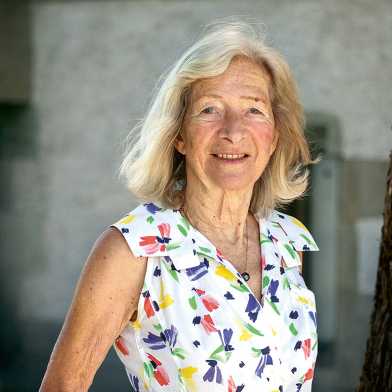
Wera Hotz Kowner was the first woman to study electrical engineering at ETH Zurich. Successfully rising above the condescension shown by some of her professors, she focused on preparing herself for her new job as managing director of the family business.
Training for a complex world
- News
- Globe magazine

ETH Zurich’s course in Applied Technology in Energy brings managers up to speed on the latest energy technologies, enabling them to make informed decisions in their day-to-day work.
“We need an energy shock”
- News
- Globe magazine
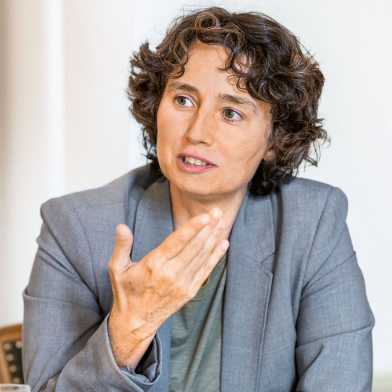
We all understand the importance of energy security. To maintain it, we need to chart the right course. But how can we know what that is?
Powering ahead!
- News
- Globe magazine
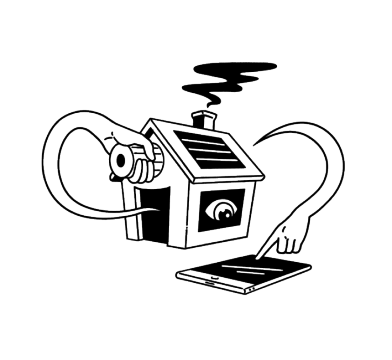
Five ETH spin-offs are displaying the kind of innovative thinking that will determine the success of the energy transition.
„I don’t see interdisciplinarity as an end in itself.“
- Globe magazine
- News
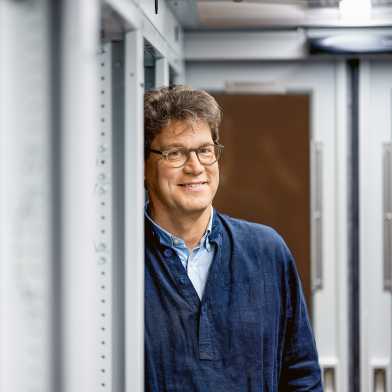
For Sebastian Bonhoeffer, interdisciplinarity is all about taking the little intellectual detours that open up when exchanging ideas with colleagues from other fields.
“Why did I choose the hard way?”
News
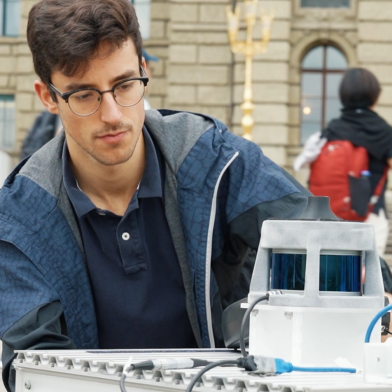
Studying at ETH Zurich is challenging, and all students have their own personal hurdles to overcome. This short video series gives a somewhat different insight into everyday life as a student. It provides an account of students, their setbacks and how they dealt with them.
Classical study programmes particularly popular at present
Press release

More than 20,000 bachelor and master students will start the Autumn Semester at ETH Zurich on 19 September. The number of new bachelor students has declined.
From Cubicle to Limelight: When expertise meets media
News

Scientists often are either in the lab or at their desks researching, thinking, writing, reading, and analysing discoveries. What happens if their expertise aligns with current affairs in the media, such as the war in Ukraine and nuclear threats? How does their work change when they suddenly have to spend more time in talk shows than in the library?
“Yes, but not like this!” – Why densification often lacks public acceptance
News
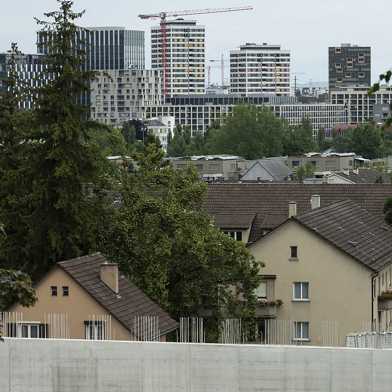
Densification is a fundamental principle of urban planning and development today. Nevertheless, it often encounters local resistance. A group of ETH researchers has now systematically investigated factors influencing public acceptance of densification, focusing on the canton of Zurich and six cities of global importance. One key factor: affordable housing.
Rediscovering the St Gotthard Pass
News
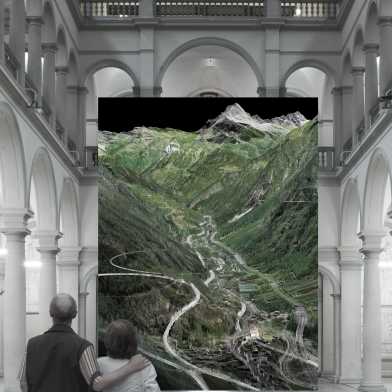
As part of the Swiss Digital Days, an exhibition at ETH Zurich visualises the St Gotthard Pass as an animated digital landscape model for the first time. This allows visitors to experience the legendary massif and its transport infrastructure from a completely new perspective.
“Swiss Nobel Prize” for Ursula Keller
News
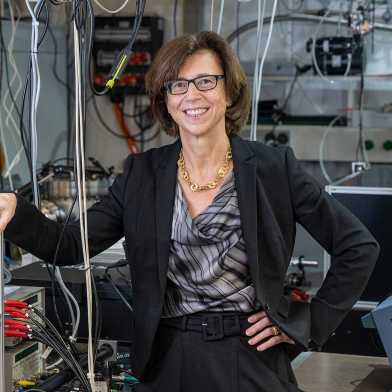
The physics professor Ursula Keller has received the Swiss Science Prize Marcel Benoist for her pioneering work in ultrafast lasers. Her theoretical models and experimental discoveries have repeatedly tested the boundaries of ultrafast laser physics.
Optimized food technologies for nutrition and sustainability
News
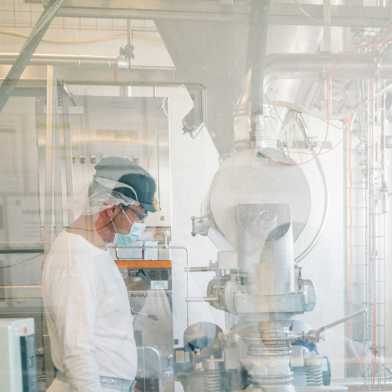
ETH Zurich is stepping up research and teaching in the field of food technology and nutrition. It is supported in this by the companies Givaudan, Bühler and Nestlé with initial funding of 5 million Swiss francs over six years. This funding includes the creation of a new professorship.
If you work in Zurich, you should be able to live there – but where exactly?
Zukunftsblog
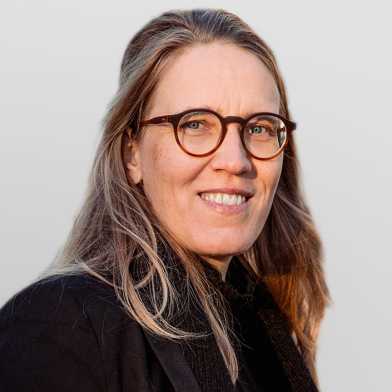
Much controversy surrounds the Neugasse project in the city Zurich. Spatial development scientist Sibylle Wälty shows how this area could contribute to alleviating the housing shortage: by building more densely than currently planned.
New reaction facilitates drug discovery
News
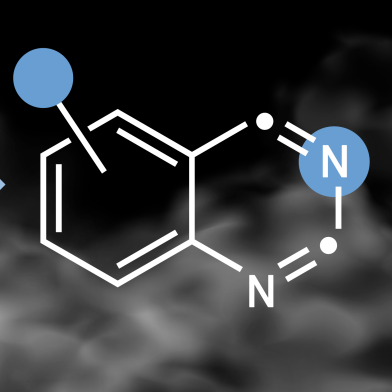
Chemists at ETH Zurich have found a facile method that allows a commonly used building block to be directly converted into other types of important compounds. This expands the possibilities of chemical synthesis and facilitates the search for new pharmaceutically active ingredients.
Preparing for future coronavirus variants using artificial intelligence
News
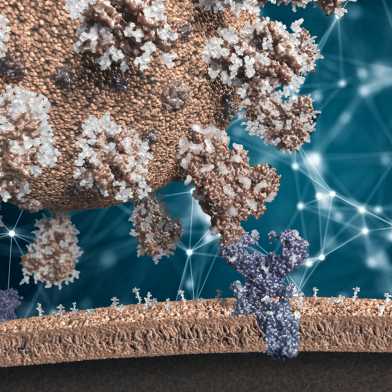
Researchers at ETH Zurich have developed a method to explore the possibilities of how the pandemic virus could evolve. Thanks to their work, it may be possible to develop antibody therapies and vaccines that are more likely to be effective also against future viral variants.
In search of the origin of life
Press release

ETH Zurich is opening a new research and teaching centre with a focus on exploring the origin and prevalence of life on Earth and beyond. Under the leadership of Nobel Laureate Didier Queloz, more than 40 research groups from five departments will address the big questions posed by humankind.
Determining the rate and shape of Arctic Greening
News
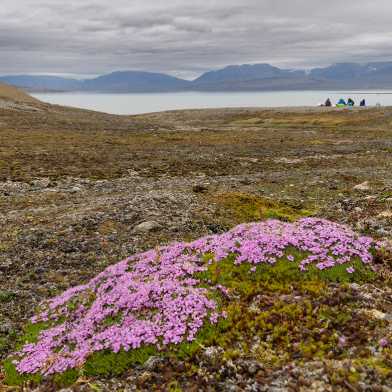
A team of researchers from ETH Zurich and WSL travelled to Svalbard this summer to take a closer look at the phenomenon of Arctic greening. Lead principal investigator Sebastian Doetterl discusses research in the face of polar bears, airline strikes and war.
Synthesis at the touch of a button
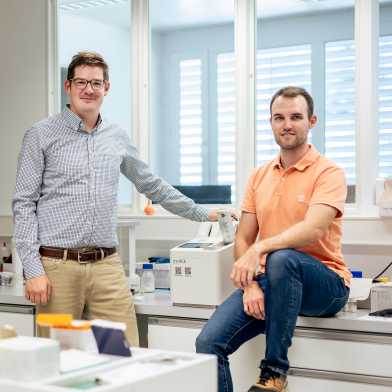
In many chemical laboratories, routine chemical syntheses are performed on a daily basis, which takes up a lot of time. ETH spin-off Synple Chem wants to simplify this with a device that is almost as easy to use as a capsule coffee machine.
Where to land on the Moon?
News
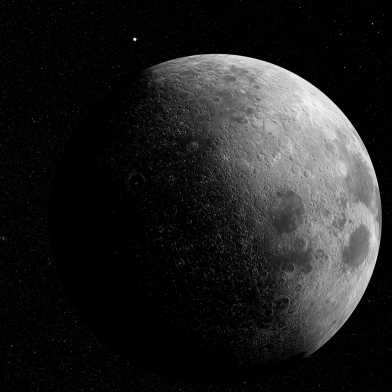
With the help of artificial intelligence, an international research team led by ETH Zurich has explored the Moon’s permanently shadowed regions. The information they have obtained about the area’s surface properties will help to identify suitable locations for future lunar missions.
Network assembly through cell division
News
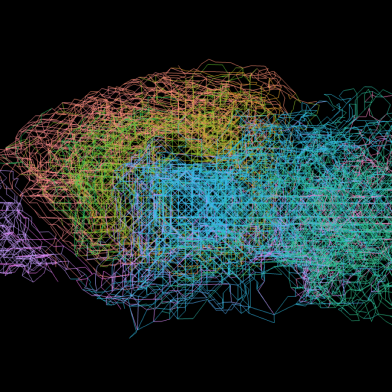
ETH Zurich researchers have developed a model that explains how nerve cells in the brain connect during development. Their model reveals that the crucial factor is progressive cell division. This process leads naturally to the formation of molecular addresses that lets neurons navigate.
ETH and UBS launch partnership to promote innovation and entrepreneurship
Press release
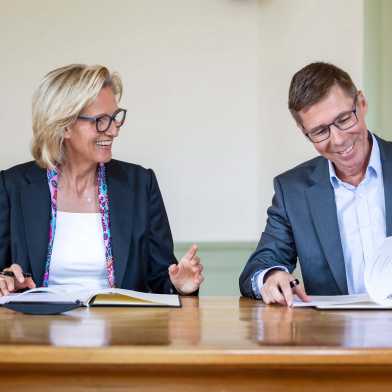
ETH Zurich and UBS are launching a strategic partnership. Over a period of 10 years, UBS will invest up to CHF 20 million in two joint initiatives to promote entrepreneurship and innovation, and raise interest in STEM subjects. UBS will also make a donation of up to CHF 20 million to support the construction of a new ETH building on the Hönggerberg campus.
Industry meets science
News
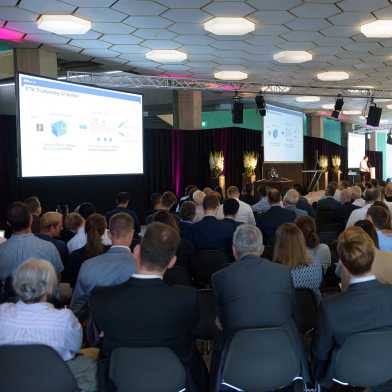
ETH Industry Day on 7 September offers exciting insights into applied research, industry partnerships and entrepreneurial activities at ETH Zurich. A unique opportunity to engage with ETH researchers and young entrepreneurs.
A historical perspective on glacial retreat
News
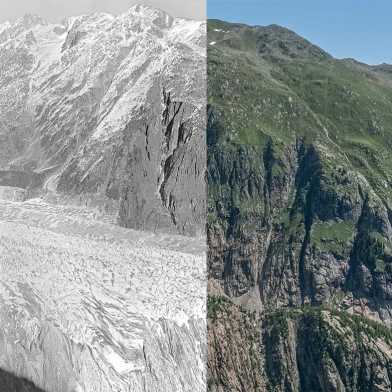
Researchers at ETH Zurich and WSL have for the first time reconstructed the extent of Switzerland’s glacier ice loss in the 20th century. For this purpose, the researchers used historical imagery and conclude that the country’s glaciers lost half their volume between 1931 and 2016.
Strong adhesion thanks to cavitation bubbles
News
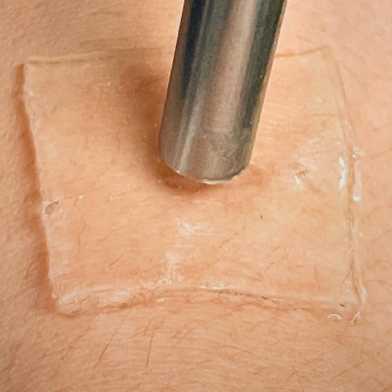
Canadian researchers have discovered that they can stick hydrogel plasters to the skin very effectively using ultrasound. ETH Zurich professor Outi Supponen has now explained the underlying mechanism: imploding bubbles that form within the adhesive located between the plaster and the skin anchor the one on the other.
Monitoring gene activities in living cells
News
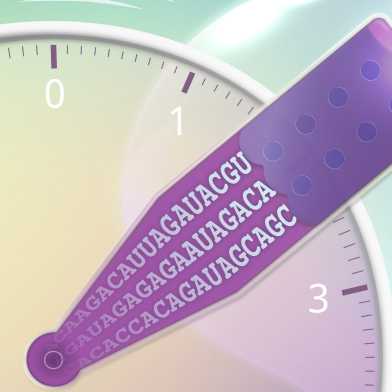
Researchers from ETH Zurich and EPFL are expanding the emerging field of single-cell analysis with a ground-breaking method: Live-seq makes it possible to measure the activity of thousands of genes in a single cell without having to isolate and destroy it.
The unequal distribution of noise
News
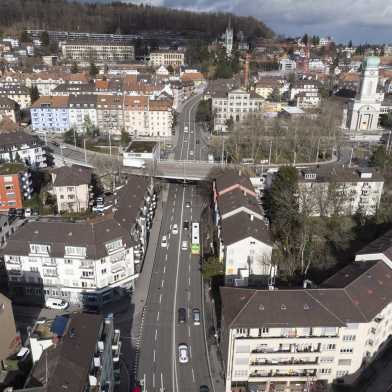
In cities, those who earn more are better able to protect themselves against noise and its associated health risks. This is shown by two new ETH studies conducted in Bern, Zurich, Hannover and Mainz.
One more clue to the Moon’s origin
News

Researchers from ETH Zurich discover the first definitive proof that the Moon inherited indigenous noble gases from the Earth’s mantle. The discovery represents a significant piece of the puzzle towards understanding how the Moon and, potentially, the Earth and other celestial bodies were formed.
Sealing leaks in the stomach or intestine
News
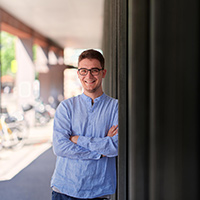
ETH Pioneer Fellow Alexandre Anthis has developed a patch that seals surgical sutures on the intestines or the stomach. The material designed can also detect any leakage at an early stage – thus preventing serious complications.
Hydrogel keeps vaccines alive
News
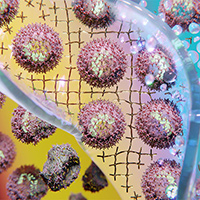
Most vaccines require constant refrigeration during shipment to remain effective. An international research team led by ETH Zurich has now developed a special hydrogel that vastly improves the shelf life of vaccines, even without refrigeration. The development could save many lives and lower the cost of cold chains.
A textbook comes to life: Augmented reality for dental specialists
News
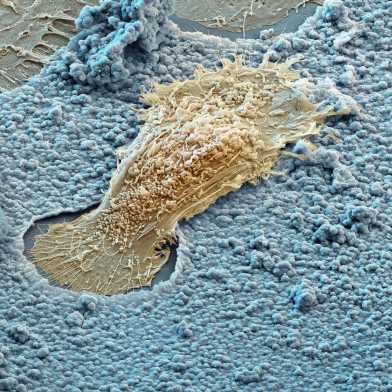
Game developers from the ETH Game Technology Center have created an app that explains bone remodelling in a playful way. If students point the camera of their mobile device at the textbook, they find themselves transported to the bone’s surface, where they help cells break down bone tissue.
First map of immune system connections reveals new therapeutic opportunities
News
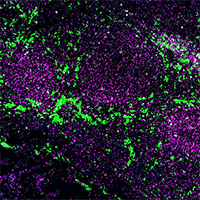
Researchers of the Wellcome Sanger Institute and ETH Zurich have created the first full connectivity map of the human immune system, showing how immune cells communicate with each other and ways to modulate these pathways in disease.
Heatwaves thawing Arctic permafrost
News
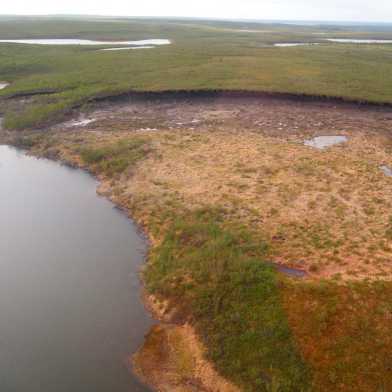
Satellite data affords ETH Zurich researchers a new method for quantifying carbon mobilisation in Arctic permafrost. Their findings also reveal how summer heatwaves accelerate the rate of Arctic landslides in thawing permafrost.
Don’t attack the Energy Strategy with simplified assumptions
Zukunftsblog
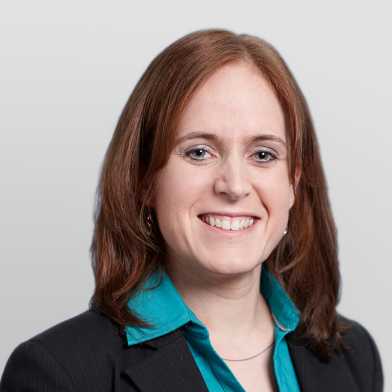
An ETH risk researcher has concluded that Energy Strategy 2050 doesn’t work. The Energy Science Center at ETH Zurich disagrees: extensive research shows that the energy transition is feasible and makes sense, writes Gabriela Hug together with her ESC colleagues.
Imaging the brain with ultrasound waves
News
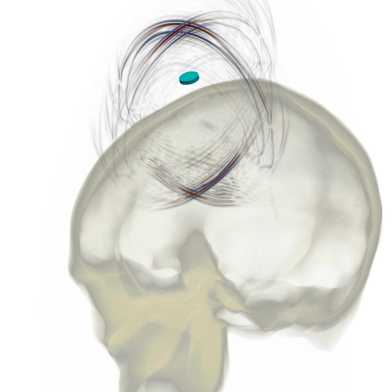
As wave specialists, seismologists map the structure of planets from the information that seismic waves carry. Now, the team led by ETH professor Andreas Fichtner is also using this knowledge for medical imaging.
A magnetic catheter against strokes
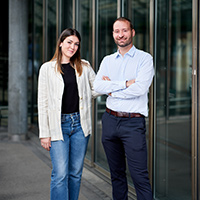
ETH spin-off Nanoflex has developed a magnetically steerable catheter for quick and safe stroke treatment that no longer requires surgeons to be on site.
Resistance to mosaic disease explained
News

Researchers from ETH Zurich, the United States and Uganda have identified the gene responsible for resistance in certain cassava cultivars against the devastating cassava mosaic disease. This is an important step for breeding virus-resistant cassava varieties.
Attosecond measurement on electrons in water clusters
News

Researchers at ETH Zurich have developed a method that enables time-resolved measurements of electron motion in water clusters lasting only a few attoseconds. The technique can be used for more detailed studies of water as well as faster electronics.
Twelve professors appointed
News
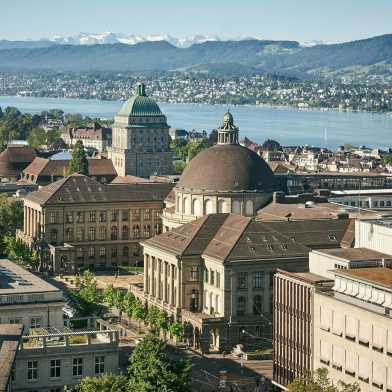
At its meeting of 13/14 July 2022 and upon application of Joël Mesot, President of ETH Zurich, the ETH Board appointed twelve professors. At the same time, the Board also bid farewell to four professors and thanked them for their service.
Podcast series: Energy fact check
- News
- Podcast
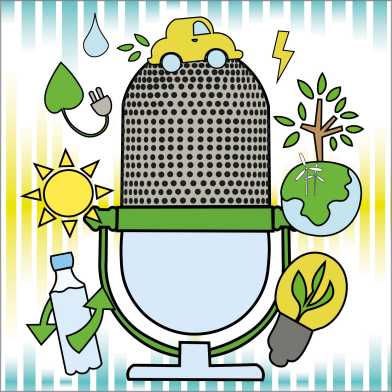
Does nuclear power have a future? Are electric cars dirty? In a four-part series, the ETH Podcast takes a detailed look at popular theories about the future of energy.
Speculative calculations open a backdoor to information theft
News

ETH Zurich researchers have discovered a serious security vulnerability in computer hardware. The vulnerability, called "Retbleed," affects microprocessors from market leaders Intel and AMD. All commercially available operating systems worldwide that use these processors are affected. When computers execute special calculation steps to compute faster, they leave traces that hackers could abuse.
"I have goose bumps"
News

On 11 July, NASA published the first image taken by the James Webb Space Telescope. ETH Zurich Astrophysicist, Adrian Glauser was also involved in the construction of one of the telescope's measuring instruments. In an interview, he explains what he thought and felt when he saw the image.
ETH researchers remeasure gravitational constant
News
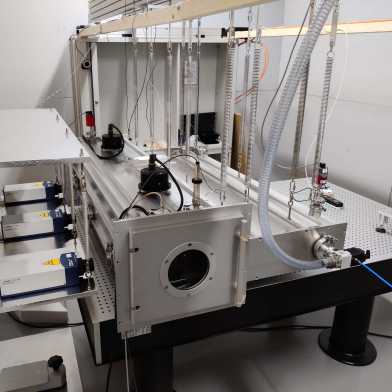
Researchers at ETH Zurich have redetermined the gravitational constant G using a new measurement technique. Although there is still a large degree of uncertainty regarding this value, the new method offers great potential for testing one of the most fundamental laws of nature.
New insights into the Earth’s formation
News
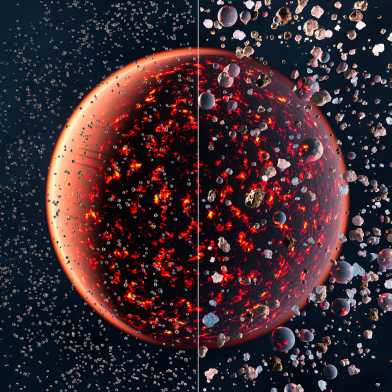
An international research team led by ETH Zurich proposes a new theory for the Earth’s formation. It may also show how other rocky planets were formed.
Severe flu risk as immune cells swap with age
News
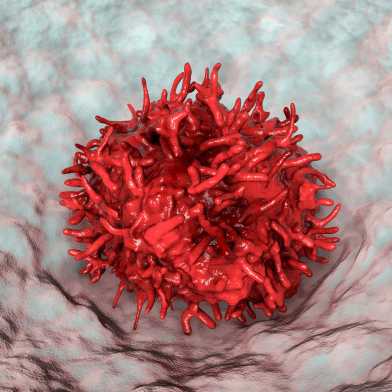
ETH researchers found that in mice, long-lived embryonic macrophages in the lungs die upon aging and during infection and are replaced by inflammatory bone marrow-derived macrophages. This causes severe disease progression when infected with viral flu.
Ozone depletion over North Pole produces weather anomalies
News
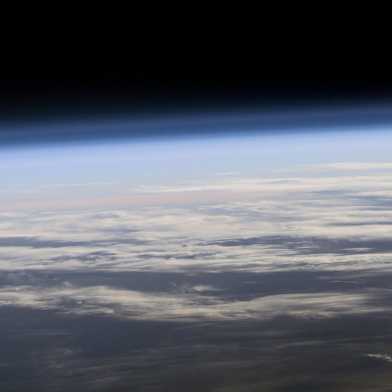
Researchers from ETH Zurich have established that the destruction of ozone over the Arctic in the spring causes abnormal weather throughout the northern hemisphere, with many places being warmer and drier than average – or too wet.
Making CRISPR hype more of a reality
- News
- Zukunftsblog
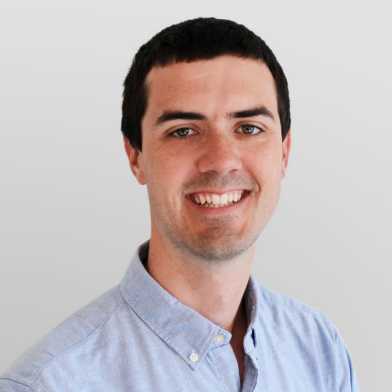
The latest CRISPR-based genome editing systems function more like molecular taxis rather than a pair of molecular scissors. This makes them much safer for patients who will soon benefit from gene therapies, as Eric Aird explains.
Algae-based prawns to protect the marine environment
News
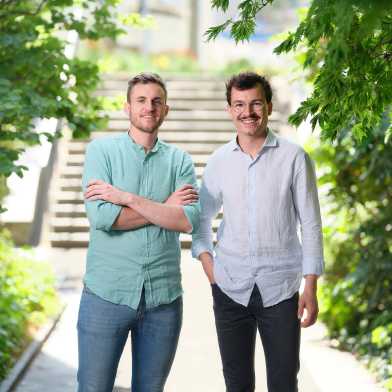
The growth in demand for fish and seafood is harming stocks and valuable ecosystems. In response, food technologist Lukas Böcker and food chemist Severin Eder are developing microalgae-based seafood substitutes in their joint Pioneer Fellowship project.
The beauty and benefits of biodiversity
- Globe magazine
- News
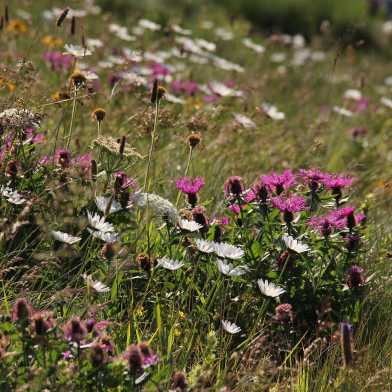
Biodiversity is beautiful, but it’s also vitally important. ETH researchers are getting to the heart of how species diversity and genetic diversity evolve – and why we must fight to preserve them.
Calculate or co-create?
- News
- Globe magazine
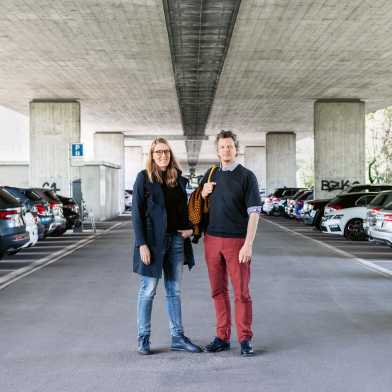
Beauty may be in the eye of the beholder – yet how do we find consensus on a shared amenity such as a neighbourhood? We took a stroll with two ETH architects to discover how they see their role as mediators between the conflicting priorities of urban consolidation, functionalism and aesthetics.
Eight ETH start-ups win Venture award
News
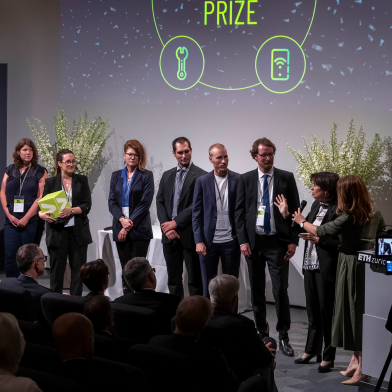
The Venture Awards for Swiss start-ups were presented yesterday evening for the 25th time. In addition to the three certified ETH spin-offs DeepJudge, Kaspar& and Versics, the 15 winners included five other start-ups founded by ETH students and alumni.
Swiss population wants to expand development cooperation
- Press release
- News
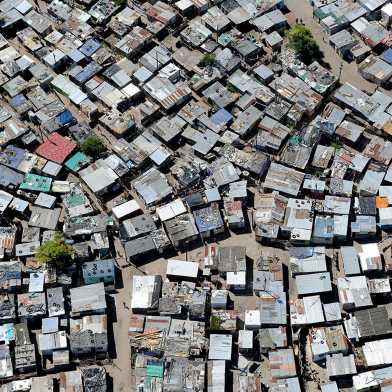
A representative survey conducted for the first time shows: the Swiss population is concerned about global poverty, advocates for its reduction — and calls for greater Swiss engagement.
Six ETH Zurich researchers receive Advanced Grants
News
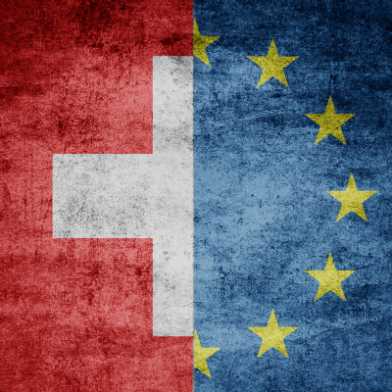
The Swiss National Science Foundation has awarded Advanced Grants to make up for the loss of European support. Researchers at ETH Zurich did particularly well, with 6 of the 24 grants going to the university.
Opioid poisoning on the rise
News

Researchers at ETH have shown that cases of opioid poisoning and the prescription of opioids have increased sharply in Switzerland over the past 20 years. Although the situation is not as serious as in North America, the risk should not be underestimated.
Staying positive in challenging times
- News
- Globe magazine
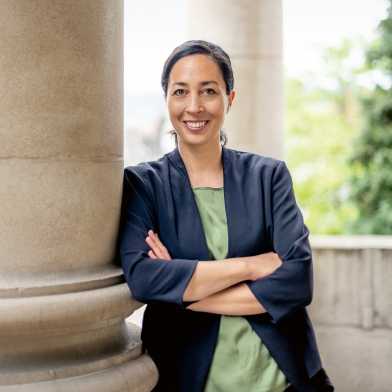
Linda Maduz has great faith in people’s – and society’s – resilience and in their capacity for positive development, even in politically turbulent times.
Wearable muscles
Press release
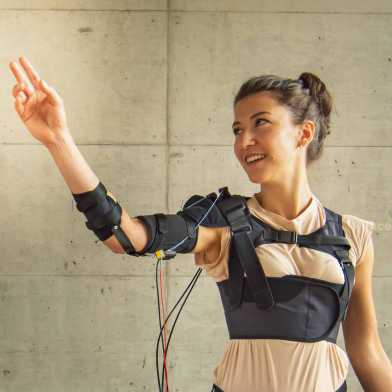
Researchers at ETH Zurich have developed a wearable textile exomuscle that serves as an extra layer of muscles. They aim to use it to increase the upper body strength and endurance of people with restricted mobility.
Tanja Stadler to receive Rössler Prize
News
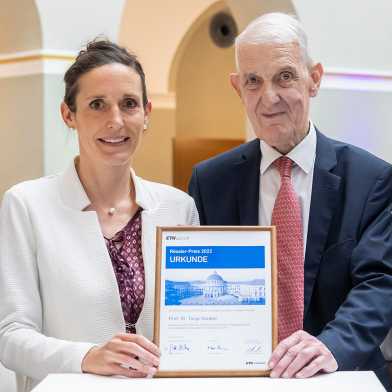
Mathematician and biostatistician Tanja Stadler will receive this year’s Rössler Prize for her achievements. Worth 200,000 Swiss francs, it is ETH Zurich’s most generous research award.
Breast cancer spreads at night
- News
- Press release
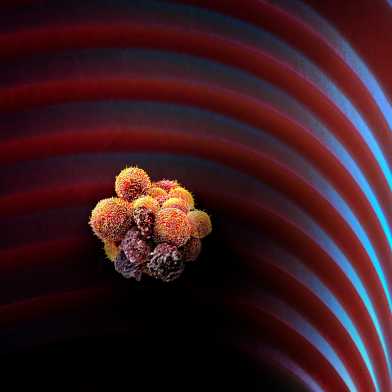
A new study shows that breast cancer metastases form more efficiently while patients are sleeping. This finding, in a study led by researchers at ETH Zur-ich, could significantly change the way cancer is diagnosed and treated in future.
Tapping the ocean as a source of natural products
News
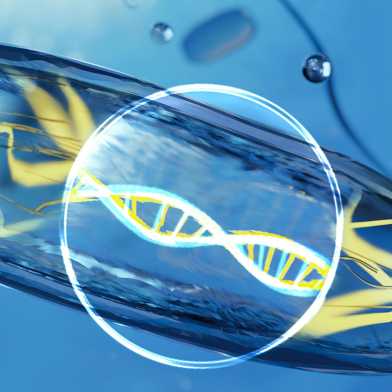
Using DNA data, ETH researchers have examined seawater to find not only new species of bacteria, but also previously unknown natural products that may one day prove beneficial.
…as they search for beauty
- News
- Globe magazine
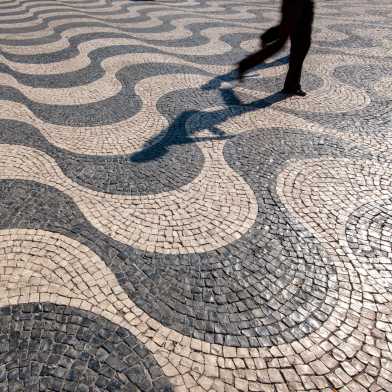
At its heart, is mathematics an aesthetic discipline? Or what does it mean if someone finds a proof “beautiful”? And what does mathematical beauty say about physical connections?
ETH researchers discover vulnerabilities in Mega cloud service
News

A team of cryptographers at ETH Zurich conducted extensive testing on the New Zealand-based cloud platform Mega. In doing so, they discovered security holes that would allow the provider to decrypt and manipulate customer data.
Getting into the air
- News
- Globe magazine

Eight ETH students are working on battery and hydrogen versions of an electric aircraft as part of the e-Sling focus project. For the past year, their lives have revolved around Hangar 3 at the Innovation Park Zurich in Dübendorf.
An entrepreneur through and through
- News
- Globe magazine
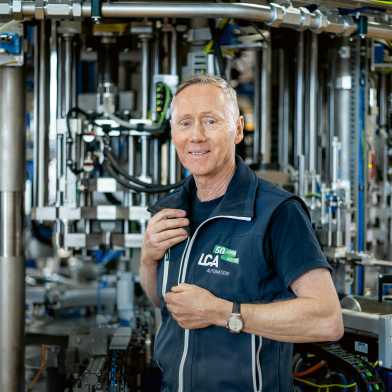
ETH alumnus Christoph Rennhard runs a company that develops precision machines for the global market. The keys to his success are technical expertise, customer orientation and talented staff – plus the ability of his SME to respond faster than big corporations.
The fascination of images
- News
- Globe magazine
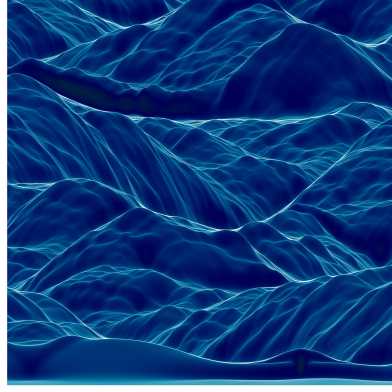
Images play an important role in science and science communication. They have always held a powerful appeal, but the means of producing them – and the notion of how they should reflect reality – continue to evolve over time.
Colour vision
- News
- Globe magazine

Colours can be created in surprisingly different ways. And in addition to being pleasing to the eye, colour can also serve a useful purpose.
We need to simplify chemistry
Zukunftsblog
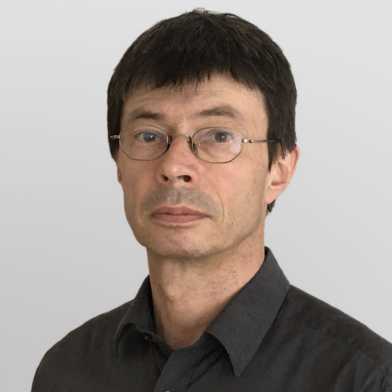
Making the chemical industry sustainable means reducing not only its dependence on fossil raw materials but also its toxicity footprint. This is achievable if the industry reduces its product range, explains Martin Scheringer.
Rewind reality and experience it again
News
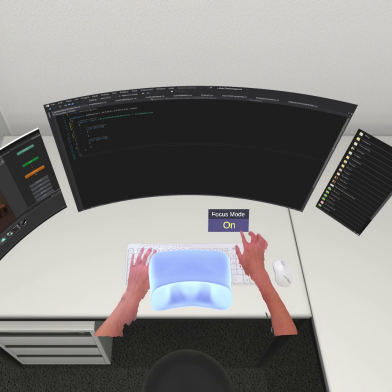
Did you miss an important moment? ETH Zurich researchers have developed a system that can record and later replay events in a room in 3D.
From price shock to independence from fossil fuels
News
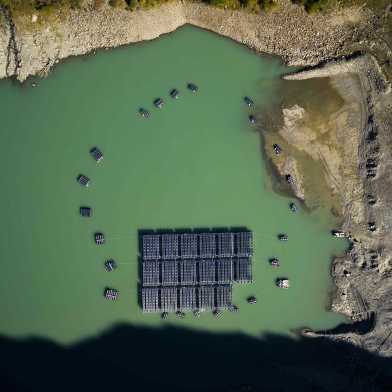
Oil and gas prices are currently on the rise, raising questions about the security of Switzerland’s energy supply. In a policy brief, researchers from the Energy Science Center at ETH Zurich have now shown what Switzerland can do to make its energy system independent of fossil fuels such as oil and natural gas.
Walking to net zero
Zukunftsblog
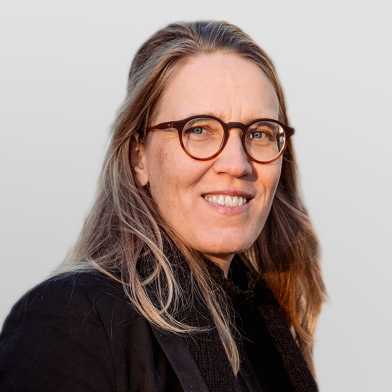
The Canton of Zurich recently adopted the net-zero 2040 climate protection target. Here Sibylle Wälty appeals for more 10-minute neighbourhoods, which, by making better use of the settlement area, will reduce emissions.
We Are ETH-Podcast: Margherita Montana
News
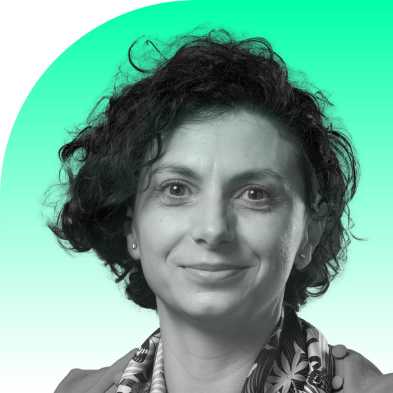
It was only when Margherita Fontana left ETH Zurich that she realised she had been given a unique value proposition that she could take with her into the corporate world.
An underrated factor
News
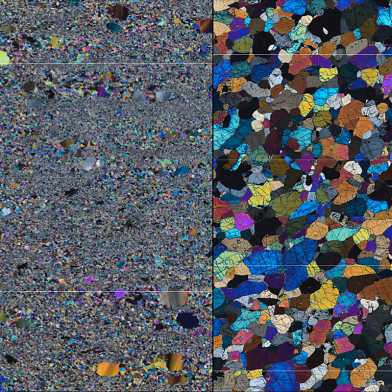
How the plates of the Earth’s crust move depends largely on the behaviour of the rocks below them in the mantle. A new ETH study now shows that the grain size of these rocks is a key factor.
Avatars populate a utopian city
News
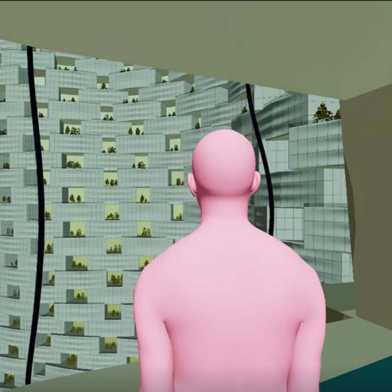
An exhibition in the Guggenheim Museum in Bilbao, Spain, features ETH Zurich architects who show their vision of utopia - a vertical city built by drones, developed in 2012. Along with computer scientists, they have now populated the structure with autonomous avatars.
Fighting the pandemic in Africa: When distancing rules are futile
- News
- Press release

Researchers from ETH Zurich and the Swiss Tropical and Public Health Institute have created a risk map showing which regions in Africa may see a faster spread of infectious diseases due to lacking infrastructure.
A green Europe with no energy imports
News

Researchers from ETH Zurich and TU Delft have developed a model to generate hundreds of ways in which Europe’s energy system can become green and self-sufficient by 2050. They have made their results available on an interactive platform to provide a clearer picture of all the various options and their associated trade-offs.
Sustainable solutions from a concrete canoe
News
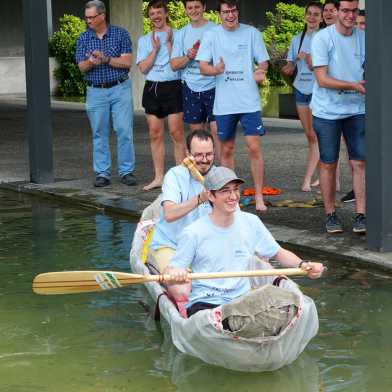
This weekend, students from ETH Zurich won the sustainability prize at the 18th concrete canoe regatta in Brandenburg with their boat "TruchETH". The aspiring civil engineers impressed with an environmentally friendly boat for which they combined old clothes with concrete.
When it comes to food, less is often more
- News
- Zukunftsblog
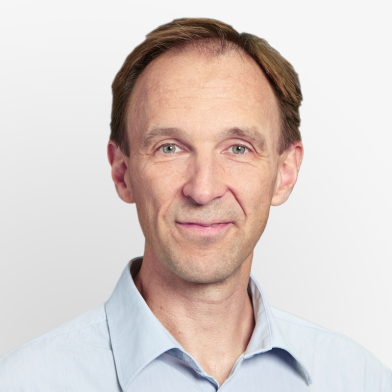
For Achim Walter, it’s time we take responsibility for what we eat. As consumers, we have a right to demand a food system that serves the environment, promotes health and protects those in less affluent circumstances.
“It was true detective work!”
News
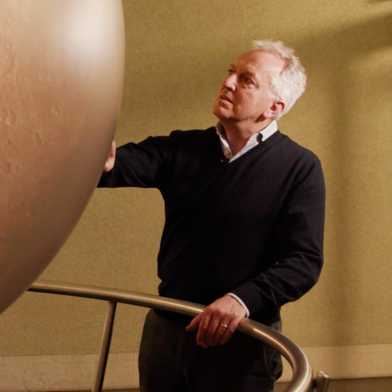
The InSight mission on Mars is running out of power and most of its functions could be shut down in the months to come. Some have already been deactivated. However, the attached seismometer, SEIS, will remain in operation for as long as possible. ETH Professor Domenico Giardini takes stock of three years of marsquake measurements.
Number one in continental Europe
News
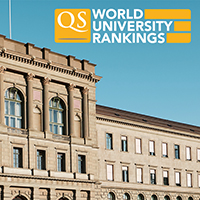
The latest QS ranking places ETH Zurich ninth among the world’s best universities. Once again, ETH owes its high rank to its academic reputation and citations of its scientific publications.
Inspiring future engineers
News
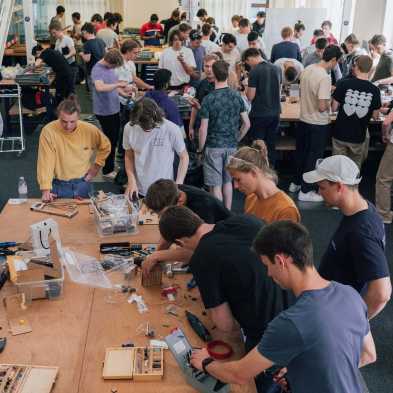
In this year’s innovation projects, ETH students had to develop an engineering kit that can be used to spark adolescents' interest in engineering.
“Science is fun”
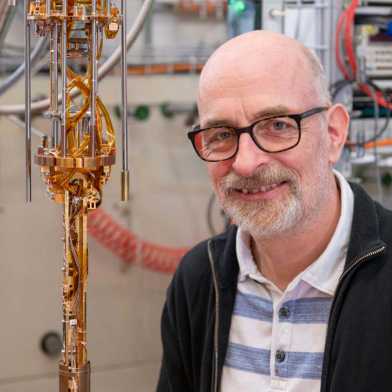
What the “Night of Physics” really aims to do is make physics accessible to a broad audience in a way that’s entertaining. This event will be held on 17 June. Klaus Ensslin, Professor of Physics and co-initiator of the event, explains why it’s worth coming along to the Hönggerberg campus.
A world first: for the first time, a human liver was treated in a machine and then successfully transplanted
- News
- Press release
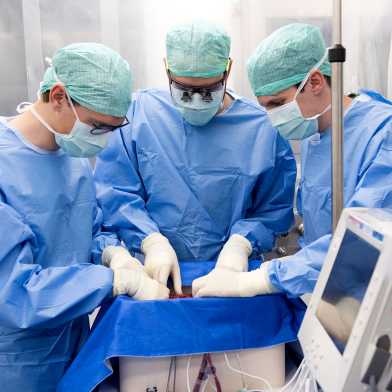
The multidisciplinary Zurich research team Liver4Life has succeeded in doing something during a treatment attempt that had never been achieved in the history of medicine until now: it treated an originally damaged human liver in a machine for three days outside of a body and then implanted the recovered organ into a cancer patient. One year later, the patient is doing well.
Simple questions, difficult answers
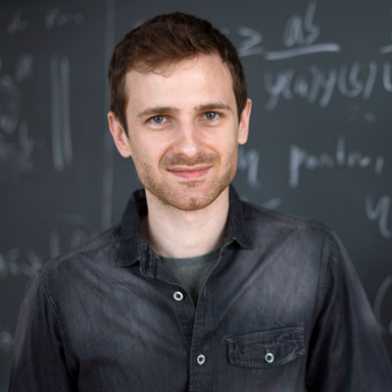
Oliver Janzer is a mathematician who specialises in graphs – that is, collections of nodes that may or may not be connected, such as Facebook users. As part of his ETH Fellowship, the young researcher has been busy solving problems that had stumped mathematicians for decades.
ETH at the WEF – life, the universe and everything else
News
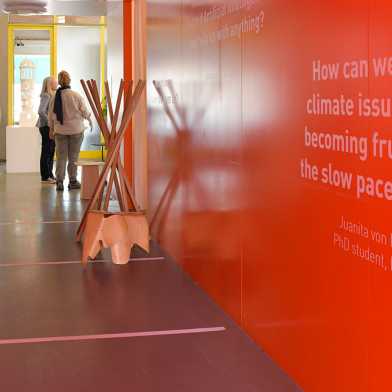
Words, sentences and entire books appeared all over ETH’s exhibition pavilion at this year’s World Economic Forum. In conjunction with the research exhibits on display, they framed the space for the discussion “RETHINKING LIVING”: a search for answers to the really big questions.
A talk about how far food travels before reaching our plates
News

Before it reaches our plates, the food we eat usually has travelled a long way. In this episode of the ETH podcast, we talk about how far a breakfast travels and the resulting political and ecological significance.
Tunable quantum traps for excitons
News
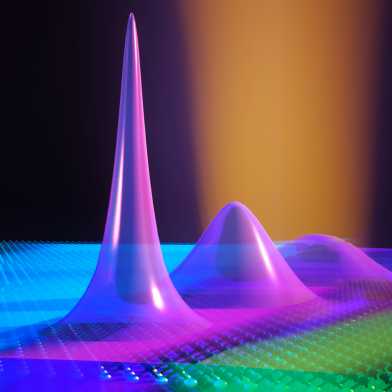
Researchers at ETH Zurich have succeeded for the first time in trapping excitons - quasiparticles consisting of negatively charged electrons and positively charged holes – in a semiconductor material using controllable electric fields. The new technique is important for creating single photon sources as well as for basic research.
Shelter, stability and beauty
News
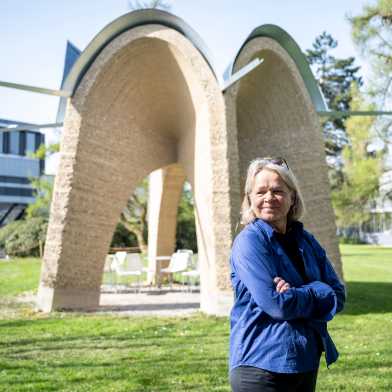
After 15 years as Professor of Architecture and Construction, Annette Spiro recently retired to become professor emerita. Her lectures and publications inspired a whole generation of architecture students at ETH Zurich.
War in Ukraine – back to the 19th century?
- News
- Zukunftsblog
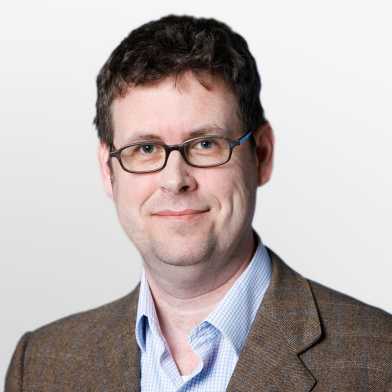
If nations are separated by national borders, the risk of civil war and interstate conflicts increases – as in the case of Ukraine. For this reason, Lars-Erik Cederman believes that sanctions should also be designed to have a deterrent effect on other nationalists.
The chaotic early phase of the solar system
News

An international team of researchers led by the ETH Zurich and the National Centre of Competence in Research PlanetS have reconstructed the early history of several asteroids more precisely than ever before. Their results indicate that the early solar system was more chaotic than previously thought.
A state-of-the-art solution for hydrocephalus
News
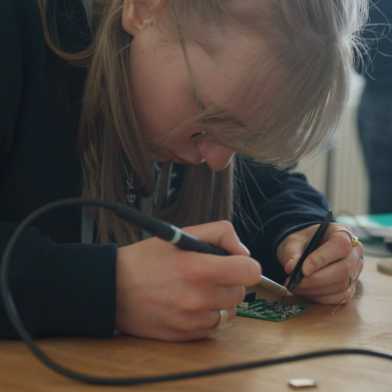
The VIEshunt student team aims to benefit patients by developing an intelligent shunt able to regulate the intracranial pressure.
An ecological turnaround can be achieved
Zukunftsblog
Nature is not a ‘nice to have’ – it’s our life support system. Dwindling biodiversity endangers the very foundation of our existence. A turnaround is possible, but only if we all want it, says Christoph Küffer.
Slovak President visits ETH
News
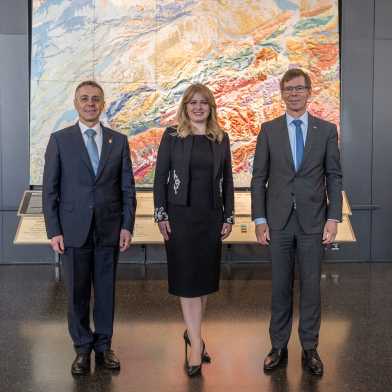
Slovak President Zuzana Čaputová and President of the Swiss Confederation Ignazio Cassis visited ETH Zurich today. The Slovak President is currently on a two-day state visit to Switzerland and made a stop at the university.
We Are ETH-Podcast: Philippe Kahn

Philippe Kahn, a technology innovator and entrepreneur who studied mathematics at ETH Zurich, is credited with creating the first camera phone solution.
Good science journalism has a cost
- News
- Zukunftsblog
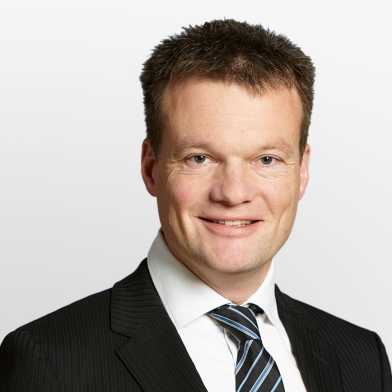
Translating research results for society requires resources. Either we pay someone to make it work – or we pay as a society if it turns out not to work.
Thirteen professors appointed
News
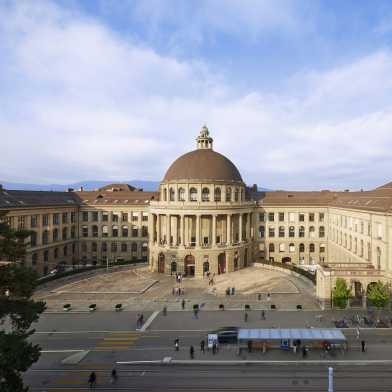
At its meeting of 18 and 19 May and upon application of Joël Mesot, President of ETH Zurich, the ETH Board appointed 13 professors and awarded the title of professor four times. At the same time, the Board also bid farewell to 15 professors and thanked them for their service.
Component for brain-inspired computing
News

Researchers from ETH Zurich, the University of Zurich and Empa have developed a new material for an electronic component that can be used in a wider range of applications than its predecessors. Such components will help create electronic circuits that emulate the human brain and that are more efficient at performing machine-learning tasks.
Swiss Science celebrates Hansjörg Wyss
- News
- Press release
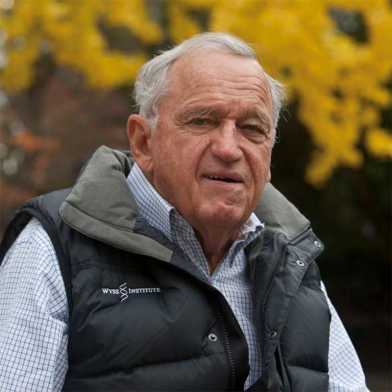
Entrepreneur and philanthropist Hansjörg Wyss is one of the major private donors for Swiss science. Today, Wyss was celebrated as the laureate of the 2022 Gallatin Award of the Swiss American Chamber of Commerce.
Autonomous water purification
News
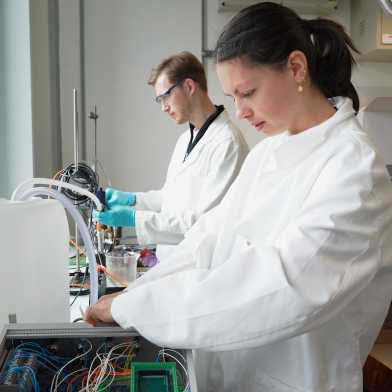
ETH News has been videoing three student teams working on focus projects. One of these is the Sowa team.
Precursor of spine and brain forms passively
News
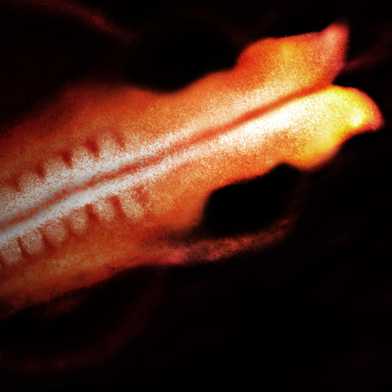
Researchers at ETH Zurich have conducted a detailed study of neurulation – how the neural tube forms during embryonic development. They conclude that this happens less actively than previously thought. This also has implications for understanding defects such as spina bifida.
Building materials and the race to net zero
Zukunftsblog
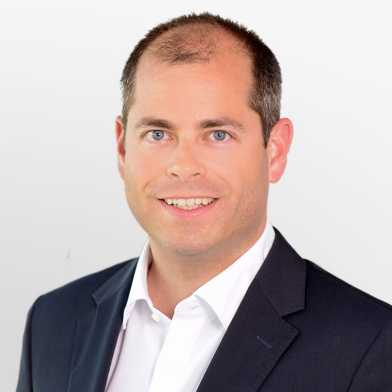
To be more sustainable, the construction industry needs reliable service-life predictions for structures. Ueli Angst calls for a paradigm shift in forecasting the durability of reinforced concrete.
Bacteria with recording function capture gut health status
News
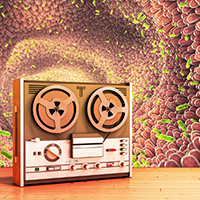
Researchers from ETH Zurich, University Hospital of Bern and the University of Bern have equipped gut bacteria with data logger functionality as a way of monitoring which genes are active in the bacteria. These microorganisms could one day offer a noninvasive means of diagnosing disease or assessing the impact of a diet on health.
Robot dog on the way to the moon
News
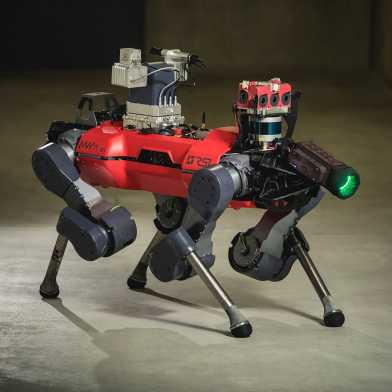
The robotic explorer GLIMPSE, created at ETH Zurich and the University of Zurich, has made it into the final round of a competition for prospecting resources in space. The long-term goal is for the robot to explore the south polar region of the moon.
New imaging method makes tiny robots visible in the body
News

Microrobots have the potential to revolutionize medicine. Researchers at the Max Planck ETH Centre for Learning Systems have now developed an imaging technique that for the first time recognises cell-sized microrobots individually and at high resolution in a living organism.
Drone and soft gripper become best friends
News
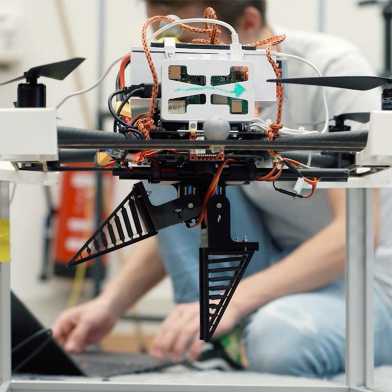
Focus projects allow mechanical and electrical engineering students to put what they have learned into practice. ETH News accompanied three student teams with a video camera – one of which was the “Raptor” team.
“Neutrality is only one means among many”
News

The war in Ukraine poses some major challenges to Swiss security policy. Andreas Wenger, Director of the Center for Security Studies (CSS) at ETH Zurich, explains why we will need to broaden our understanding of defence in the future – and why international cooperation is becoming increasingly important.
KITE Award for physics experiments at home
News
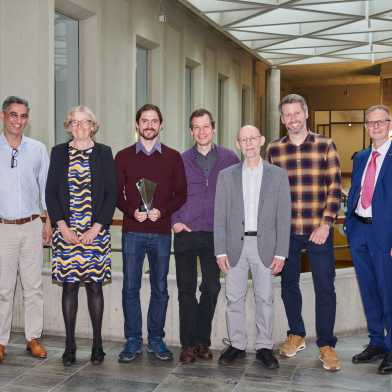
This year’s ETH award for particularly innovative teaching projects goes to a course that brings physics experiments for students right into their home. The project was up against 24 others competing for the KITE Award 2022.
“It’s important to factor in how people feel”
News

In the race to combat climate change, sustainable transport systems can play a key role in reducing greenhouse gas emissions to net zero by 2050. As well as focusing on the technological issues at stake, current research also investigates whether there is public acceptance for the changes. Kay Axhausen explains this approach.
Helping robots feel more human
News
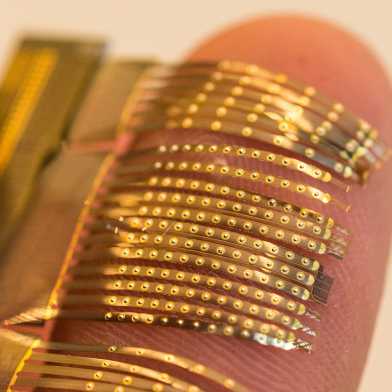
For his doctorate, Johannes Weichart is developing an artificial skin that could give robots a sense of touch similar to humans. This would make them much more adept at handling objects.
An opportunity for refugees – and for ETH
News
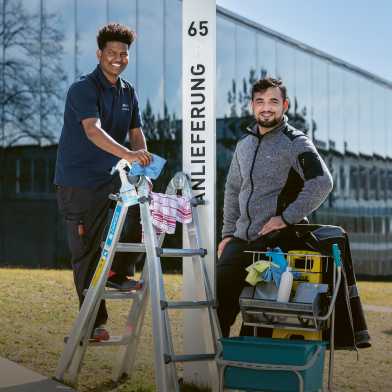
ETH Zurich started offering pre-apprenticeships for refugees last August. How are things going for the first two participants in the programme? And what are the next steps for the pilot project?
"The EU won’t become a defense alliance like NATO"
News
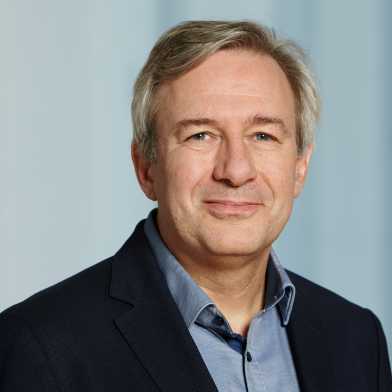
In an interview with ETH News, ETH Zurich Professor Frank Schimmelfennig analyses how the war in Ukraine is affecting the European Union and whether Ukraine is likely to be granted membership.
New earthquake assessments strengthen preparedness in Europe
News
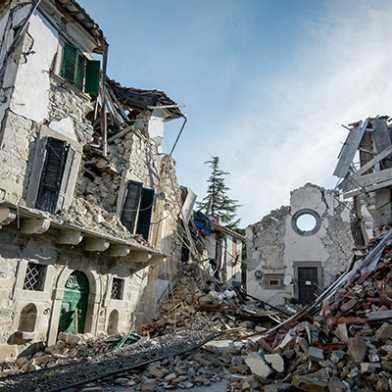
European scientists with the participation of the Swiss Seismological Service at ETH Zurich have published an updated earthquake hazard map and, for the first time, an earthquake risk map for Europe. Switzerland will follow suit next year with a higher resolution national risk map.
Spark Award for new biochemical method
News
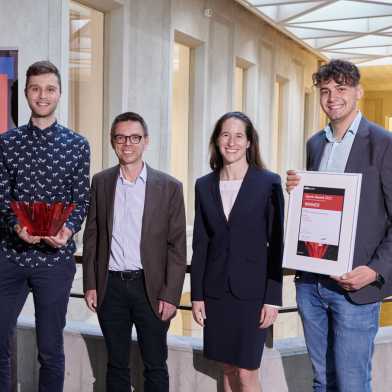
From diagnostics to treatment, the biochemical method developed by Daniel Richter, Edgars Lakis and Jörn Piel paves the way for a diverse range of applications in research and medicine. The researchers received the ETH Zurich Spark Award 2022 for their innovative solution.
A wooden dome made solely from waste
Globe magazine
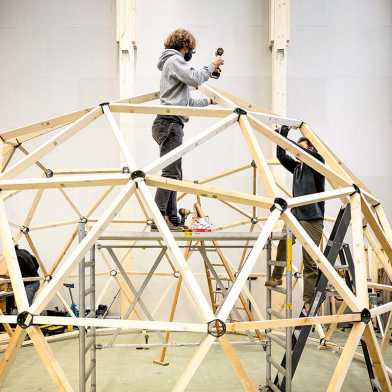
Catherine De Wolf firmly believes that digitalisation can help shift the construction industry towards a more circular economy. The assistant professor and her research group recently completed a hands-on project to illustrate how this could work.
Automated analysis of animal behaviour
News
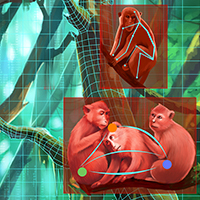
Researchers have developed a new method that uses artificial intelligence to analyse animal behaviour. This opens the door to longer-term in-depth studies in the field of behavioural science – while also helping to improve animal welfare. The method is already being tested at Zurich Zoo.
The social impact of disasters
- News
- Globe magazine

Human geographer Christine Eriksen and physicist David Bresch conduct research into weather and climate risks. Their methods may be different, but they agree that the scale of a disaster is often determined more by societal decisions than by the natural hazard itself.
We Are ETH podcast: Martin Dahinden
News

Switzerland's former ambassador to the US Martin Dahinden made many exciting encounters during his diplomatic career, and ETH Zurich played a key role throughout.
Environmental DNA reveals secret reef inhabitants
News
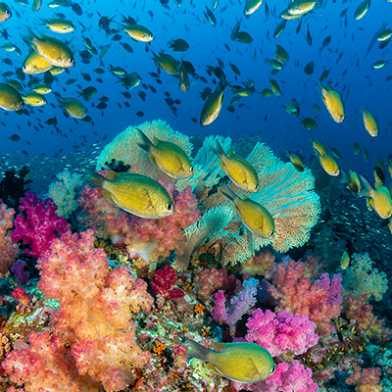
An international research team use a global sampling of seawater to reveal which tropical reef fish occur where. To identify species and families, they successfully used the residual DNA shed by the animals present in the water. But not all fish can be traced in this way.
Neural network can read tree heights from satellite images
News
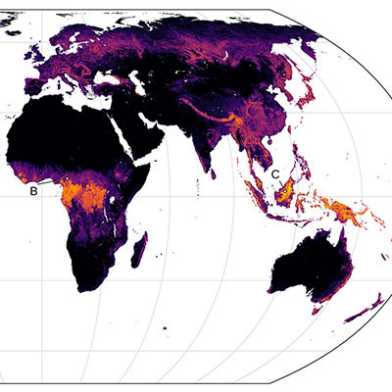
Using an artificial neural network, researchers at ETH Zurich have created the first high-resolution global vegetation height map for 2020 from satellite images. This map could provide key information for fighting climate change and species extinction, as well as for sustainable regional development planning.
Everyone should have to decide
Zukunftsblog
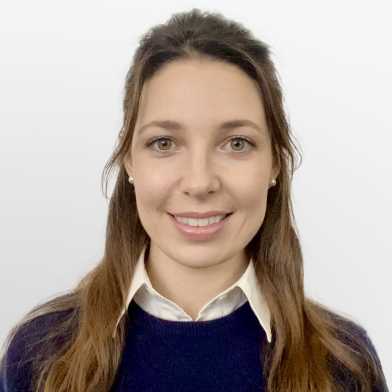
A presumed consent system for organ donation, which is to be put to the vote in Switzerland, would likely increase the organ donation rate, writes bioethicist Agata Ferretti. In her view, however, there is an even better solution: the obligation to decide.
Underestimated risks
Globe magazine

Climate change, pandemics and cyber attacks are risks that have long been in the public spotlight. But there are also risks that ETH researchers consider are still being given too little attention. Photographer Tina Sturzenegger has captured the scenarios on film.
Light amplification accelerates chemical reactions in aerosols
News

Aerosols in the atmosphere react to incident sunlight. This light is amplified in the interior of the aerosol droplets and particles, accelerating reactions. ETH researchers have now been able to demonstrate and quantify this effect and recommend factoring it into future climate models.
Virtual world, real threats
Globe magazine

Digitalisation offers a wealth of new opportunities – and criminals and hostile states are only too happy to exploit them. Protecting against such attacks requires a broad range of measures.
Additional stimulus for ETH Zurich
News
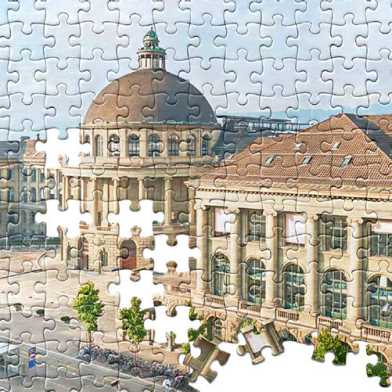
Thanks to more than 3,200 donations from private individuals, foundations and companies, ETH was again able to accelerate pioneering research projects, support outstanding students and fast track strategic projects in 2021. The ETH Foundation’s 2021 annual report provides an overview.
Better control of development aid through AI
News

A research team from ETH Zurich and LMU Munich is using artificial intelligence to analyse 3.2 million development aid projects worldwide. Their research reveals trends and funding gaps.
Using statistical methods to predict the course of disease
News
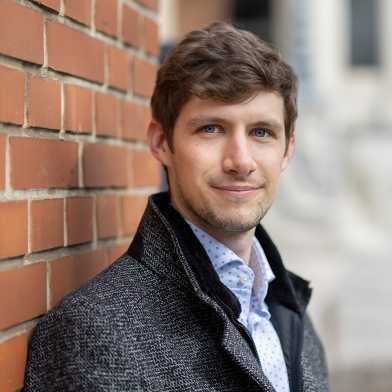
Data contains much more than just the information on the surface. With statistics, deeper cause-and-effect relationships can be brought to light. This is what Alexander Marx is researching as a Fellow at the ETH AI Center using artificial intelligence. One of his goals is to be able to make predictions regarding diabetes in children.
How safe is our money?
Globe magazine
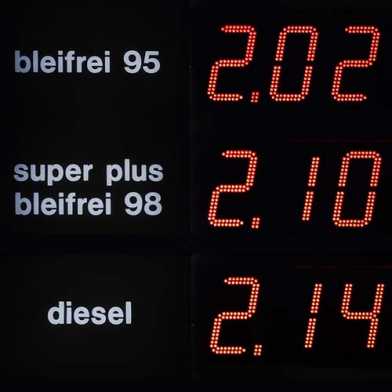
The war in Ukraine has fanned the flames of inflation. Is this merely a temporary shock – or the start of a new normal?
“Without risks, life would be unbearable.”
Globe magazine
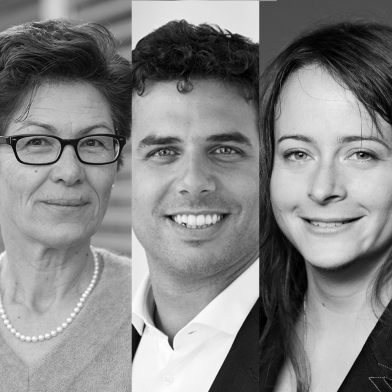
Russia’s invasion of Ukraine has suddenly shifted the debate on security policy. An interview for Globe magazine with ETH researchers Myriam Dunn Cavelty, Vally Koubi und Giovanni Sansavini on the subject of security and risk conducted in January has been overtaken by events and will therefore not go to print. We want to nevertheless make it available to you online. A lot of the questions and answers would be different today. Read it for yourself.
A smart use of AI
Globe magazine

ETH alumna Paulina Grnarova wants to use artificial intelligence to revolutionise the way the legal industry works. Her recent appearance on the Forbes 30 Under 30 list has catapulted her into the spotlight.
5 questions for the new rector
Globe magazine
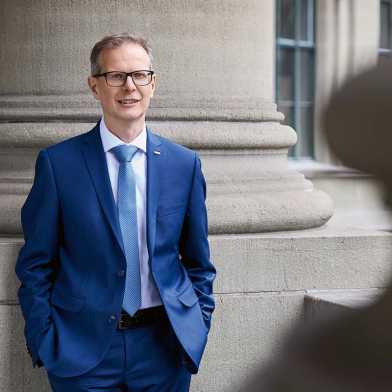
Günther Dissertori bases his teaching on the three Es: enthusiasm, empathy and expectation management.
New partnership with Bulgaria for artificial intelligence
News
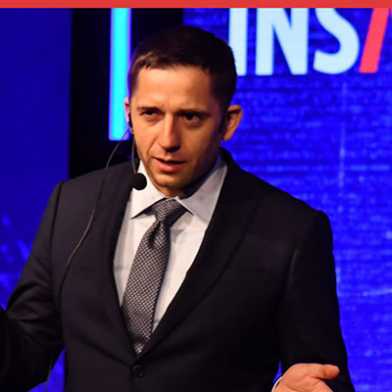
Today, the Institute for Computer Science, Artificial Intelligence, and Technology (INSAIT) has been launched in Sofia. INSAIT is a new Bulgarian Institute established in partnership with ETH Zurich and EPF Lausanne.
What the young think about the natural sciences
News

How much do children and adolescents really understand about what constitutes scientific knowledge? According to a new study by researchers from ETH Zurich and the University of Tübingen, this has less to do with intelligence – and more to do with the academic background of their parents.
Enhancing deep sleep
News

Researchers have developed a wearable device that plays specific sounds to enhance deep sleep. The first clinical study has now shown that the device is effective, but not at the same level of effectiveness for everyone.
Stick to Science - The exclusion of Switzerland from European Research
News

In this episode of the podcast, ETH researchers and the former Director-General of Research and Innovation at the European Commission talk about Switzerland's exclusion from Horizon Europe.
The energy turnaround won’t happen on its own
Zukunftsblog
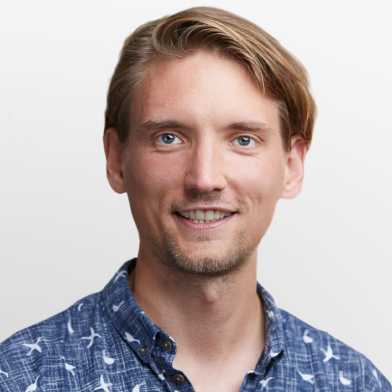
The surge in gas and oil prices triggered by Russia’s invasion of Ukraine could help speed the energy transition. But high prices won’t be enough to ensure it succeeds; smart policies are still needed, writes Florian Egli.
Climeworks raises CHF 600 million
News
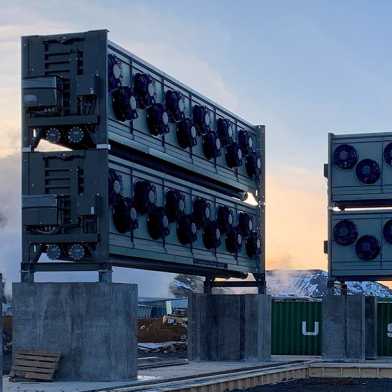
ETH spin-off Climeworks is specialised in technology that filters CO₂ directly from the air. The company secured CHF 600 million in investment in its latest equity round, allowing it to invest in new large-scale air capture facilities.
QS ranks ETH Zurich in world’s top 10 for 16 subjects
News
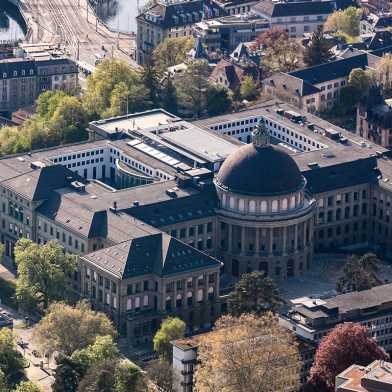
International higher education think tank, QS releases its World University Rankings by Subject. Sixteen ETH Zurich disciplines place in the top 10 contributing to Switzerland’s place as the third best in the world’s higher education sector.
We can curb climate change
Zukunftsblog
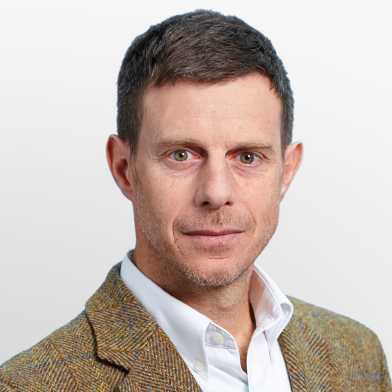
Anthony Patt has contributed to the new IPCC report on mitigation of climate change. Since the last report in 2014, the odds for phasing out fossil energy have changed; a net-zero world is achievable now, even if the way remains long.
A look into the magnetic future
News
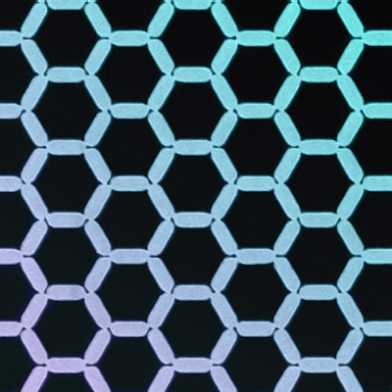
Researchers at PSI and ETH Zurich have observed for the first time how tiny magnets in a special layout align themselves solely as a result of temperature changes. This view into processes that take place within so-called artificial spin ice could play an important role in the development of novel high-performance computers.
Ubiquitous nutrients suppress appetite and promote movement
News

In experiments on mice, researchers at ETH Zurich show that non-essential amino acids act as appetite suppressants and promote the urge to move. Their research provides insight into the neural mechanism that controls this behaviour.
Plant-based steak made from pea protein
News
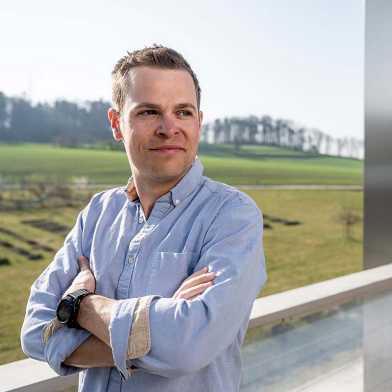
ETH Pioneer Fellow Martin Hofmann has developed a method to produce high-quality plant-based meat alternatives. His research on the flow properties of soft materials enables him to imitate the marbling of real steaks.
Annual report 2021
News
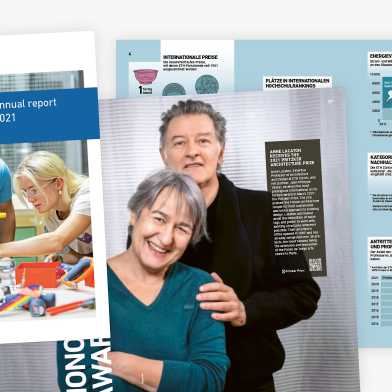
The past year has brought challenges on three fronts: coronavirus, climate change and links with Europe. While new variants of Sars-CoV-2 were the main concern during the second year of the pandemic, governments meeting at COP21 sought commitments for more coordinated efforts in combatting climate change. For Swiss universities, 2021 also marked a turning point, as they were shut out of the EU research programme Horizon Europe.
A new dimension in transplantation
News
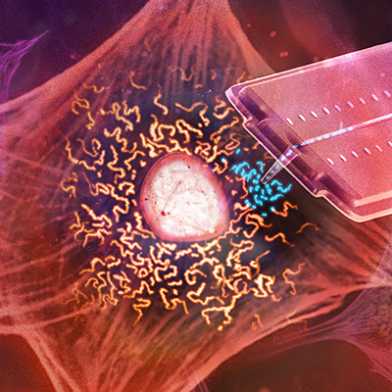
In a technological breakthrough, researchers at ETH Zurich have announced the development of a new technique that can transplant mitochondria – the tiny powerhouses of the cell – from one living cell to another with unparalleled efficiency.
The Dyatlov Pass mystery and what a research article can trigger
News
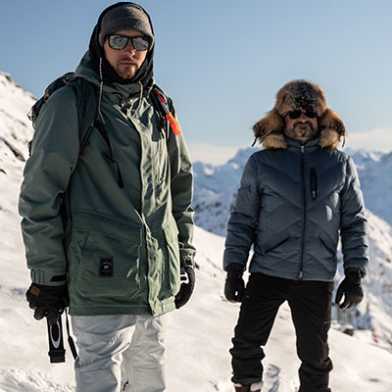
The slab avalanche modelling that Alexander Puzrin and Johan Gaume, two researchers from ETH and EPFL, used to explain the so-called Dyatlov Pass mystery has triggered a variety of responses around the world. In a follow-up article, the two researchers reflect on the impact of their research findings in science and the media and describe the follow up expeditions to the Dyatlov Pass that supported the slab avalanche theory.
Breaking down plastic into its constituent parts
News

A team of ETH researchers led by Athina Anastasaki have succeeded in breaking down plastic into its molecular building blocks and in recovering over 90 percent of them. A first step towards genuine plastic recycling.
“The West should quickly tighten the sanctions”
News
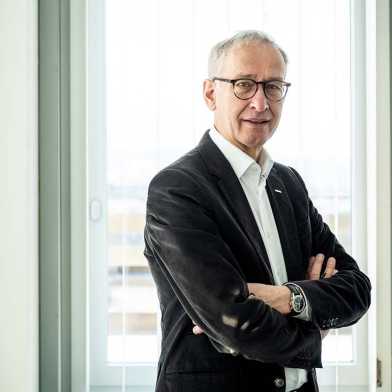
In an interview with ETH News, ETH Professor Emeritus and former State secretary Michael Ambühl outlines possible cornerstones of a diplomatic solution for the war in Ukraine.
Underground entrepreneur
News
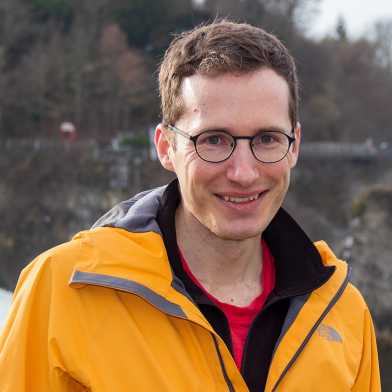
Geophysicist Mauro Häusler is a Pioneer Fellow at ETH Zurich. He uses a seismic method to investigate rock instabilities and wants to establish himself as a service provider in the geoengineering industry.
Individual funding is history
Press release

Four researchers from ETH Zurich have been awarded a Consolidator Grant from the European Research Council (ERC). Since Switzerland is no longer fully associated, they will receive the approximately eight million francs in research funding from the State Secretariat for Education, Research and Innovation (SERI).
Automatically filter and block cookies
News

Cookie consent banners only appear to give users control over their data. So researchers at ETH Zurich have developed a browser extension that uses machine learning to recognise and block unnecessary cookies.
Security in Asia also affects Europe
Zukunftsblog
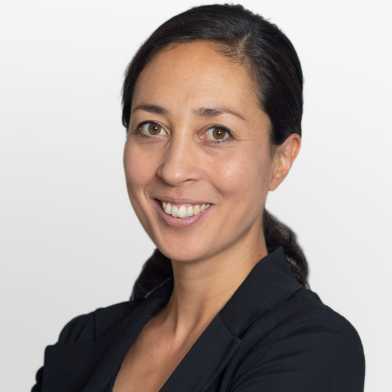
To benefit from stability and security in Asia, Europe must rethink its relations and engagement with this region. But, as Linda Maduz points out, it is worth taking a nuanced look at the various Asian countries.
Solving problems with intuition
News
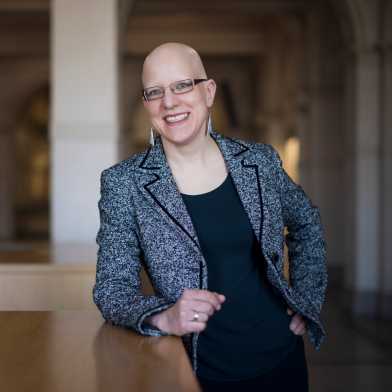
In her research as a number theorist, Sarah Zerbes focuses on one of the oldest – but also most topical – branches of mathematics. Her work is closely tied to one of the great open mathematical problems, the solution for which carries a prize of one million dollars.
“We won’t see a second Cold War”
Globe magazine
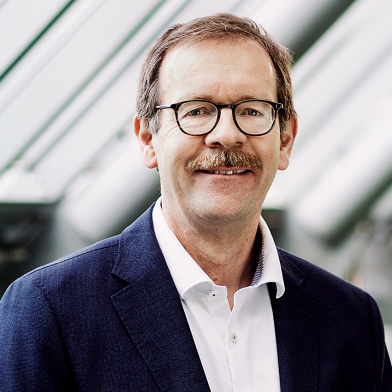
Russia’s attack on Ukraine calls the security architecture in Europe into question. In an interview with Globe, ETH Professor Andreas Wenger explains the medium- and long-term consequences for international and Swiss security policy.
Ten professors appointed
News
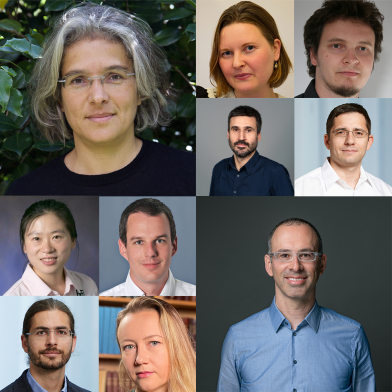
At its meeting of 9 and 10 March 2022 and upon application of Joël Mesot, President of ETH Zurich, the ETH Board appointed ten professors and awarded the title of professor twice.
New research programme takes a close look at Greenland’s fjords
News

The Swiss Polar Institute has launched a four-year study led by EPFL in which researchers from several other Swiss institutions are investigating the impact of climate change on Greenland’s fjord ecosystems. Research groups from ETH Zurich are also involved.
“I’m noticing a sense of optimism”
News
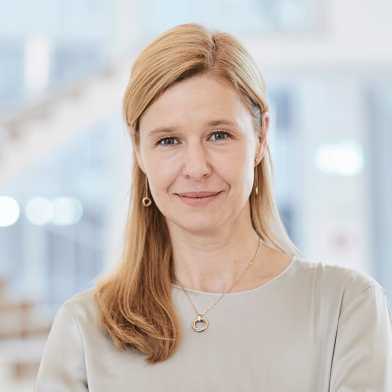
To mark International Women’s Day taking place today, Julia Dannath, Vice President for Personnel Development and Leadership, explains why there is still a long way to go in achieving a gender balance at ETH Zurich, and what measures are being put in place to reach this goal.
Gender equality in Swiss research
News

On International Women’s Day, the ETH podcast has a close look at facts and figures regarding gender equality at ETH Zurich.
Reducing poverty and inequality
Zukunftsblog
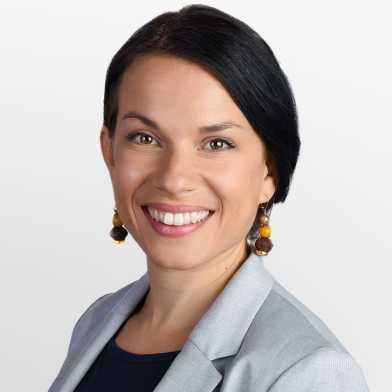
Two-thirds of the world's population still lives on less than ten International Dollars a day. Although global inequalities remain gigantic, Adina Rom is convinced that living conditions can be sustainably improved for all.
Traces of life in the Earth's deep mantle
News
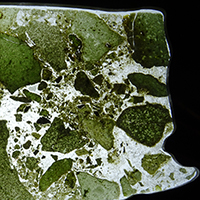
The rapid development of fauna 540 million years ago has permanently changed the Earth - deep into its lower mantle. A team led by ETH researcher Andrea Giuliani found traces of this development in rocks from this zone.
When it comes to forecasts, politics fails more often than science
Zukunftsblog
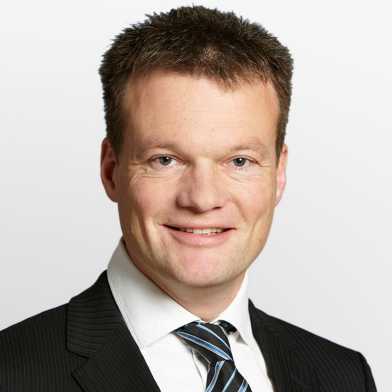
Politicians and the media struggle with predictions. This is more a problem resulting from a poor understanding of uncertainties than from the reliability of models, argues Reto Knutti.
Like bacteria firing spearguns
News
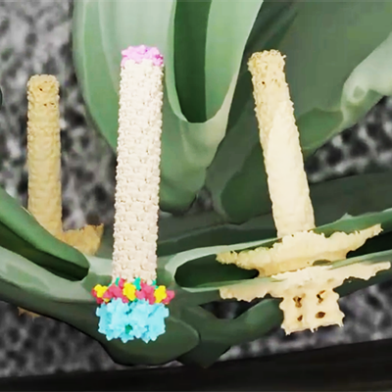
Biologists from ETH Zurich have discovered speargun-like molecular injection systems in two types of bacteria and have described their structure for the first time. The special nanomachines are used by the microbes for the interaction between cells and could one day be useful as tools in biomedicine.
How human and artificial intelligence can augment one another
News
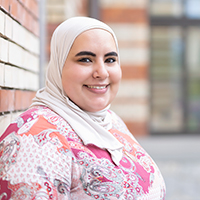
Mennatallah El-Assady develops explainable AI programs that explain their own workings – and let users provide input. This can help analysts take a deep dive into political debate.
How we can adapt to climate change
Zukunftsblog
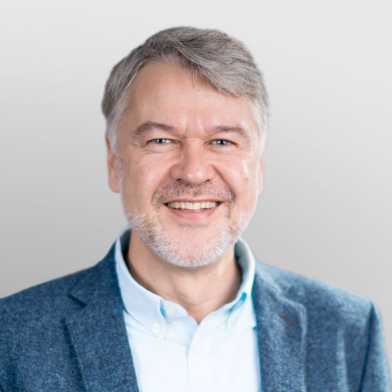
Thomas Bernauer contributed to the latest IPCC report on adaptation to climate change. He sees nature and good governance as our most important resources for coping with the effects of climate change.
"This is a historic rupture"
News
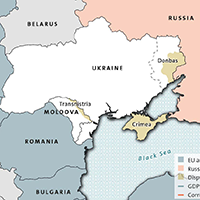
Russia attacked Ukraine on Thursday night. ETH researcher Benno Zogg from the Center for Security Studies on President Putin’s goals, the effectiveness of sanctions and the consequences of the invasion for European security.
Artificial intelligence listens to the sound of healthy machines
News

Sounds provide important information about how well a machine is running. ETH researchers have now developed a new machine learning method that automatically detects whether a machine is "healthy" or requires maintenance.
Gabriela Hug on the topic of energy supply
News
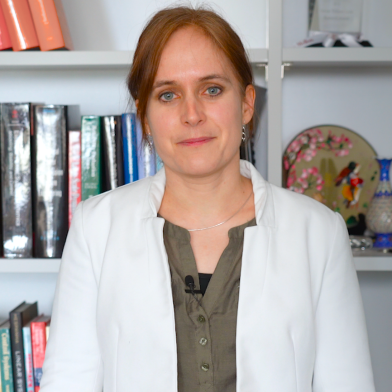
In the video series "Ask the Expert", experts from ETH Zurich answer questions from the community. In this episode Gabriela Hug talks about energy supply.
Momoyo Kaijma and Yoshiharu Tsukamoto receive Wolf Prize
News
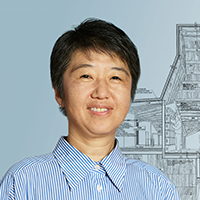
Momoyo Kaijima, Professor of Architectural Behaviorology at ETH Zurich, and her partner Yoshiharu Tsukamoto have been honoured with this year’s Wolf Prize for their ethnographically inspired approach to architecture. According to the jury, the work produced by their studio, Atelier Bow-Wow, is characterised by a great sensitivity towards local contexts and the social impact of architecture.
The dark side of remote working
Zukunftsblog
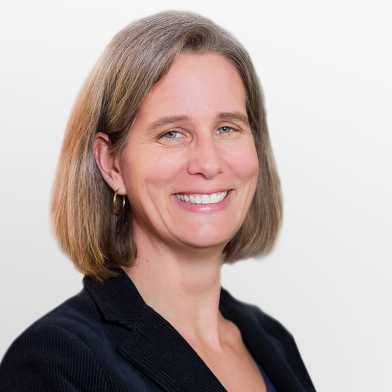
Erika Meins explains the science behind why returning to the office is good for our performance as well as our well-being.
Swiss population in favour of strict food waste rules
News
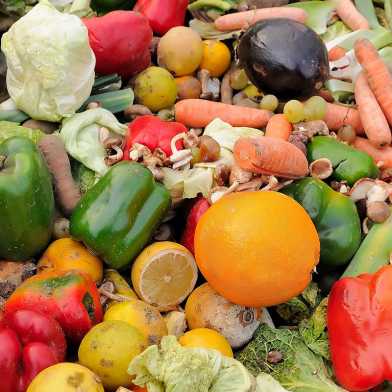
ETH researchers have shown that the Swiss population is willing to pay more to reduce food waste. It is in favour of government regulations that set strict reduction targets and ensure transparent monitoring of implementation.
Plastic recycling shouldn’t be an end in itself
Zukunftsblog

Wanting to keep plastics in circulation is currently en vogue. According to Magdalena Klotz, however, high collection rates are of little use if recyclate only replaces virgin material to a limited extent.
ETH graduates reinvent the user manual
News
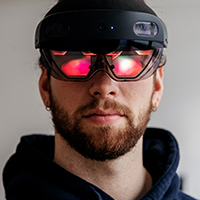
No sooner had David Shapira and Kordian Caplazi finished their studies than they set about creating a start-up. Rimon develops virtual user manuals for industrial companies, enabling users to quickly and intuitively learn how to operate complex machines with the aid of AR glasses.
Predicting complex dynamics from data
News

Researchers at ETH Zurich have developed a new algorithm that allows them to model the dynamics of physical systems from observations. In the future it could be applied to the onset of turbulence and tipping points in climate.
New drug candidates identified in bacteria
News
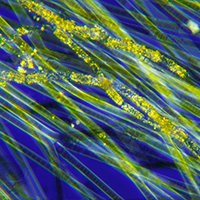
Bacteria show great promise as a source of active ingredients. Using computer-based genome analysis, researchers at ETH Zurich have now discovered a new class of natural products that might one day serve as antibiotics.
Science needs more women
News
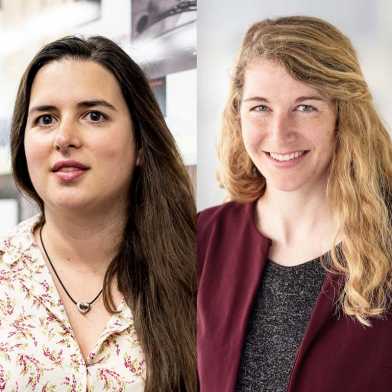
To mark the International Day of Women and Girls in Science, we take a look back at a year shaped by strong women. Although there’s still a long way to go in achieving a gender balance in research and education, ETH Zurich has no shortage of female role models.
Doctoral school picks up speed
News
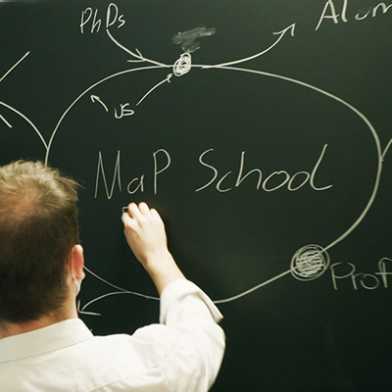
Through its new doctoral programme, the MaP Doctoral School, ETH Zurich plans to train specialists in materials and processes who will work across disciplines to tackle the big challenges of our time, such as climate change, sustainable development and personalised medicine.
My call to stick to science
Zukunftsblog
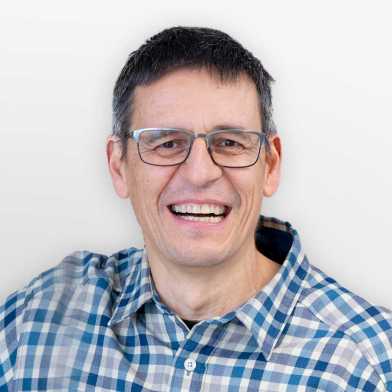
For Didier Queloz, excellent research requires international networks and know-how. He calls on politicians to admit British and Swiss scientists to Horizon Europe.
Applying the butterfly principle
News
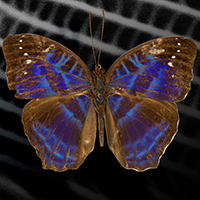
ETH Zurich researchers have created artificial colours by 3D printing certain nanostructures inspired by those of a butterfly. This principle can be used in the future to produce colour screens.
“In a situation like this, everybody loses”
News
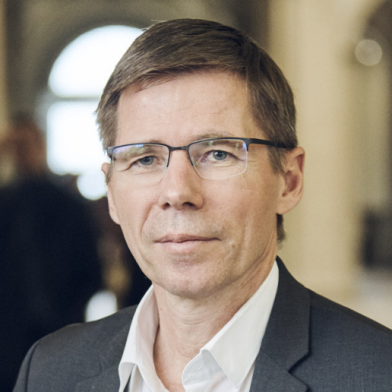
The European research community today launched the “Stick to Science” initiative. In it, scientists call on the EU to grant Switzerland and the UK association to the Horizon Europe research programme. ETH Zurich is one of the initiators of the campaign. The university’s president, Joël Mesot, explains its involvement in an interview.
Exploring the architecture of tumours
News
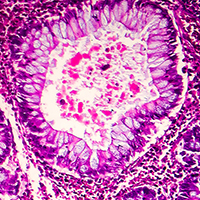
ETH researchers have used computer simulations to show that tissue structure in different types of cancer is decisive in determining how a tumour develops. This information could make it possible to treat patients in a more targeted manner in future.
The Congo tropical forest is simply different
News

Until now, research assumed that the vast forest area of the Congo Basin, like other tropical forests, releases large amounts of nitrous oxide and binds methane. Researchers at ETH Zurich have now shown that it behaves differently: methane is released, while nitrous oxide emissions are smaller than thought.
World Cancer Day 2022
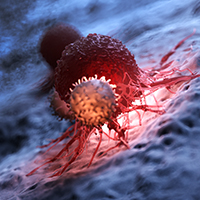
Step-by-step researchers at ETH Zurich are working towards reducing the global impact of cancer. In recognition of World Cancer Day - a day dedicated to the promotion of research for curing and preventing the disease, we share a collection of recent research insights. #WorldCancerDay #CloseTheCareGap
Benefits of failing
News

Usually, failure is something shameful, or at least it used to be. Nowadays, people rather talk about how crucial failure is for success.
“I want to enjoy studying at ETH.”
News
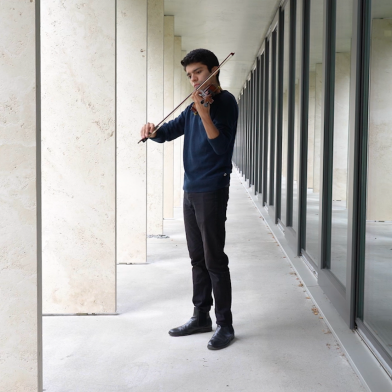
Studying at ETH Zurich is challenging, and all students have their own personal hurdles to overcome. This short video series gives a somewhat different insight into everyday life as a student. It provides an account of three students, their setbacks and how they dealt with them.
New method cracks simulation of foam formation
News
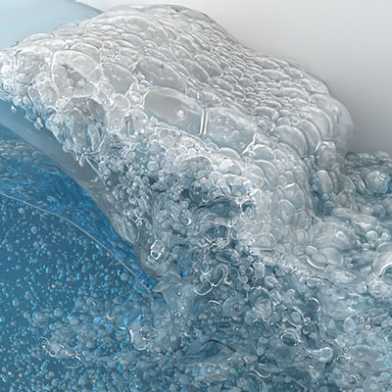
Whether on top of a cappuccino or in the wake of waterfalls, foam is omnipresent. Until now, simulating foams realistically with a supercomputer has been almost impossible, but a method further developed by the research group of ETH and Harvard professor Petros Koumoutsakos has overcome the hurdles.
Almost all chemicals burden the planet
News
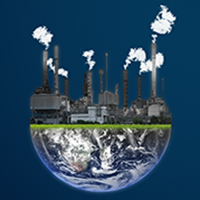
For the first time, researchers at ETH Zurich have calculated in absolute figures the extent to which the production of chemicals is currently interfering with nature worldwide – and the results are staggering. In addition to greenhouse gas emissions, the new method also takes land use and freshwater consumption into account.
Mathematics, diplomacy and the art of negotiation
News
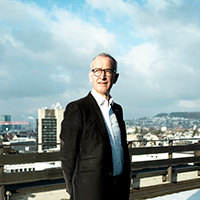
After nine years as ETH Professor of Negotiation and Conflict Management, Michael Ambühl is soon to become a professor emeritus. We look back at the remarkable career of a former State Secretary who was determined to translate practice into theory.
“I underestimated ETH.”
News
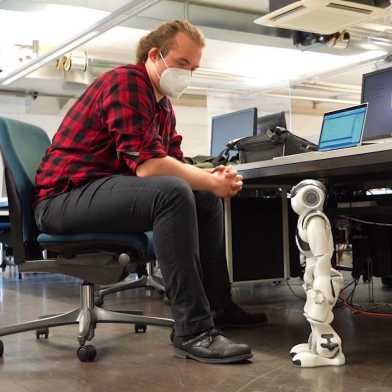
Studying at ETH Zurich is challenging, and all students have their own personal hurdles to overcome. This short video series gives a somewhat different insight into everyday life as a student. It provides an account of three students, their setbacks and how they dealt with them.
Can hydropower and fish co-exist?
Zukunftsblog
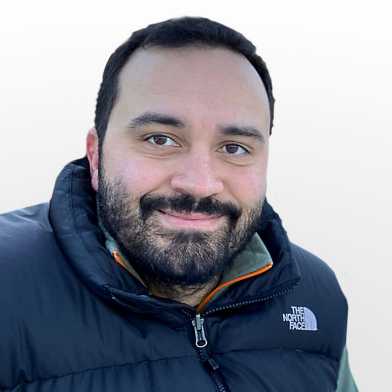
Hydropower delivers renewable electricity, but comes with massive fish mortality – a global dilemma that can only be addressed by true compromises, says Luiz Silva, and outlines how to find them.
One step closer to lifelike avatars
News
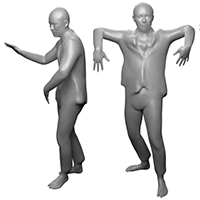
Soon, internet users will be able to meet each other in cyberspace as animated 3D avatars. Researchers at ETH Zurich have developed new algorithms for creating virtual humans much more easily.
At the interface of physics and mathematics
News
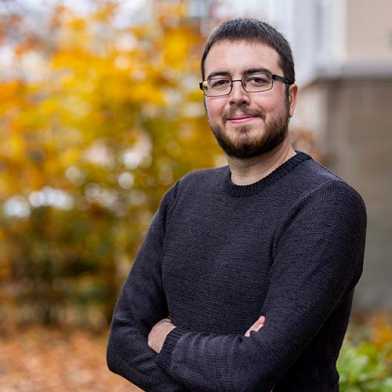
Sylvain Lacroix is a theoretical physicist who conducts research into fundamental concepts of physics – an exciting but intellectually challenging field of science. As an Advanced Fellow at ETH Zurich’s Institute for Theoretical Studies (ITS), he works on complex equations that can be solved exactly only thanks to their large number of symmetries.
Reaching critical mass of women at ETH Zurich
Zukunftsblog
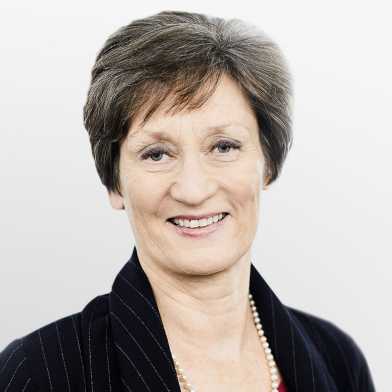
The outgoing Rector, Sarah Springman, reflects on where and how promoting women makes sense and what it means to be successful in this area.
Is Vesuvius taking an extended siesta?
News
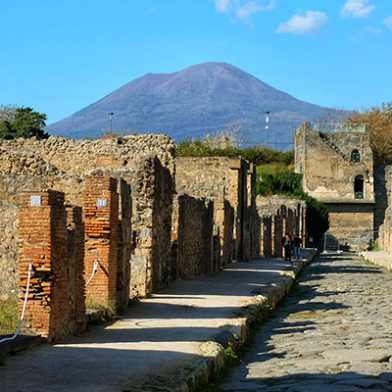
Located near Naples, Italy, Vesuvius last had a violent eruption in 1944, towards the end of the Second World War. It could be a few hundred years before another dangerous, explosive eruption occurs, finds a new study by volcano experts at ETH Zurich.
How robots learn to hike
News
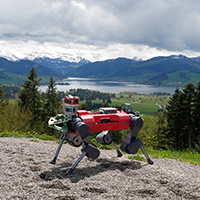
ETH Zurich researchers led by Marco Hutter have developed a new control approach that enables a legged robot, called ANYmal, to move quickly and robustly over difficult terrain. Thanks to machine learning, the robot can combine its visual perception of the environment with its sense of touch for the first time.
"I felt like I was in the wrong place."
News

Studying at ETH Zurich is challenging, and all students have their own personal hurdles to overcome. This short video series gives a somewhat different insight into everyday life as a student. It provides an account of three students, their setbacks and how they dealt with them.
Launch of joint Master’s programme in Ghana
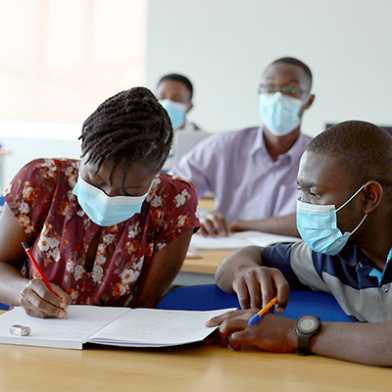
Since 17 January, ETH lecturers have been working alongside colleagues at Ashesi University in Ghana. On Monday, the new joint Master’s in Mechatronic Engineering launched with 26 students from seven African countries.
Controlling complex systems with artificial intelligence

Researchers at ETH Zurich and the Frankfurt School have developed an artificial neural network that can solve challenging control problems. The self-learning system can be used for the optimization of supply chains and production processes as well as for smart grids or traffic control systems.
Software to speed up training of neural networks
News

When working with neural networks, their training is the single most resource-demanding and costly process. Scientists at the ETH Zurich have now developed a software that considerably speeds up training. This will be especially relevant for scientific applications of future users of “Alps” at CSCS.
Help rather than hinder
Zukunftsblog
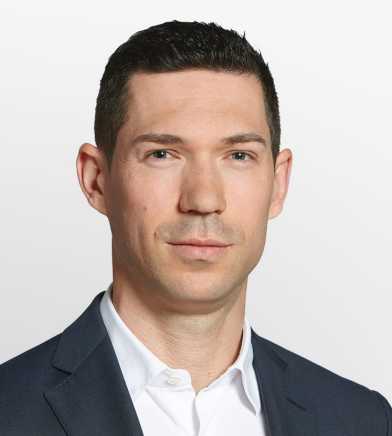
Johannes Bohacek explains why it’s misleading to think we can completely replace animal testing with alternative methods, and why we should lower rather than raise the hurdles to research.
Agents between good and evil
News
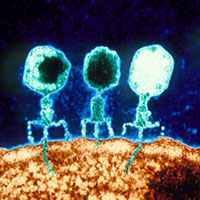
Viruses that infect bacteria could one day replace antibiotics because they precisely attack only specific pathogens. Researchers at ETH Zurich are now showing that this is not always the case. This new finding is important because bacterial viruses can transfer antibiotic resistance genes.
Earth’s interior is cooling faster than expected
News

Researchers at ETH Zurich have demonstrated in the lab how well a mineral common at the boundary between the Earth’s core and mantle conducts heat. This leads them to suspect that the Earth’s heat may dissipate sooner than previously thought.
The vital need for animal testing
News
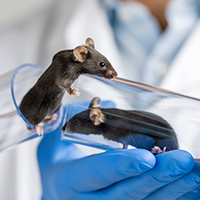
ETH Zurich and the other Swiss universities are committed to reducing the stress and suffering experienced by laboratory animals. However, an outright ban on animal testing – being put to the vote in a popular initiative this coming February – would put an end to progress in medical research.
It all comes down to the first electron
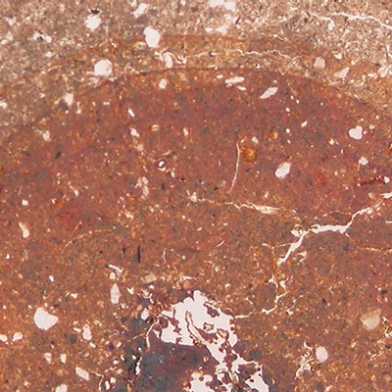
All living organisms that respire have to get rid of electrons. In oxygen-free environments, microorganisms deploy special molecules which act as extracellular electron shuttles to transfer the electrons from cells to minerals. A group of researchers has now discovered what determines the electron transfer efficiency of these "cabs".
Why we feel confident about decisions we make
News

A team of researchers led by ETH Professor Rafael Polanía has shown for the first time that decisions feel right to us if we have compared the options as attentively as possible – and if we are conscious of having done so. This requires a capacity for introspection.
AI offers a faster way to predict antibiotic resistance
News

A study under co-leadership of the ETH Zurich has shown that computer algorithms can determine antimicrobial resistance of bacteria faster than previous methods. This could help treat serious infections more efficiently in the future.
Are these the last ERC grants for ETH?
Press release

In the last application process for the sought-after ERC Starting Grants, the European Research Council made 11 awards to ETH researchers worth about CHF 17 million. Due to Switzerland’s non-association, however, the researchers will not receive these grants. The funds will now be provided by the State Secretariat for Education, Research and Innovation (SERI).
The secret drivers of tree growth
News

Most trees live in symbiosis with fungi. ETH Zurich researchers show just how important this partnership is for tree growth through the first-ever comprehensive data analysis compiled for European forests on a massive scale.
We should talk about animal testing
Zukunftsblog

It’s a good thing if animal testing is widely discussed in society, says Detlef Günther, but it’s important that these discussions are fair and fact-based.
Artificial intelligence makes for effective fitness training
News
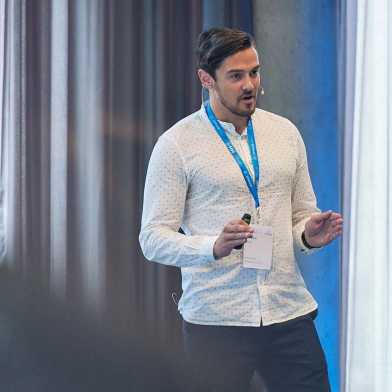
Whether for squats or sit-ups, the software created by the start-up VAY alerts exercisers about incorrect movements via a smartphone screen. Now the ETH spin-off has been acquired by connected fitness equipment manufacturer Nautilus.
A home for ideas
News

ETH’s Student Project House is a dream come true for young inventors. It's a space where flashes of inspiration can materialise - or not and a place where students can implement their ideas without the pressure of succeeding.
Huge influence of the largest emitters
News
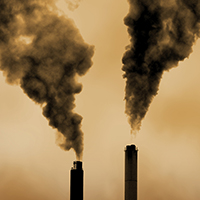
Without stronger climate action, the five biggest emitters will double the number of countries regularly experiencing extreme hot years by 2030.
A laboratory for society
Globe magazine
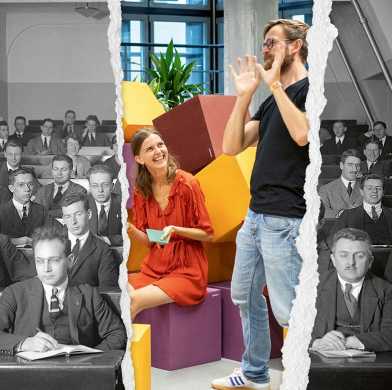
ETH Zurich has always been a mirror of new social developments. In the past 20 years, the university has become more international, increasingly autonomous, more digital – and less male.
Battling climate change and the pandemic
Press release
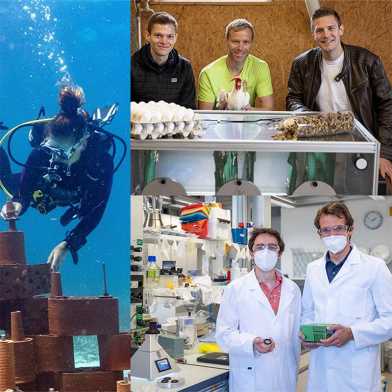
The breakdown for spin-offs in 2021: 25 new start-ups and about CHF 390 million in capital raised. Faster coronavirus tests, artificial coral reefs and automated insect breeding have found their place in the economy. The proportion of female entrepreneurs has increased significantly.
Charging electric vehicles with photovoltaics at home
News

An electric car that runs on PV power sounds appealing. But is it really possible to enjoy flexibility with a vehicle charged through a home photovoltaic system? An ETH research team has reached some surprising conclusions.
